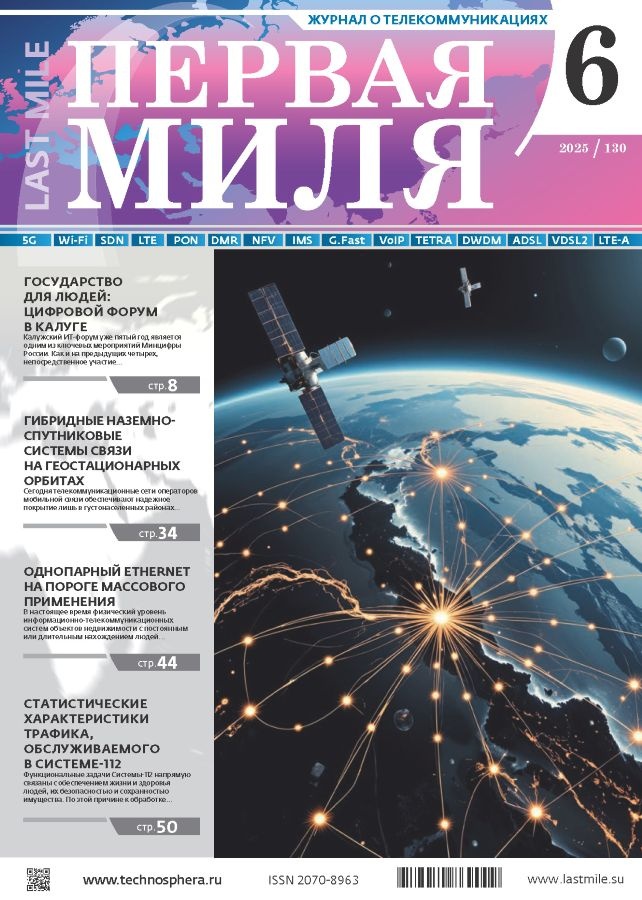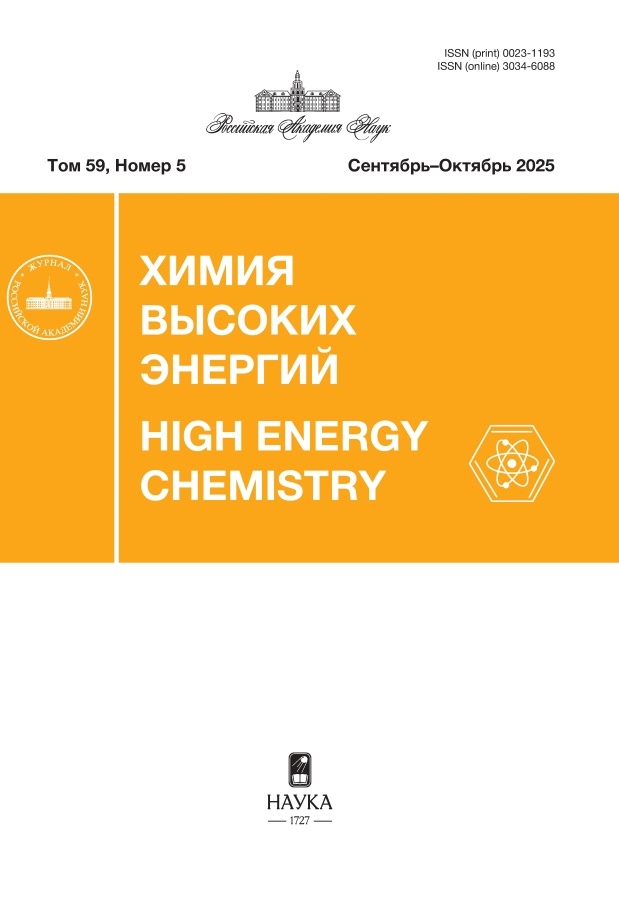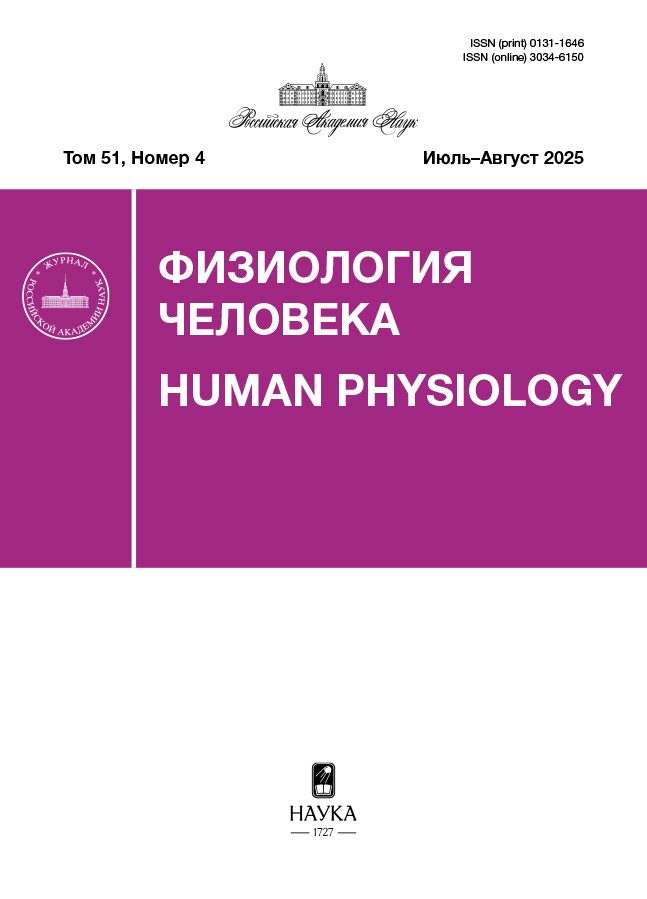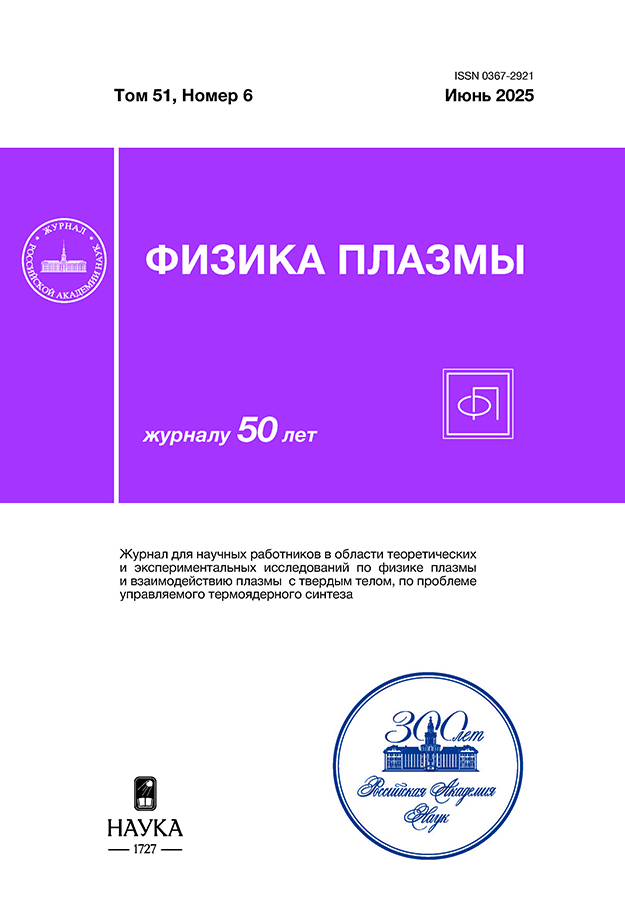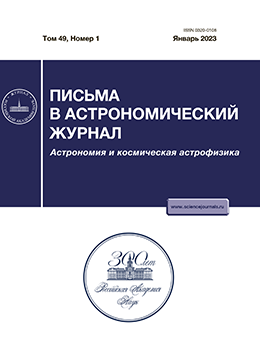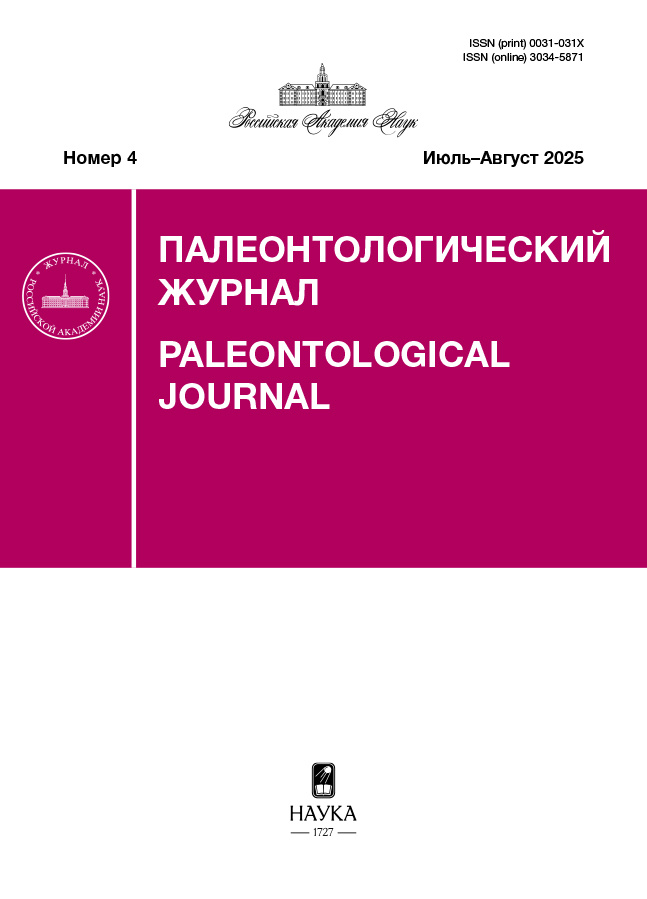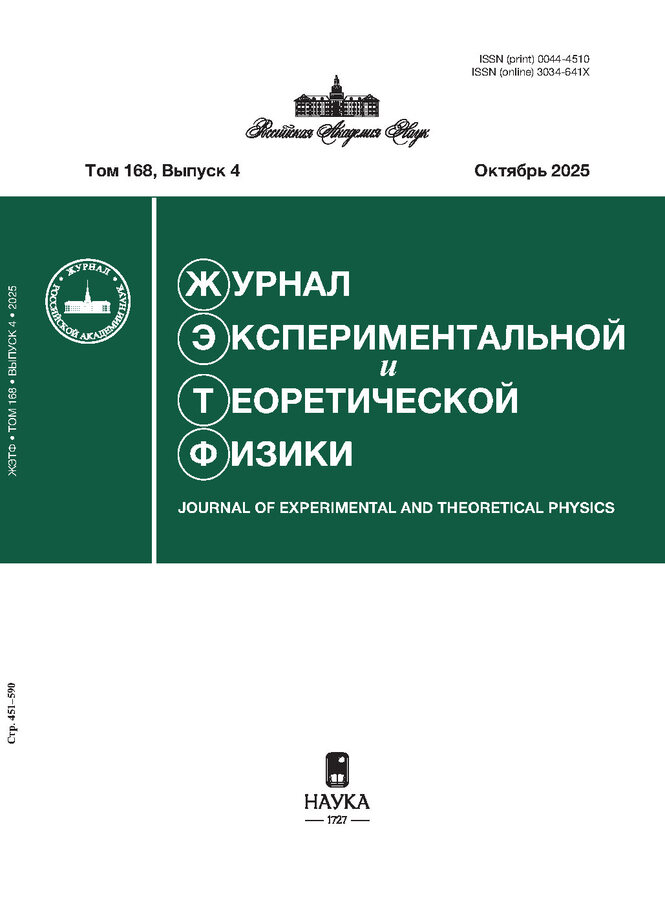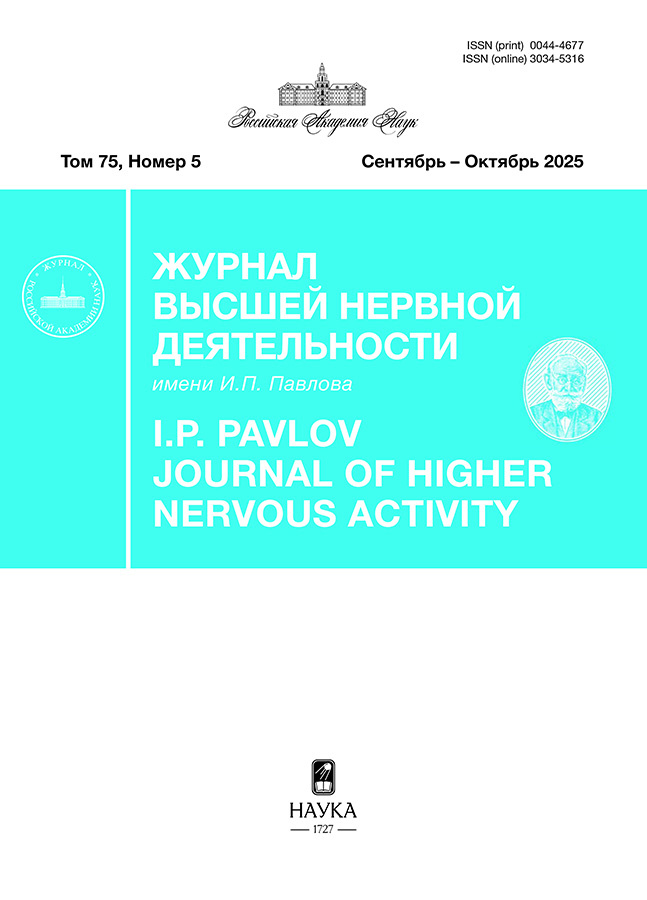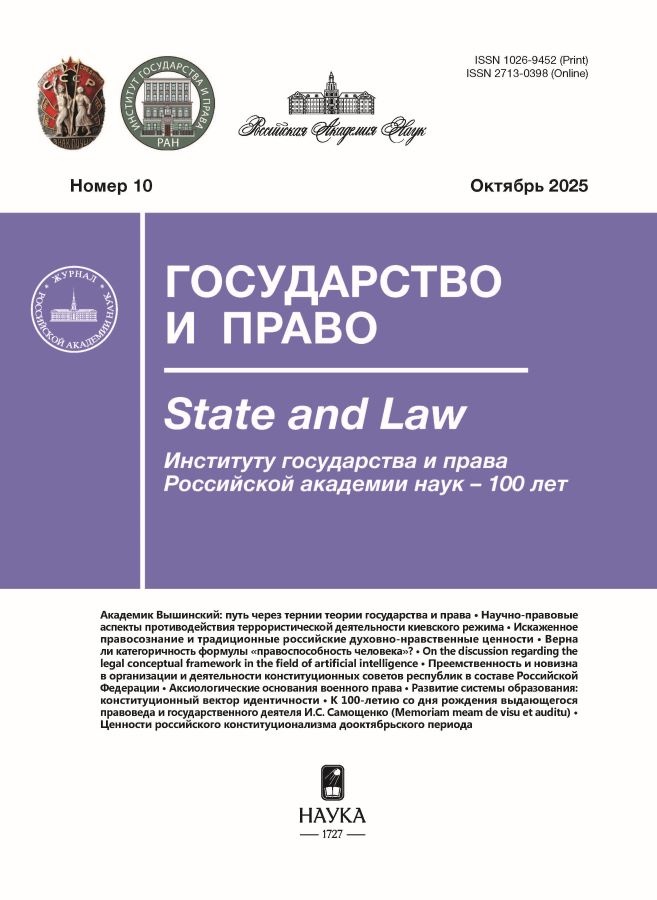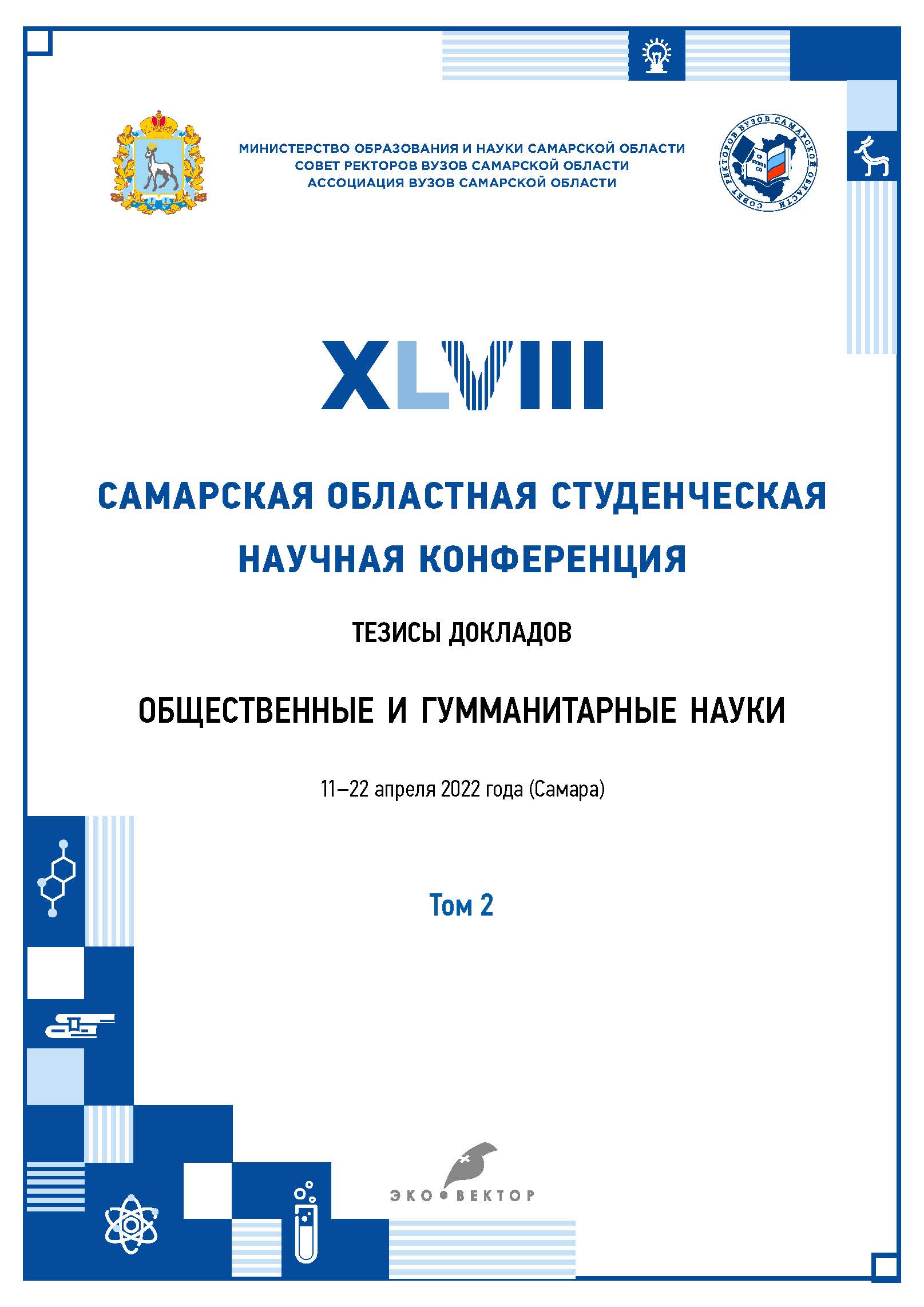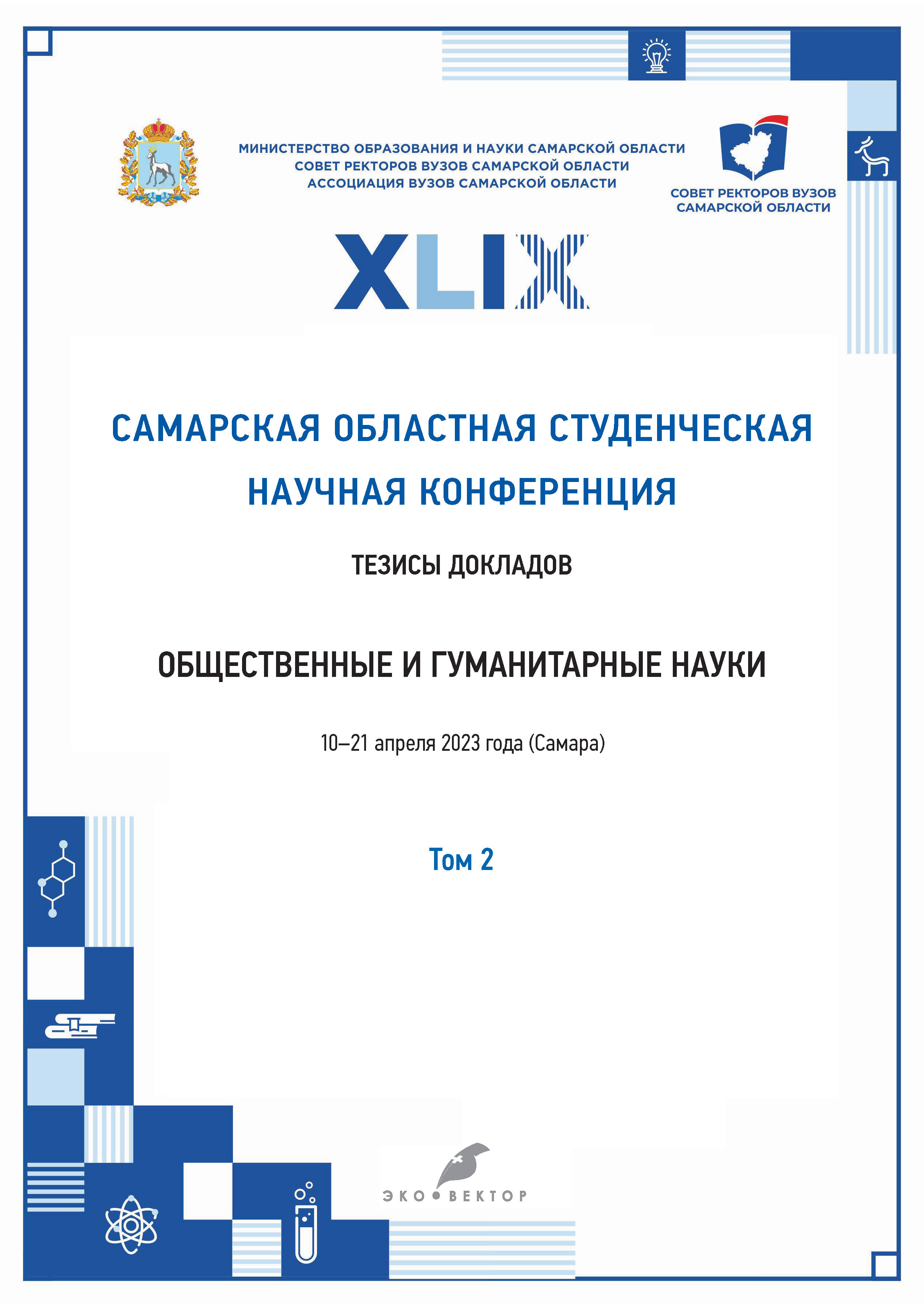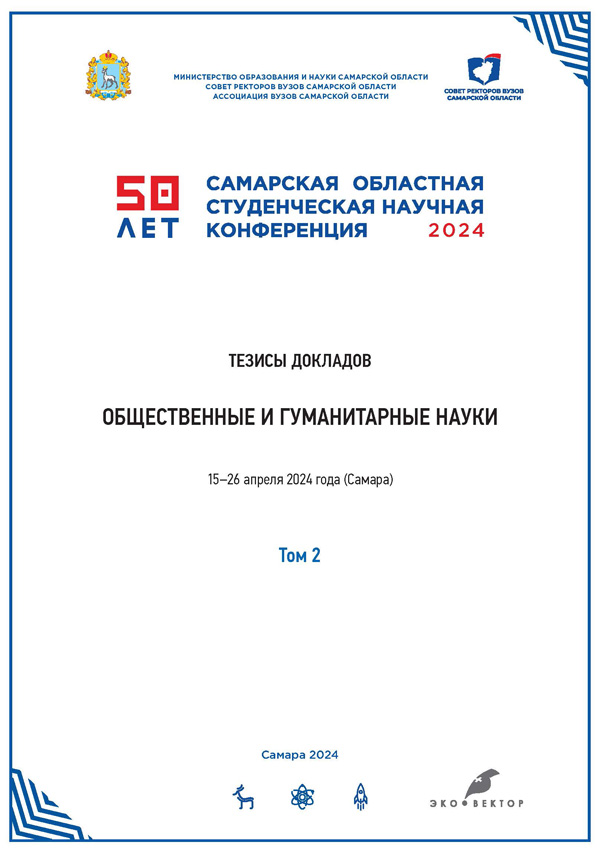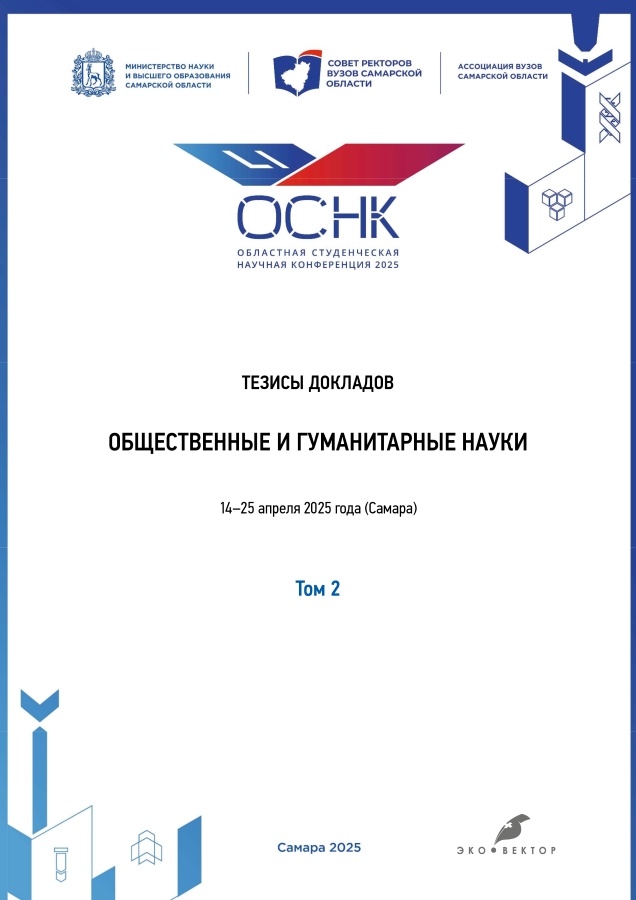Eco-Vector Journals Portal
-
Current Chemical Biology

-
Current Chemical Biology
Peer-review Journal of Bentham Science.
Publish 4 issues annually since 2007.
Executive Editor: professor Atta-ur-Rahman.
Indexation: British Library, Cabell's Directory/Journalytics, Cambridge Scientific Abstracts (CSA)/ProQuest, Chemical Abstracts Service/SciFinder, CNKI Scholar, EBSCO, EMBASE, Genamics Journal Seek, Google Scholar, J-Gate, JournalTOCs, MediaFinder®-Standard Periodical Directory, OpenAire, PubsHub, QOAM, Scilit, Scopus, Suweco CZ, Ulrich's Periodicals Directory
ISSN 2211-3525 (Print) ISSN 2211-3533 (Online)
-
Acta Naturae

-
Acta Naturae
Peer-review Journal for Life Sciences.
Publish quarterly since 2009 in Open Access.
Editor-in-Chief: professor A.G. Gabibov.
Indexation: Web of Science Core Collection, SCOPUS, PubMed Central, Russian Science Citation Index, Google Scholar, Ulrich's Periodicals directory, WorldCat.
ISSN 2075-8251 (Print ENG) | ISSN 2075-8243 (Print RUS)
-
Environmental Dynamics and Global Climate Change

-
Environmental Dynamics and Global Climate Change
Рeer-review academic journal. Main fields: biology; geography; agriculture and forestry; Environment protection; human ecology
Editor-in-Cheif: Glagolev M.V., PhD; Lapshina E.D., PhD.М.В.
Indexing: Russian Science Citation Index, Google Scholar, Ulrich's Periodical directory, EBSCO.
-
Proceedings of young scientists and specialists of the Samara University

-
Proceedings of young scientists and specialists of the Samara University
Peer-review academic journal.
Publish semiannualy in Open Access.
Editor-in-Chief: A.B. Prokofyev, PhD, Professor
Indexation: Google Scholar
ISSN 2311-4576 (Print)
-
Bulletin of Nizhnevartovsk State University
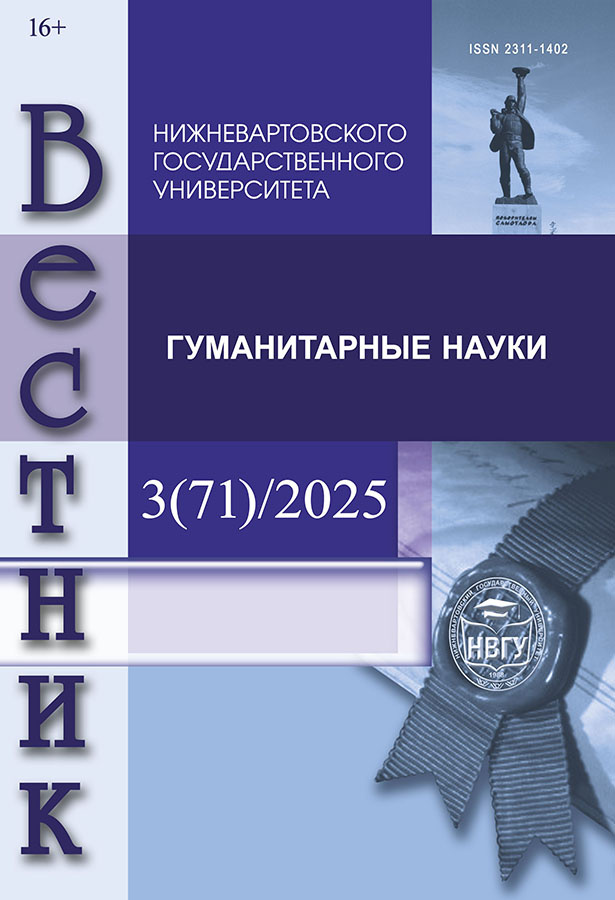
-
Bulletin of Nizhnevartovsk State University
Peer-review academic journal.
Editor-in-Chief: PhD, Professor Sergey I. Gorlov
Publications: quarterly (4 tymes per year) in Open Access (СС BY NC ND 4.0) with no APC.
Indexation: Russian Science Citation Index, DOAJ, Google Scholar, CyberLeninka, SocioNet, Index Copernicus, BASE, IPRbooks, Open Academic Journals Index, Open Ukrainian Citation Index, MIAR, German Union Catalogue of Serials (ZDB), ZENODO, OpenAIRE, AGRIS
ISSN 2311-1402 (Print) ISSN 2686-8784 (Online)
-
Journal of Samara State Technical University, Ser. Physical and Mathematical Sciences
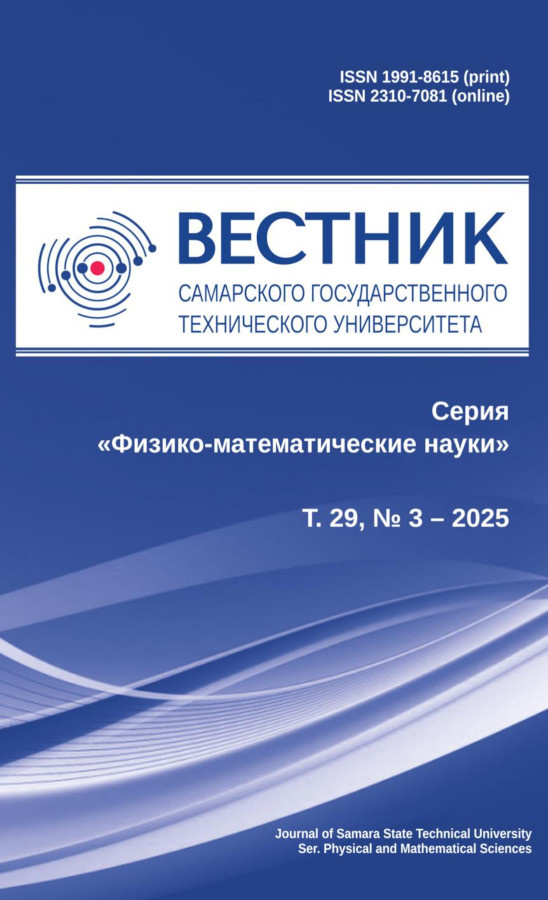
-
Journal of Samara State Technical University, Ser. Physical and Mathematical Sciences
Peer-review academic journal for Differential Equations and Mathematical Physics, Mechanics of Deformable Solids, Mathematical Modeling, Numerical Methods and Software Systems.
Publish quarterly since 1996 in Open Access with no APCs.
Editor-in-Chief: PhD, Professor Vladimir P. Radchenko.
Indexing: RSCI (Web of Science), eLibrary.ru, Cyberleninka, Google Scholar, OCLC WorldCat, BASE, OpenAIRE, RePEc, Socionet, СyberLeninka.ru, Math-Net.ru
ISSN: 1991-8615 (Print); ISSN: 2310-7081 (Online)
-
Vestnik of Samara University. Natural Science Series

-
Vestnik of Samara University. Natural Science Series
Peer-review academic journal.
Publish quarterly since 1994 in Open Access.
Editor-in-Chief: Evgeniy V. Shakhmatov, PhD, Professor.
Индексация: Russian Science Citation Index, zbMATH, MATHSCINET, Google Scholar, WorldCat, Ulrich's Periodicals Directory, Cyberleninka
ISSN 2541-7525 (Print)
-
Yugra State University Bulletin
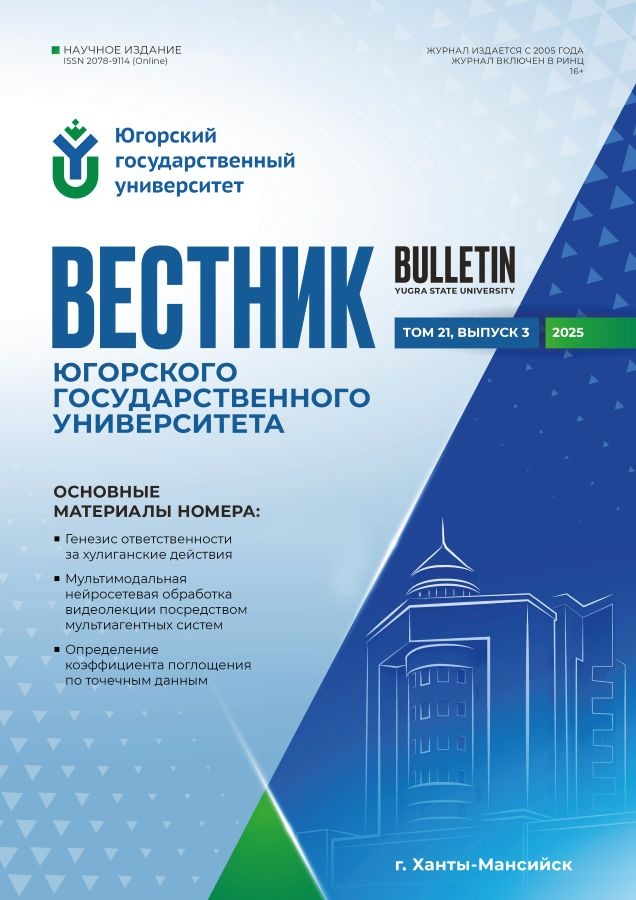
-
Yugra State University Bulletin
Рeer-review academic journal. Main fields: economic sciences; Earth Sciences; technical sciences.
Editor-in-Cheif: Valery F. Lapshin, Doctor of Law, Associate Professor,
Indexing: Russian Science Citation Index, Google Scholar, Ulrich's Periodical directory, WorldCat, Cyberleninka, ЭБС "Лань"
ISSN: 1816-9228 (Print) ISSN: 2078-9114 (Online)
-
Journal of microbiology, epidemiology and immunobiology

-
Journal of microbiology, epidemiology and immunobiology
Peer-review medical journal.
Editor-in-Chief: Vitaly V. Zverev, Dr.Sci. (Biology), Professor, Full Member of the Russian Academy of Sciences.
Indexation: SCOPUS, DOAJ, ULRICHS PERIODICAL DIRECT, Russian Science Citation Index (RSCI), EBSCO, WorldCat, Google Scholar, CYBERLENINKA, RUCONT.
Open Access & Publication frequency: Diamond Open Access; 6 issues annualy; Online First; CC BY license.
Peer-Review & APC: double blind; no article processing charges.
ISSN 0372-9311 (Print) ISSN 2686-7613 (Online)
-
Zemlâ i vselennaâ
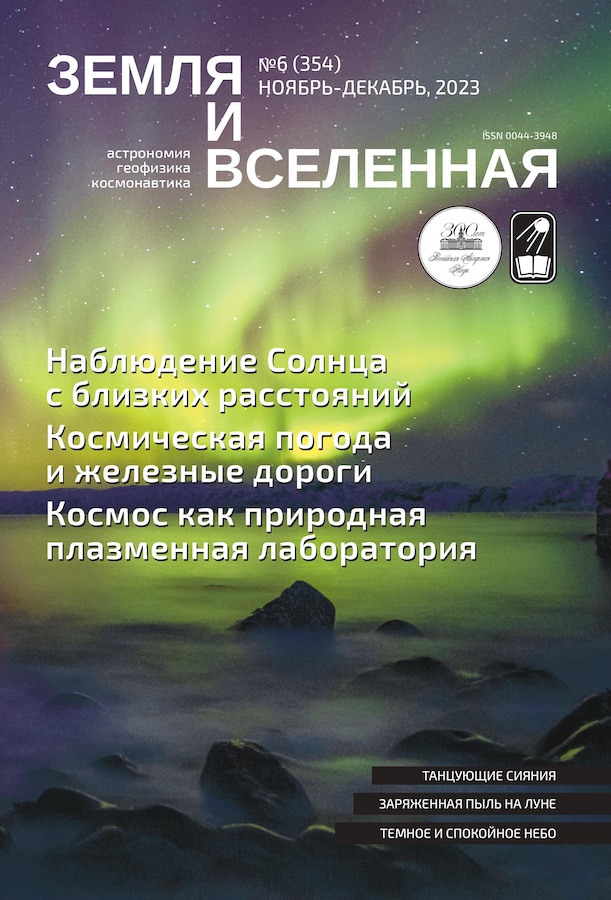
-
Zemlâ i vselennaâ
Peer-review popular science journal.
Editor-in-Chief: Lev Zelenyi, academician of RAS .
Indexation: Russian Science Citation Index, Google Scholar, Ulrich's Periodicals Directory, Dimensions, Crossref.
Access & Publication frequency: Subscription, bimonthly issuing.
Peer-Review & APC: double blind; no article processing charge.
ISSN: 0044-3948 (Print)
-
Izvestiya of Samara Scientific Center of the Russian Academy of Sciences
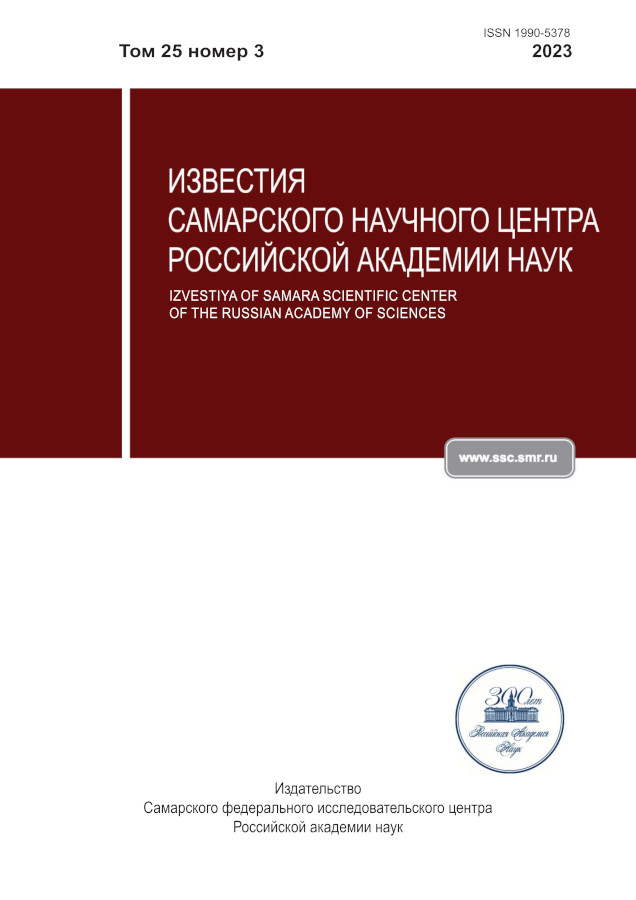
-
Izvestiya of Samara Scientific Center of the Russian Academy of Sciences
Multidisciplinary peer-review journal.
Editor-in-Chief: Doctor of Technical Sciences, Academician of RAS, professor Grechnikov Fedor V.
Indexing: Russian Science Citation Index, WorldCat, Google Scholar,Ulrich's Periodicls Directory.
ISSN: 2658-4816 (Print).
-
Russian Clinical Laboratory Diagnostics

-
Russian Clinical Laboratory Diagnostics
Peer-review medical scholarly journal.
Publish monthly since 1955.
Editor-in-Chief: professor T.V. Vavilova.
Indexation: Russian Science Citation Index, Google Scholar, Ulrich's Periodicals directory, Dimensions, Crossref.
ISSN 0869-2084 (Print) ISSN 2412-1320 (Online)
-
Mathematics, Economics and Management

-
Mathematics, Economics and Management
Peer-review academic journal.
Publish quarterly since 2015 in Open Access.
Editor-in-Chief: Vladimir D. Bogatyrev, PhD, Professor.
Indexation: Russian Science Citation Index, Google Scholar, WorldCat, Ulrich's Periodicals Directory
ISSN 2411-5452 (Print)
-
Morphology
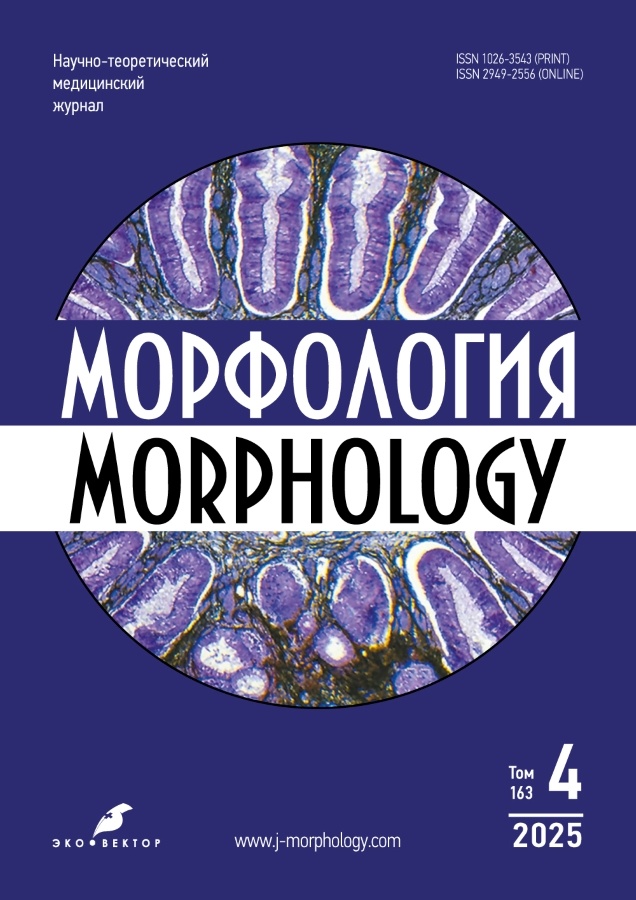
-
Morphology
Peer-review medical and biological journal.
Editor-in-Chief: Ass. professor Roman V. Deev, MD, Cand. Sci. (Med.).
Indexation: Russian Science Citation Index, Google Scholar, Ulrich's Periodicals Directory, Dimensions, Crossref.
Open Access & Publication frequency: Hybrid — Subscription & Open Access; quarterly issuing.
Peer-Review & APC: double blind; no obligatory article processing charge.
ISSN: 1026-3543 (Print) ISSN: 2949-2556 (Online)
-
Nauka Yuga Rossii
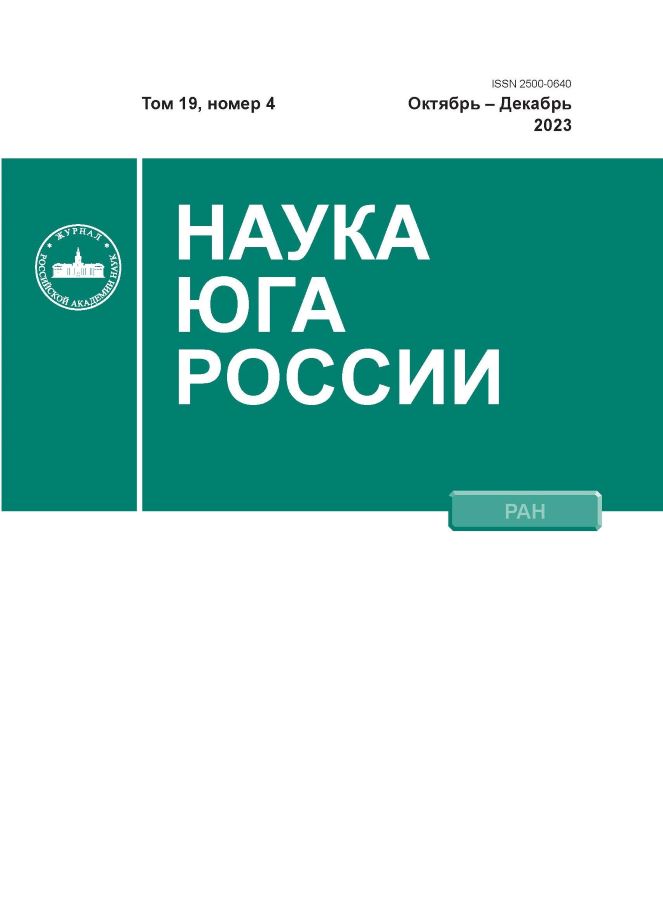
-
Nauka Yuga Rossii
Scientific peer-reviewed journal
Editor-in-Chief: Gennady G. Matishov, Academician of the Russian Academy of Sciences, Doctor of Geographical Sciences, Professor.
Published: 4 issues per year, since 2004.
Indexing: Russian Science Citation Index (RSCI), Google Scholar, ZooBank (International Commission on Zoological Nomenclature), Zoological Record (Thomson Reuters), CrossRef.
ISSN 2500-0640 (Print)
-
Priroda
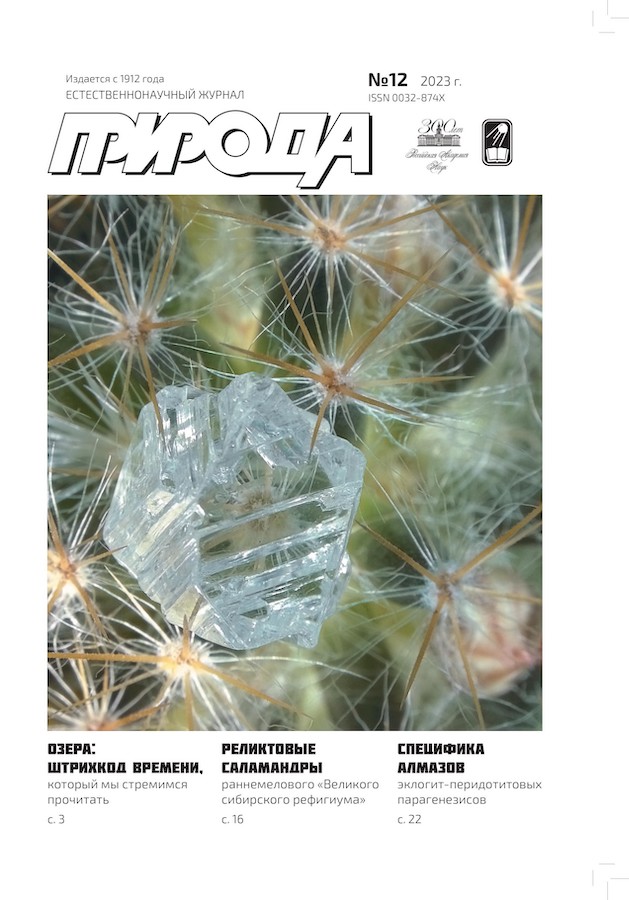
-
Priroda
Popular scientific journal of Russian Academy of Sciences.
Editor-in-Chief: Aleksey V. Lopatin, Academician of the Russian Academy of Sciences, Doctor of Biological Sciences.
Indexation: RSCI, Google Scholar, CrossRef, Chemical Abstracts Service (CAS).
Frequency of publication: 12 issues per year; publishes since 1912.
ISSN 0032-874X (Print)
-
Samara Journal of Science
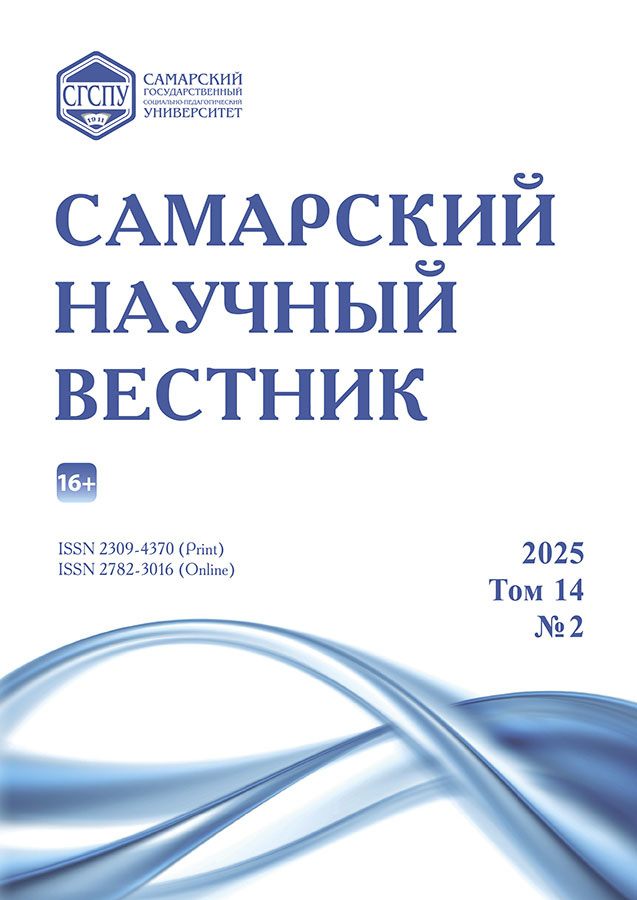
-
Samara Journal of Science
Peer-review academic journal for biology, history science and education science.
Editor-in-Chief: doctor of historical sciences, professor, head of Domestic History and Archeology Department Oleg Dmitrievich Mochalov.
Publiches since 2012 in Gold Open Access with no APC.
Indexing: Russian Index Science Citation (eLibrary.ru), Google Scholar, CrossRef.
ISSN: 2309-4370 (Print), 2782-3016 (Online).
-
Physics of Wave Processes and Radio Systems

-
Physics of Wave Processes and Radio Systems
Peer-review academic journal on physics.
Editor-in-Chief: Dmitry S. Kluev, Dr.Sci (physics), associate professor.
Indexation: Rissian Science Citation Index, Google Scholar, Ulrich's Periodicals Directory, WorldCat.
Publication: quarterly in Gold Open Access (CC BY-NC-ND 4.0 International).
ISSN: 1810-3189 (Print)
-
Ecological genetics
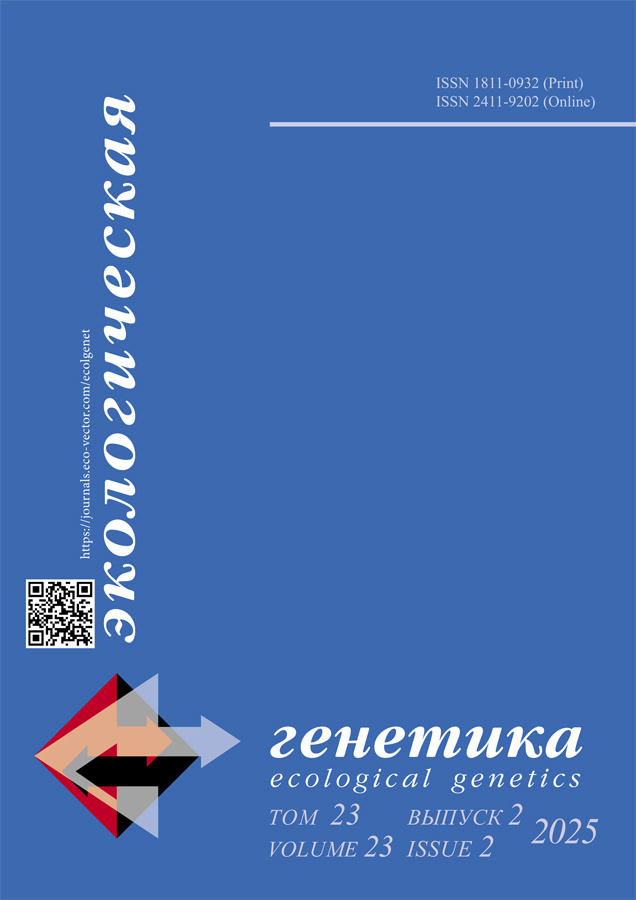
-
Ecological genetics
Medical and biology peer-review journal.
Editor-in-Chief: Sergei G. Inge-Vechtomov
Frequency: 4 issues per year, since 2003.
Indexation: SCOPUS, РИНЦ, Russian Science Citation Index, Google Scholar, CrossRef, WorldCat, SciLit, OpenAlex, Dimensions, ABCD, FatCat, SciLit, Scholia, Wikidata
ISSN 1811-0932 (Print), 2411-9202 (Online)
-
Ekologiya cheloveka (Human Ecology)
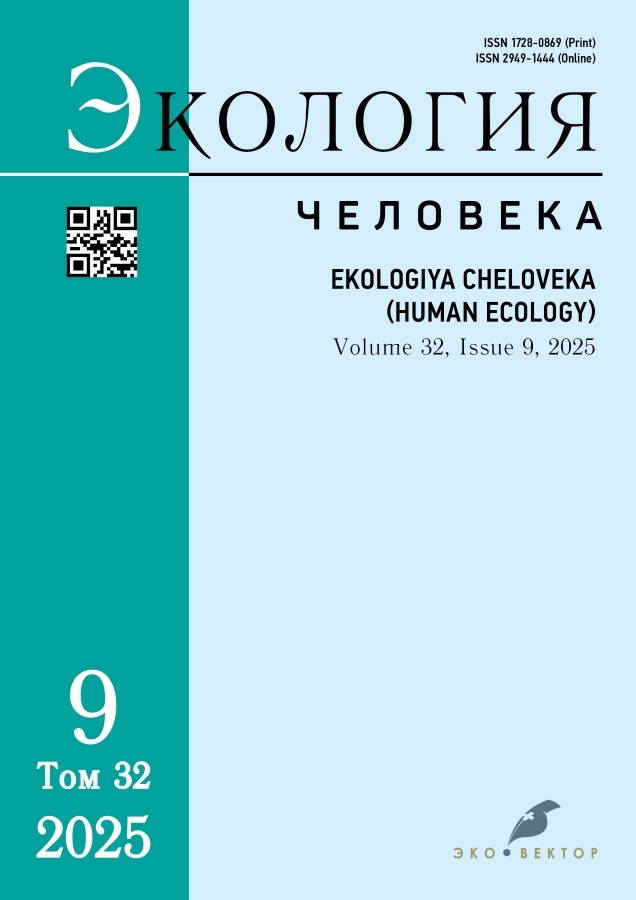
-
Ekologiya cheloveka (Human Ecology)
Peer-review journal for practitioners and researchers.
Editor-in-Chief: Tatiana N. Unguryanu, MD, PhD.
Indexing: Russian Science Citation Index, SCOPUS, Google Scholar, Ulrich's Periodical directory, Cyberleninka.
Publishes monthly from 1994 in Open Access.
ISSN: 1728-0869 (Print)
-
World of petroleum products

-
World of petroleum products
Peer-reviewed scientific and technical journal.
Editor-in-chief: Kapustin V.M., Doctor of Technical Sciences, Professor
Indexing: RSCI, HAC List, Google Scholar, Ulrich's Periodicals Directory, Crossref, RUS White List, Dimensions.
Access and frequency: subscription, 6 issues per year.
ISSN: ISSN 2782-3040 (Print)
-
International Journal of Sensors, Wireless Communications and Control

-
International Journal of Sensors, Wireless Communications and Control
Peer-review Journal of Bentham Science.
Publish 6 issues annually since 2011.
Editor-in-Chief: professor Yeon Ho Chung.
Indexation: British Library, Cabell's Directory/Journalytics, CNKI Scholar, EBSCO, Google Scholar, J-Gate, JournalTOCs, OpenAire, QOAM, Scilit, Scopus, Suweco CZ, Ulrich's Periodicals Directory
ISSN 2210-3279 (Print) ISSN 2210-3287 (Online)
-
Trudy NGTU im. R.E. Alekseeva
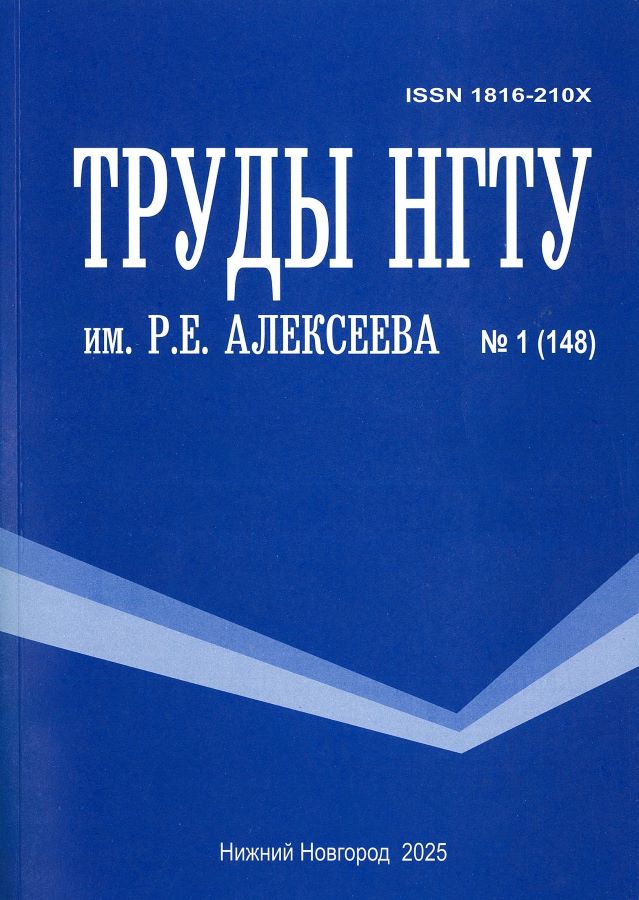
-
Trudy NGTU im. R.E. Alekseeva
A peer-reviewed scientific and technical journal.
Editor-in-Chief Andrey A. Kurkin, Professor of the Russian Academy of Sciences
Published: 4 times a year, since 2010.
Indexing: Russian Science Citation Index, Google Scholar, Ulrich's Periodicals Directory, Dimensions.
ISSN 1816-210X (Print)
-
Computational nanotechnology
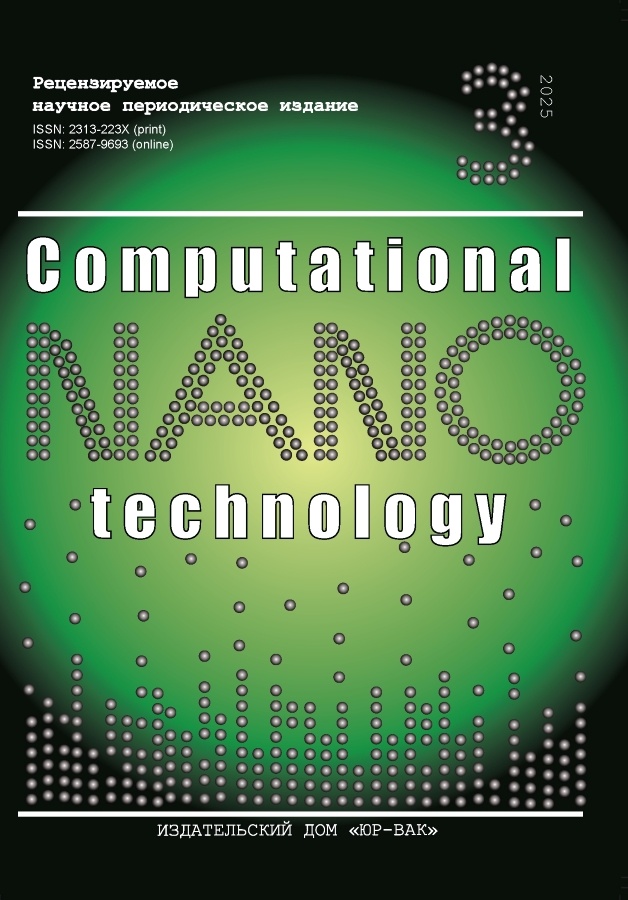
-
Computational nanotechnology
Peer-review journal.
Editor-in-Chief: Alexander M. Popov - the Doctor of Science in Physics and Mathematics, Professor
Indexation: Russian Science Citation Index, WorldCat, Google Scholar, Ulrich's Periodical Directory, Math-Net.ru, CyberLeninka, East View
Frequency of publication: 4 issues per year.
ISSN: 2313-223X (Print) ISSN 2587-9693 (Online)
-
Frontier Materials & Technologies
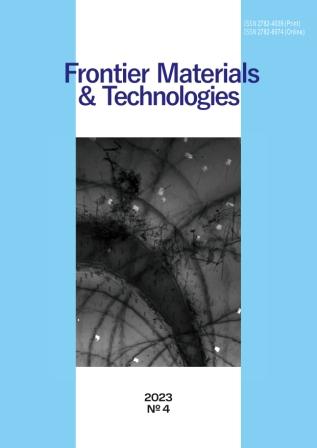
-
Frontier Materials & Technologies
Peer-review journal
Publish quarterly since 2008 in Open Access.
Editor-in-Chief: professor M.M. Krishtal.
Indexation: Russian Science Citation Index, Google Scholar, Ulrich's Periodicals directory, CrossRef, Dimensions
ISSN 2782-4039 (Print) ISSN 2782-6074 (Online)
-
Innovative Project
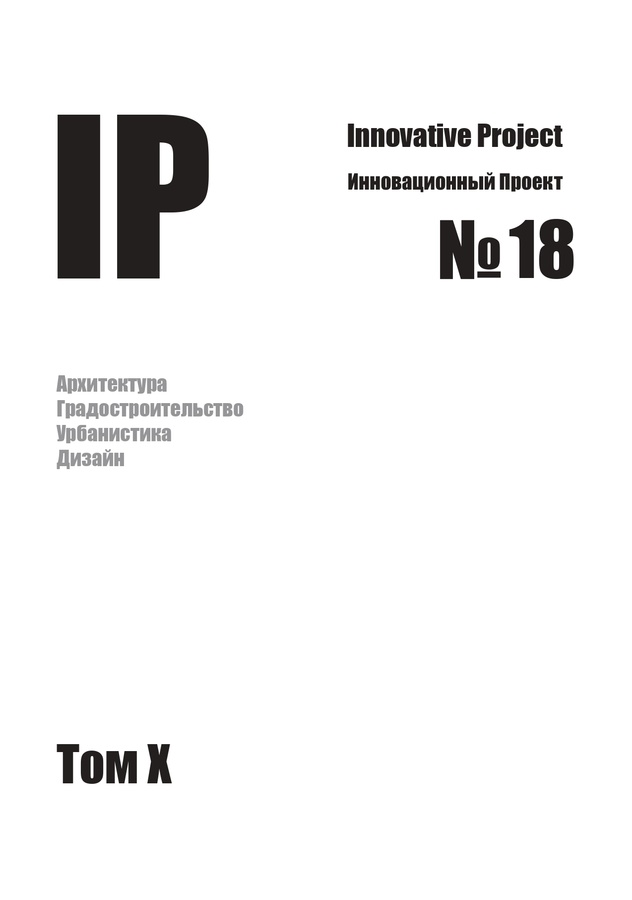
-
Innovative Project
Peer-review journal about architecture and applied arts and design.
Editor-in-Chief: Sergey Malakhov, Prof., PhD.
Indexation: Russian Science Citation Index, Google Scholar, Ulrich's Periodicals Directory, WorldCat.
ISSN: 2500-3437 (Print)
-
Analitika
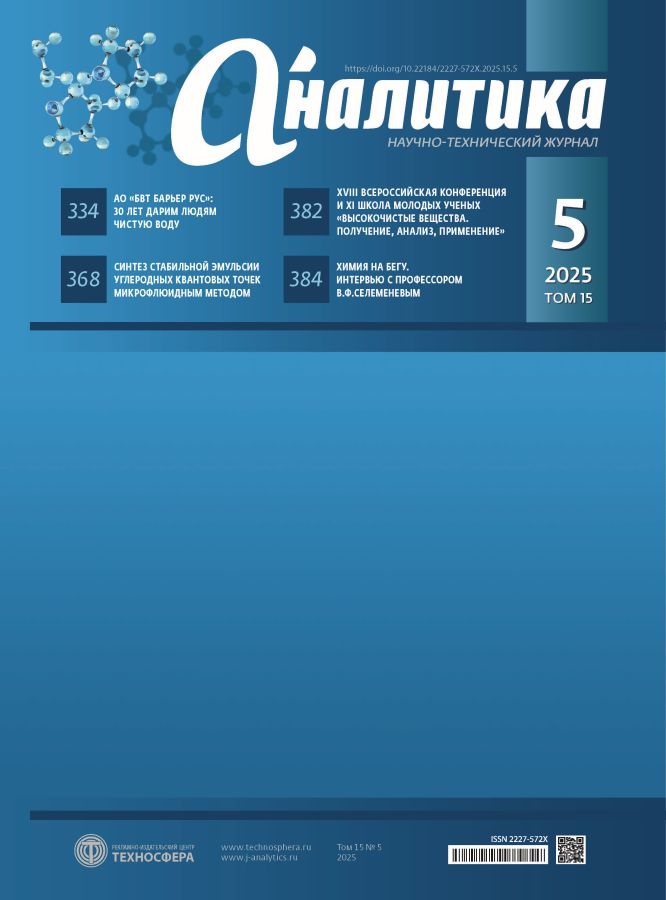
-
Analitika
Scientific and technical peer-reviewed journal
Editor-in-Chief: Vasilisa B. Baranovskaya, Doctor of Chemical Sciences, Member of the Scientific Council for Analytical Chemistry of the Russian Academy of Sciences.
Published: 6 issues per year, since 2011.
Indexing: Russian Science Citation Index (RSCI), CrossRef.
ISSN (Print) 2227-572X; ISSN (Online) 2687-1351
-
Proceedings of young scientists and specialists of the Samara University

-
Proceedings of young scientists and specialists of the Samara University
Peer-review academic journal.
Publish semiannualy in Open Access.
Editor-in-Chief: A.B. Prokofyev, PhD, Professor
Indexation: Google Scholar
ISSN 2311-4576 (Print)
-
Kazakhstan journal for oil & gas industry
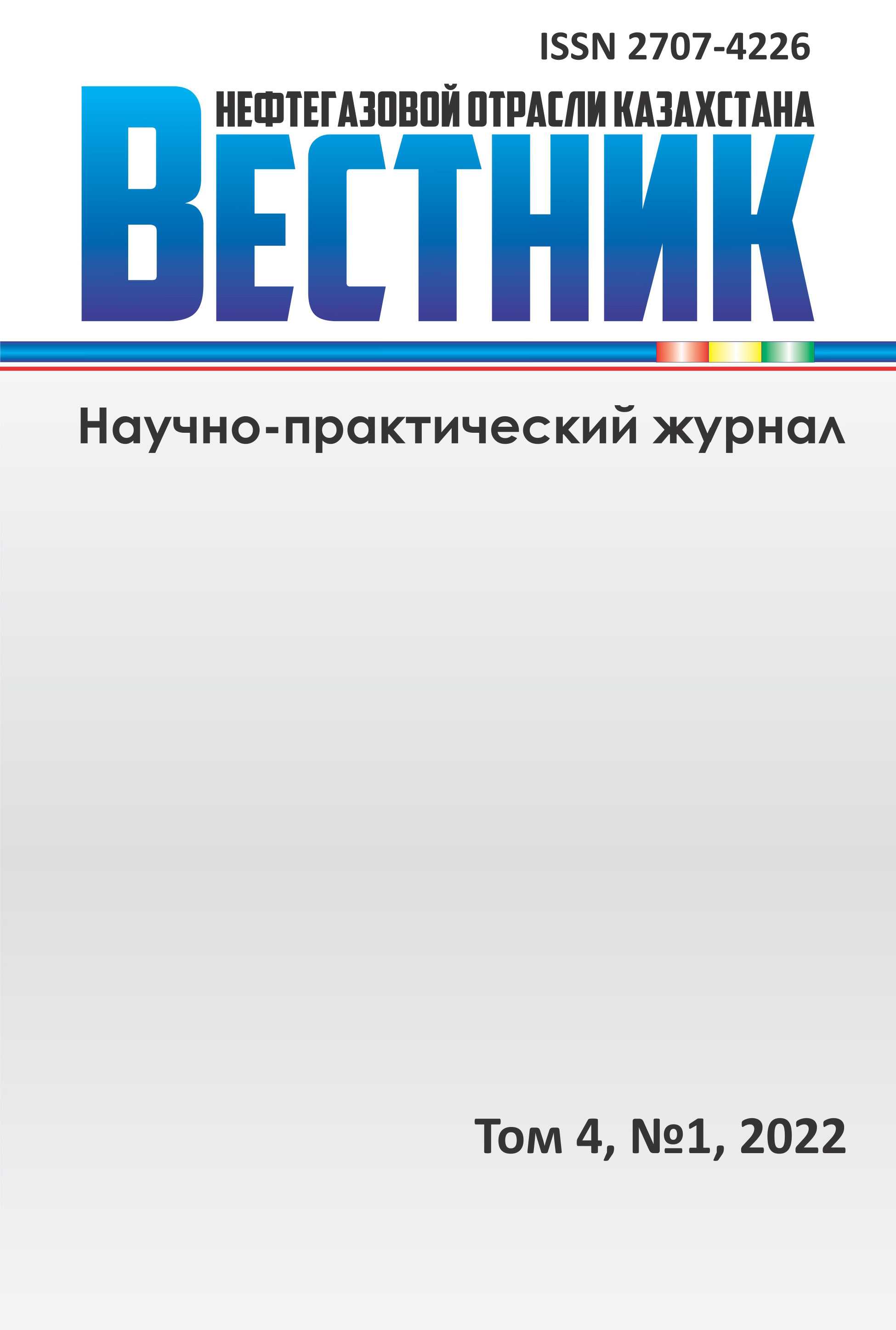
-
Kazakhstan journal for oil & gas industry
Peer-review scholarly journal.
Editor-in-Chief: Bakhytzhan K. Khasanov
Indexation: Google Scholar, Ulrich's Periodicals Directory, CrossRef
Access & Distribution: Quarterly journal; Platinum Open Access; CC BY-NC-ND 4.0.
ISSN: 2707-4226 (Print)
-
Vestnik of Samara State Technical University. Technical Sciences Series
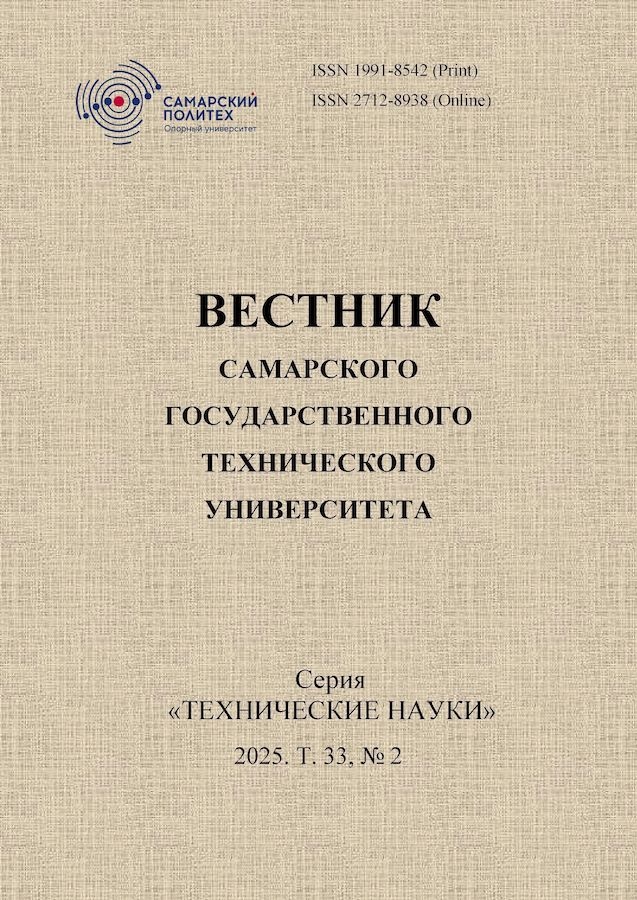
-
Vestnik of Samara State Technical University. Technical Sciences Series
Peer-review academic journal for thechnical sciences: Informatics, Computer Science and Control; Instrumentation, Metrology and Informative-measurings devices and systems; Electrical Engineering.
Publish quarterly since 1994 in Gold Open Access.
Editor-in-Chief: Dr. Sci. (Techn.), Professor Yuliya E. Pleshivtseva .
Indexing: Scholar.Google.com, eLibrary.ru, Russian Science Citation Index, lens.org, openalex.org, scilit.net, semanticscholar.org
ISSN: 1991-8542 (Print)
-
Journal of Samara State Technical University, Ser. Physical and Mathematical Sciences

-
Journal of Samara State Technical University, Ser. Physical and Mathematical Sciences
Peer-review academic journal for Differential Equations and Mathematical Physics, Mechanics of Deformable Solids, Mathematical Modeling, Numerical Methods and Software Systems.
Publish quarterly since 1996 in Open Access with no APCs.
Editor-in-Chief: PhD, Professor Vladimir P. Radchenko.
Indexing: RSCI (Web of Science), eLibrary.ru, Cyberleninka, Google Scholar, OCLC WorldCat, BASE, OpenAIRE, RePEc, Socionet, СyberLeninka.ru, Math-Net.ru
ISSN: 1991-8615 (Print); ISSN: 2310-7081 (Online)
-
VESTNIK of Samara University. Aerospace and Mechanical Engineering

-
VESTNIK of Samara University. Aerospace and Mechanical Engineering
Peer-review journal for Aircraft and Space Rocket Engineering; Mechanical Engineering; Information Science, Computing Technology and Control.
Editor-in-Chief: Evgeniy V. Shakhmatov, PhD, Professor
Indexing: Russian Index of Science Citation (eLIBRARY.RU), DOAJ, Russian Science Citation Index (Web of Science), CIBERLENINKA; Inspec, Academic Search Ultimate (EBSCOhost), EastView, Urlich’s Periodicals Directory, CrossRef.
Publishes quarterly from 2002 in Open Access.
ISSN: 2542-0453 (Print) ISSN: 2541-7533 (Online)
-
Yugra State University Bulletin

-
Yugra State University Bulletin
Рeer-review academic journal. Main fields: economic sciences; Earth Sciences; technical sciences.
Editor-in-Cheif: Valery F. Lapshin, Doctor of Law, Associate Professor,
Indexing: Russian Science Citation Index, Google Scholar, Ulrich's Periodical directory, WorldCat, Cyberleninka, ЭБС "Лань"
ISSN: 1816-9228 (Print) ISSN: 2078-9114 (Online)
-
Urban construction and architecture

-
Urban construction and architecture
Peer-review academic journal.
Editor-in-Chief: Alexander K. Strelkov, Dr.Sci.
Indexation: Russian Science Citation Index, Google Scholar, Ulrich's Periodicals Directory, WorldCat.
Publication: 4 issues per year in Gold Open Access (CC BY 4.0 International).
ISSN: 2542-0151 (Print)
-
Journal of Dynamics and Vibroacoustics

-
Journal of Dynamics and Vibroacoustics
Peer-review academic journal.
Publish quarterly since 2014 in Open Access.
Editor-in-Chief: Evgeniy V. Shakhmatov, PhD, Professor.
Indexation: Russian Science Citation Index, Google Scholar, WorldCat, Ulrich's Periodicals Directory
ISSN 2409-4579 (Print)
-
Housing Construction
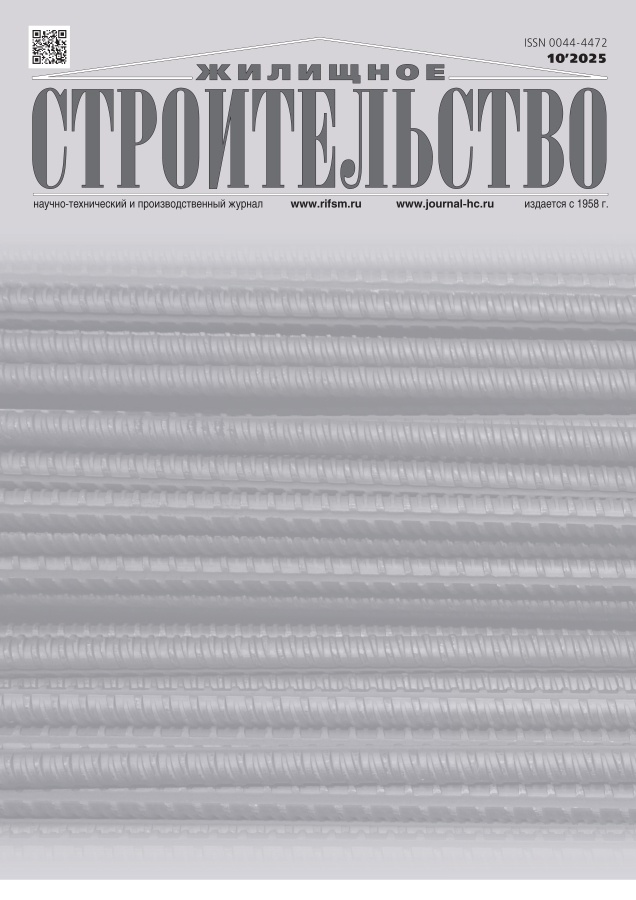
-
Housing Construction
Periodical scientific and technical journal.
Editor-in-Chief: Elena Yumasheva, engineer chemist-technologist
Published: 12 per year, since 1958
Indexing: Russian Science Citation Index (RSCI), CrossRef, Google Scholar, Ulrich's Periodicals Directory, WorldCat.
ISSN 0044-4472 (Print)
-
Zemlâ i vselennaâ

-
Zemlâ i vselennaâ
Peer-review popular science journal.
Editor-in-Chief: Lev Zelenyi, academician of RAS .
Indexation: Russian Science Citation Index, Google Scholar, Ulrich's Periodicals Directory, Dimensions, Crossref.
Access & Publication frequency: Subscription, bimonthly issuing.
Peer-Review & APC: double blind; no article processing charge.
ISSN: 0044-3948 (Print)
-
Izvestiya MGTU MAMI
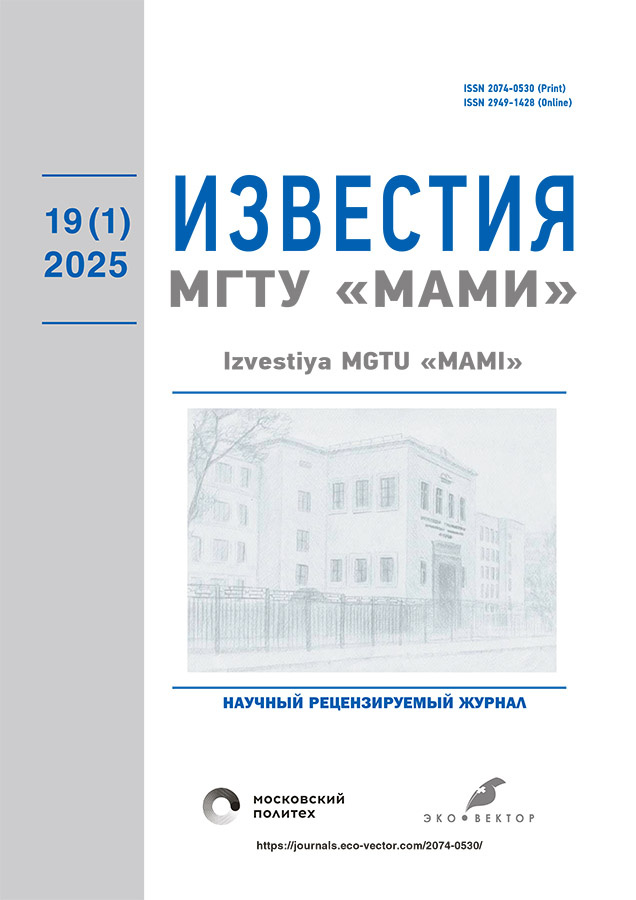
-
Izvestiya MGTU MAMI
Academic quarterly peer-review journal.
Editor-in-Chief: Alexander V. Lepeshkin, Ph.D., Professor
Indexing: Russian Science Citation Index, Google Scholar, CrossRef, Dimensions, Ulrich's Periodicals Directory
ISSN 2074-0530 (Print) ISSN 2949-1428 (Online)
-
Izvestiya of Samara Scientific Center of the Russian Academy of Sciences

-
Izvestiya of Samara Scientific Center of the Russian Academy of Sciences
Multidisciplinary peer-review journal.
Editor-in-Chief: Doctor of Technical Sciences, Academician of RAS, professor Grechnikov Fedor V.
Indexing: Russian Science Citation Index, WorldCat, Google Scholar,Ulrich's Periodicls Directory.
ISSN: 2658-4816 (Print).
-
Modern Transportation Systems and Technologies

-
Modern Transportation Systems and Technologies
Electronic peer-reviewed research journal.
Main fields: physics; mathematics; engineering; transport economics.
Editor-in-Chief: Aleksandr Y. Panychev, Ph.D. in Economics, Associate Professor; Rector Emperor Alexander I St. Petersburg State Transport University, Chairman of the Academic Council.Indexing: Russian Science Citation Index, Higher Attestation Commission of Russia’s Ministry of Education and Science (VAK), Google Scholar, WorldCat, CrossRef, .
ISSN: 2782-3733 (Online)
-
Infokommunikacionnye tehnologii

-
Infokommunikacionnye tehnologii
Peer-review academic journal on IT.
Editor-in-Chief: V.A. Andreev, Dr.Sci (technics), professor.
Indexation: Rissian Science Citation Index, Google Scholar, Ulrich's Periodicals Directory, WorldCat.
Publication: quarterly in Gold Open Access (CC BY-NC-ТВ 4.0 Indernational).
ISSN: 2073-3909 (Print)
-
Mathematics, Economics and Management

-
Mathematics, Economics and Management
Peer-review academic journal.
Publish quarterly since 2015 in Open Access.
Editor-in-Chief: Vladimir D. Bogatyrev, PhD, Professor.
Indexation: Russian Science Citation Index, Google Scholar, WorldCat, Ulrich's Periodicals Directory
ISSN 2411-5452 (Print)
-
Nanoindustry
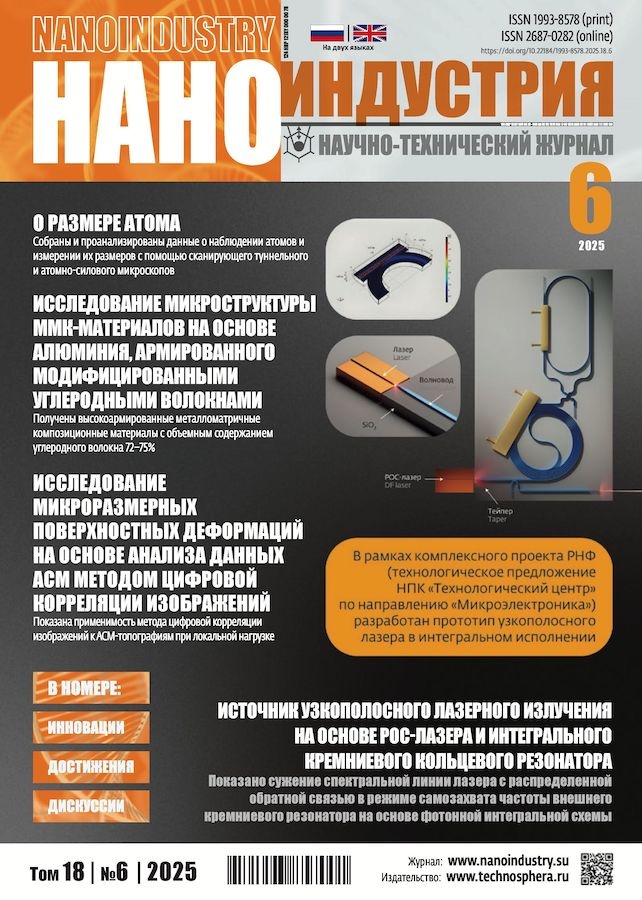
-
Nanoindustry
Scientific peer-reviewed technical journal.
Editor-in-Chief: Vyacheslav V. Svetukhin, Doctor of Physical and Mathematical Sciences, Corresponding Member of the Russian Academy of Sciences, Professor, Director of the Scientific and Production Complex "Technological Center".
Indexation: Russian Science Citation Index, RSCI, CrossRef, Google Scholar, Ulrich's Periodicals Directory, WorldCat.
Published: 8 issues per year; publishes since 2007.
ISSN (Print) 1993-8578; ISSN (Online) 2687-0282
-
Nauka Yuga Rossii

-
Nauka Yuga Rossii
Scientific peer-reviewed journal
Editor-in-Chief: Gennady G. Matishov, Academician of the Russian Academy of Sciences, Doctor of Geographical Sciences, Professor.
Published: 4 issues per year, since 2004.
Indexing: Russian Science Citation Index (RSCI), Google Scholar, ZooBank (International Commission on Zoological Nomenclature), Zoological Record (Thomson Reuters), CrossRef.
ISSN 2500-0640 (Print)
-
Ontology of Designing

-
Ontology of Designing
A peer-reviewed scientific and technical journal.
Editor-in-Chief: Petr O. Skobelev
Published: 4 times a year, since 2011.
Indexing: Russian Science Citation Index, Google Scholar, Dimensions, Ulrichs, Dimensions.
ISSN 2223-9537 (Print) ISSN 2313-1039 (Online)
-
Siberian Aerospace Journal
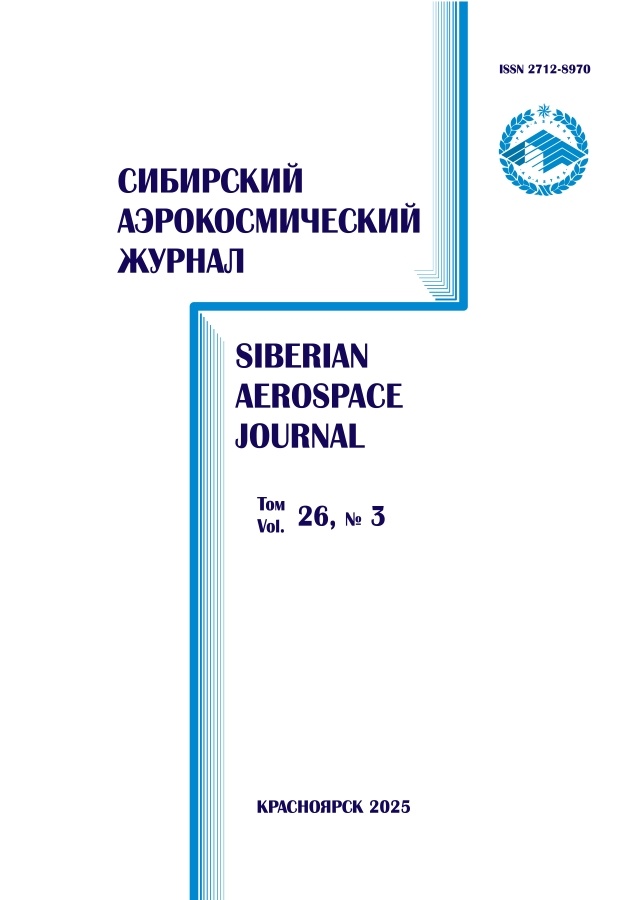
-
Siberian Aerospace Journal
Peer-review academic journal.
Editor-in-Chief: professor Sergei S. Aplesnin, PhD.
Indexation: Google Scholar, RSCI, CrossRef, Ulrich's Periodicals Directory, Russian Science Citation Index.
Open Access & Publication frequency: Gold Open Access; quarterly issuing.
Peer-Review & APC: single-blind; no article processing charge.
ISSN: 2712-8970 (Print) ISSN 2782-5760 (Online)
-
Stankoinstrument

-
Stankoinstrument
Scientific and technical peer-reviewed journal.
Editor-in-Chief: Sergey V. Novikov, Candidate of Science (Engineering).
Published: 4 issues per year, since 2015.
Indexing: Russian Science Citation Index (RSCI), CrossRef, Ulrich's Periodicals Directory, WorldCat.
ISSN (Print) 2499-9407
-
Construction Materials

-
Construction Materials
Periodical scientific journal.
Editor-in-Chief: Elena Yumasheva, engineer chemist-technologist
Published: 12 per year, since 1955
Indexing: Russian Science Citation Index (RSCI), CrossRef, Google Scholar, Ulrich's Periodicals Directory.
ISSN 0044-4472 (Print) ISSN (Online) 2658-6991
-
Tractors and Agricultural Machinery
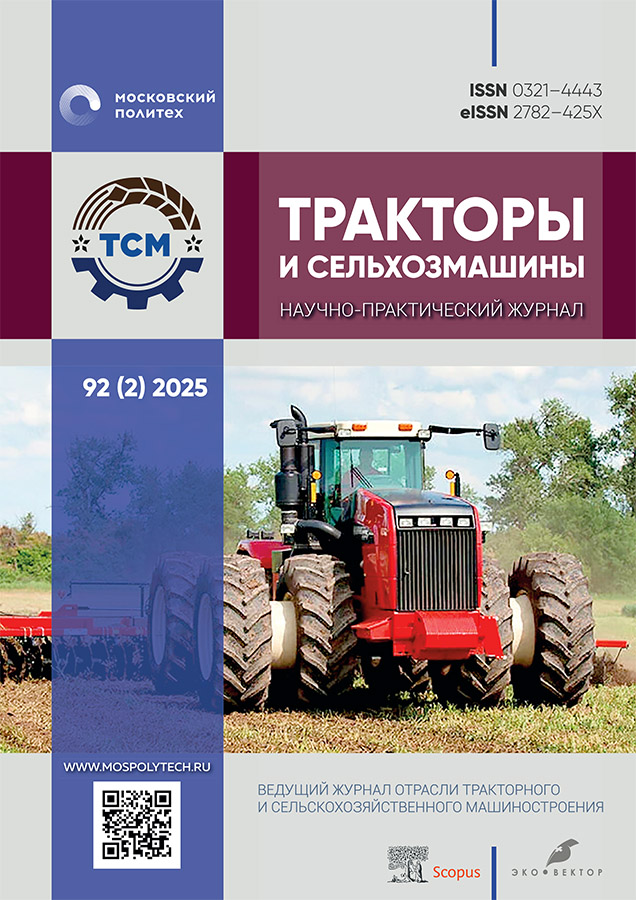
-
Tractors and Agricultural Machinery
Academic research peer-review journal.
Editor-in-Chief: Valery Kaminsky, Ph.D., Professor
Indexing: SCOPUS, Russian Science Citation Index, Google Scholar, Ulrich's Periodicals Directory, Dimensions, Crossref.
ISSN: 0321-4443 (Print)
-
Transactions of the St. Petersburg State Marine Technical University
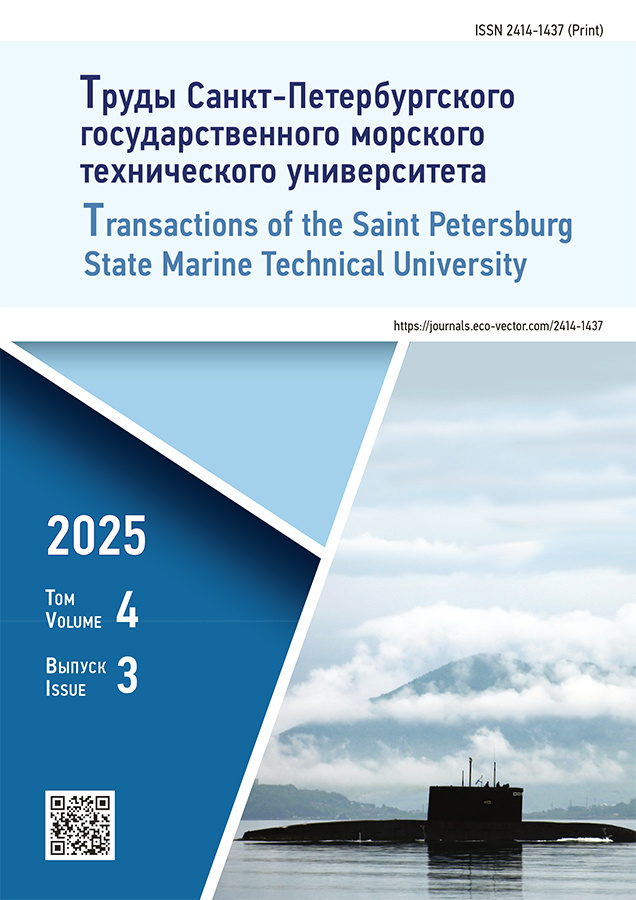
-
Transactions of the St. Petersburg State Marine Technical University
Peer-review scholarly journal.
Editor-in-Chief: Denis I. Kuznetsov, D.Sc. (eng), Associate Professor.
Indexation: Russian Science Citation Index, Google Scholar, Ulrich's Periodicals Directory.
Open Access & Publication frequency: Diamond Open Access; quarterly issuing.
Peer-Review & APC: double blind; no article processing charge.
ISSN 2414-1437 (Print)
-
Physics of Wave Processes and Radio Systems

-
Physics of Wave Processes and Radio Systems
Peer-review academic journal on physics.
Editor-in-Chief: Dmitry S. Kluev, Dr.Sci (physics), associate professor.
Indexation: Rissian Science Citation Index, Google Scholar, Ulrich's Periodicals Directory, WorldCat.
Publication: quarterly in Gold Open Access (CC BY-NC-ND 4.0 International).
ISSN: 1810-3189 (Print)
-
Photonics Russia
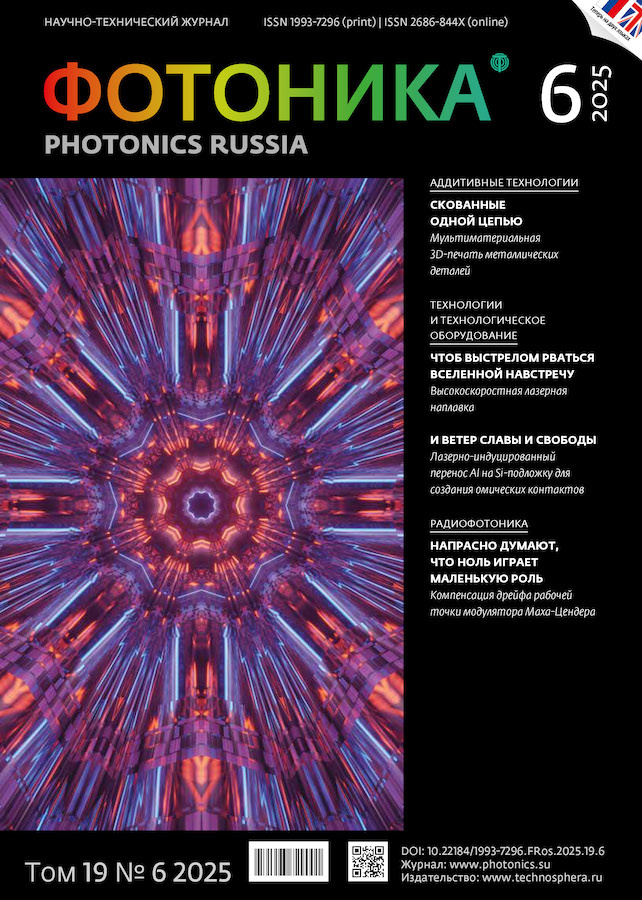
-
Photonics Russia
Scientific and technical peer-reviewed journal
Editor-in-Chief: Istomina Natalya Leonidovna, Doctor of Physical and Mathematical Sciences, specializing in physical electronics, Moscow Aviation Institute (national research university), Department of Innovation Management (Moscow).
Frequency: 8 issues per year; publishes since 2007.
Indexation: Russian Science Citation Index RSCI, CrossRef, Google Scholar, Scopus, VINITI RAS (RZh 18L Optics and Laser Physics), Chemical Abstracts.
ISSN (Print) 1993-7296; ISSN (Online) 2686-844X
-
Refrigeration Technology
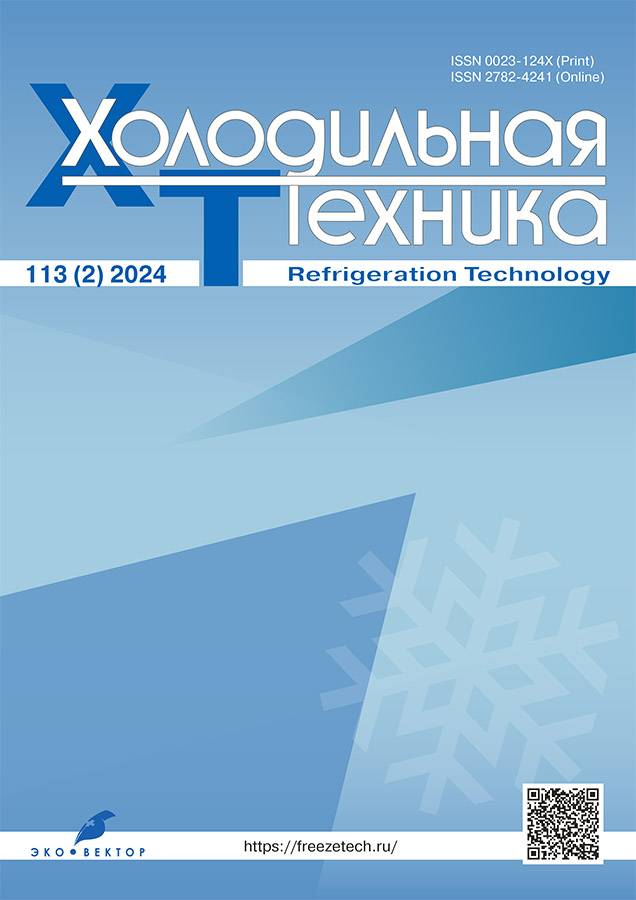
-
Refrigeration Technology
Technical peer-review quarterly journal.
Editor-in-Chief: Maxim. S. Talyzin, Cand. Sci. (Tech.).
Indexing: WorldCat; AGRIS; Google Scholar; BASE; RSCI.
ISSN 0023-124X (Print) ISSN 2782-4241 (Online)
-
Elektronika: Nauka, Tekhnologiya, Biznes

-
Elektronika: Nauka, Tekhnologiya, Biznes
Periodical scientific and technical journal.
Editor-in-Chief: Alexander S. Sigov, Academician of the Russian Academy of Sciences, President of the Moscow State Institute of Radio Engineering, Electronics and Automation (Technical University).
Published: 10 раза в год, с 1996 г.
Indexing: Russian Science Citation Index (RSCI), CrossRef, Google Scholar, Ulrich's Periodicals Directory, WorldCat.
ISSN 1992-4178 (Print) ISSN 1992-4186 (Online)
-
Energiia: ekonomika, tekhnika, ekologiia

-
Energiia: ekonomika, tekhnika, ekologiia
Monthly scientific-popular and socio-political edition of the Russian Academy of Sciences.
Editor-in-Chief: Vyacheslav M. Batenin, Associate Member of the Russian Academy of Sciences, Doctor of Technical Sciences.
Indexation: RSCI, Google Scholar, CrossRef.
Frequency of publication: 12 issues per year.
ISSN: 0233-3619 (Print).
-
Pediatric Hematology/Oncology and Immunopathology

-
Pediatric Hematology/Oncology and Immunopathology
Peer-review medical journal.
Editor-in-Chief: Professor Galina A. Novichkova, MD, PhD.
Indexation: SCOPUS, Russian Science Citation Index, CNKI, Google Scholar, Ulrich's Periodicals Directory, Dimensions.
Open Access & Publication frequency: Diamond Open Access; quarterly issuing.
Peer-Review & APC: double blind; no article processing charge.
ISSN 1726-1708 (Print), ISSN 2414-9314 (Online)
-
Bulletin of the Russian Society of Professionals in Medical and Social Expertise, Rehabilitation and Rehabilitational Industry
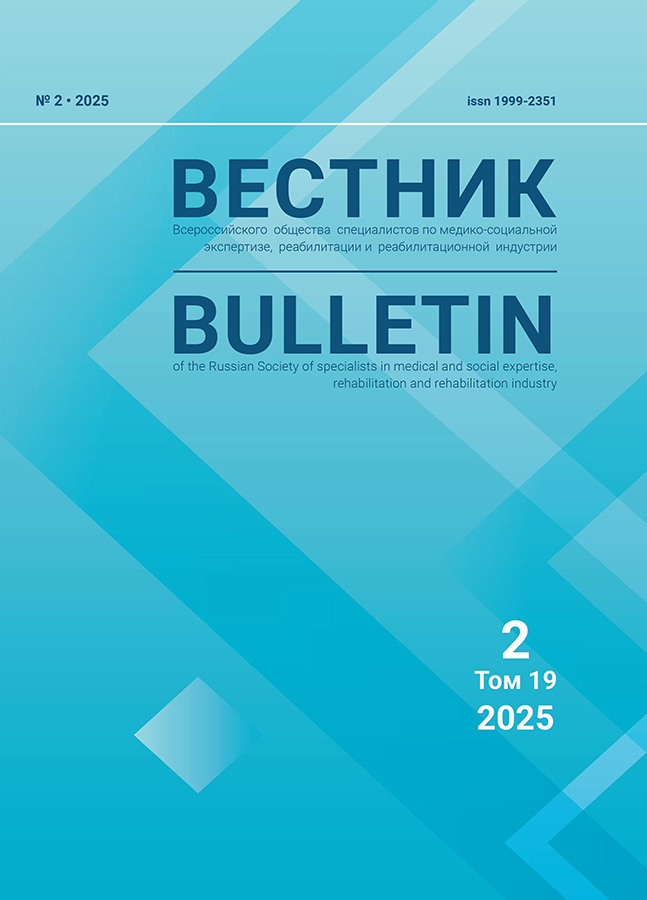
-
Bulletin of the Russian Society of Professionals in Medical and Social Expertise, Rehabilitation and Rehabilitational Industry
Peer-review medical journal
Publish quarterly since 2008
Editor-in-Chief: professor S.N. Puzin.
Indexation:Russian Science Citation Index, Google Scholar, Cyberleninka, Dimensions, Crossref.
ISSN 1999-2351 (Print)
-
Current Nanomedicine

-
Current Nanomedicine
Peer-review Journal of Bentham Science.
Publish 3 issues annually since 2011.
Editor-in-Chief: professor Victor M. Castano.
Indexation: British Library, Cabell's Directory/Journalytics, Chemical Abstracts Service/SciFinder, CNKI Scholar, EBSCO, EMBASE, Google Scholar, J-Gate, JournalTOCs, OpenAire, PubsHub, QOAM, Scilit, Scopus, Suweco CZ, Ulrich's Periodicals Directory
ISSN 2468-1873 (Print) ISSN 2468-1881 (Online)
-
Anti-Cancer Agents in Medicinal Chemistry

-
Anti-Cancer Agents in Medicinal Chemistry
Peer-review Journal of Bentham Science.
Publish 20 issues annually since 2001.
Editor-in-Chief: professor Simone Carradori.
Indexation: BIOSIS Previews, BIOSIS Reviews Reports and Meetings, British Library, Cabell's Directory/Journalytics, Cambridge Scientific Abstracts (CSA)/ProQuest, Chemical Abstracts Service/SciFinder, CNKI Scholar, EBSCO, EMBASE, Genamics Journal Seek, Google Scholar, J-Gate, JournalTOCs, MediaFinder®-Standard Periodical Directory, Norwegian Register, OpenAire, PubsHub, QOAM, Scilit, Scopus, Suweco CZ, Ulrich's Periodicals Directory
ISSN 1871-5206 (Print) ISSN 1875-5992 (Online)
-
Anti-Infective Agents

-
Anti-Infective Agents
Peer-review Journal of Bentham Science.
Publish 5 issues annually since 2003.
Editor-in-Chief: professor Giovanni Gherardi .
Indexation: BIOSIS Previews, BIOSIS Reviews Reports and Meetings, British Library, Cabell's Directory/Journalytics, Cambridge Scientific Abstracts (CSA)/ProQuest, Chemical Abstracts Service/SciFinder, CNKI Scholar, EBSCO, EMBASE, Genamics Journal Seek, Google Scholar, J-Gate, JournalTOCs, MediaFinder®-Standard Periodical Directory, Norwegian Register, OpenAire, PubsHub, QOAM, Scilit, Scopus, Suweco CZ, Ulrich's Periodicals Directory
ISSN 2211-3525 (Print) ISSN 2211-3533 (Online)
-
Anti-Inflammatory & Anti-Allergy Agents in Medicinal Chemistry

-
Anti-Inflammatory & Anti-Allergy Agents in Medicinal Chemistry
Peer-review Journal of Bentham Science.
Publish 4 issues annually since 2002.
Editor-in-Chief: professor Claudiu T. Supuran.
Indexation: BIOSIS Previews, BIOSIS Reviews Reports and Meetings, British Library, Cabell's Directory/Journalytics, Cambridge Scientific Abstracts (CSA)/ProQuest, Chemical Abstracts Service/SciFinder, CNKI Scholar, EBSCO, EMBASE, ERA 2018, Genamics Journal Seek, Google Scholar, Index Medicus, J-Gate, JournalTOCs, MediaFinder®-Standard Periodical Directory, Medline/PubMed, Norwegian Register, OpenAire, PubsHub, QOAM, Scilit, Scopus, Suweco CZ, Ulrich's Periodicals Directory
ISSN 1871-5230 (Print) ISSN 1875-614X (Online)
-
Combinatorial Chemistry & High Throughput Screening

-
Combinatorial Chemistry & High Throughput Screening
Peer-review Journal of Bentham Science.
Publish 14 issues annually since 1998.
Editor-in-Chief: professor Gerald H. Lushington.
Indexation: BIOSIS Previews, BIOSIS Reviews Reports and Meetings, British Library, CAB Abstracts, Cabell's Directory/Journalytics, Cambridge Scientific Abstracts (CSA)/ProQuest, Chemical Abstracts Service/SciFinder, CNKI Scholar, Current Contents® - Life Sciences, EBSCO, EMBASE, EMBiology, ERA 2018, Essential Science Indicators, Genamics Journal Seek, Google Scholar, Index Copernicus, Index Medicus, J-Gate, Journal Citation Reports/Science Edition, JournalTOCs, MediaFinder®-Standard Periodical Directory, MEDLINE/PubMed, Norwegian Register, OpenAire, PubsHub, QOAM, Science Citation Index Expanded™ (SciSearch®), Science Gate, Scilit, Scopus, Suweco CZ, Ulrich's Periodicals Directory
ISSN 1386-2073 (Print) ISSN 1875-5402 (Online)
-
Current Aging Science

-
Current Aging Science
Peer-review Journal of Bentham Science.
Publish 3 issues annually since 2008.
Editor-in-Chief: professor Sergio L. Schmidt
Indexation: British Library, Cabell's Directory/Journalytics, Chemical Abstracts Service/SciFinder, CNKI Scholar, EBSCO, EMBASE, EMCare, ERA 2018, Genamics Journal Seek, Google Scholar, Index Medicus, J-Gate, JournalTOCs, MediaFinder®-Standard Periodical Directory, MEDLINE/PubMed, Norwegian Register, OpenAire, PubsHub, QOAM, Scilit, Scopus, Suweco CZ, Ulrich's Periodicals Directory
ISSN 1874-6098 (Print) ISSN 1874-6128 (Online)
-
Current Alzheimer Research

-
Current Alzheimer Research
Peer-review Journal of Bentham Science.
Publish 12 issues annually since 2004.
Editor-in-Chief: professor Thomas V. Groen.
Indexation: BIOSIS Previews, BIOSIS Reviews Reports and Meetings, British Library, Cabell's Directory/Journalytics, Cambridge Scientific Abstracts (CSA)/ProQuest, Chemical Abstracts Service/SciFinder, CNKI Scholar, Current Contents® - Life Sciences, EBSCO, EMBASE, EMBiology, EMCare, Essential Science Indicators, Genamics Journal Seek, Google Scholar, Index Copernicus, Index Medicus, J-Gate, Journal Citation Reports/Science Edition, JournalTOCs, MediaFinder®-Standard Periodical Directory, MEDLINE/PubMed, Norwegian Register OpenAire, PsycINFO, PubsHub, QOAM, Science Citation Index Expanded™ (SciSearch®), ScienceGate, Scilit, Scopus, Suweco CZ, Ulrich's Periodicals Directory
ISSN 1567-2050 (Print) ISSN 1567-2050 (Online)
-
Current Bioinformatics

-
Current Bioinformatics
Peer-review Journal of Bentham Science.
Publish 10 issues annually since 2006.
Editor-in-Chief: professor Quan Zou.
Indexation: Biological Abstracts, BIOSIS Previews, British Library, Cabell's Directory/Journalytics, Cambridge Scientific Abstracts (CSA)/ProQuest, Chemical Abstracts Service/SciFinder, CNKI Scholar, EBSCO, EI Compendex, EMBASE, Essential Science Indicators, Genamics Journal Seek, Google Scholar, Index Copernicus, J-Gate, Journal Citation Reports/Science Edition, JournalTOCs, MediaFinder®-Standard Periodical Directory, Norwegian Register, OpenAire, PubsHub, QOAM, Science Citation Index Expanded™ (SciSearch®), Scilit, Scopus, Suweco CZ, Ulrich's Periodicals Directory
ISSN 1574-8936 (Print) ISSN 2212-392X (Online)
-
Current Chemical Biology

-
Current Chemical Biology
Peer-review Journal of Bentham Science.
Publish 4 issues annually since 2007.
Executive Editor: professor Atta-ur-Rahman.
Indexation: British Library, Cabell's Directory/Journalytics, Cambridge Scientific Abstracts (CSA)/ProQuest, Chemical Abstracts Service/SciFinder, CNKI Scholar, EBSCO, EMBASE, Genamics Journal Seek, Google Scholar, J-Gate, JournalTOCs, MediaFinder®-Standard Periodical Directory, OpenAire, PubsHub, QOAM, Scilit, Scopus, Suweco CZ, Ulrich's Periodicals Directory
ISSN 2211-3525 (Print) ISSN 2211-3533 (Online)
-
Current Computer-Aided Drug Design

-
Current Computer-Aided Drug Design
Peer-review Journal of Bentham Science.
Publish 6 issues annually since 2005.
Editor-in-Chief: professor Dong-Qing Wei.
Indexation: British Library, Cabell's Directory/Journalytics, Cambridge Scientific Abstracts (CSA)/ProQuest, Chemical Abstracts Service/SciFinder, CNKI Scholar, EBSCO, EI Compendex, EMBASE, Essential Science Indicators, Genamics Journal Seek, Google Scholar, Index Copernicus, Index Medicus, J-Gate, Journal Citation Reports/Science Edition, JournalTOCs, MediaFinder®-Standard Periodical Directory, MEDLINE/PubMed, OpenAire, PubsHub, QOAM, Science Citation Index Expanded™ (SciSearch®), Scilit, Scopus, Suweco CZ, Ulrich's Periodicals Directory
ISSN 1573-4099 (Print) ISSN 1875-6697 (Online)
-
Current Diabetes Reviews

-
Current Diabetes Reviews
Peer-review Journal of Bentham Science.
Publish 10 issues annually since 2005.
Editor-in-Chief: professor Robert P. Hoffman.
Indexation: British Library, Cabell's Directory/Journalytics, Cambridge Scientific Abstracts (CSA)/ProQuest, Chemical Abstracts Service/SciFinder, CNKI Scholar, EBSCO, EMBASE, EMCare, Emerging Sources Citation Index (ESCI), ERA 2018, Genamics, Journal Seek, Google Scholar, Index Medicus, J-Gate, JournalTOCs, MediaFinder®-Standard Periodical Directory, MEDLINE/PubMed, Norwegian Register OpenAire, PubsHub, QOAM, Scilit, Scopus, Suweco CZ, Ulrich's Periodicals Directory
ISSN 1573-3998 (Print) ISSN 1875-6417 (Online)
-
Current Gene Therapy

-
Current Gene Therapy
Peer-review Journal of Bentham Science.
Publish 5 issues annually since 2001.
Editor-in-Chief: professor Liang Cheng.
Indexation: Biological Absracts, BIOSIS Previews, British Library, Cabell's Directory/Journalytics, Cambridge Scientific Abstracts (CSA)/ProQuest, Chemical Abstracts Service/SciFinder, CNKI Scholar, Current Contents® - Life Sciences, EBSCO, EMBASE, ERA 2018, Essential Science Indicators, Genamics Journal Seek, Google Scholar, Index Copernicus, Index Medicus, J-Gate, Journal Citation Reports/Science Edition, JournalTOCs, MediaFinder®-Standard Periodical Directory, MEDLINE/PudMed, Norwegian Register, OpenAire, PubsHub, QOAM, Science Citation Index Expanded™ (SciSearch®), Scilit, Scopus, Suweco CZ, Ulrich's Periodicals Directory
ISSN 1566-5232 (Print) ISSN 1875-5631 (Online)
-
Current HIV Research

-
Current HIV Research
Peer-review Journal of Bentham Science.
Publish 5 issues annually since 2003.
Editor-in-Chief: professor Yuntao Wu.
Indexation: BIOSIS Previews, BIOSIS Reviews Reports and Meetings, British Library, CAB Abstracts, Cabell's Directory/Journalytics, Cambridge Scientific Abstracts (CSA)/ProQuest, Chemical Abstracts Service/SciFinder, CNKI Scholar, EBSCO, EMBiology, Essential Science Indicators, Genamics Journal Seek, Google Scholar, Index Copernicus, Index Medicus, J-Gate, Journal Citation Reports/Science Edition, JournalTOCs, MediaFinder®-Standard Periodical Directory, MEDLINE/PubMed, OpenAire, PubsHub, QOAM, Science Citation Index Expanded™ (SciSearch®), Scilit, Scopus, Suweco CZ, Ulrich's Periodicals Directory
ISSN 1570-162X (Print) ISSN 1873-4251 (Online)
-
Current Medicinal Chemistry

-
Current Medicinal Chemistry
Peer-review Journal of Bentham Science.
Publish 42 issues annually since 1994.
Editor-in-Chief: professor Atta-ur-Rahman.
Indexation: Biological Abstracts, BIOSIS Previews, British Library, CAB Abstracts, Cabell's Directory/Journalytics, Chemical Abstracts Service/SciFinder, CNKI Scholar, Current Contents® - Life Sciences, EBSCO, EMBASE, EMBiology, ERA 2018, Essential Science Indicators, Genamics Journal Seek, Google Scholar, Index Copernicus, Index Medicus, J-Gate, Journal Citation Reports/Science Edition, JournalTOCs, MediaFinder®-Standard Periodical Directory, MEDLINE/PubMed, Norwegian Register, OpenAire, PubsHub, QOAM, Science Citation Index Expanded™ (SciSearch®), ScienceGate, Scilit, Scopus, Suweco CZ, Ulrich's Periodicals Directory
ISSN 0929-8673 (Print) ISSN 1875-533X (Online)
-
Current Nanomaterials

-
Current Nanomaterials
Peer-review Journal of Bentham Science.
Publish 4 issues annually since 2016.
Editor-in-Chief: professor Manoj Gupta.
Indexation: British Library, Cabell's Directory/Journalytics, Chemical Abstracts Service/SciFinder, CNKI Scholar, EI Compendex, Google Scholar, J-Gate, JournalTOCs, OpenAire, QOAM, Scilit, Scopus, Ulrich's Periodicals Directory
ISSN 2405-4615 (Print) ISSN 2405-4623 (Online)
-
Current Neuropharmacology

-
Current Neuropharmacology
Peer-review Journal of Bentham Science.
Publish 14 issues annually since 2003.
Editor-in-Chief: professor Ferdinando Nicoletti.
Indexation: BIOSIS Previews, BIOSIS Reviews Reports and Meetings, British Library, Cabell's Directory/Journalytics, Cambridge Scientific Abstracts, Chemical Abstracts Service/SciFinder, CNKI Scholar, EBSCO, EMBASE, EMBiology, ERA 2018, Essential Science Indicators, Europe PMC, Genamics Journal Seek, Google Scholar, Index Copernicus, Index Medicus, J-Gate, Journal Citation Reports/Science Edition, JournalTOCs, MediaFinder®-Standard Periodical Directory, MEDLINE/PubMed, Norwegian Register, OpenAire, PMC (PubMed Central), PsycINFO, PubsHub, QOAM, Science Citation Index Expanded™ (SciSearch®), Science Gate, Scilit, Scopus, Suweco CZ, Ulrich's Periodicals Directory
ISSN 1570-159X (Print) ISSN 1875-6190 (Online)
-
Current Neurovascular Research

-
Current Neurovascular Research
Peer-review Journal of Bentham Science.
Publish 3 issues annually since 2004
Editor-in-Chief: professor Kenneth Maiese.
Indexation: Biological Abstracts, BIOSIS Previews, British Library, Cabell's Directory/Journalytics, Cambridge Scientific Abstracts (CSA)/ProQuest, Chemical Abstracts Service/SciFinder, CNKI Scholar, Current Contents® - Life Sciences, EBSCO, EMBASE, EMBiology, ERA 2018, Essential Science Indicators, Genamics Journal Seek, Google Scholar, Index Copernicus, Index Medicus, J-Gate, Journal Citation Reports/Science Edition, JournalTOCs, MediaFinder®-Standard Periodical Directory, MEDLINE/PubMed, Norwegian Register, OpenAire, PubsHub, QOAM, Science Citation Index Expanded™ (SciSearch®), Science Gate, Scilit, Scopus, Suweco CZ, Ulrich's Periodicals Directory
ISSN 1567-2026 (Print) ISSN 1875-5739 (Online)
-
Current Pediatric Reviews

-
Current Pediatric Reviews
Current Pediatric Reviews.
Publish 4 issues annually since 2005.
Editor-in-Chief: professor Giuseppe Buonocore.
Indexation: British Library, Cabell's Directory/Journalytics, Cambridge Scientific Abstracts (CSA)/ProQuest, Chemical Abstracts Service/SciFinder, CNKI Scholar, EBSCO, EMBASE, Emerging Sources Citation Index (ESCI), ERA 2018, Genamics Journal Seek, Google Scholar, Index Medicus, J-Gate, JournalTOCs, MediaFinder®-Standard Periodical Directory, MEDLINE/PubMed, Norwegian Register, OpenAire, PubsHub, QOAM, Scilit, Scopus, Suweco CZ, Ulrich's Periodicals Directory
ISSN 1573-3963 (Print) ISSN 1875-6336 (Online)
-
Current Protein & Peptide Science

-
Current Protein & Peptide Science
Peer-review Journal of Bentham Science.
Publish 12 issues annually since 2000.
Editor-in-Chief: professor Anna M. Papini.
Indexation: BIOSIS Previews, BIOSIS Reviews Reports and Meetings, British Library, Cabell's Directory/Journalytics, Cambridge Scientific Abstracts (CSA)/ProQuest, Chemical Abstracts Service/SciFinder, CNKI Scholar, EBSCO, EMBASE, EMBiology, Genamics Journal Seek, Google Scholar, Index Copernicus, Index Medicus, J-Gate, Journal Citation Reports/Science Edition, JournalTOCs, MediaFinder®-Standard Periodical Directory, MEDLINE/PubMed, Norwegian Register, OpenAire, PubsHub, QOAM, Science Citation Index Expanded™ (SciSearch®), Science Gate, Scilit, Scopus, Suweco CZ, Ulrich's Periodicals Directory
ISSN 1389-2037 (Print) ISSN 1875-5550 (Online)
-
Current Pharmaceutical Biotechnology

-
Current Pharmaceutical Biotechnology
Peer-review Journal of Bentham Science.
Publish 15 issues annually since 2000.
Editor-in-Chief: professor Nikolaos E. Labrou.
Indexation: Biological Abstracts, BIOSIS Previews, British Library, Cabell's Directory/Journalytics, Cambridge Scientific Abstracts (CSA)/ProQuest, Chemical Abstracts Service/SciFinder, CNKI Scholar, Current Contents® - Life Sciences, EBSCO, EMBASE, EMBiology, ERA 2018, Essential Science Indicators, Genamics Journal Seek, Google Scholar, Index Copernicus, Index Medicus, J-Gate, Journal Citation Reports/Science Edition, JournalTOCs, MediaFinder®-Standard Periodical Directory, MEDLINE/PubMed, Norwegian Register, OpenAire, PubsHub, QOAM, Science Citation Index Expanded™ (SciSearch®), Science Gate, Scilit, Scopus, Suweco CZ, Ulrich's Periodicals Directory
ISSN 1389-2010 (Print) ISSN 1873-4316 (Online)
-
Current Pharmaceutical Design

-
Current Pharmaceutical Design
Peer-review Journal of Bentham Science.
Publish 46 issues annually since 1995.
Editor-in-Chief: professor Alessandro Antonelli.
Indexation: Biological Abstracts, BIOSIS Previews, British Library, CAB Abstracts, Cabell's Directory/Journalytics, Chemical Abstracts Service/SciFinder, CNKI Scholar, Current Contents® - Life Sciences, EBSCO, EMBASE, EMBiology, ERA 2018, Essential Science Indicators, Genamics Journal Seek, Google Scholar, Index Copernicus, Index Medicus, J-Gate, JournalTOCs, MediaFinder®-Standard Periodical Directory, MEDLINE/PubMed, Norwegian Register, OpenAire, PASCAL, PubsHub, QOAM, Science Citation Index Expanded™ (SciSearch®), Science Gate, Scilit, Scopus, Suweco CZ, Ulrich's Periodicals Directory
ISSN 1381-6128 (Print) ISSN 1873-4286 (Online)
-
Current Stem Cell Research & Therapy

-
Current Stem Cell Research & Therapy
Peer-review Journal of Bentham Science.
Publish 8 issues annually since 2006.
Editor-in-Chief: professor James J. Yoo.
Indexation: Biological Abstracts, BIOSIS Previews, British Library, Cabell's Directory/Journalytics, Cambridge Scientific Abstracts (CSA)/ProQuest, Chemical Abstracts Service/SciFinder, CNKI Scholar, EBSCO, EMBASE, ERA 2018, Essential Science Indicators, Genamics Journal Seek, Google Scholar, Index Copernicus, Index Medicus, J-Gate, Journal Citation Reports/Science Edition, JournalTOCs, MediaFinder®-Standard Periodical Directory, MEDLINE/PubMed, Norwegian Register, OpenAire, PubsHub, QOAM, Science Citation Index Expanded™ (SciSearch®), Scilit, Scopus, Suweco CZ, Ulrich's Periodicals Directory
ISSN 1574-888X (Print) ISSN 2212-3946 (Online)
-
Infectious Disorders - Drug Targets

-
Infectious Disorders - Drug Targets
Peer-review Journal of Bentham Science.
Publish 8 issues annually since 2001.
Editor-in-Chief: professor Veeranoot Nissapatorn.
Indexation: BIOSIS Previews, BIOSIS Reviews Reports and Meetings, British Library, Cabell's Directory/Journalytics, Cambridge Scientific Abstracts (CSA)/ProQuest, Chemical Abstracts Service/SciFinder, CNKI Scholar, EBSCO, EMBASE, ERA 2018, Genamics Journal Seek, Google Scholar, Index Copernicus, Index Medicus, J-Gate, JournalTOCs, MediaFinder®-Standard Periodical Directory, MEDLINE/PubMed, Norwegian Register, OpenAire, PubsHub, QOAM, Scilit, Scopus, Suweco CZ, Ulrich's Periodicals Directory
ISSN 1871-5265 (Print) ISSN 2212-3989 (Online)
-
Recent Advances in Anti-Infective Drug Discovery

-
Recent Advances in Anti-Infective Drug Discovery
Peer-review Journal of Bentham Science.
Publish 3 issues annually since 2006.
Editor-in-Chief: professor Tianhong Dai.
Indexation: British Library, CAB Abstracts, Cabell's Directory/Journalytics, Cambridge Scientific Abstracts (CSA)/ProQuest, Chemical Abstracts Service/SciFinder, CNKI Scholar, EBSCO, EMBASE, Genamics Journal Seek, Google Scholar, Index Medicus, J-Gate, JournalTOCs, MediaFinder®-Standard Periodical Directory, MEDLINE/PubMed, METADEX, Norwegian Register, OpenAire, PubsHub, QOAM, Scilit, Scopus, Suweco CZ, Ulrich's Periodicals Directory
ISSN 2772-4344 (Print) ISSN 2772-4352 (Online)
-
Acta Naturae

-
Acta Naturae
Peer-review Journal for Life Sciences.
Publish quarterly since 2009 in Open Access.
Editor-in-Chief: professor A.G. Gabibov.
Indexation: Web of Science Core Collection, SCOPUS, PubMed Central, Russian Science Citation Index, Google Scholar, Ulrich's Periodicals directory, WorldCat.
ISSN 2075-8251 (Print ENG) | ISSN 2075-8243 (Print RUS)
-
Cardiac Arrhythmias
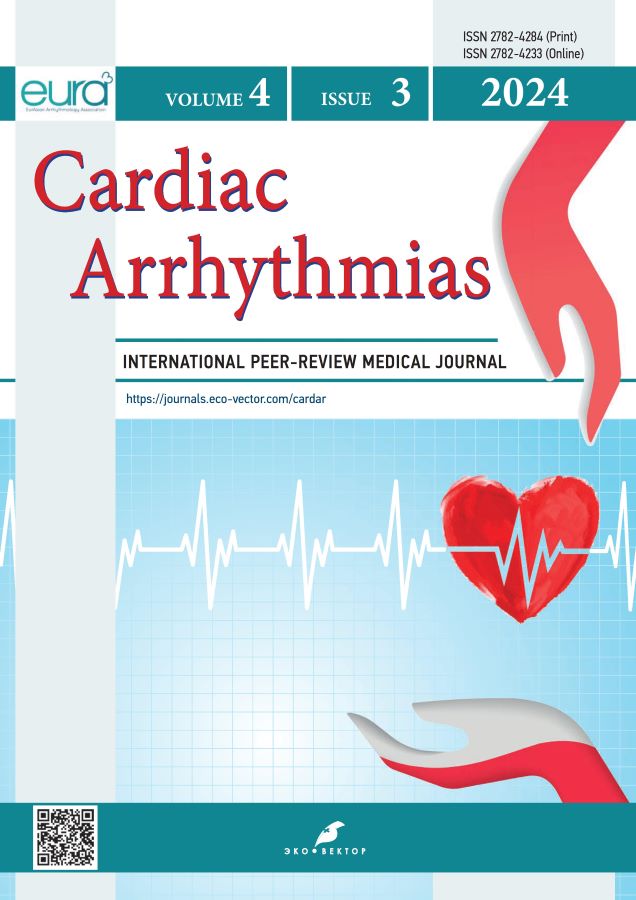
-
Cardiac Arrhythmias
International peer-reviewed journal
Editor in Chief: Sergey Sayganov
Founders: I.I. Mechnikov North-Western State Medical University; Eurasian Arrhythmology Association; “ECO-Vector” LLC
Publisher: “ECO-Vector” LLC
-
CardioSomatics
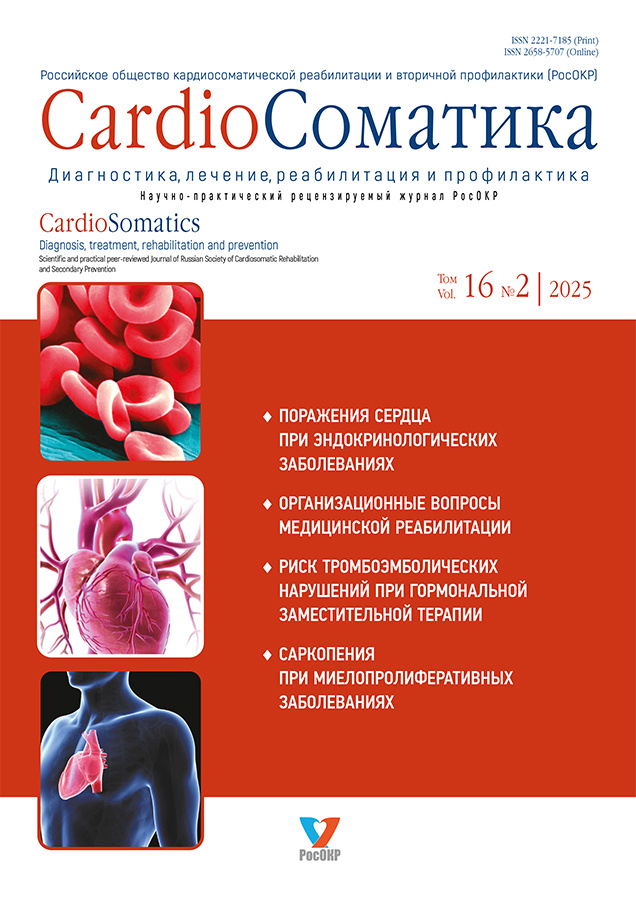
-
CardioSomatics
Peer-review medical journal
Publish quarterly since 2010 in Open Access.
Editor-in-Chief: professor David M. Aronov, MD.
Indexation: SCOPUS, Russian Science Citation Index, Google Scholar, Ulrich's Periodicals directory, WorldCat.
ISSN 2221-7185 (Print) ISSN 2658-5707 (Online)
-
Consilium Medicum
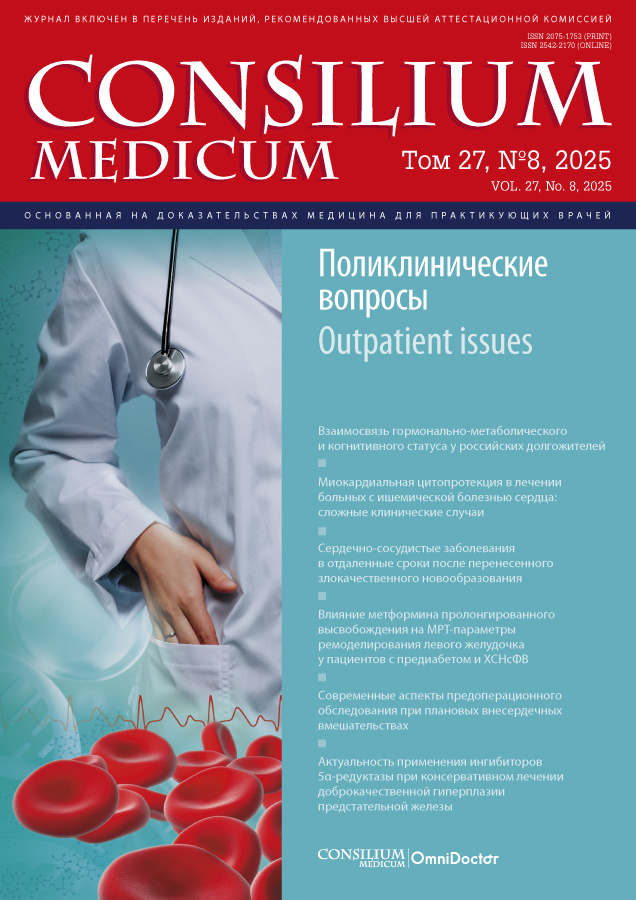
-
Consilium Medicum
Peer-review medical journal.
Editor-in-Chief: Professor Viktor Fomin, MD, PhD, Corresponding Member of Russian Academy of Sciences.
Indexation: Russian Science Citation Index, Google Scholar, Ulrich's Periodicals Directory, WorldCat.
Open Access & Publication frequency: Gold Open Access; monthly issuing.
Peer-Review & APC: double blind; no article processing charge.
ISSN: 2075-1753 (Print) ISSN 2542-2170 (Online)
-
Consortium Psychiatricum

-
Consortium Psychiatricum
Peer-review medical journal.
Editor-in-Chief: professor George P. Kostyuk, MD, Dr. Sci. (Med).
Indexation: Russian Science Citation Index, Google Scholar, Ulrich's Periodicals Directory, WorldCat.
Open Access & Publication frequency: Gold Open Access; quarterly issuing.
Peer-Review & APC: double blind; no article processing charge.
ISSN 2712-7672 (Print) ISSN 2713-2919 (Online)
-
Digital Diagnostics
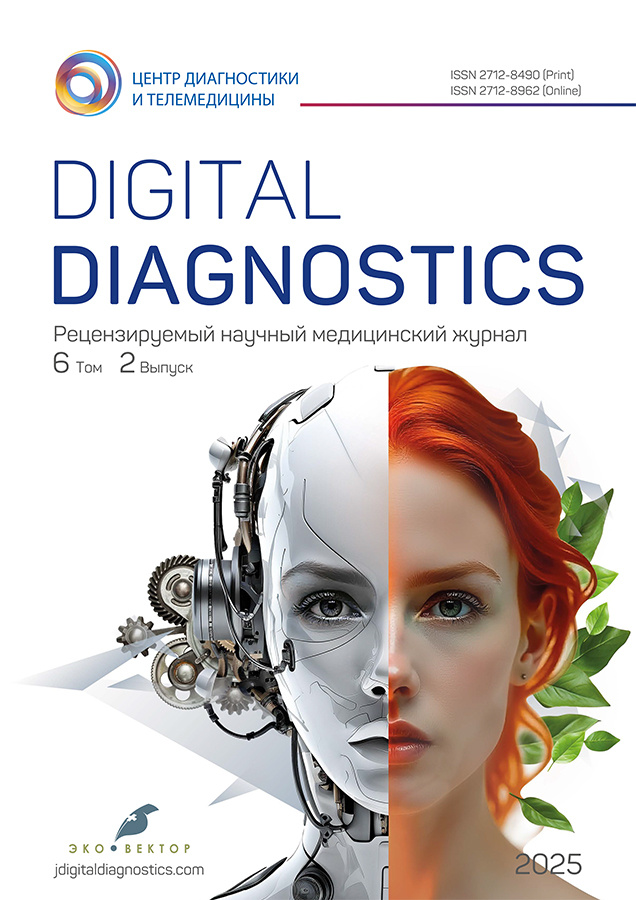
-
Digital Diagnostics
Peer-review medical journal.
Editor-in-Chief: Professor Valentin Sinitsyn, MD, PhD.
Indexation: SCOPUS, Russian Science Citation Index, CNKI, Google Scholar, Ulrich's Periodicals Directory, Dimensions.
Open Access & Publication frequency: Gold Open Access; quarterly issuing.
Peer-Review & APC: double blind; no article processing charge.
ISSN: 2712-8490 (Print) ISSN 2712-8962 (Online)
-
Folia Otorhinolaryngologiae et Pathologiae Respiratoriae
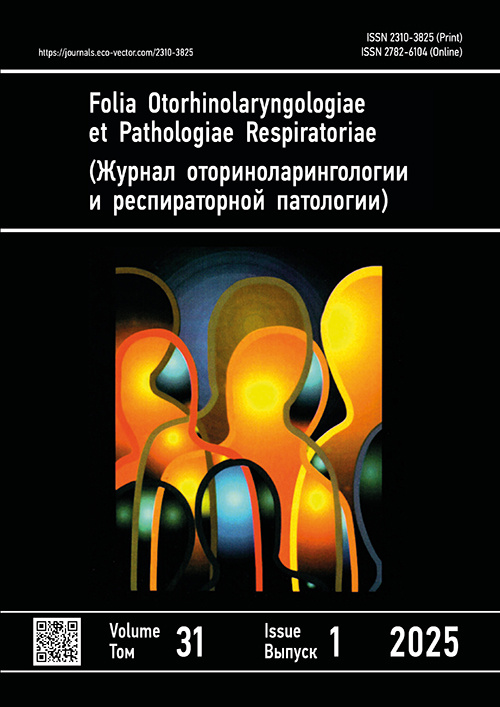
-
Folia Otorhinolaryngologiae et Pathologiae Respiratoriae
Scientific peer-reviewed medical journal.
Editor-in-Chief: Sergey A. Karpishchenko, Doctor of Medical Sciences (PhD), Professor.
Published: 4 issues per year, since 1998.
Indexing: eLibrary.ru (RSCI), Google Scholar, CrossRef.
ISSN 2310-3825 (Print), 2782-6104 (Online)
-
Obstetrics and Gynecology
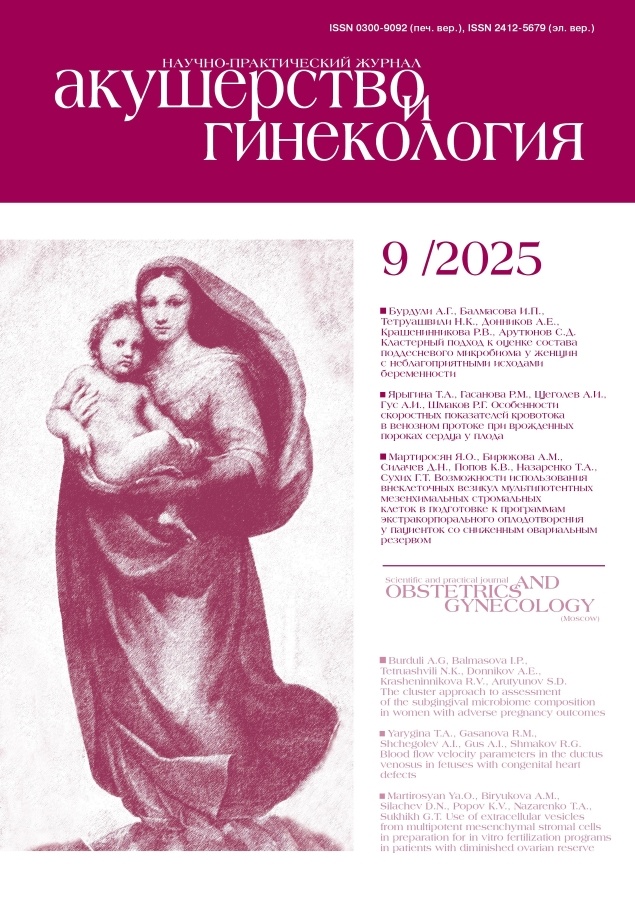
-
Obstetrics and Gynecology
Scientific peer-reviewed medical journal.
Publish 12issues per year since 1922
Editor-in-Chief: Gennadiy T. Sukhikh, M.D., Ph.D., Professor, Academician of the Russian Academy of Sciences
Indexation: Russian Science Citation Index, Google Scholar, Ulrich's Periodicals Directory, WorldCat, Scopus, EBSCO, Emerging Sources Citation Index WoS, Russian Citation Science Index WoS, Abstract of Bulgarian Scientific Medical Literature, Experta Medica
ISSN 0300-9092 (Print), 2412-5679 (Online)
-
Almanac of Clinical Medicine

-
Almanac of Clinical Medicine
Peer-review medical journal.
Editor-in-Chief: Maria G. Glezer, MD, PhD, Professor
Indexation: Web of Science (RSCI), Google Scholar, Ulrich's Periodicals Directory, WorldCat, Base, Cyberleninka, Dimensions, DOAJ, NLM Catalog, RNMJ.RU, VINITY.
Open Access & Publication frequency: Platinum Open Access; 8 issues annualy; Online First; CC BY license.
Peer-Review & APC: double blind; no article processing charges.
ISSN 2072-0505 (Print) ISSN 2587-9294 (Online)
-
Annals of Clinical and Experimental Neurology

-
Annals of Clinical and Experimental Neurology
Peer-review medical journal on neurology
Editor-in-Chief: Prof. Mikhail Piradov
Indexation: Web of Science (RSCI), SCOPUS, Rusian Science Citation Index, Google Scholar, Ulrich's Periodicals Directory, WorldCat.
Open Access & Publication frequency: Platinum Open Access; quarterly issuing; CC BY license.
Peer-Review & APC: double blind; no article processing charge.
ISSN 2075-5473 (Print) ISSN 2409-2533 (Online)
-
V.F.Snegirev Archives of Obstetrics and Gynecology
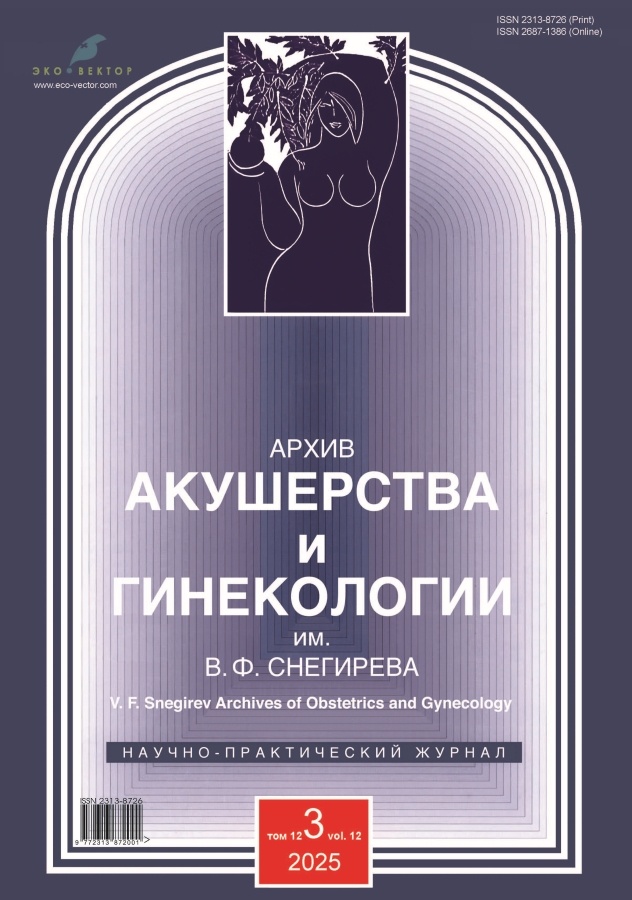
-
V.F.Snegirev Archives of Obstetrics and Gynecology
Рeer-review medical academic journal.
Main fields: health sciences (obstetrics and gynecology).
Editor-in-Cheif: prof. Elena A. Sosnova, MD, Dr. Sci. (Med.)
Indexing: SCOPUS, Russian Science Citation Index, Google Scholar, Ulrich's Periodicals directory, CrossRef, Dimensions
Publishes quarterely from 2014, Hybrid access.
ISSN 2313-8726 (Print) ISSN 2687-1386 (Online)
-
Aspirantskiy Vestnik Povolzhiya

-
Aspirantskiy Vestnik Povolzhiya
Peer-review academic journal for clinical medicine, pharmaceutical and philosophical sciences.
Editor-in-Chief: Full member of Russian Academy of Sciences, professor G.P. Kotelnikov.
Indexing: Russian Science Citation Index, Google Scholar, Ulrich's Periodicals directory, WorldCat.
ISSN: 2072-2354 (Print); ISSN: 2410-3764 (Online)
-
Bioethics journal
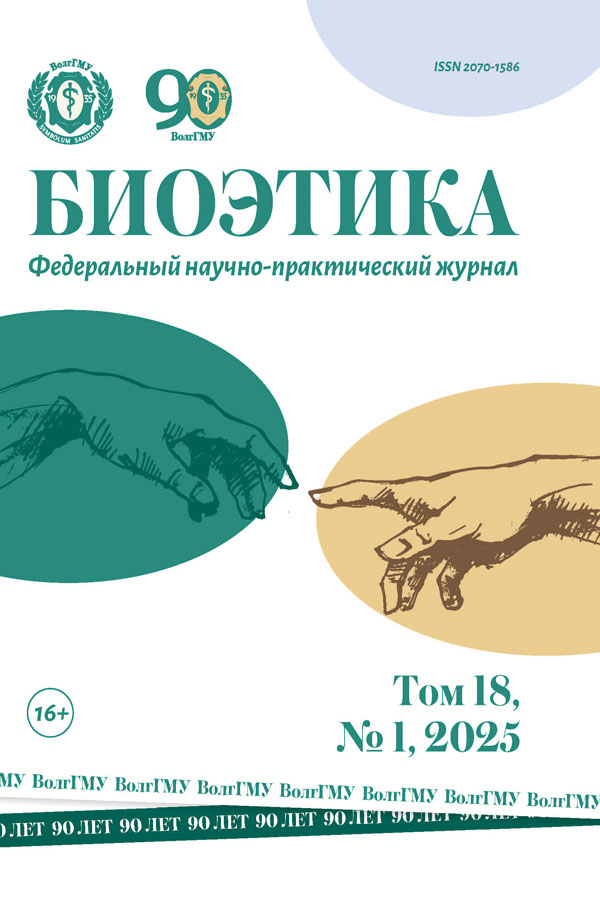
-
Bioethics journal
Peer-review academic journal.
Publish semianually since 2008 in Delay Open Access.
Editor-in-Chief: Vladimir I. Petrov, MD, PhD, Professor.
Indexation: Russian Science Citation Index, Google Scholar, WorldCat, Ulrich's Periodicals Directory
ISSN 2070-1586 (Print) ISSN 2782-6589 (Online)
-
Journal of Volgograd State Medical University
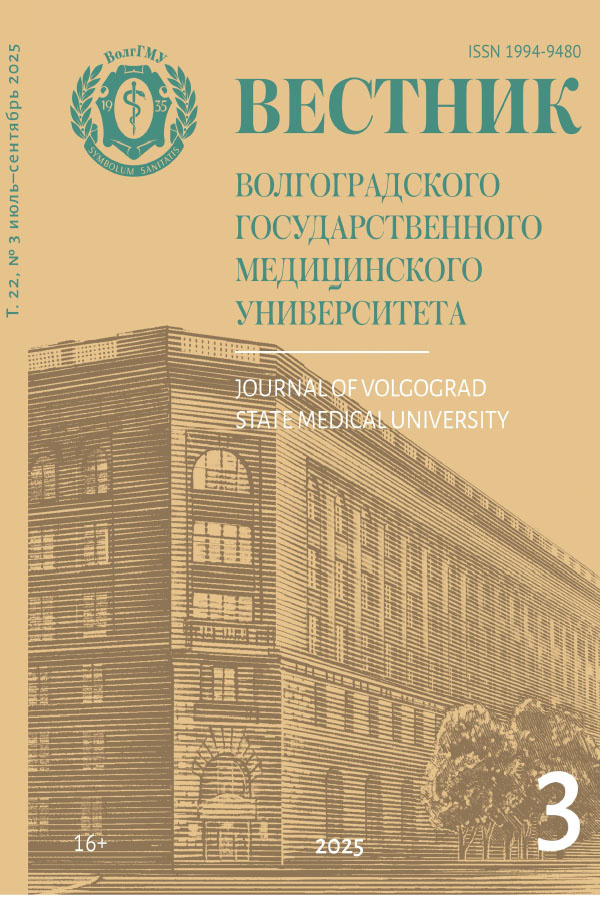
-
Journal of Volgograd State Medical University
Peer-review medical journal for gynecology and women's health.
Publish quarterly since 2004 in Open Access.
Editor-in-Chief: MD, professor Vladimir I. Petrov
Indexation: Russian Science Citation Index, Google Scholar, Ulrich's Periodicals directory, WorldCat.
ISSN 1994-9480 (Print)
-
Bulletin of Rehabilitation Medicine
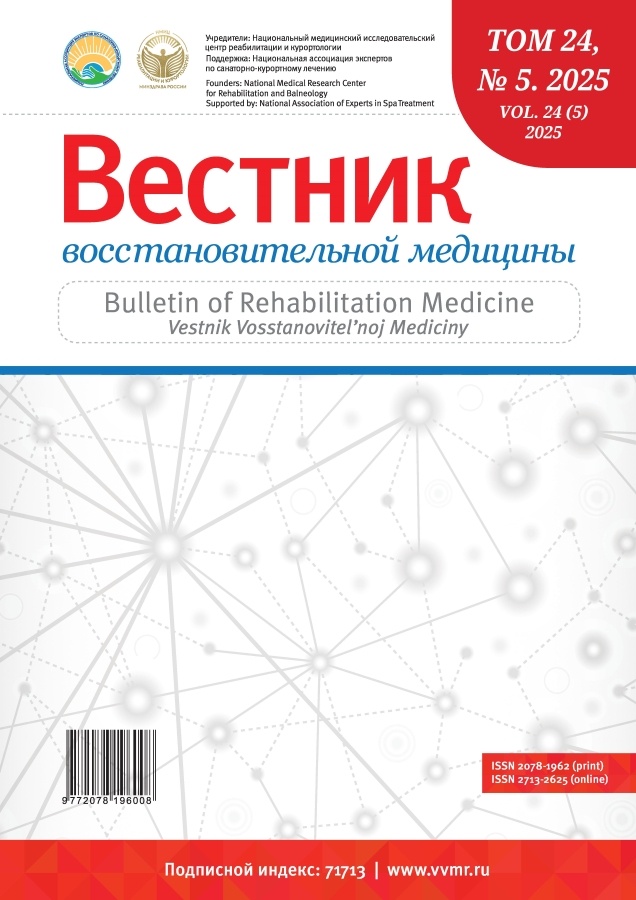
-
Bulletin of Rehabilitation Medicine
Peer-review medical journal.
Editor-in-Chief: Natalia N. Zubareva, D.Sc. (Econ.), Docent.
Indexation: SCOPUS, Russian Science Citation Index, Google Scholar, Ulrich's Periodicals Directory, CrossRef, Dimensions.
Open Access & Publication frequency: Platinum Open Access; bimonthly issuing.
Peer-Review & APC: double blind; no article processing charge.
ISSN 2078-1962 (Print) ISSN 2713-2625 (Online)
-
Vestnik dermatologii i venerologii

-
Vestnik dermatologii i venerologii
Medical Peer-review journal on dermatology.
Publish quarterly since 1924 in Open Access (CC BY-NC-ND 4.0).
Editor-in-Chief: professor A.A. Kubanov.
Indexation: DOAJ, Cyberleninka, Google Scholar, Ulrich's Periodicals directory, Russian Science Citation Index.
ISSN 0042-4609 (Print) | ISSN 2313-6294 (Online)
-
Proceedings of young scientists and specialists of the Samara University

-
Proceedings of young scientists and specialists of the Samara University
Peer-review academic journal.
Publish semiannualy in Open Access.
Editor-in-Chief: A.B. Prokofyev, PhD, Professor
Indexation: Google Scholar
ISSN 2311-4576 (Print)
-
Annals of the Russian Academy of Medical Sciences

-
Annals of the Russian Academy of Medical Sciences
Editor-in-Chief: Vladimir I. Starodubov, MD, PhD, Professor.
Indexation: SCOPUS, Russian Science Citation Index (Web of Sciences), Google Scholar, Ulrich's Periodicals Directory, WorldCat.
Open Access & Publication frequency: Delayed Open Access (embargo 12 monthes); issuing bimonthly (6 times per year); distribute by subscription.
Peer-Review & APC: double blind; article processing charge, Fast-Track.
ISSN 0869-6047 (Print) ISSN 2414-3545 (Online)
-
Bulletin of the Russian Military Medical Academy
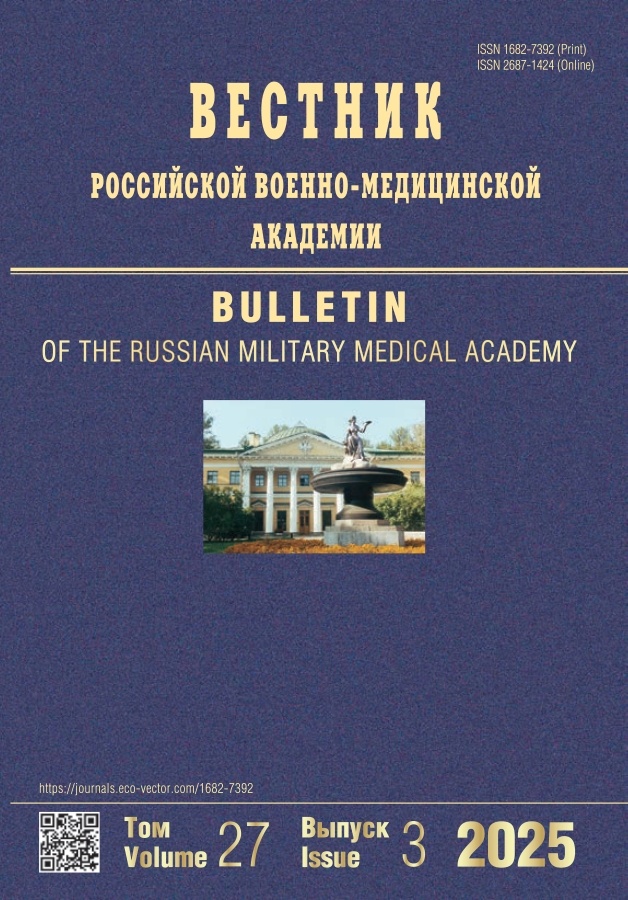
-
Bulletin of the Russian Military Medical Academy
Medical peer-review journal for practitioners and researchers.
Editor-in-Chief: Evgeniy V. Kryukov
Publisher: Eco-Vector
Indexation: SCOPUS, RSCI, Ulrich's Periodicals Directory, Dimensions, Crossref
ISSN 1682-7392 (Print) ISSN 2687-1424 (Online)
-
HERALD of North-Western State Medical University named after I.I. Mechnikov
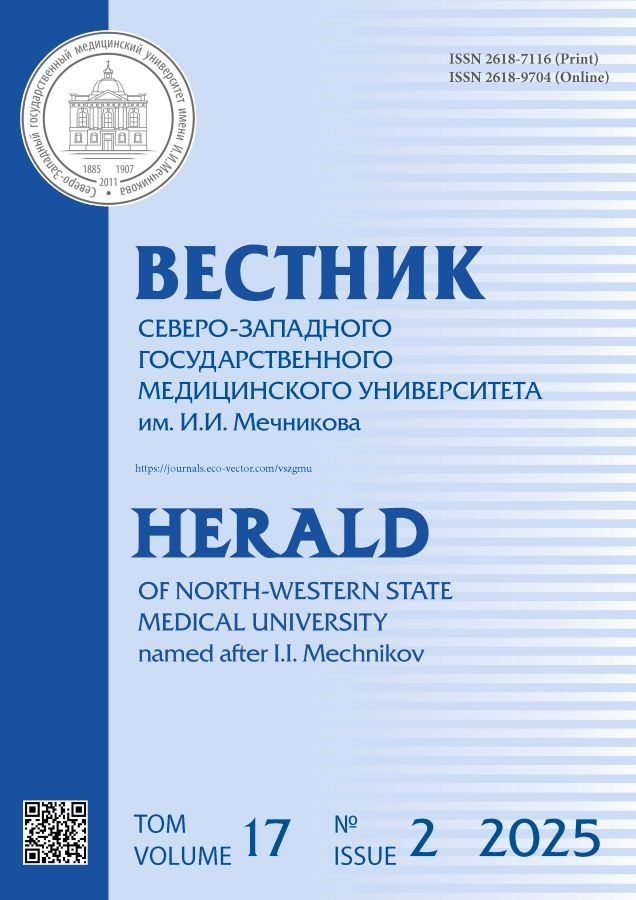
-
HERALD of North-Western State Medical University named after I.I. Mechnikov
Рeer-review medical academic journal.
Founded in 2009
Editor-in-Cheif: Vadim .I. MazurovFounders: Eco-Vector LLC, I.I. Mechnikov North-Western State Medical University
Publisher: Eco-Vector LLC
-
N.N. Priorov Journal of Traumatology and Orthopedics
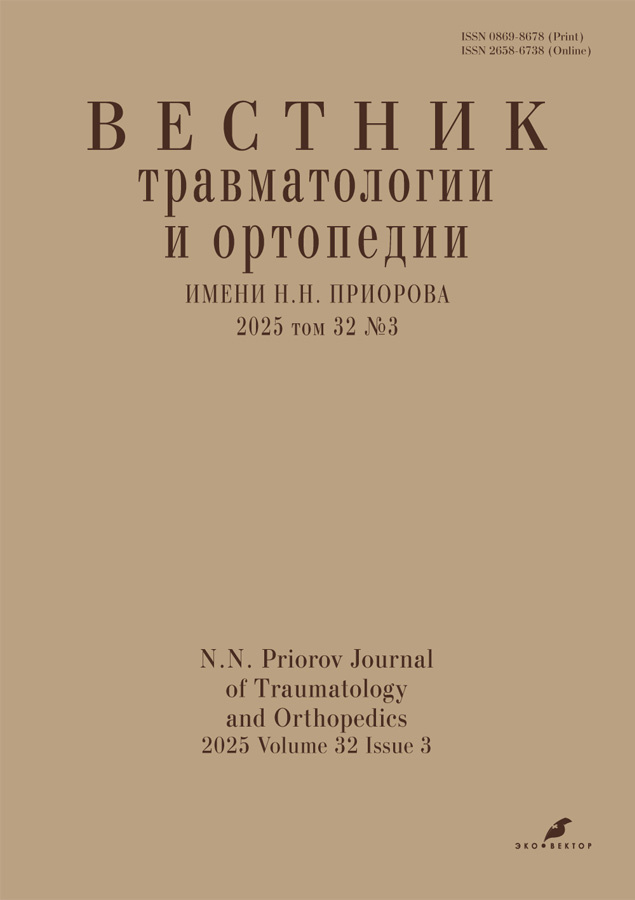
-
N.N. Priorov Journal of Traumatology and Orthopedics
Peer-review medical journal
Editor-in-Chief: Anton G. Nazarenko, MD, PhD, Professor
Indexation: SCOPUS, Russian Science Citation Index, Google Scholar, Ulrich's Periodicals Directory, CrossRef, Dimensions.
Distribution & Publication frequency: issuing quarterly (4 times per year) and continuously in Online First; hybrid distribution model.
Peer-Review & APC: double blind; no article processing charge, Fast-Track, optional Open Access.
ISSN 0869-8678 (Print) ISSN 2658-6738 (Online)
-
Journal of Experimental and Clinical Surgery

-
Journal of Experimental and Clinical Surgery
Peer-review medical journal.
Published quarterly since 2008 in Open Access.
Editor-in-Chief: prof., Aleksandr A. Glukhov, MD, Dr. Sci. (Medicine)
Indexation: Russian Science Citation Index, Google Scholar, Ulrich's Periodicals directory, WorldCat.
ISSN 2070-478X (Print) ISSN 2409-143X (Online)
-
Voenno-medicinskij žurnal
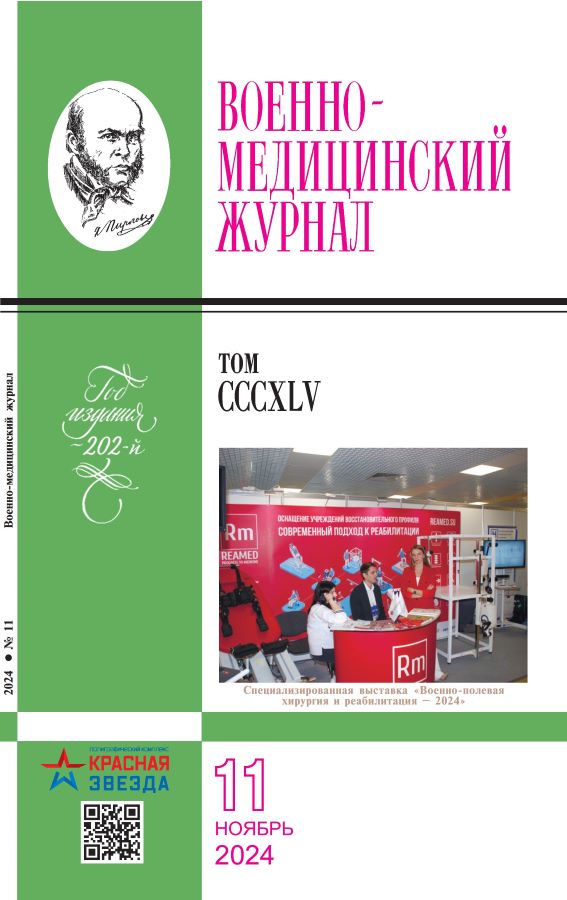
-
Voenno-medicinskij žurnal
Peer-review medical journal.
Editor-in-Chief: Mikhail V. Poddubny, MD, PhD, Assistant professor.
Индексация: РИНЦ, RSCI (Web of Science), Google Scholar, Ulrich's Periodicals Directory, WorldCat.
Open Access: Gold Open Access; 12 issues annually; no APC.
ISSN: 0026-9050 (Print)
-
Volgograd Journal of Medical Research
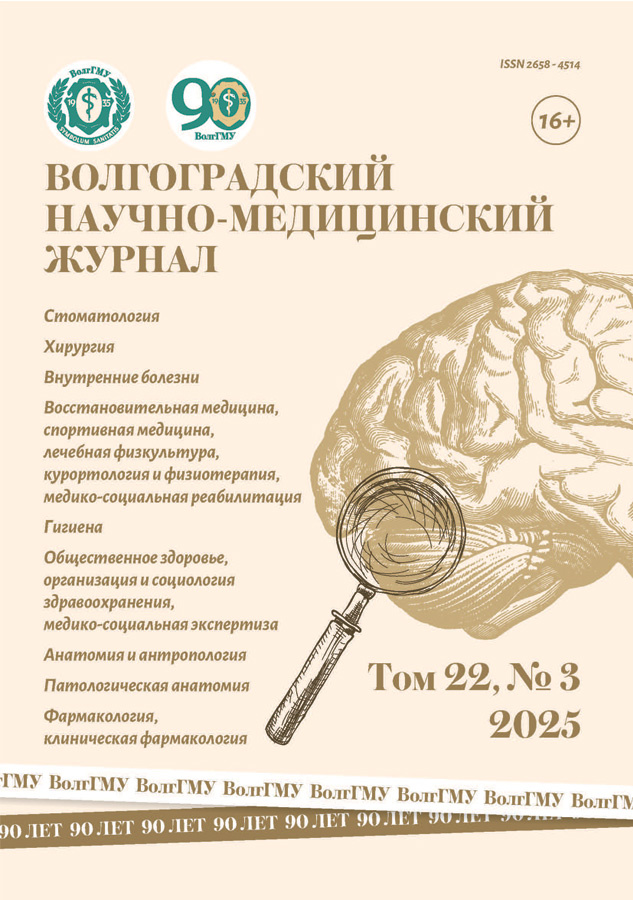
-
Volgograd Journal of Medical Research
A scientific peer-reviewed medical journal.
Editor-in-Chief: Sergey V. Dmitrienko, Doctor of Medical Sciences, Professor, PhD
Published: 4 issues per year, since 2004
Indexing: eLibrary.ru (RSCI), Google Scholar
ISSN (Print) 2658-4514
-
Problems of Biological Medical and Pharmaceutical Chemistry
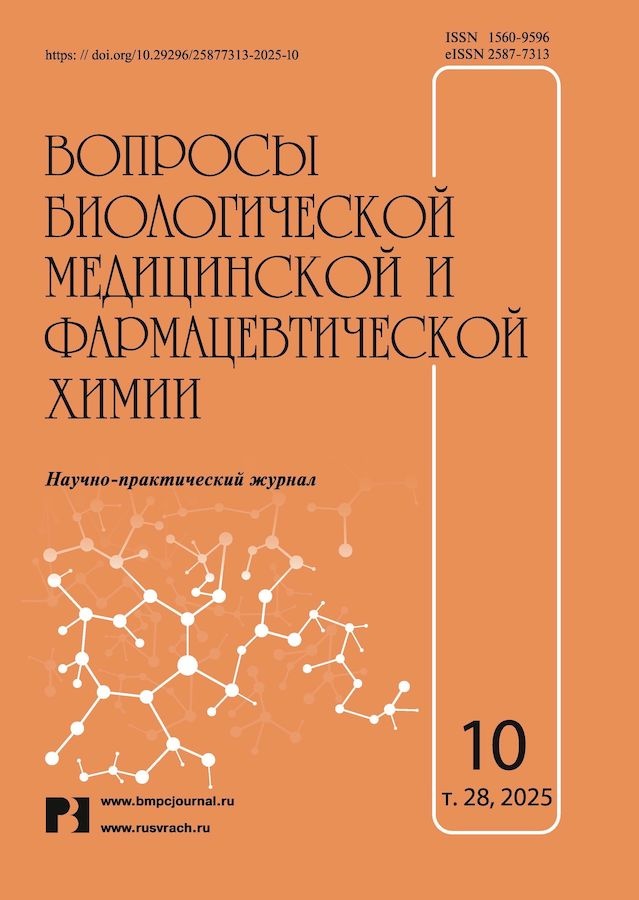
-
Problems of Biological Medical and Pharmaceutical Chemistry
Peer-review scientific and practical journal
Publish 12 issues per year since 1998.
Editor-in-Chief: acad. RAS Nikolay I. Sidelnikov
Indexation: Russian Science Citation Index, Chemical Abstracts Service (CAS), Google Scholar, Ulrich's Periodicals directory, WorldCat.
ISSN 1560-9596 (Print) ISSN 2587-7313 (Online)
-
Problems of Virology

-
Problems of Virology
Peer-review medical journal.
Editor-in-Chief: professor Dmitri K. Lvov MD, Dr. Sci. (Med.).
Indexation: PubMed (MEDLINE), Index Medicus, SCOPUS, Embase, Web of Science (RSCI, Biological Abstracts, BIOSIS Previews, Zoological Record), РИНЦ, ВАК, Google Scholar, Ulrich's Periodical directory, EBSCO, WorldCat.
Open Access & Publication frequency: Platinum Open Access (CC BY); bimonthly issuing.
Peer-Review & APC: double blind; no article processing charge.
ISSN 0507-4088 (Print) ISSN 2411-2097 (Online)
-
Vrach
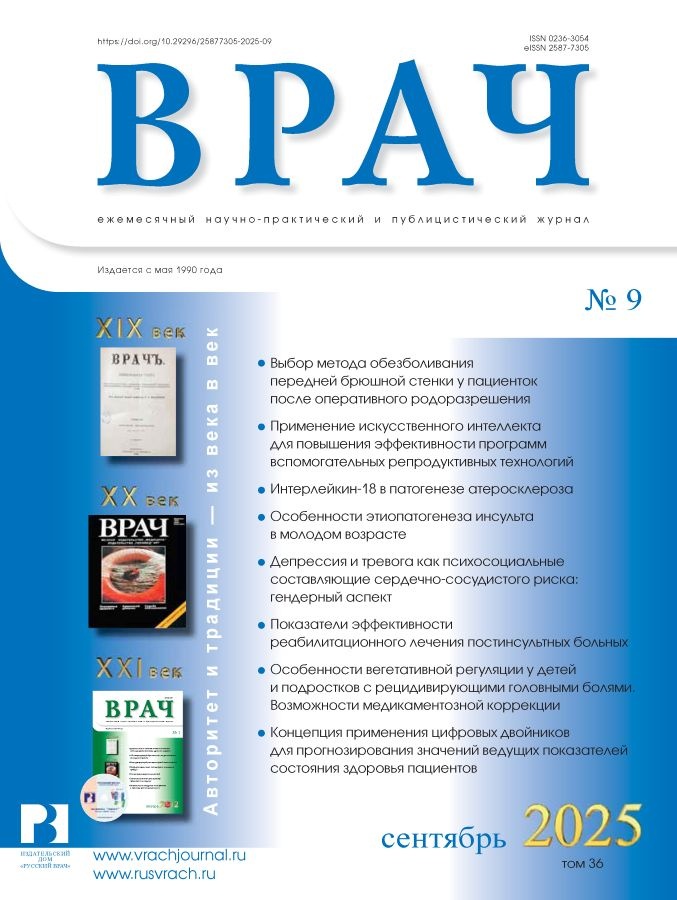
-
Vrach
Peer-review multidisciplinary journal.
Publish monthly since 1990.
Editor-in-Chief: Vasily M. Delyagin, MD, Professor.
Indexation: Russian Science Citation Index, EBSCO, Scientific Indexing Services, Google Scholar, Ulrich's Periodicals Directory, WorldCat.
ISSN 0236-3054 (Print) ISSN 2587-7305 (Online)
-
Genes & Cells
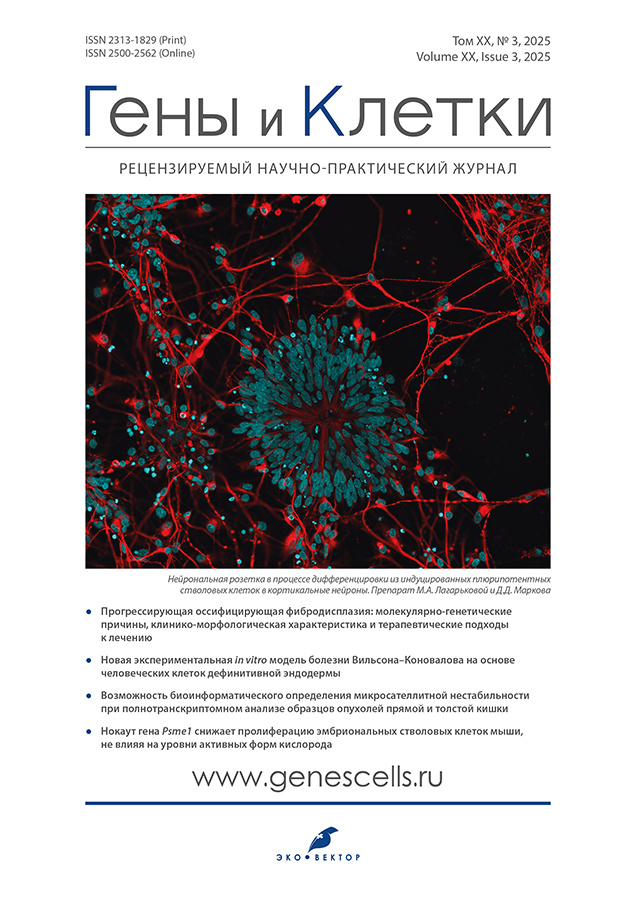
-
Genes & Cells
Peer-reviewed scientific and practical journal in medicine and biology.
Publish quarterly since 2005.
Editor-in-Chief: Maria A. Lagarkova, Dr. Sci. (Biology)
Индексируется: Russian Science Citation Index, Scopus, Google Scholar, Ulrich's Periodicals directory, WorldCat.
ISSN 2313-1829 (Print), ISSN 2500-2562 (Online)
-
Hygiene and Sanitation

-
Hygiene and Sanitation
General Hygienic Journal.
Editor-in-Chief: Valery Nikolaevich Rakitsky, Academician of the Russian Academy of Sciences, Honored Scientist of the Russian Federation, Doctor of Medical Sciences, Professor
Published: 12 times a year, since 1910
Indexing: RSCI, CrossRef, Ulrich's Periodicals Directory, Scopus, Google Scholar.
ISSN: 0016-9900 (Print) ISSN: 2412-0650 (Online)
-
Gynecology

-
Gynecology
Peer-review medical journal for gynecology and women's health.
Publish bimonthly since 1999 in Open Access.
Editor-in-Chief: professor Vera N. Prilepskaya.
Indexation: SCOPUS, RSCI on Web of Science, Russian Science Citation Index, Google Scholar, Ulrich's Periodicals directory, WorldCat.
ISSN 2079-5696 (Print) | ISSN 2079-5831 (Online)
-
Russian Journal of Pediatric Surgery

-
Russian Journal of Pediatric Surgery
Peer-review medical journal.
Editor-in-Chief: Professor Leonid M. Roshal, MD, PhD.
Indexation: Russian Science Citation Index, Google Scholar, Ulrich's Periodicals Directory, Dimensions, Crossref.
Distribution & Publication frequency: Subscription; bimonthly issuing.
Peer-Review & APC: double blind; no article processing charge.
ISSN 1560-9510 (Print) ISSN 2412-0677 (Online)
-
Journal of obstetrics and women's diseases
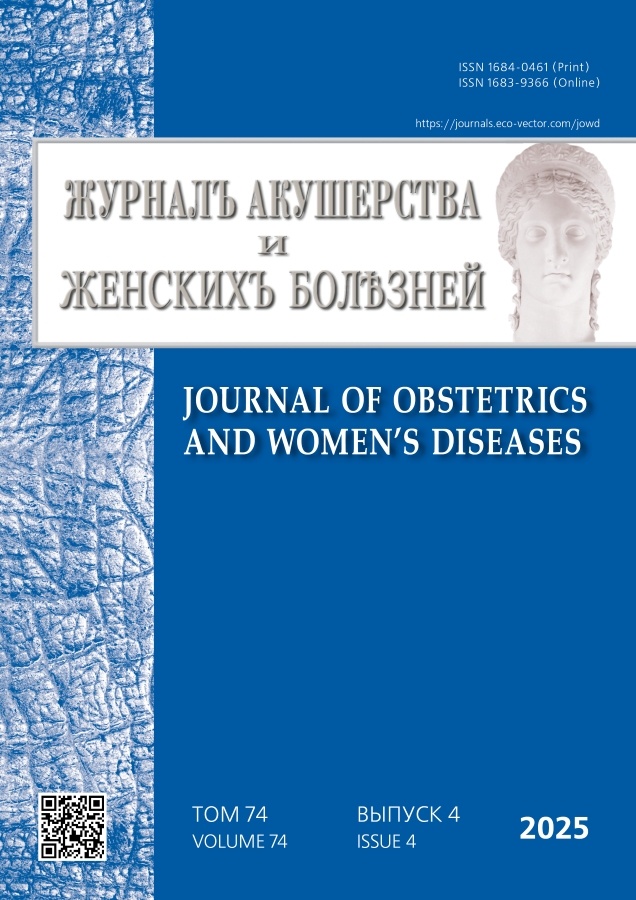
-
Journal of obstetrics and women's diseases
Peer-review quarterly medical journal.
Editor-in-Chief: prof. Eduard K. Aylamazyan.
Indexation: SCOPUS, EmBase, Russian Science Citation Index, Google Scholar, Ulrich's Periodicals Directory, Dimensions, Crossref.
Distribution: Hybrid (Subscription & Gold Open Access).
ISSN 1684-0461 (Print) ISSN 1683-9366 (Online)
-
Journal of microbiology, epidemiology and immunobiology

-
Journal of microbiology, epidemiology and immunobiology
Peer-review medical journal.
Editor-in-Chief: Vitaly V. Zverev, Dr.Sci. (Biology), Professor, Full Member of the Russian Academy of Sciences.
Indexation: SCOPUS, DOAJ, ULRICHS PERIODICAL DIRECT, Russian Science Citation Index (RSCI), EBSCO, WorldCat, Google Scholar, CYBERLENINKA, RUCONT.
Open Access & Publication frequency: Diamond Open Access; 6 issues annualy; Online First; CC BY license.
Peer-Review & APC: double blind; no article processing charges.
ISSN 0372-9311 (Print) ISSN 2686-7613 (Online)
-
Health Сare of the Russian Federation

-
Health Сare of the Russian Federation
Scientific and practical peer-reviewed journal
Editor-in-Chief: Onishchenko G. Gennady, Doctor of Medical Sciences, Professor, Academician of the Russian Academy of Sciences, Deputy President of the Russian Academy of Education
Published: 6 times a year, since 1957
Indexing: RSCI, CrossRef, Ulrich's Periodicals Directory, Scopus, Google Scholar.
ISSN: 0044-197X (Print) ISSN: (Online) 2412-0723
-
Russian Military Medical Academy Reports
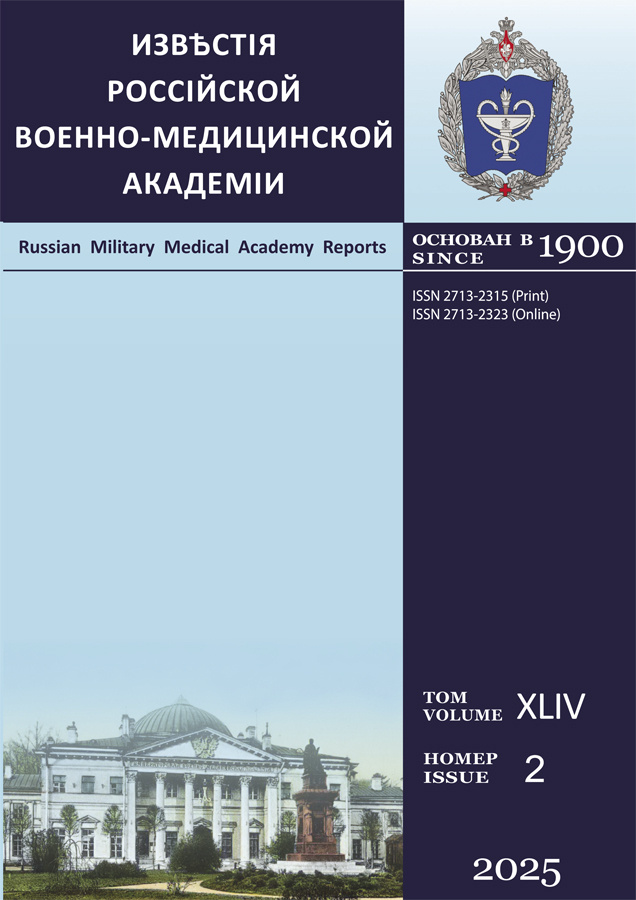
-
Russian Military Medical Academy Reports
Medical military peer-review journal.
Founded in 1990
Editor-in-Chief: Evgeniy V. Kryukov
Founders: Military Medical Academy; "Eco-Vector" LLCPublisher: "Eco-Vector" LLC
Indexing: Russian Science Citation Index, Google Scholar, Ulrich's Periodical directory.
Publishes quarterly from 1900.
-
Izvestiya of Samara Scientific Center of the Russian Academy of Sciences

-
Izvestiya of Samara Scientific Center of the Russian Academy of Sciences
Multidisciplinary peer-review journal.
Editor-in-Chief: Doctor of Technical Sciences, Academician of RAS, professor Grechnikov Fedor V.
Indexing: Russian Science Citation Index, WorldCat, Google Scholar,Ulrich's Periodicls Directory.
ISSN: 2658-4816 (Print).
-
Russian Journal of Infection and Immunity

-
Russian Journal of Infection and Immunity
Peer-review medical journal.
Editor-in-Chief: Areg A. Totolyan, MD, PhD, Professor
Indexation: Web of Science (RSCI, ESCI), SCOPUS, Google Scholar, Ulrich's Periodicals Directory, WorldCat, Base, Cyberleninka, DOAJ, RNMJ.RU, VINITY.
Open Access & Publication frequency: Platinum Open Access; 6 issues annualy; Online First; CC BY license.
Peer-Review & APC: double blind; no article processing charges.
ISSN 2220-7619 (Print) ISSN 2313-7398 (Online)
-
Kazan medical journal
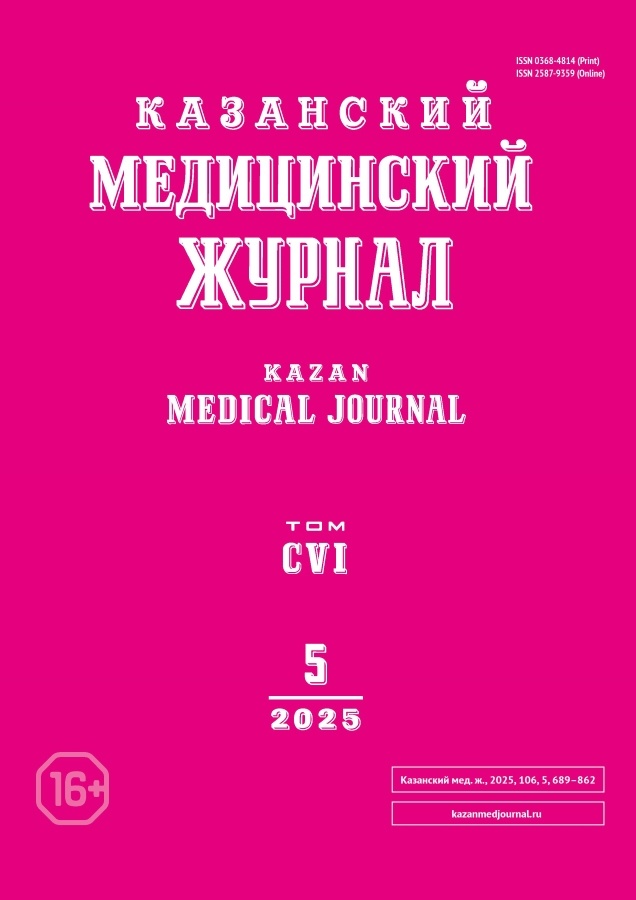
-
Kazan medical journal
Medical bimonthly peer-review journal.
Editor-in-Chief: Professor Ayrat U. Ziganshin, MD
Indexing: SCOPUS, Russian Science Citation Index, BIOSIS Previews, Biological Abstracts, CNKI, Google Scholar, Ulrich's Periodical directory.
ISSN 0368-4814 (Print) ISSN 2587-9359 (Online)
-
Russian Clinical Laboratory Diagnostics

-
Russian Clinical Laboratory Diagnostics
Peer-review medical scholarly journal.
Publish monthly since 1955.
Editor-in-Chief: professor T.V. Vavilova.
Indexation: Russian Science Citation Index, Google Scholar, Ulrich's Periodicals directory, Dimensions, Crossref.
ISSN 0869-2084 (Print) ISSN 2412-1320 (Online)
-
Clinical nephrology
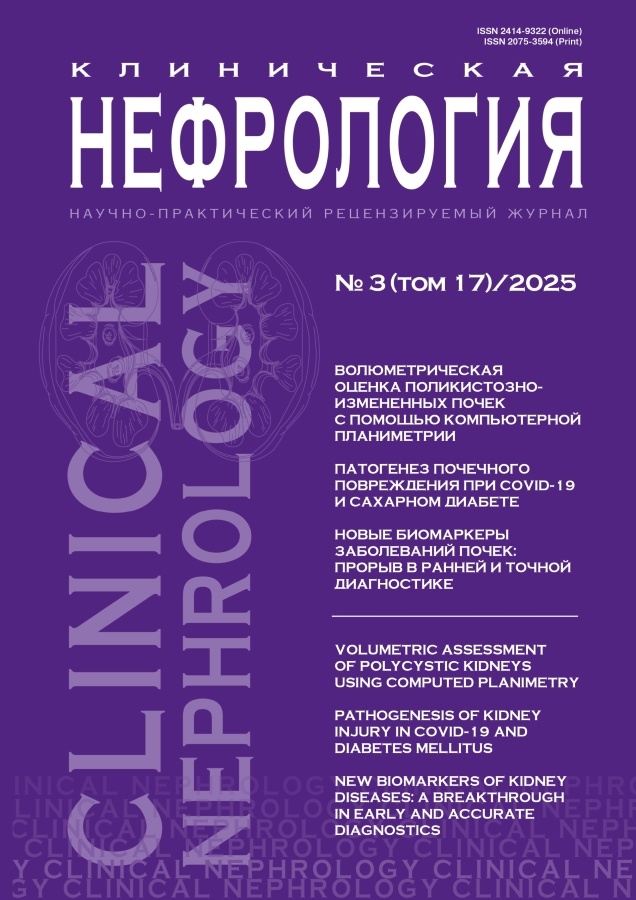
-
Clinical nephrology
Scientific peer-reviewed medical journal.
Publish 4issues per year since 2009
Editor-in-Chief: Oleg N. Kotenko, Ph. D., Associate Professor
Indexation: Russian Science Citation Index, Google Scholar, Ulrich's Periodicals Directory, WorldCat, EBSCO, RSCI
ISSN 2075-3594 (Print), 2414-9322 (Online)
-
Journal of Clinical Practice

-
Journal of Clinical Practice
Medical huge topic peer-review journal for practitioners and researchers.
Editor-in-Cheif: professor Aleksandr V. Troitskiy
Indexing: Russian Science Citation Index, Google Scholar, Ulrich's Periodical directory, DOAJ, Dimensions, WorldCat.
Publishes from 2010.
ISSN 2220-3095 (Print) ISSN 2618-8627 (Online)
-
Clinical nutrition and metabolism
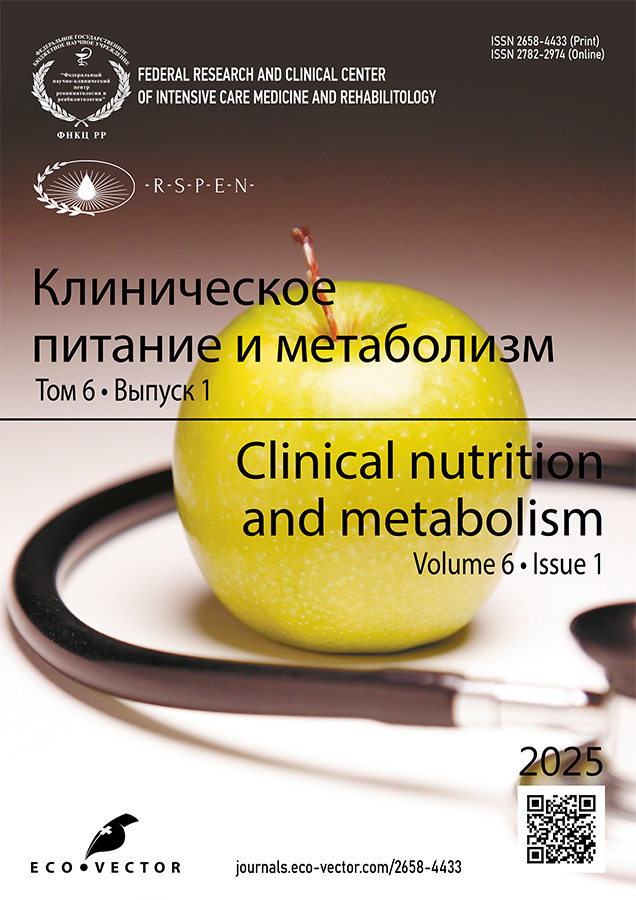
-
Clinical nutrition and metabolism
Peer-review medical journal for clinical nutrition and metabolism.
Editor-in-Chief: professor S.V. Sviridov
Publish: quarterly since 2020 in Open Access (CC BY 4.0).
Indexing: Russian Science Citation Index, Google Scholar, WorldCat, Ulrich's Periodicals directory, Crossref.
ISSN 2658-4433 (Print) ISSN 2782-2974 (Online)
-
Medical and Social Expert Evaluation and Rehabilitation
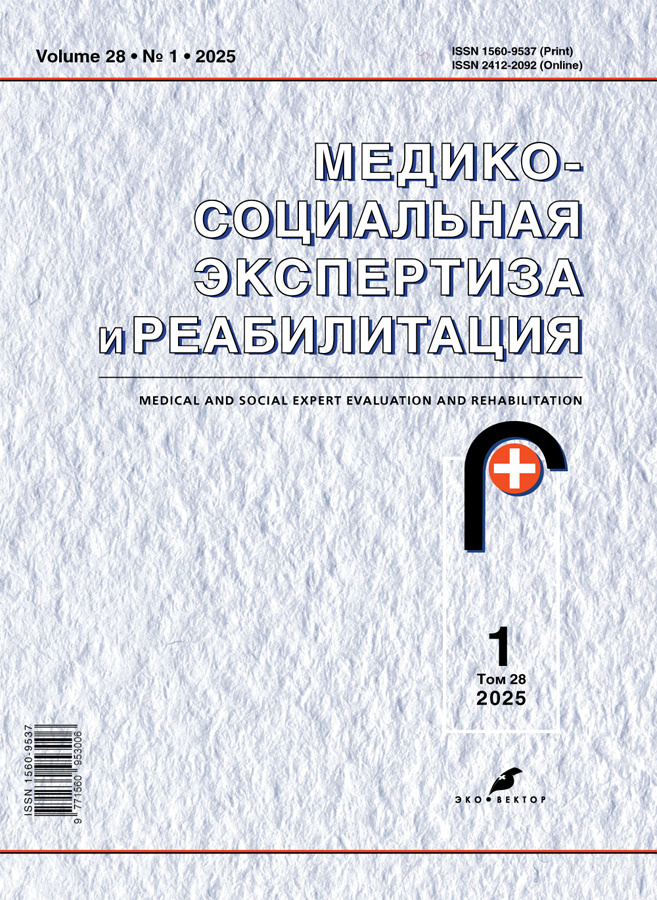
-
Medical and Social Expert Evaluation and Rehabilitation
Peer-review medical journal
Editor-in-chief: Prof. Sergey N. Puzin, MD, Dr. Sci. (Medicine)
Publications: quarterly with no APC in hybrid distribution model
Indexation: Russian Science Citation Index, Google Scholar, Ulrich’s International Periodical Directory, Dimensions, CrossRef.
ISSN: 1560-9537 (Print) ISSN: 2412-2092 (Online)
-
Meditsinskaya sestra

-
Meditsinskaya sestra
Peer-review scientific and practical journal
Publish 8 issues per year since 1942.
Editor-in-Chief: MD Konstantin I. Grigor'ev
Indexation: Russian Science Citation Index, Google Scholar, Ulrich's Periodicals directory, WorldCat.
ISSN 0025-8342 (Print) ISSN 2587-9979 (Online)
-
Medical academic journal
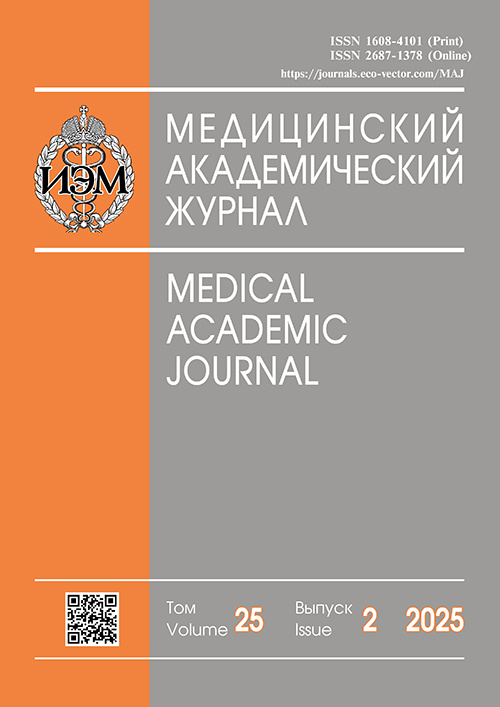
-
Medical academic journal
Medical peer-review journal.
Publishes quarterly from 2001.
Editor-in-Cheif: G.A. Safronov, MD, PhD, Professor
Indexation: SCOPUS, RSCI, Google Scholar, Ulrich's Periodicals directory, Crossref, Dimensions.
ISSN 1608-4101 (Print) ISSN 2687-1378 (Online)
-
Molekulyarnaya Meditsina (Molecular medicine)
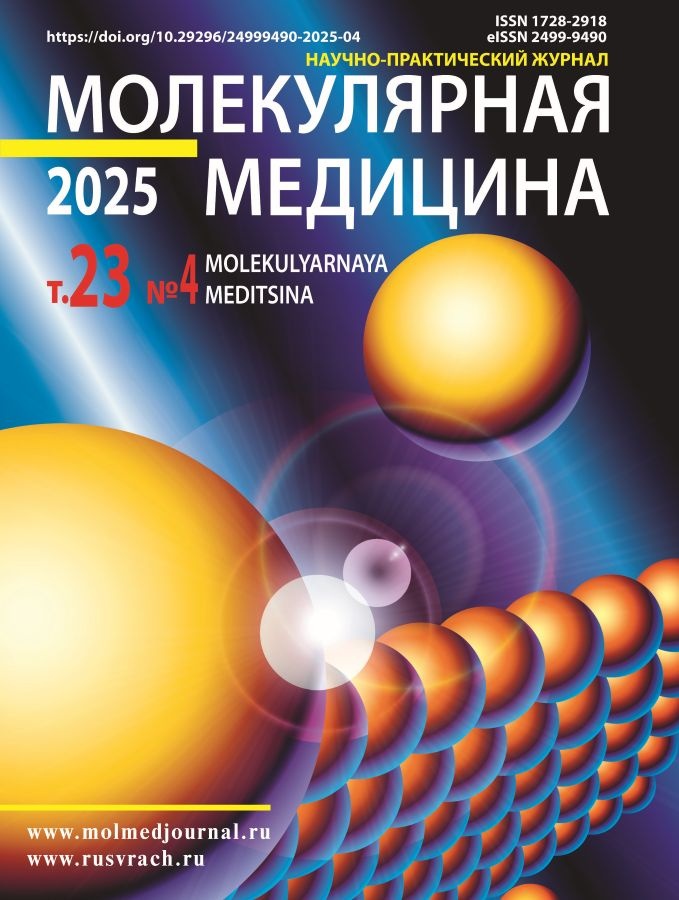
-
Molekulyarnaya Meditsina (Molecular medicine)
Peer-review medical journal.
Publish bimonthly since 2003
Editor-in-Chief: Mikhail A. Paltsev, PhD, MD, Acad. RAS, Moscow, Russia
Indexation: Russian Science Citation Index, EBSCO, Google Scholar, Ulrich's Periodicals Directory, WorldCat.
ISSN 1728-2918 (Print) ISSN 2499-9490 (Online)
-
Morphology

-
Morphology
Peer-review medical and biological journal.
Editor-in-Chief: Ass. professor Roman V. Deev, MD, Cand. Sci. (Med.).
Indexation: Russian Science Citation Index, Google Scholar, Ulrich's Periodicals Directory, Dimensions, Crossref.
Open Access & Publication frequency: Hybrid — Subscription & Open Access; quarterly issuing.
Peer-Review & APC: double blind; no obligatory article processing charge.
ISSN: 1026-3543 (Print) ISSN: 2949-2556 (Online)
-
Science and Innovations in Medicine
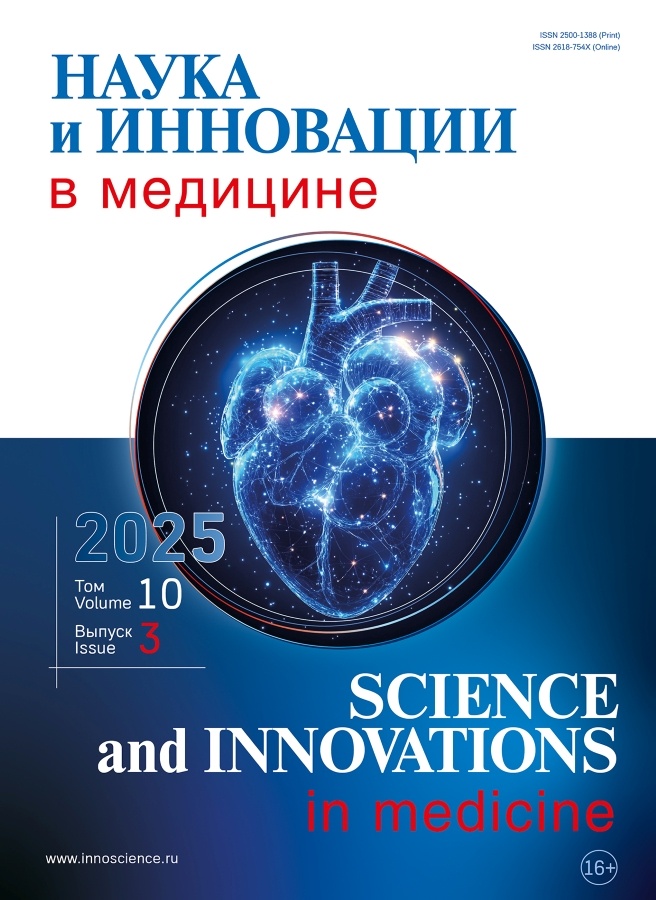
-
Science and Innovations in Medicine
Medical peer-review journal.
Publish quarterly since 2016 in Platinum Open Access with no APC.
Editor-in-Chief: Corresponding Member of Russian Academy of Sciences, professor Aleksandr Kolsanov, MD, Dr. Sci. (Medicine).
Indexing: Russian Science Citation Index, DOAJ, Google Scholar, Ulrich's Periodicals directory, Dimensions, Cyberleninka, Crossref
ISSN: 2500-1388 (Print); ISSN: 2618-754X (Online)
-
Neurology Bulletin
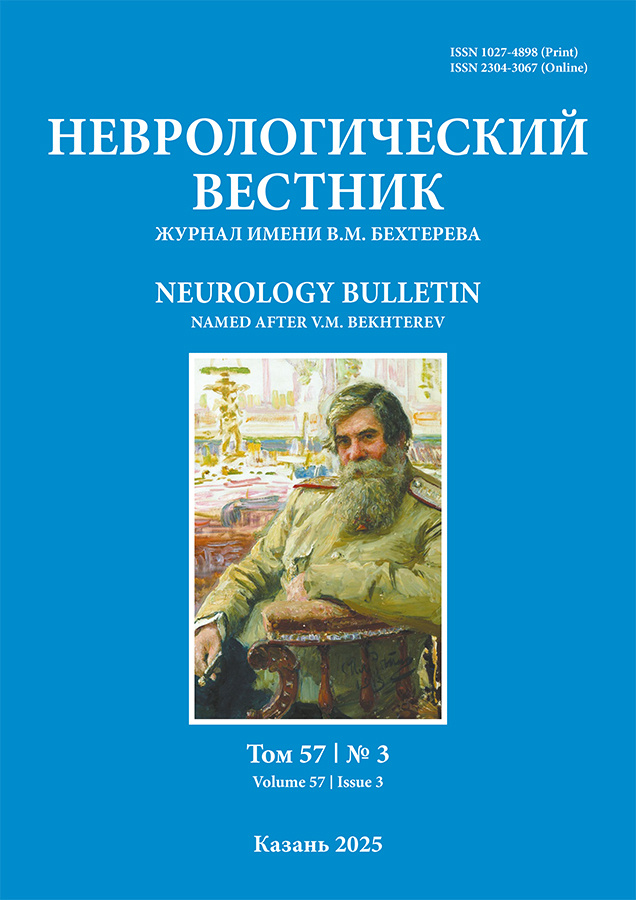
-
Neurology Bulletin
Peer-review academic journal for clinical and basic research in neurology and neurosciences.
Publishes since 1893.
Editor-in-Chief: prof. Alexey. S. Sozinov
Editorial Director: prof. Vadim D. Mendelevich
Publisher: Eco-Vector
ISSN 1027-4898 (Print) | ISSN 2304-3067 (Online)
-
L.O. Badalyan Neurological Journal
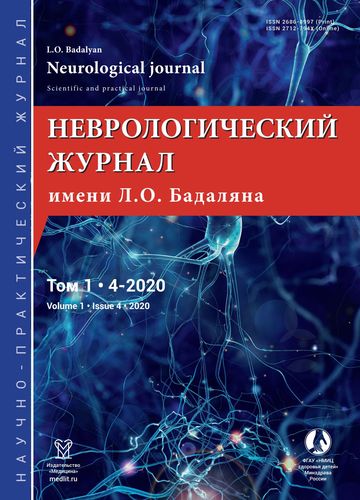
-
L.O. Badalyan Neurological Journal
L.O. Badalyan Neurological Journal was founded in 2020. The founder of the Journal is the National Medical Research Center for Children's Health. Editor-in-Chief is Lale A. Pak, Ph.D., DSci. Frequency is 1 issue per 3 months (quarterly).
L.O. Badalyan Neurological Journal highlights current issues in pediatric and adult neurology as well as in related areas including neurosurgery, neurogenetics, neuro orthopedics, psychiatry, psychology, radiology, etc.
-
Reviews on Clinical Pharmacology and Drug Therapy
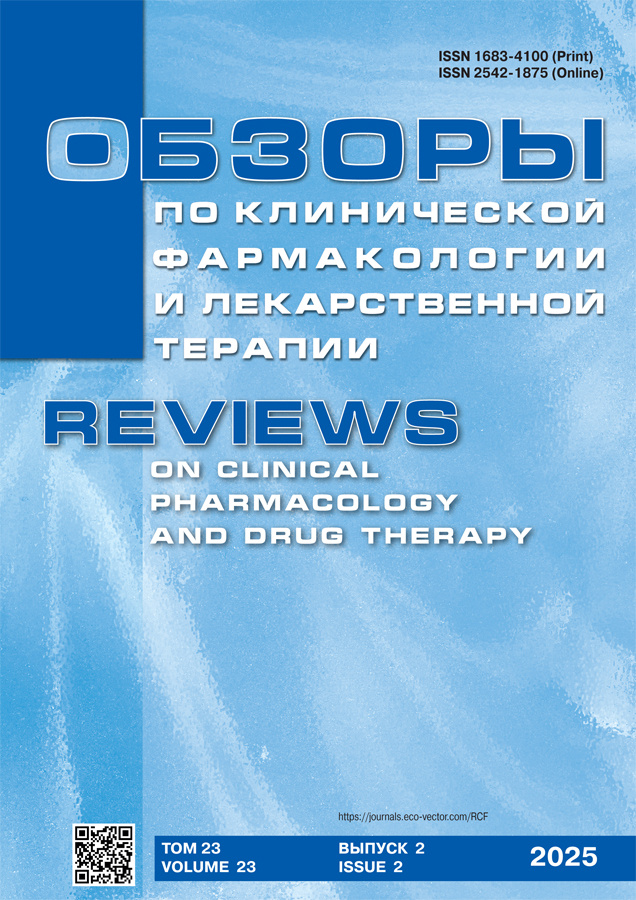
-
Reviews on Clinical Pharmacology and Drug Therapy
Medical peer-review journal for practitioners and researchers on clinical farmacology and drugs.
Editor-in-Cheif: Petr D. Shabanov, MD, PhD.
Indexing: CNKI, Embase, Scopus. Russian Science Citation Index
Publishes quarterly from 2002.
ISSN 1683-4100 (Print) ISSN 2542-1875 (Online)
-
Pediatric Traumatology, Orthopaedics and Reconstructive Surgery
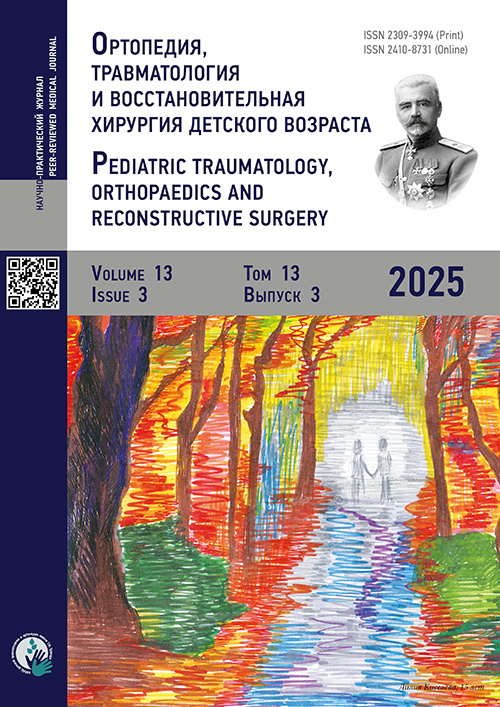
-
Pediatric Traumatology, Orthopaedics and Reconstructive Surgery
Medical peer-review journal for practitioners and researchers.
Editor-in-Chief: Baindurashvili A.G., MD, PhD, professor.
Indexing: Russian Science Citation Index, SCOPUS, Google Scholar, Ulrich's Periodical directory, CNKI, Dimensions.
Publishes quarterly from 2013.
ISSN: 2309-3994 (Print); ISSN: 2410-8731 (Online)
-
Ophthalmology Reports
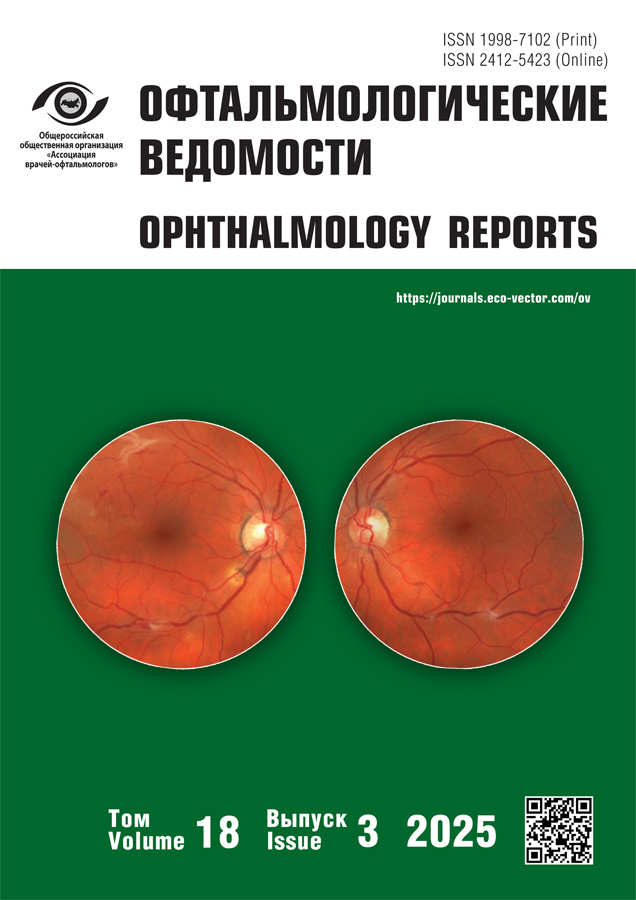
-
Ophthalmology Reports
Peer-review medical journal for practitioners and researchers on ophtalmology.
Editor-in-Cheif: professor Dmitriy V. Davydov
Indexing: SCOPUS, RSCI, Google Scholar, Ulrich's Periodicals directory, Dimensions, Crossref.
Publishes quarterly from 2008.
ISSN: 1998-7102 (Print); ISSN: 2412-5423 (Online)
-
Pediatrician (St. Petersburg)
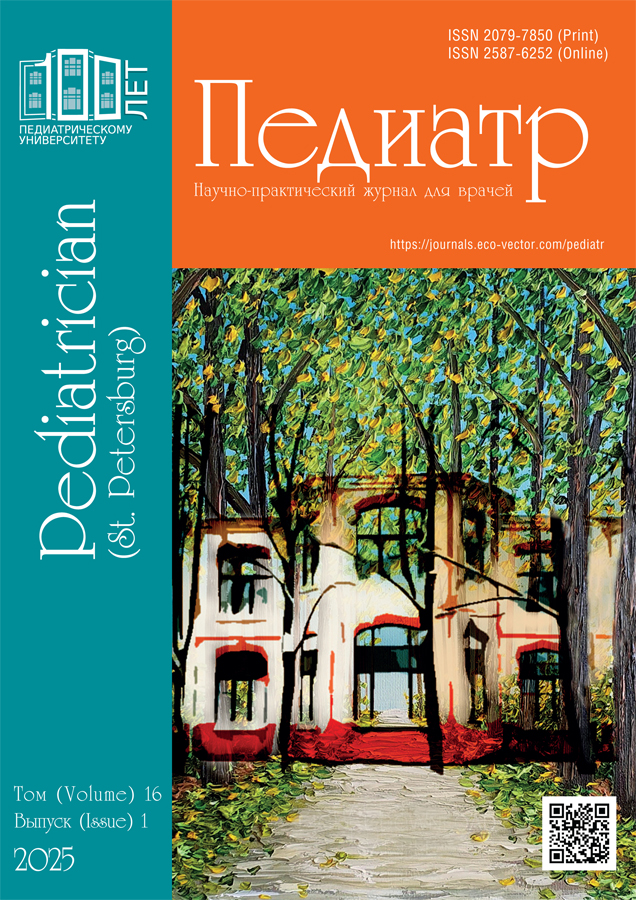
-
Pediatrician (St. Petersburg)
Scientific and practical peer-reviewed medical journal.
Published since 2010, 6 issues per year.
The Chief-editor: professor Dmitriy Ivanov.
ISSN 2079-7850 (Print) 2587-6252 (Online)
-
Pediatrics. Consilium Medicum
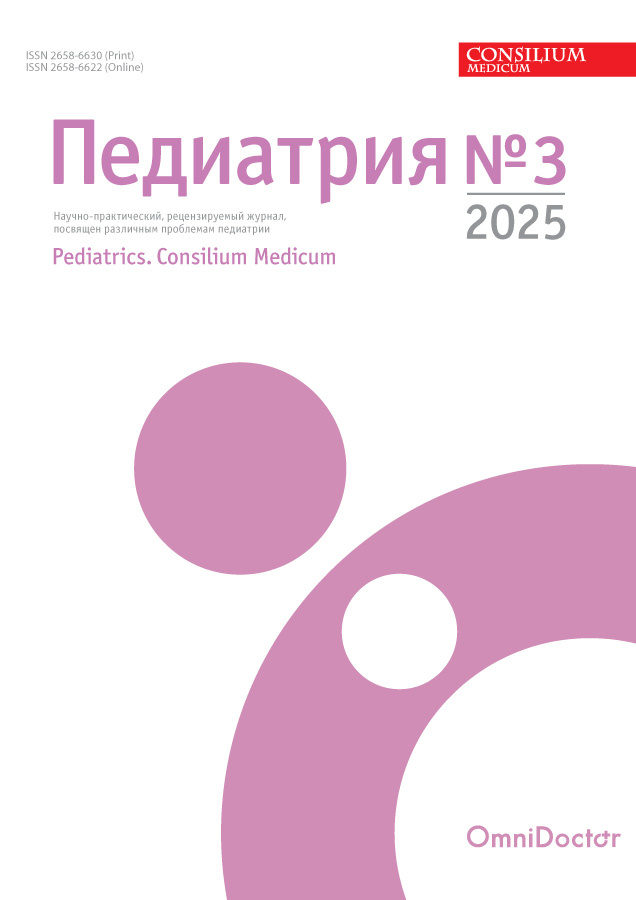
-
Pediatrics. Consilium Medicum
Scientific and practical journal «Pediatrics - suppl. Consilium Medicum» was first published in 2015, of about 80 pages of A4. The magazine is registered by the State Committee of the Russian Federation for Press as an organ of the central press (registration certificate PI no. FS77-64186) and is distributed by free thematic subscription among general practitioners, pediatricians, medical staff of higher educational and research institutions, health authorities of the Russian Federation.
-
Perm Medical Journal
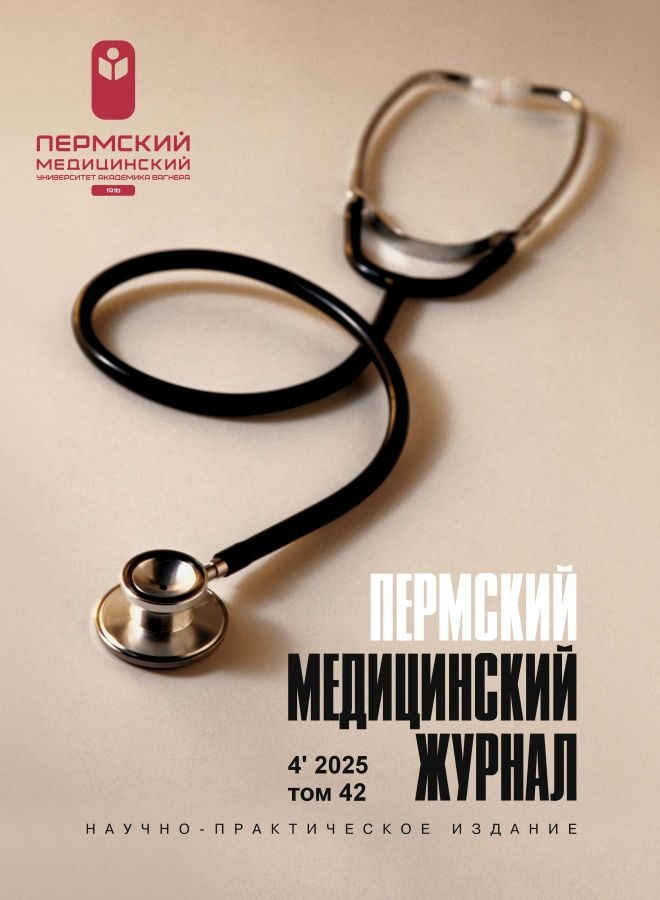
-
Perm Medical Journal
Medical peer-review journal for practitioners and researchers.
Issues quarterly.
Editor-in-Cheif: Olga V. Khlynova, MD, PhD, professor, Corresponding Member of the Russian Academy of Sciences
Indexing: Russian Science Citation Index, SCOPUS, Google Scholar, Ulrich's Periodical directory, CyberLeninka, Dimensions, Crossref.
Publishes from 1923 in Perm (Russia).
ISSN 0136-1449 (Print), ISSN 2687-1408 (Online)
-
Psychopharmacology and Addiction Biology
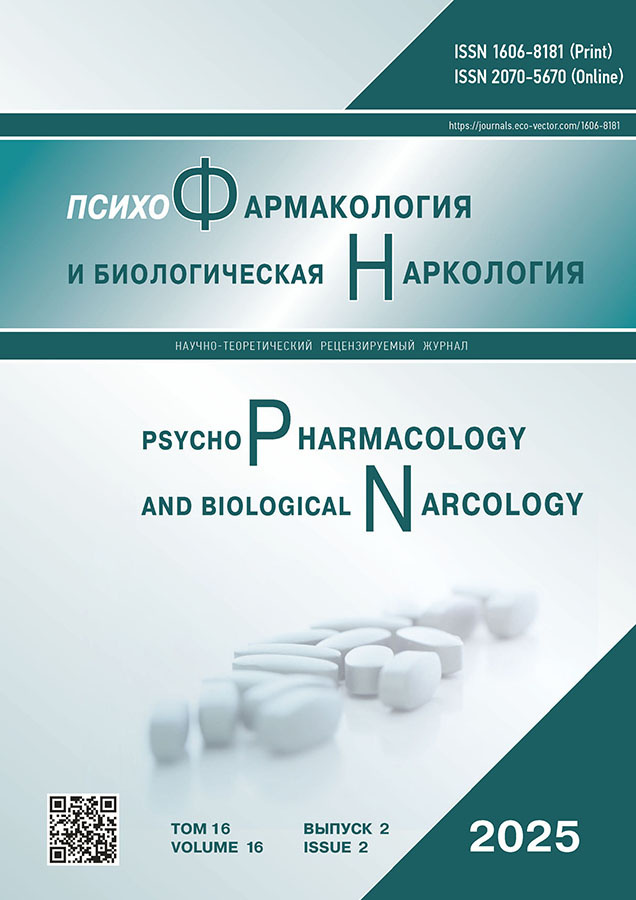
-
Psychopharmacology and Addiction Biology
Scientific and theoretical peer-reviewed journal
Publish quarterly since 2000 in Open Access.
Editor-in-Chief: professor Evgeny M. Krupitsky, MD.
Indexation: Russian Science Citation Index, Google Scholar, Ulrich's Periodicals directory, Dimensions.
ISSN 1606-8181(Print) ISSN 2070-5670 (Online)
-
Regional Anesthesia and Acute Pain Management
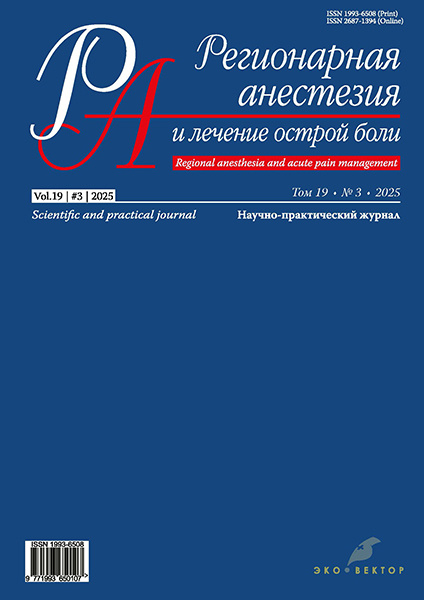
-
Regional Anesthesia and Acute Pain Management
Peer-review medical journal.
Publish quarterly since 2006.
Editor-in-Chief: Aleksey M. Ovechkin, MD, Dr. Sci. (Med).
Indexation: SCOPUS, Russian Science Citation Index, EBSCO, Google Scholar, Dimension, Ulrich's Periodicals Directory
Distribution hybrid (by subscription and in OA), publications with NO APC.
ISSN 1993-6508 (Print) ISSN 2687-1394 (Online)
-
Russian Pediatric Ophthalmology
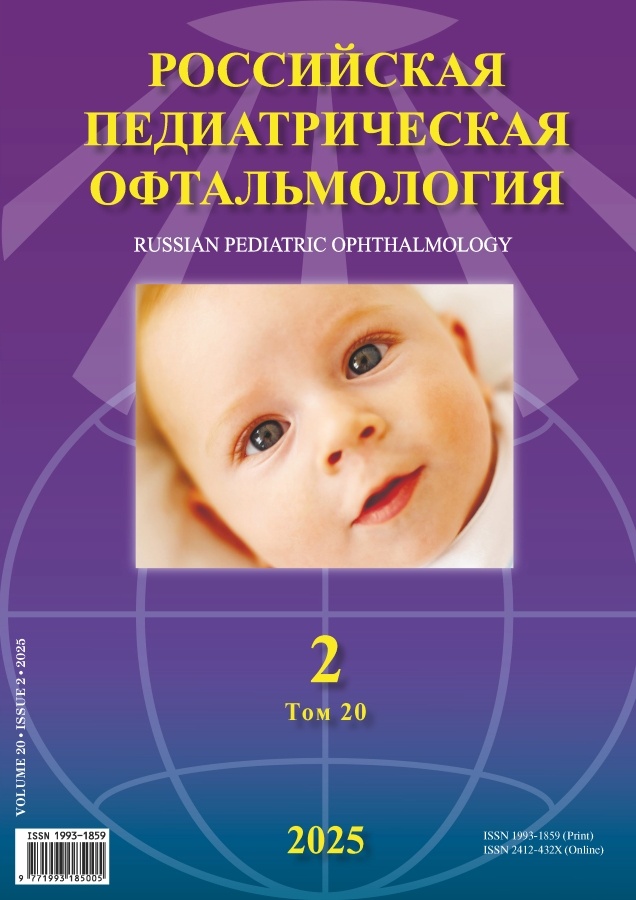
-
Russian Pediatric Ophthalmology
Peer-review medical journal.
Editor-in-Chief: Lyudmila A. Katargina, MD, Dr. Sci. (Medicine), professor
Indexation: Rusian Science Citation Index, Google Scholar, Ulrich's Periodicals Directory, Dimensions, CrossRef.
Open Access & Publication frequency: Hybrid Access (Open access articles with CC BY-NC-ND license); quarterly issuing; continuously publication online.
Peer-Review & APC: double blind; no obligatory article processing charges.
ISSN 1993-1859 (Print); ISSN 2412-432X (Online)
-
Russian Journal of Allergy

-
Russian Journal of Allergy
Peer-review medical journal.
Publish quarterly since 2004 in Delayed Open Access.
Editor-in-Chief: Natal'ya I. Il'ina, MD, Dr. Sci. (Med), Professor.
Indexing: Russian Science Citation Index, Google Scholar, Ulrich's Periodical directory, WorldCat.
ISSN 2686-682X (Online) ISSN 1810-8830 (Print)
-
Russian Journal of Pediatric Surgery, Anesthesia and Intensive Care

-
Russian Journal of Pediatric Surgery, Anesthesia and Intensive Care
Peer-review medical journal.
Publish quarterly since 2011 in Open Access.
Editor-in-Chief: Vladimir M. Rozinov, MD, PhD.
Indexation: Russian Science Citation Index, Google Scholar, Ulrich's Periodicals directory, WorldCat, SocioNet, CyberLeninka.
ISSN 2219-4061 (Print); ISSN 2587-6554 (Online)
-
Russian Journal of Skin and Venereal Diseases
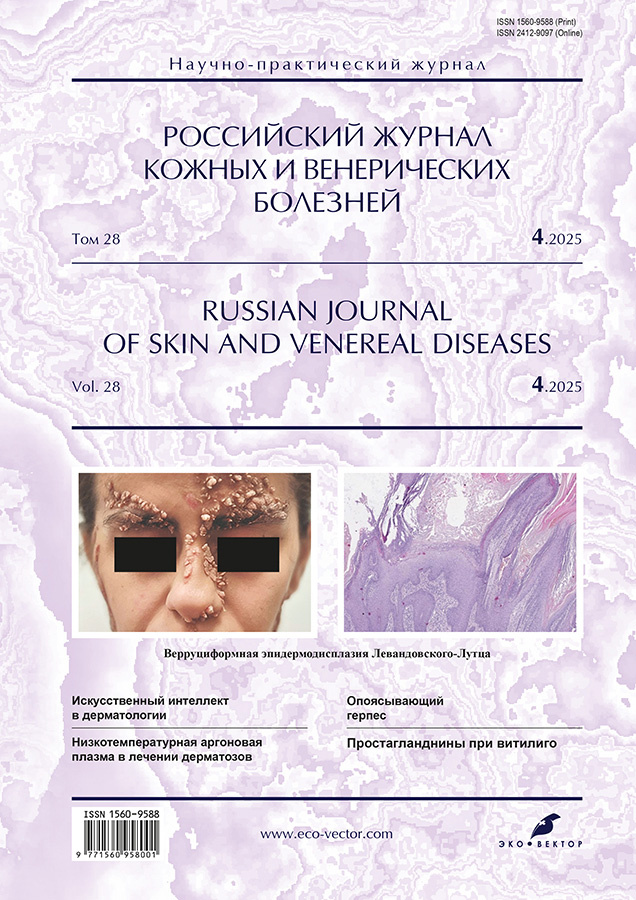
-
Russian Journal of Skin and Venereal Diseases
Peer-review medical bimonthly journal on dermatology, venereology and dermato-oncology.
Editor-in-Chief: prof. O.Y. Olisova, MD, PhD
Indexation: SCOPUS, RSCI, Google Scholar, Dimensions, Crossref
Publications: bimonthly, hybrid access (OA & subscription); with ASC
ISSN: 1560-9588 (Print); ISSN 2412-9097 (Online)
-
Russian Journal of Immunology

-
Russian Journal of Immunology
Peer-review quarterly medical journal.
Editor-in-Chief: Valery A. Chereshnev, MD, PhD, Professor
Open Access & Publication frequency: Platinum Open Access; 4 issues annualy; Online First; CC BY license.
Peer-Review & APC: double blind; no article processing charges.
Indexation: Web of Science (RSCI), WorldCat, Google Scholar, Ulrich's Periodicals Directory, EBSCO.
ISSN 1028-7221 (Print)
-
I.P. Pavlov Russian Medical Biological Herald
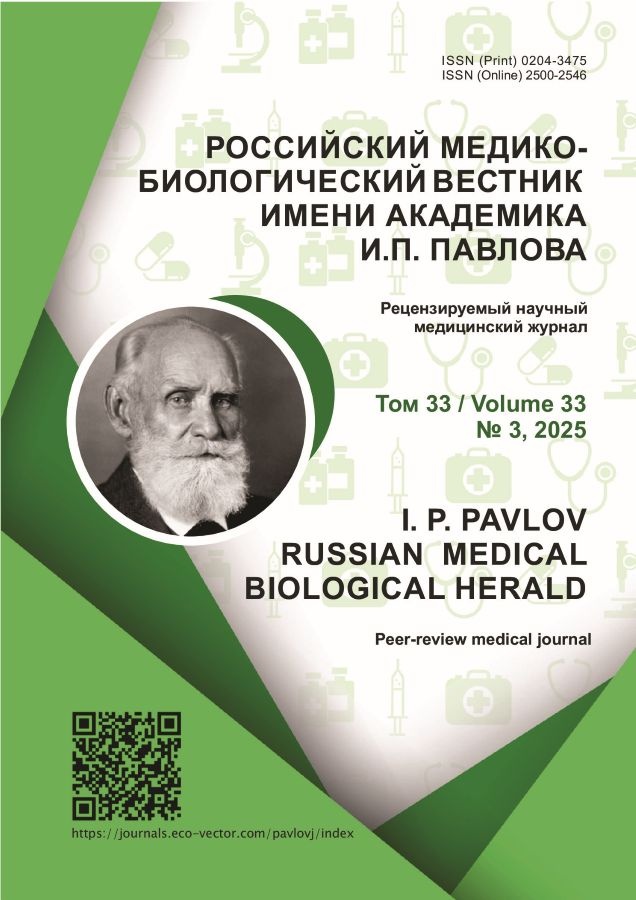
-
I.P. Pavlov Russian Medical Biological Herald
Peer-review quartely medical journal
Published since 1993.
Editor-in-Chief: professor Roman E. Kalinin.
Indexing: SCOPUS, RSCI, Google Scholar, Ulrich's Periodicals directory, ResearchBib, Dimensions.
ISSN 0204-3475 (Print) ISSN 2500-2546 (Online)
-
Russian Medicine
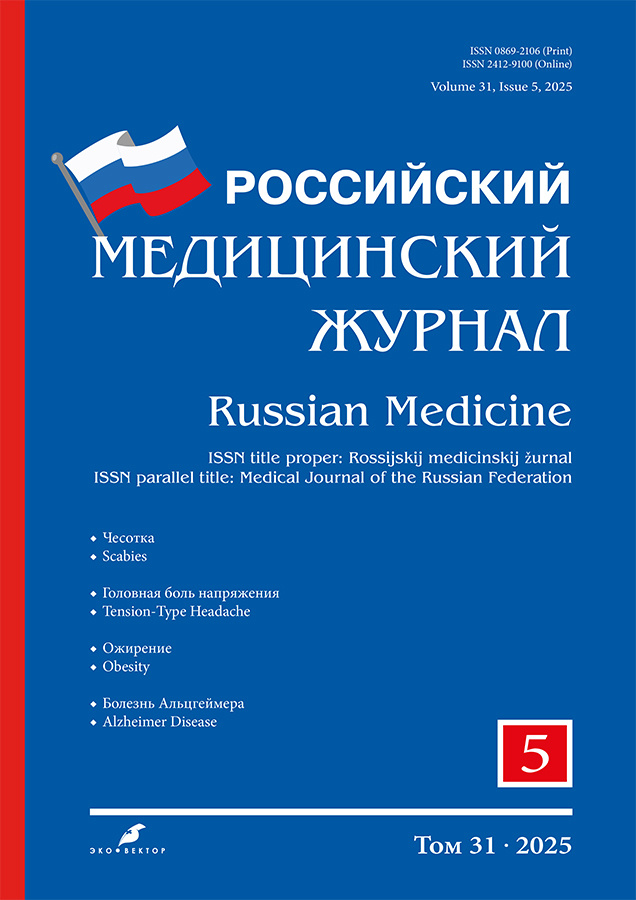
-
Russian Medicine
Peer-review medical journal.
Editor-in-Chief: Boris K. Romanov, MD, Dr. Sci. (Medicine)
Indexation: Scopus, Russian Science Citation Index, Russian Science Citation Index on the Web of Science platform, "White list" of scientific journals, level 2, CrossRef, Google Scholar, Ulrich’s Periodicals Directory, Dimensions, Supreme Attestation Commission of the Russian Federation (Q1).
Open Access & Publication frequency: Hybrid Access (Open access articles with CC BY license); bimonthly issuing; continuously publication online.
Peer-Review & APC: double blind; article submission charge.
ISSN: 0869-2106 (Print); ISSN: 2412-9100 (Online)
-
Russian Journal of Oncology
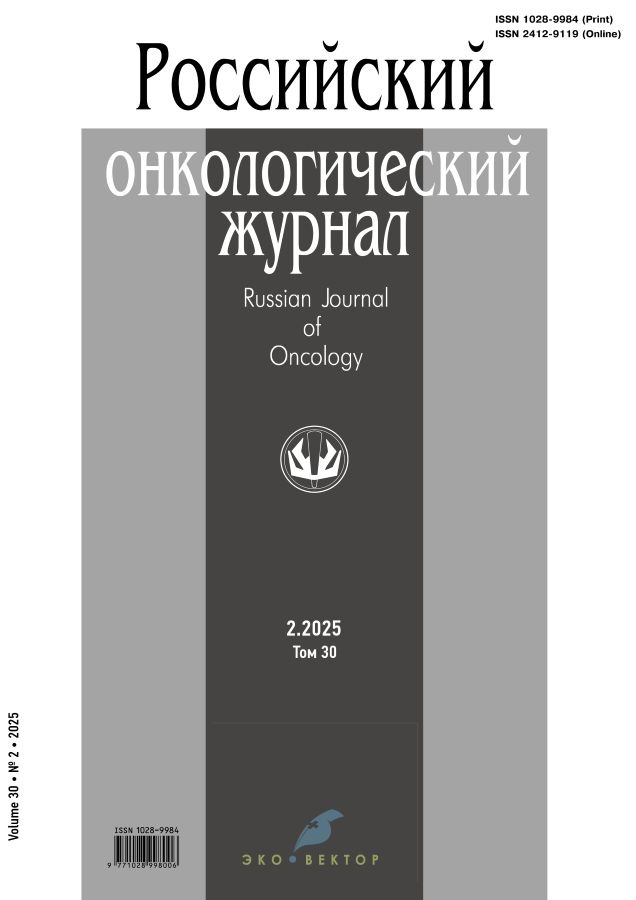
-
Russian Journal of Oncology
Peer-review bimonthly medical journal on oncology
Publications bimonthly with no APC and hybrid distribution model.
Editor-in-chief: prof. Aleksandr F. Lazarev, MD.
Indexation: Russian Science Citation Index, Embase, Google Scholar, Ulrich's Periodical directory, Dimensions.ISSN: 1028-9984 (Print) ISSN 2412-9119 (Online)
-
Russian Family Doctor
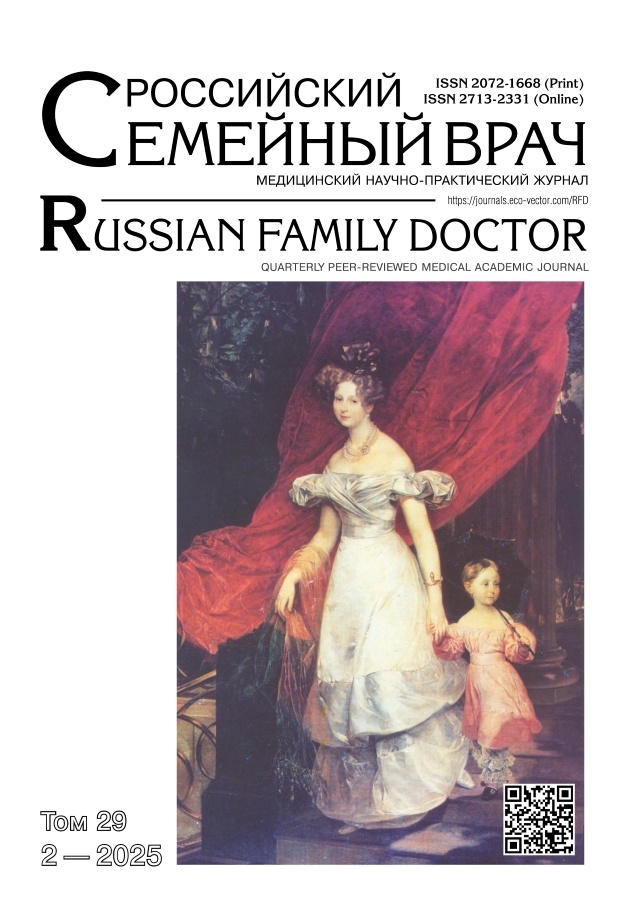
-
Russian Family Doctor
Medical peer-review journal for general practitioners and researchers on general and family medicine.
Publishes quarterly since 1997.
Editor-in-Cheif: Olga Y. Kuznetsova
Publisher: Eco-Vector Publishing group
Distribution: Hybrid access, CC BY-ND-ND for OA articles, Online First.
ISSN 2072-1668 (Print) ISSN 2713-2331 (Online)
-
Russian Journal of Dentistry
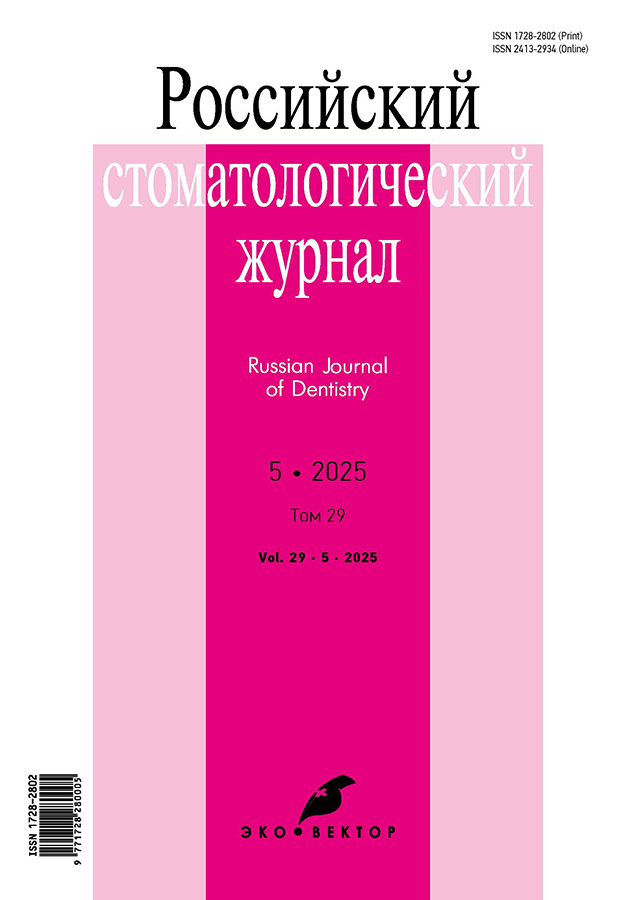
-
Russian Journal of Dentistry
Peer-review medical journal
Editor-in-chief: Prof. Valentina N. Olesova, MD, Dr. Sci. (Medicine)
Publications: bimonthly with no APC in hybrid distribution model
Indexation: Russian Science Citation Index (Web of Sciences), Google Scholar, Ulrich’s International Periodical Directory, Dimensions, CrossRef.
ISSN 1728-2802 (Print) ISSN 2413-2934 (Online)
-
Systemic Hypertension
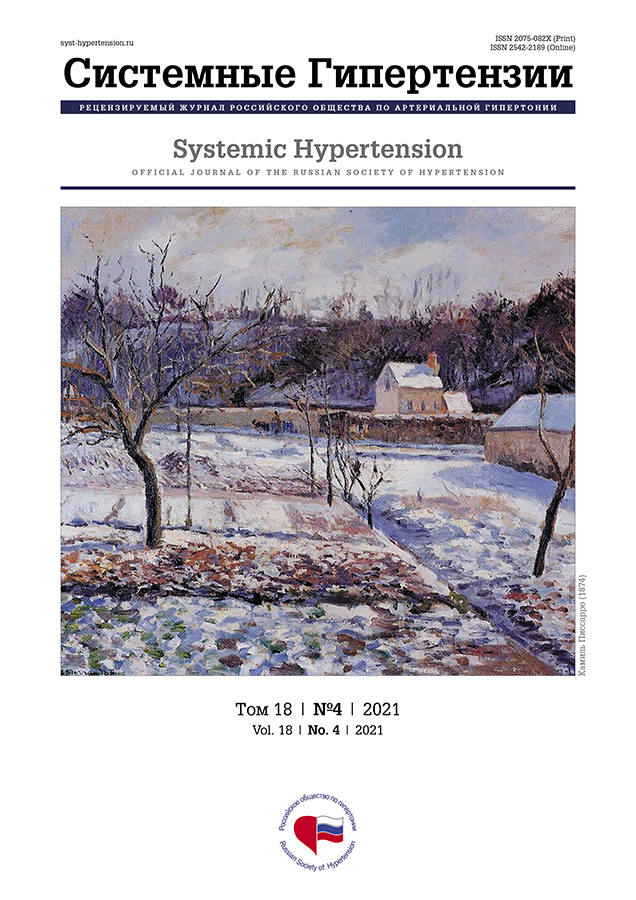
-
Systemic Hypertension
Peer-review medical journal.
Editor-in-Chief: Irina E. Chazova, MD, PhD, Professor.
Indexation: RSCI on Web of Science, Google Scholar, Ulrich's Periodicals Directory, WorldCat.
Publications: Gold Open Access; 4 issues annualy (quarterly) under CC BY SA 4.0 International License.
ISSN: 2075-082X (Print) ISSN: 2542-2189 (Online)
-
Journal of Modern Oncology
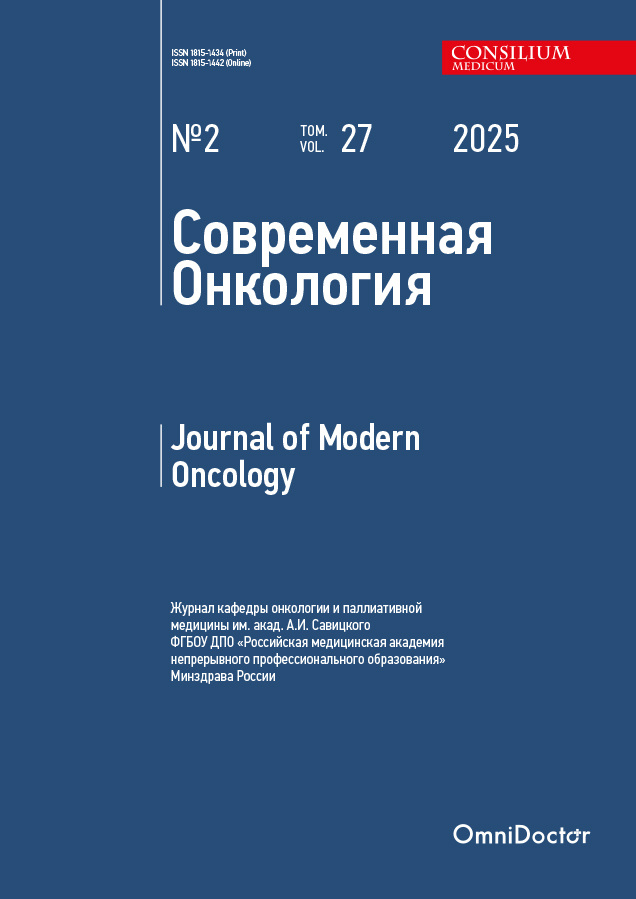
-
Journal of Modern Oncology
Peer-review medical journal in the field of oncology.
Рецензируемый научно-практический медицинский журнал по онкологии.
Editor-in-Chief: Irina V. Poddubnaya, MD, PhD, Professor
Publish since 1999 quarterly in Open Access.
Indexation: SCOPUS, Russian Science Citation Index, Google Scholar, Ulrich's Periodicals Directory, WorldCat, Cyberleninka.
ISSN 1815-1434 (print), ISSN 1815-1442 (online)
-
Sociology of Medicine
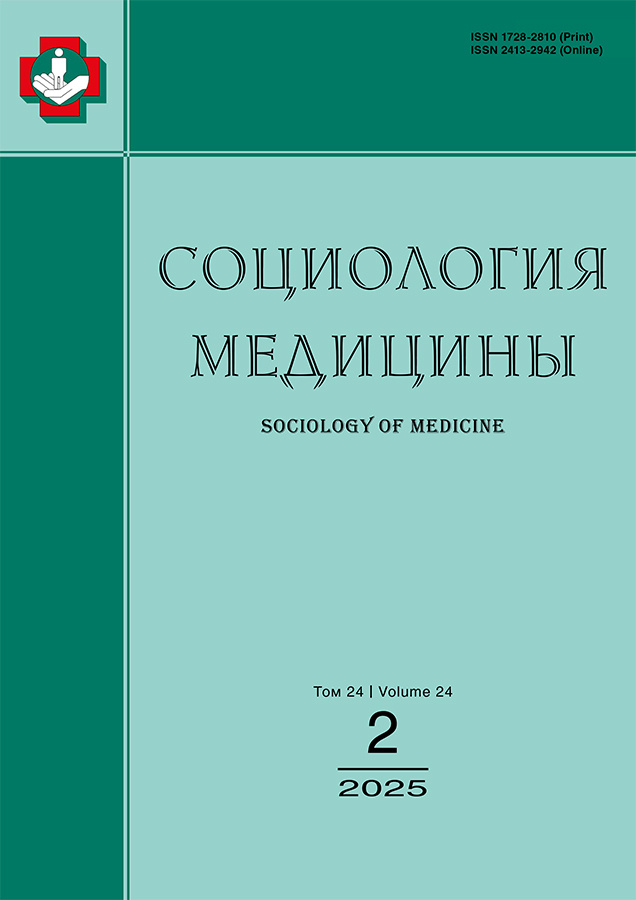
-
Sociology of Medicine
Peer-review medical journal
Publish semiannually since 2002 in hybrid.
Editor-in-chief: prof. Andrey V. Reshetnikov, MD.
Indexation: Science Index (eLibrary.ru), Google Scholar, Ulrich's Periodical directory, Dimensions.
ISSN: 1728-2810 (Print); ISSN: 2413-2942 (Online)
-
Russian Journal of Forensic Medicine

-
Russian Journal of Forensic Medicine
Peer-review medical journal.
Publish quarterly since 2015 г. in Open Access.
Editor-in-Chief: Vladimir A. Klevno, MD, PhD.
Indexing: Russian Science Citation Index, Google Scholar, Ulrich's Periodical directory, WorldCat, CyberLeninka.
ISSN 2411-8729 (Print) ISSN 2409-4161 (Online)
-
Terapevticheskii arkhiv
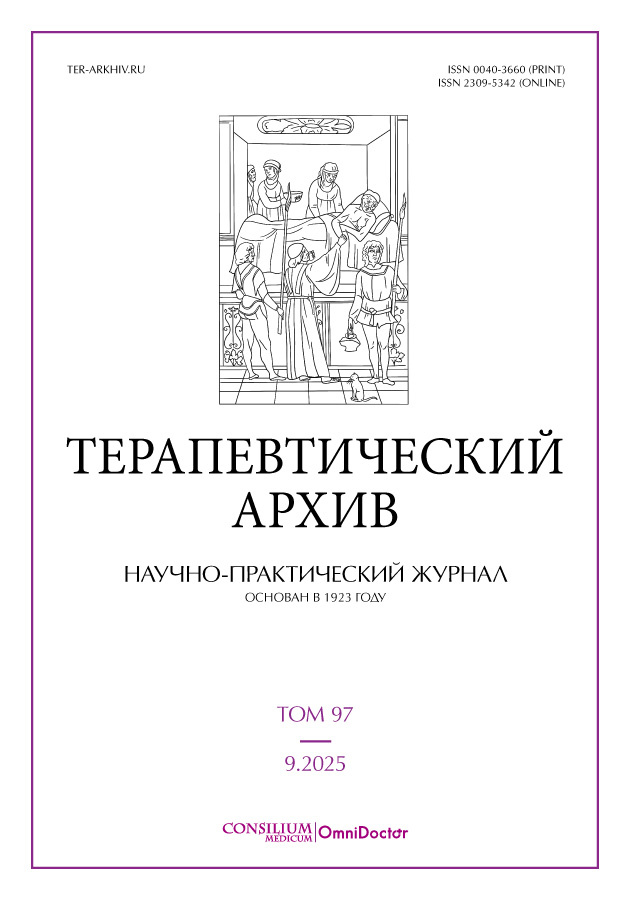
-
Terapevticheskii arkhiv
Peer-review medical journal
Editor-in-Chief: Irina E. Chazove, MD, Dr.Sci. (Med.), Professor.
Indexation: RSCI (Russian Science Citation Index), PubMed/Medline, Index Medicus, Scopus, Web of Science Core Collection (Science Citation Index Expanded), Web of Science (Russian Science Citation Index - RSCI, Current Contents Connect, BIOSIS Previews), Google Scholar, Ulrich's Periodicals Directory, WorldCat.
Open Access & Publication Frequency: Platinum Open Access; 12 issues annualy (monthly journal).
ISSN 0040-3660 (Print), ISSN 2309-5342 (Online)
-
Therapy
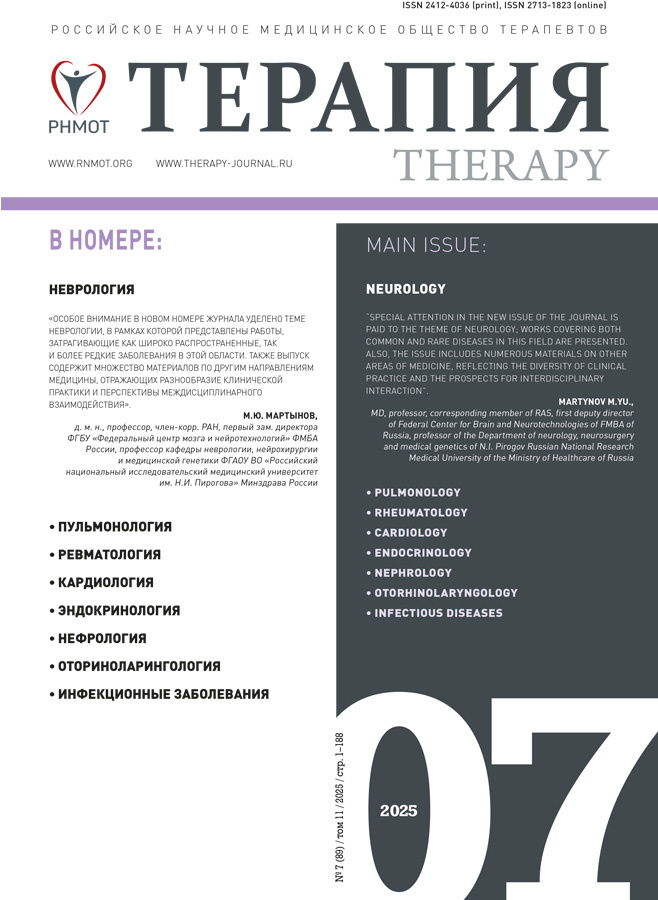
-
Therapy
Scientific peer-reviewed medical journal.
Publish 10 issues per year since 2015
Editor-in-Chief: Anatoliy I. Martynov, academician of RAS, MD, professor
Indexation: Russian Science Citation Index, Google Scholar, Ulrich's Periodicals Directory, WorldCat.
ISSN 2412-4036 (Print), 2713-1823 (Online)
-
Toxicological Review
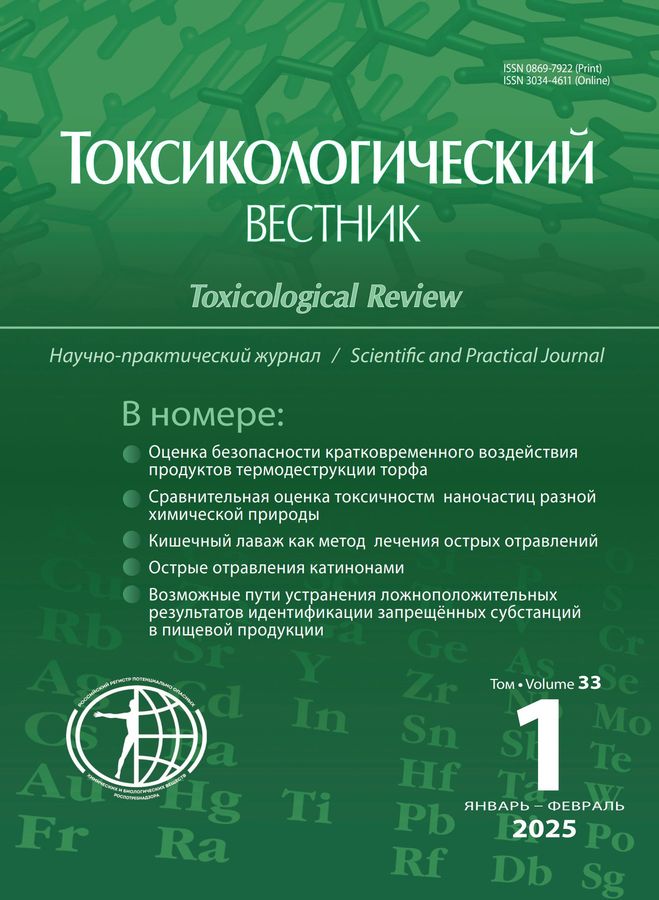
-
Toxicological Review
A peer-reviewed scientific medical journal
Editor-in-Chief: Khalidia Kh. Khamidulina, MD, Prof., ORCID: 0000-0001-7319-5337
Published: 6 times a year, since 1993
Indexing: Russian Science Citation Index, RSCI, Google Scholar, EBSCO Publishing, Ulrich's Periodicals Directory
ISSN 0869-7922 (Print)
-
Traumatology and Orthopedics of Russia

-
Traumatology and Orthopedics of Russia
Peer-review medical journal on traumatology and ortopaedics
Editor-in-Chief: Professor Rashid M. Tikhilov, MD, PhD.
Indexation: Web of Science (RSCI, ESCI), Russian Science Citation Index, DOAJ, Google Scholar, Ulrich's Periodicals Directory, WorldCat.
Open Access & Publication frequency: Platinum Open Access; quarterly issuing; CC BY license.
Peer-Review & APC: double blind; no article processing charge.
ISSN 2311-2905 (Print) ISSN 2542-0933 (Online)
-
Acta Universitatis Dentistriae et Chirurgiae Maxillofacialis
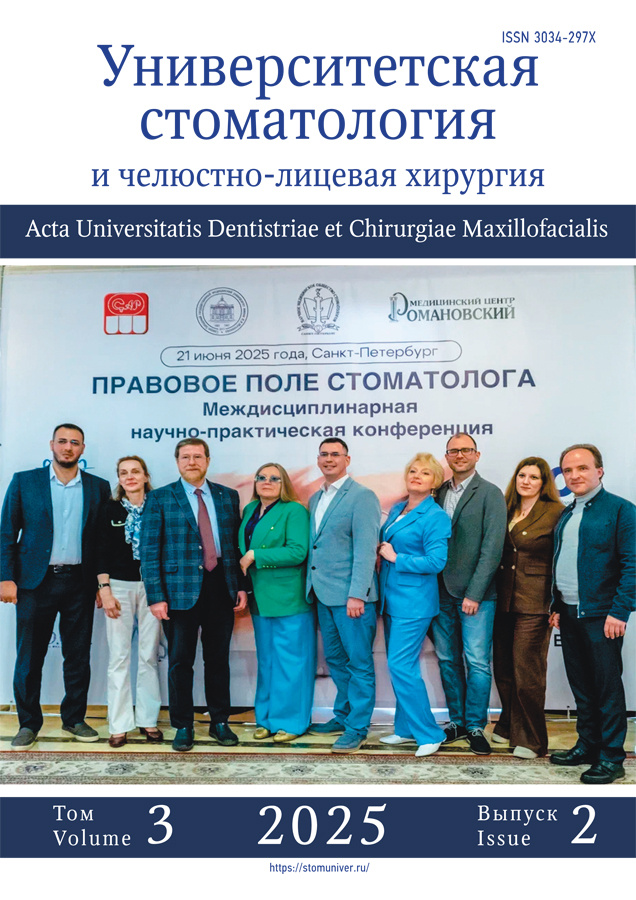
-
Acta Universitatis Dentistriae et Chirurgiae Maxillofacialis
Peer-review medical journal.
Editor-in-Chief: Professor Roman Fadeev, MD, PhD.
Open Access & Publication frequency: Gold Open Access; quarterly issuing.
Peer-Review & APC: double blind; no article processing charge.
ISSN 3034-297X (Online)
-
Urology reports (St. - Petersburg)

-
Urology reports (St. - Petersburg)
Рeer-review medical academic journal.
Main fields: health sciences (urology).
Editor-in-Cheif: professor Igor V. Kuzmin, MD, Dr. Sci. Med.
Indexing: Scopus, Russian Science Citation Index, Google Scholar, Ulrich's Periodicals directory, Dimensions, Crossref.
Publishes quarterely from 2011.
ISSN: 2225-9074 (Print) ISSN 2687-1416 (Online)
-
Urologiia
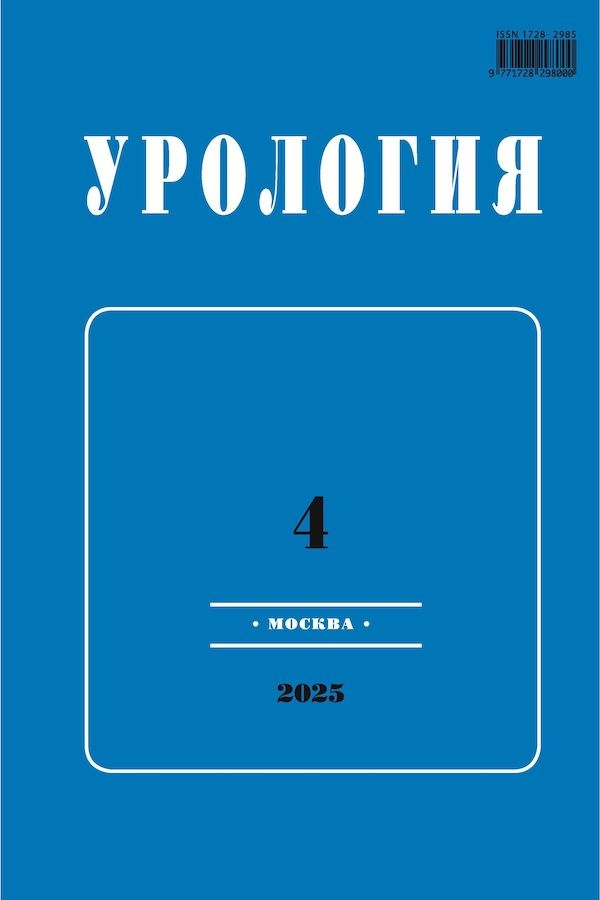
-
Urologiia
Scientific peer-reviewed medical journal.
Publish 6 issues per year since 1999
Editor-in-Chief: Yury G. Alyaev, corresponding member of RAS, MD, professor
Indexation: Russian Science Citation Index, Google Scholar, Ulrich's Periodicals Directory, WorldCat.
ISSN 1728-2985 (Print), 2414-9020 (Online)
-
Pharmateca
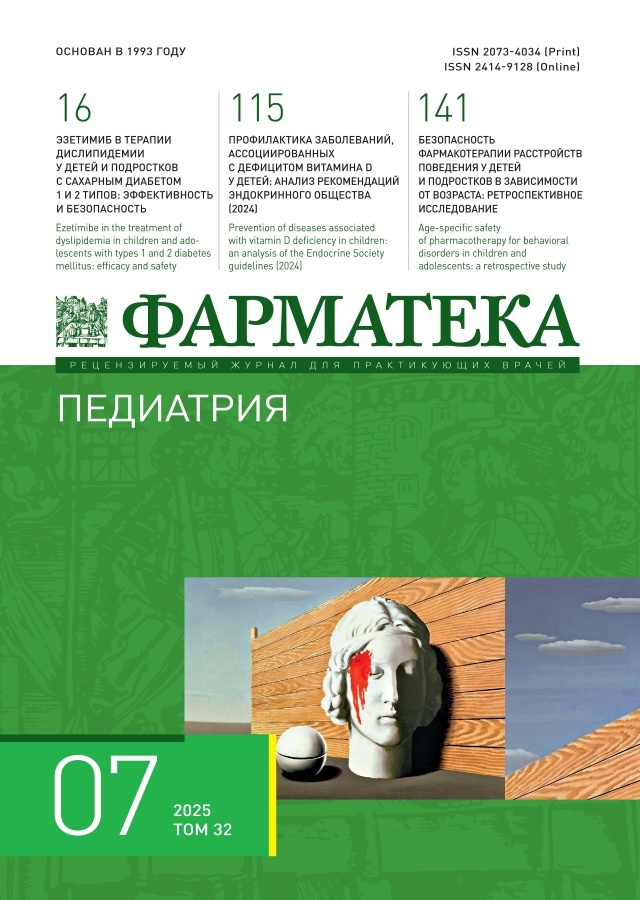
-
Pharmateca
Peer-review scientific medical journal
Publish 14 issues per year since 1993.
Editor-in-Chief: Dmitry A. Sychev,Doctor of Medical Sciences, Professor, Corresponding Member of RAS
Indexation: Russian Science Citation Index, EBSCO, VINITI, I2OR, Google Scholar, Ulrich's Periodicals directory, WorldCat.
ISSN 2073-4034 (Print), 2414-9128 (Online)
-
Farmaciya (Pharmacy)
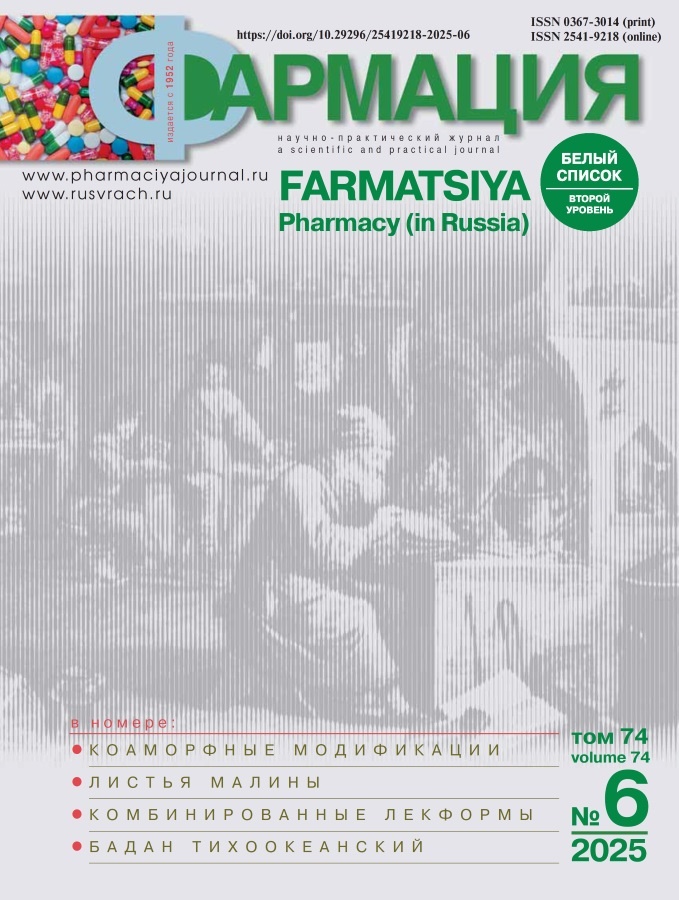
-
Farmaciya (Pharmacy)
Peer-review scientific and practical medical journal
Publish 8 issues per year since 1952.
Editor-in-Chief: Irina A. Samylina, Doctor of of Pharmaceutical Sciences, Corresponding Member of the RAS
Indexation: Russian Science Citation Index, Google Scholar, EBSCO, Chemical Abstracts Service (CAS), Scientific Indexing Services (SIS), Ulrich's Periodicals directory, WorldCat.
ISSN 0367-3014 (Print) ISSN 2541-9218 (Online)
-
Pharmacy & Pharmacology
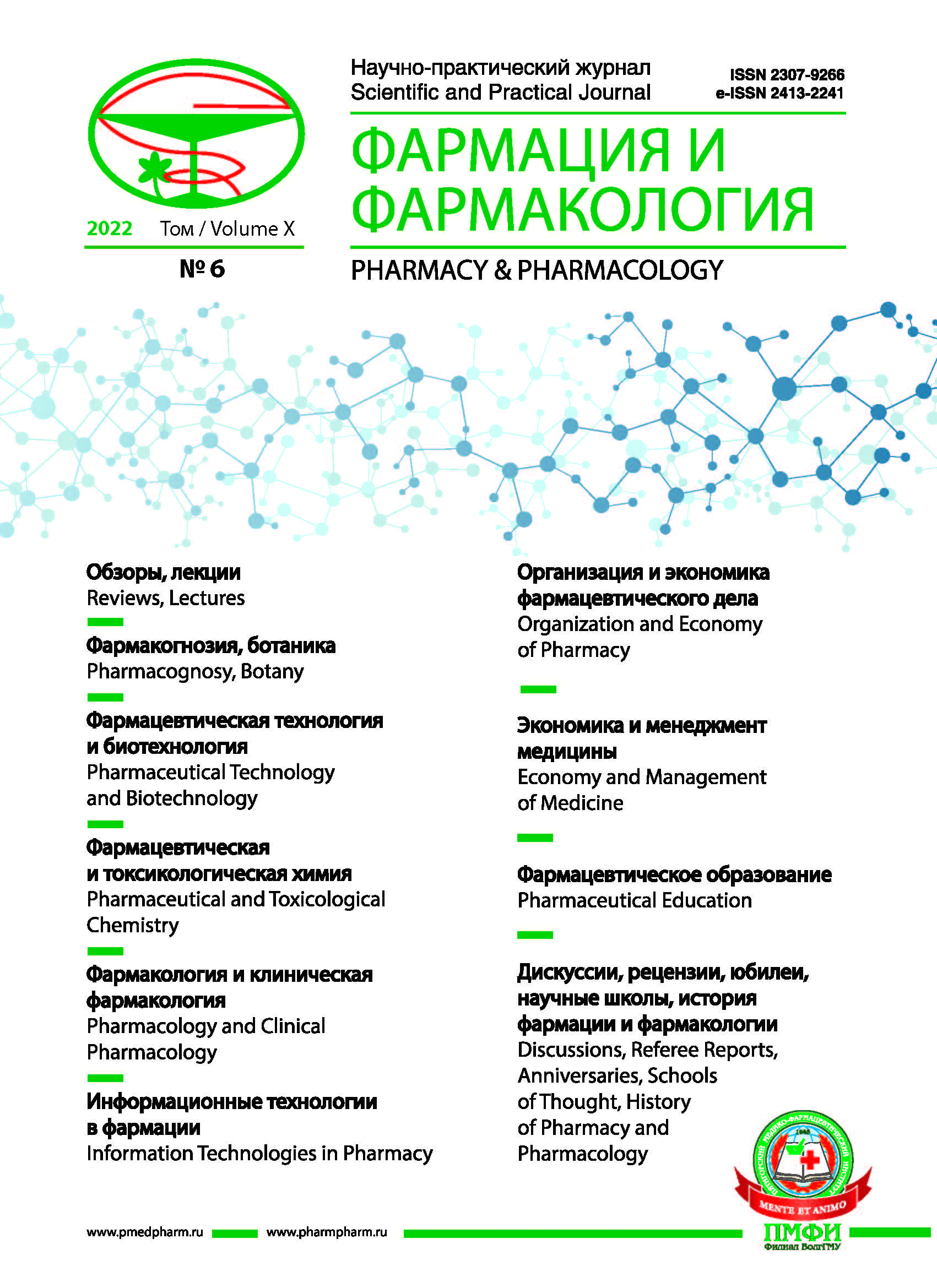
-
Pharmacy & Pharmacology
Peer-review medical journal
Publish 6 issues per year since 2013 in Open Access.
Editor-in-Chief: professor Vladimir I. Petrov, MD.
Indexation: Russian Science Citation Index, Google Scholar, Ulrich's Periodicals directory, WorldCat.
ISSN 2307-9266 (Print) ISSN 2413-2241 (Online)
-
Russian Journal of Physiotherapy, Balneology and Rehabilitation
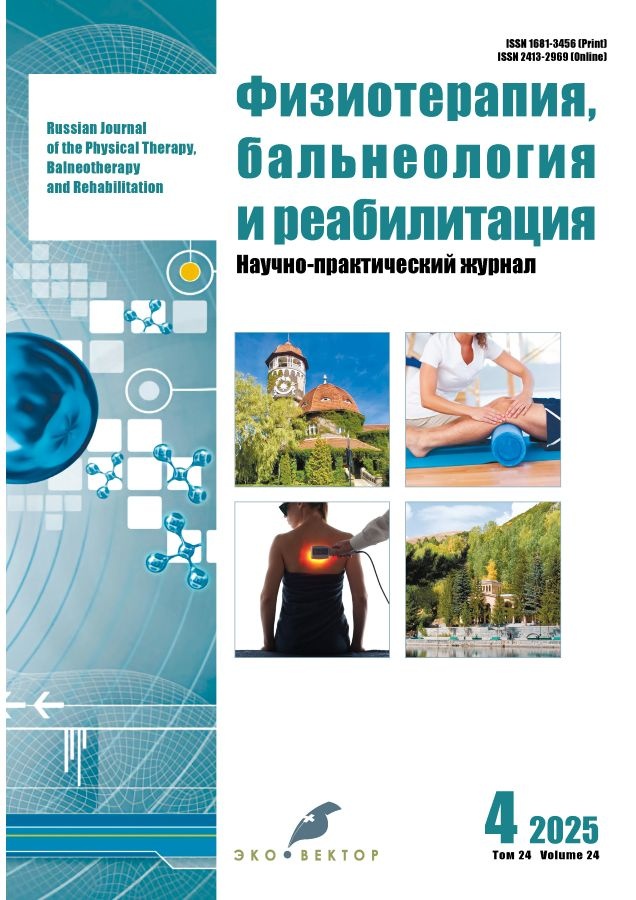
-
Russian Journal of Physiotherapy, Balneology and Rehabilitation
Peer-review medical journal
Editor-in-chief: Prof. Nataly N. Korchazhkina, MD, Dr. Sci. (Medicine)
Publications: bimonthly with no APC in hybrid distribution model
Indexation: Russian Science Citation Index, Google Scholar, Ulrich’s International Periodical Directory, Dimensions, CrossRef.
ISSN 1681-3456 (Print) ISSN 2413-2969 (Online)
-
Physical and rehabilitation medicine, medical rehabilitation
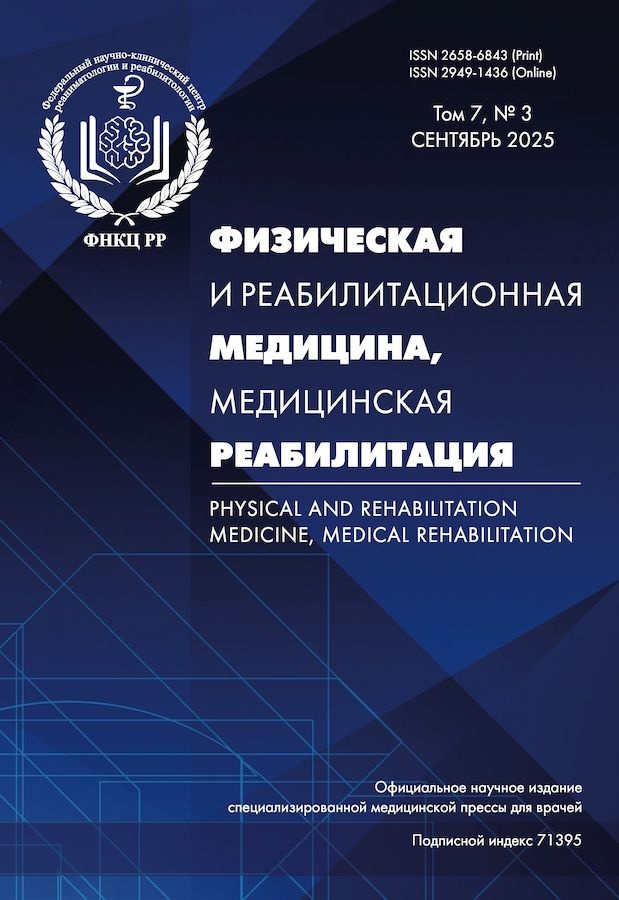
-
Physical and rehabilitation medicine, medical rehabilitation
Peer-review journal for rehabilitation and recreation medicine.
Editor-in-Chief: professor Galina E. Ivanova
Publish: quarterly since 2019 in Open Access (CC BY 4.0).
Indexing: Russian Science Citation Index, Google Scholar, Ulrich's Periodicals directory.
ISSN: 2658-6843 (Print)
-
Pharmacy Formulas
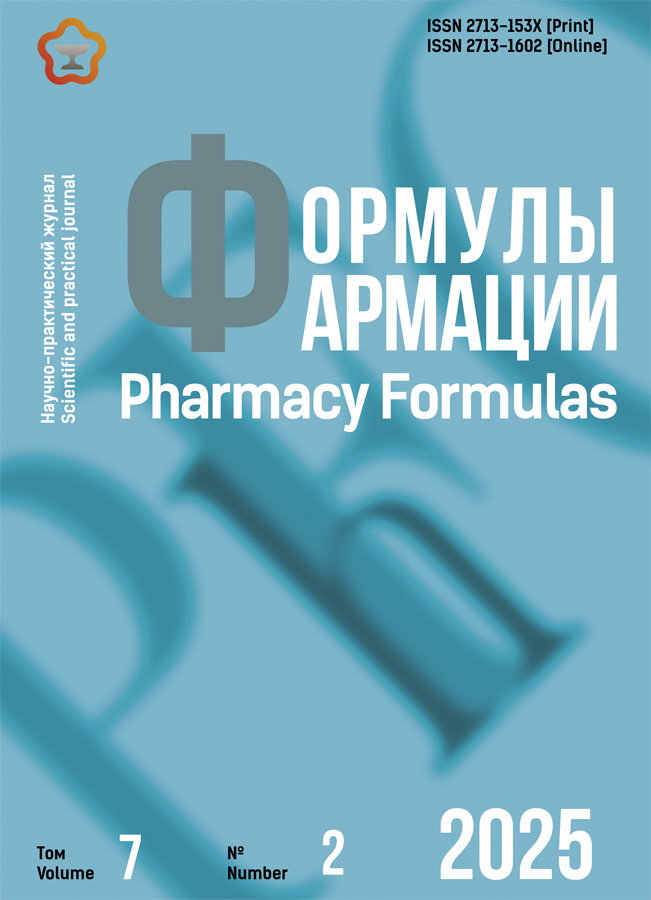
-
Pharmacy Formulas
Медицинский и биологический рецензируемый журнал.
Главный редактор : д.м.н., профессор Перелыгин Владимир
Индексирование : Google Scholar, WorldCat, РИНЦ
ISSN : (Печать); ISSN : (онлайн)
-
Cytokines and inflammation
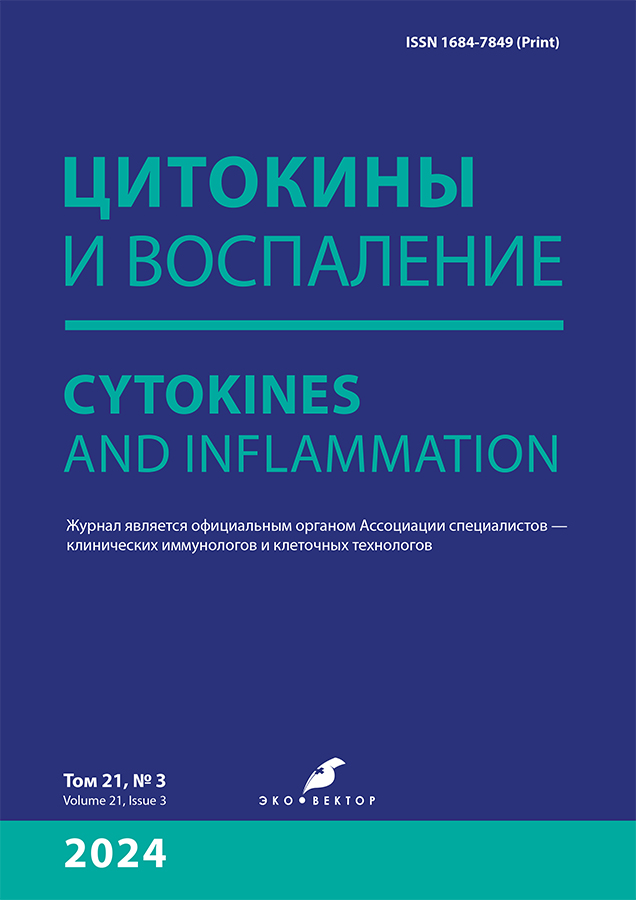
-
Cytokines and inflammation
Peer-review quarterly medical journal
Editor-in-Chief: Andrey S. Simbirtsev, Dr. Sci. (Med.), Professor, Corresponding Member of the Russian Academy of Sciences
Indexation: Russian Science Citation Index, VINITI, Ulrich's Periodical Directory, CrossRef, Dimensions, Google Scholar.
Frequency of publication: 4 issues per year.
ISSN: 1684-7849 (Print)
-
Ecological genetics

-
Ecological genetics
Medical and biology peer-review journal.
Editor-in-Chief: Sergei G. Inge-Vechtomov
Frequency: 4 issues per year, since 2003.
Indexation: SCOPUS, РИНЦ, Russian Science Citation Index, Google Scholar, CrossRef, WorldCat, SciLit, OpenAlex, Dimensions, ABCD, FatCat, SciLit, Scholia, Wikidata
ISSN 1811-0932 (Print), 2411-9202 (Online)
-
Ekologiya cheloveka (Human Ecology)

-
Ekologiya cheloveka (Human Ecology)
Peer-review journal for practitioners and researchers.
Editor-in-Chief: Tatiana N. Unguryanu, MD, PhD.
Indexing: Russian Science Citation Index, SCOPUS, Google Scholar, Ulrich's Periodical directory, Cyberleninka.
Publishes monthly from 1994 in Open Access.
ISSN: 1728-0869 (Print)
-
Epidemiology and Infectious Diseases
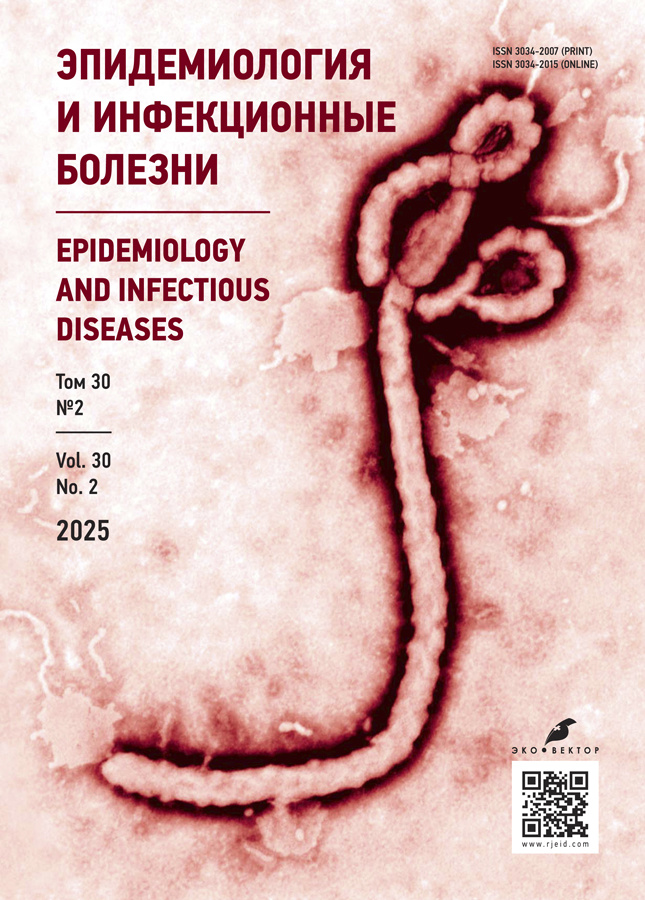
-
Epidemiology and Infectious Diseases
Peer-review medical journal.
Editor-in-Chief: prof Vladimir V. Nikiforov, MD, PhD.
Indexation: Russian Science Citation Index, Google Scholar, Ulrich's Periodicals Directory, Dimensions.
Publications: issues bimonthly (6 times per year), articles available via subscription and in OA.
ISSN 3034-2007 (Print), ISSN 3034-2015 (Online)
-
Epidemiology and Infectious Diseases. Current Items
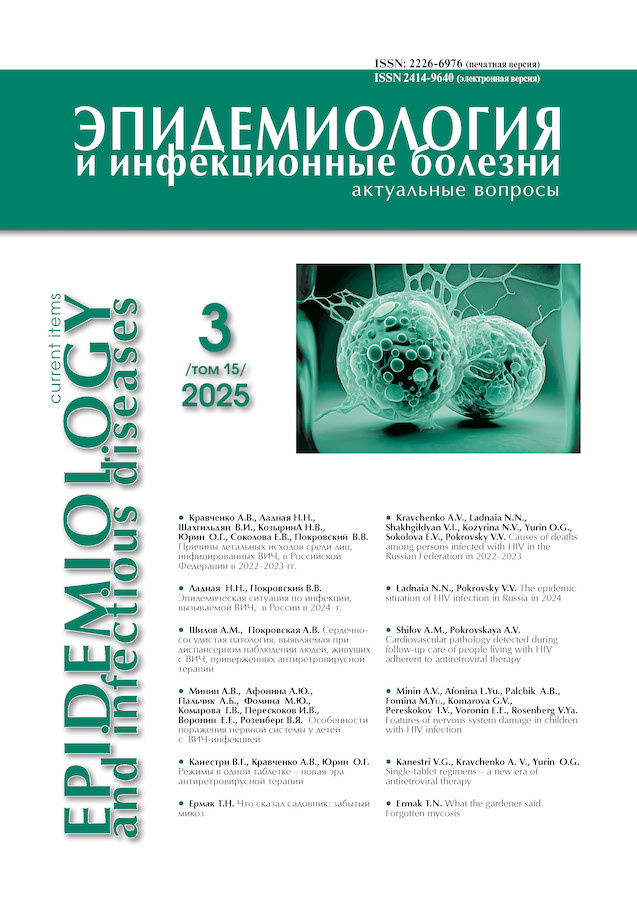
-
Epidemiology and Infectious Diseases. Current Items
Scientific peer-reviewed medical journal.
Publish 4 issues per year since 2011
Editor-in-Chief: Professor Vasiliy G. Akimkin, MD (Scientific Editor); Academician of the Russian Academy of Sciences
Indexation: Russian Science Citation Index, EBSCO, Google Scholar, Ulrich's Periodicals Directory, WorldCat.
ISSN 2226-6976 (Print), 2414-9640 (Online)
-
Bulletin Samara State Agricultural Academy
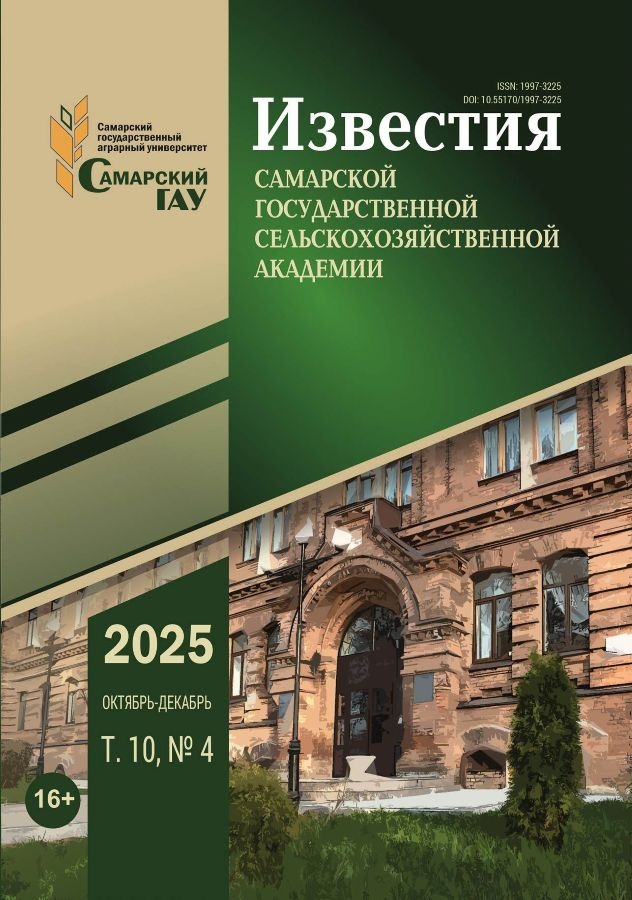
-
Bulletin Samara State Agricultural Academy
Peer-review quarterly academic journal for biology, biotechnology and plant science.
Editor-in-Chief: Mashkov Sergey V. – Candidate of Economic Sciences, Associate Professor.
Indexing: Russian Science Citation Index (eLIBRARY.ru), AGRIS, Urlich’s Periodicals Directory.
ISSN: 1997-3225 (Print) ISSN: 2782-4225 (Online)
-
Tractors and Agricultural Machinery

-
Tractors and Agricultural Machinery
Academic research peer-review journal.
Editor-in-Chief: Valery Kaminsky, Ph.D., Professor
Indexing: SCOPUS, Russian Science Citation Index, Google Scholar, Ulrich's Periodicals Directory, Dimensions, Crossref.
ISSN: 0321-4443 (Print)
-
Refrigeration Technology

-
Refrigeration Technology
Technical peer-review quarterly journal.
Editor-in-Chief: Maxim. S. Talyzin, Cand. Sci. (Tech.).
Indexing: WorldCat; AGRIS; Google Scholar; BASE; RSCI.
ISSN 0023-124X (Print) ISSN 2782-4241 (Online)
-
World Eсonomy and International Relations

-
World Eсonomy and International Relations
ISSN (print): 0131-2227 ISSN (online): 2782-4330
Founders: E.M. Primakov National Research Institute of World Economy and International Relations of the Russian Academy of Sciences (Moscow); Russian Academy of Sciences (Moscow)
Editor-in-Chief: Andrej V. Ryabov
Frequency / Assess: 12 issues per year / Subscription
Included in: RUS White List, Higher Attestation Commission List, RISC
-
Auxiliary historical disciplines

-
Auxiliary historical disciplines
ISSN (print): 0130-0865
Founder: St. Petersburg Institute of History of the Russian Academy of Sciences
Editor-in-Chief: Alexey V. Sirenov, Corresponding Member of the Russian Academy of Sciences, Dr. Sci.
Frequency / Assess: 4 issues per year / Subscription
Included in: Higher Attestation Commission List, RISC
-
Written Monuments of the Orient
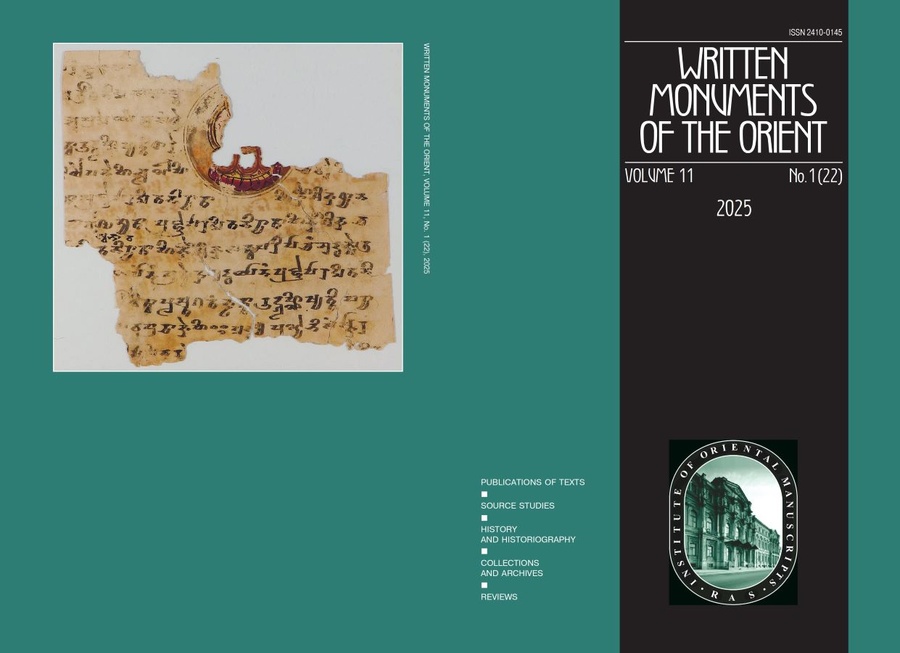
-
Written Monuments of the Orient
“Written Monuments of Orient” is a biannual academic journal covering research on the written heritage of the peoples of Asia.
Editor-in-Chief: Irina Popova, Institute of Oriental Manuscripts, RAS, St. Petersburg
Indexing: Scopus, elibrary.ru, Google Scholar, Ulrich's Periodicals directory.
ISSN: 2410-0145 (Print)
-
Aspirantskiy Vestnik Povolzhiya

-
Aspirantskiy Vestnik Povolzhiya
Peer-review academic journal for clinical medicine, pharmaceutical and philosophical sciences.
Editor-in-Chief: Full member of Russian Academy of Sciences, professor G.P. Kotelnikov.
Indexing: Russian Science Citation Index, Google Scholar, Ulrich's Periodicals directory, WorldCat.
ISSN: 2072-2354 (Print); ISSN: 2410-3764 (Online)
-
Bioethics journal

-
Bioethics journal
Peer-review academic journal.
Publish semianually since 2008 in Delay Open Access.
Editor-in-Chief: Vladimir I. Petrov, MD, PhD, Professor.
Indexation: Russian Science Citation Index, Google Scholar, WorldCat, Ulrich's Periodicals Directory
ISSN 2070-1586 (Print) ISSN 2782-6589 (Online)
-
Science Vector of Togliatti State University. Series: Pedagogy, Psychology

-
Science Vector of Togliatti State University. Series: Pedagogy, Psychology
Peer-review journal
Publish quarterly since 2010 in Open Access.
Editor-in-Chief: professor M.M. Krishtal.
Indexation: Russian Science Citation Index, Google Scholar, Ulrich's Periodicals directory, CrossRef, Dimensions
ISSN 2221-5662 (Print)
-
Science Vector of Togliatti State University. Series: Economics and Management

-
Science Vector of Togliatti State University. Series: Economics and Management
Peer-review journal
Publish quarterly since 2010 in Open Access.
Editor-in-Chief: professor M.M. Krishtal.
Indexation: Russian Science Citation Index, Google Scholar, Ulrich's Periodicals directory, CrossRef, Dimensions
ISSN 2221-5689 (Print)
-
Science Vector of Togliatti State University. Series: Legal Sciences

-
Science Vector of Togliatti State University. Series: Legal Sciences
Peer-review journal
Publish quarterly since 2010 in Open Access.
Editor-in-Chief: professor M.M. Krishtal.
Indexation: Russian Science Citation Index, Google Scholar, Ulrich's Periodicals directory, CrossRef, Dimensions
ISSN 2220-7457 (Print)
-
Vestnik VGIK I Journal of Film Arts and Film Studies

-
Vestnik VGIK I Journal of Film Arts and Film Studies
Huge-theme peer-review journal in field of Art & Humanities.
Editor-in-Cheif: Doctor Sc. in Philology, Associate Professor
Indexing: Russian Science Citation Index, Google Scholar, Ulrich's Periodical directory.
Publishes quarterly from 2009 in Open Access.
ISSN: 2074-0832 (Print)
-
Proceedings of young scientists and specialists of the Samara University

-
Proceedings of young scientists and specialists of the Samara University
Peer-review academic journal.
Publish semiannualy in Open Access.
Editor-in-Chief: A.B. Prokofyev, PhD, Professor
Indexation: Google Scholar
ISSN 2311-4576 (Print)
-
Bulletin of Nizhnevartovsk State University

-
Bulletin of Nizhnevartovsk State University
Peer-review academic journal.
Editor-in-Chief: PhD, Professor Sergey I. Gorlov
Publications: quarterly (4 tymes per year) in Open Access (СС BY NC ND 4.0) with no APC.
Indexation: Russian Science Citation Index, DOAJ, Google Scholar, CyberLeninka, SocioNet, Index Copernicus, BASE, IPRbooks, Open Academic Journals Index, Open Ukrainian Citation Index, MIAR, German Union Catalogue of Serials (ZDB), ZENODO, OpenAIRE, AGRIS
ISSN 2311-1402 (Print) ISSN 2686-8784 (Online)
-
Vestnik of Samara State Technical University. Series Philosophy
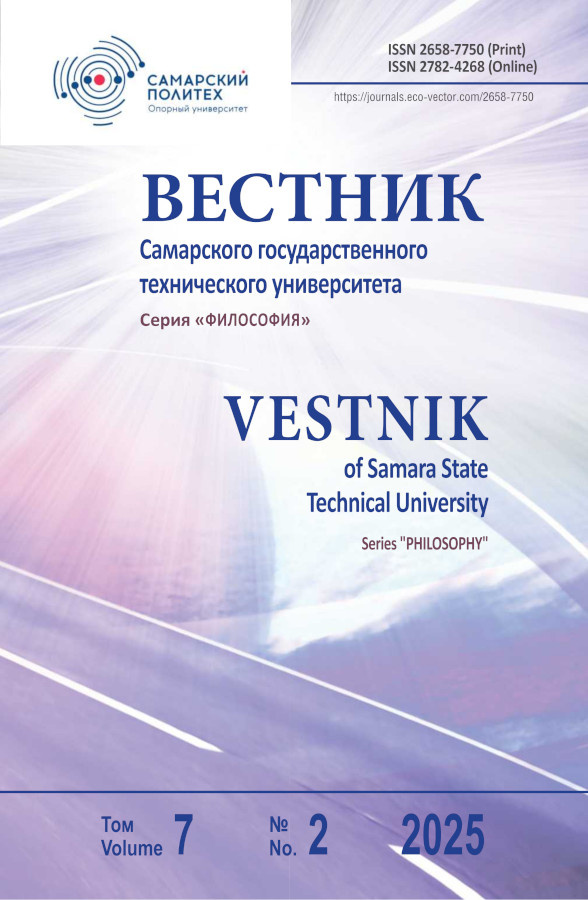
-
Vestnik of Samara State Technical University. Series Philosophy
Peer-review journal.
Editor-in-Chief: Professor Aleksandr Shestakov.
Indexation: Russian Science Citation Index, Google Scholar, Ulrich's Periodicals Directory, WorldCat.
ISSN: 2658-7750 (Print).
-
Vestnik of Samara State Technical University Psychological and Pedagogical Sciences
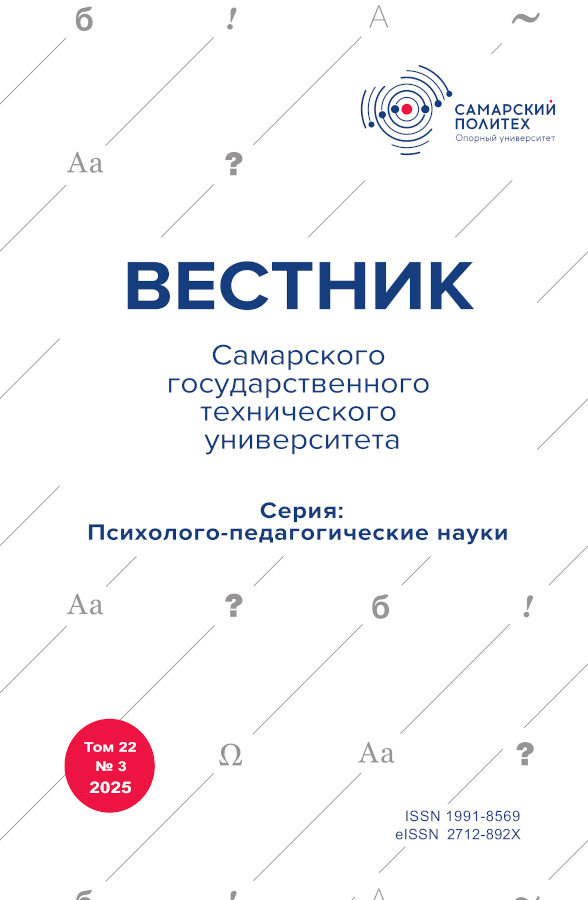
-
Vestnik of Samara State Technical University Psychological and Pedagogical Sciences
Peer-review academic journal on psycology and education.
Editor-in-Chief: Victoria V. Dobrova, Cand.Sci. (Psycology).
Indexation: Russian Index for Science Citation, Google Scholar.
Publication: 4 issues annually in Gold Open Access (CC BY 4.0 International).
ISSN: 1991-8569 (Print)
ISSN: 2712-892X (Online)
-
Vestnik of Samara University. History, pedagogics, philology

-
Vestnik of Samara University. History, pedagogics, philology
Peer-review academic journal.
Publish quarterly since 1994 in Open Access.
Editor-in-Chief: Vladimir A. Konev, PhD, Professor.
Индексация: Russian Science Citation Index, Google Scholar, WorldCat, Ulrich's Periodicals Directory, Cyberleninka
ISSN 2542-0445 (Print)
-
Vestnik of Samara University. Economics and Management

-
Vestnik of Samara University. Economics and Management
Peer-review academic journal.
Publish quarterly since 2009 in Open Access.
Editor-in-Chief: Vladimir D. Bogatyrev, PhD, Professor.
Indexation: Russian Science Citation Index, Google Scholar, WorldCat, Ulrich's Periodicals Directory
ISSN 2542-0461 (Print)
-
Yugra State University Bulletin

-
Yugra State University Bulletin
Рeer-review academic journal. Main fields: economic sciences; Earth Sciences; technical sciences.
Editor-in-Cheif: Valery F. Lapshin, Doctor of Law, Associate Professor,
Indexing: Russian Science Citation Index, Google Scholar, Ulrich's Periodical directory, WorldCat, Cyberleninka, ЭБС "Лань"
ISSN: 1816-9228 (Print) ISSN: 2078-9114 (Online)
-
Russian Journal of Innovation Economics
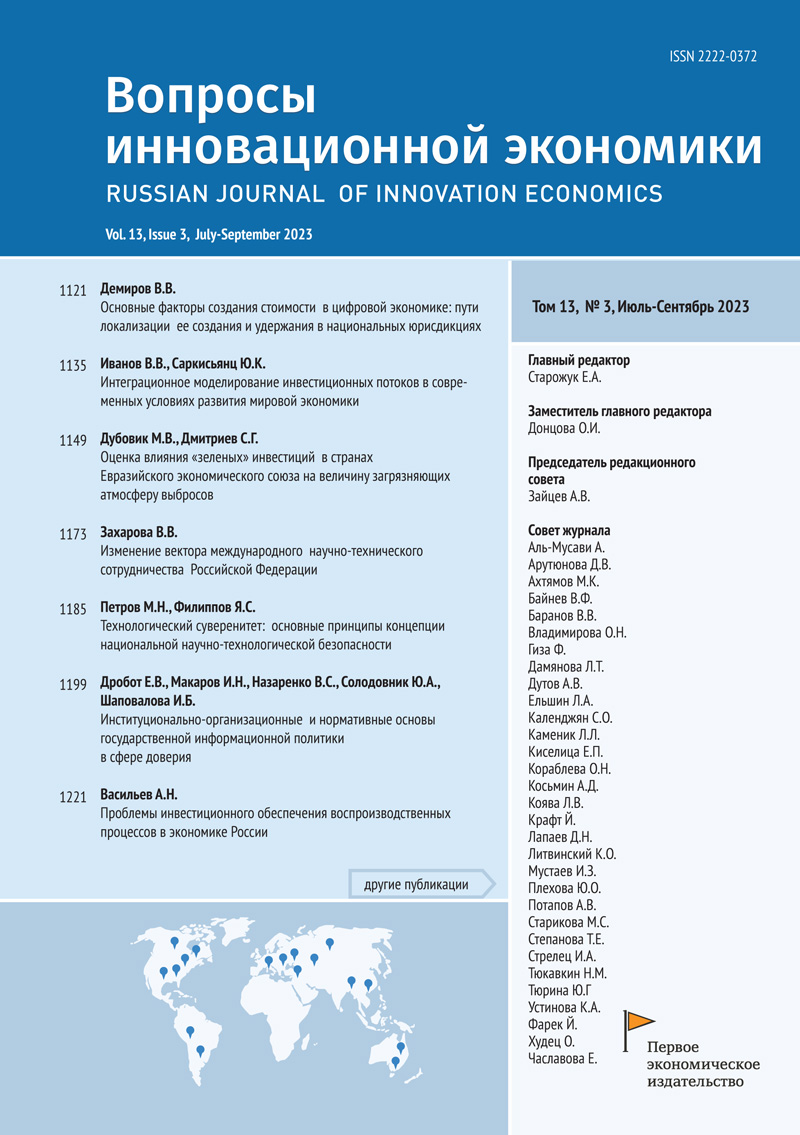
-
Russian Journal of Innovation Economics
Peer-review quarterly economic journal
Editor-in-Chief: Starozhuk Evgeny, Bauman Moscow State Technical University, Head of the Chair "Management"
Indexation: Russian Science Citation Index, Ulrich's Periodical Directory, EBSCO, CrossRef, Google Scholar.
Frequency of publication: 4 issues per year.
ISSN: 2222‑0372 (Online)
-
The Russian Journal of Vietnamese Studies
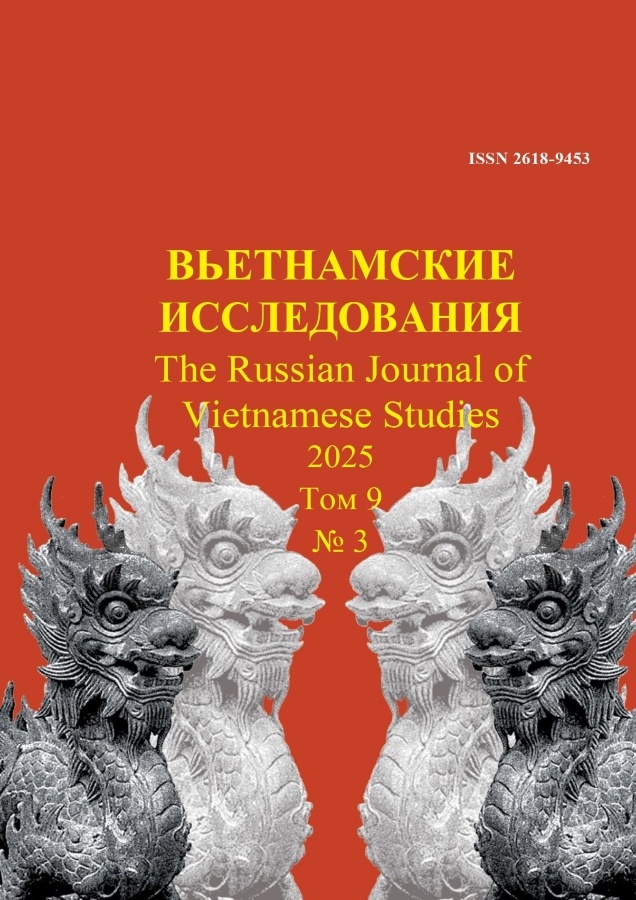
-
The Russian Journal of Vietnamese Studies
Peer-review scholarly journal on Vietnam studies.
Publish quarterly since 2011 in Open Access.
Editor-in-Chief: V.M. Mazyrin, D.Sc. (Economics)
Индексируется: Web of Science (ESCI, RSCI), Russian Science Citation Index, Ulrich's Periodicals Directory, Cyberleninka, Google Scholar, WorldCat.
ISSN: 2618-9453 (Online)
-
Humanitarian Military Journal
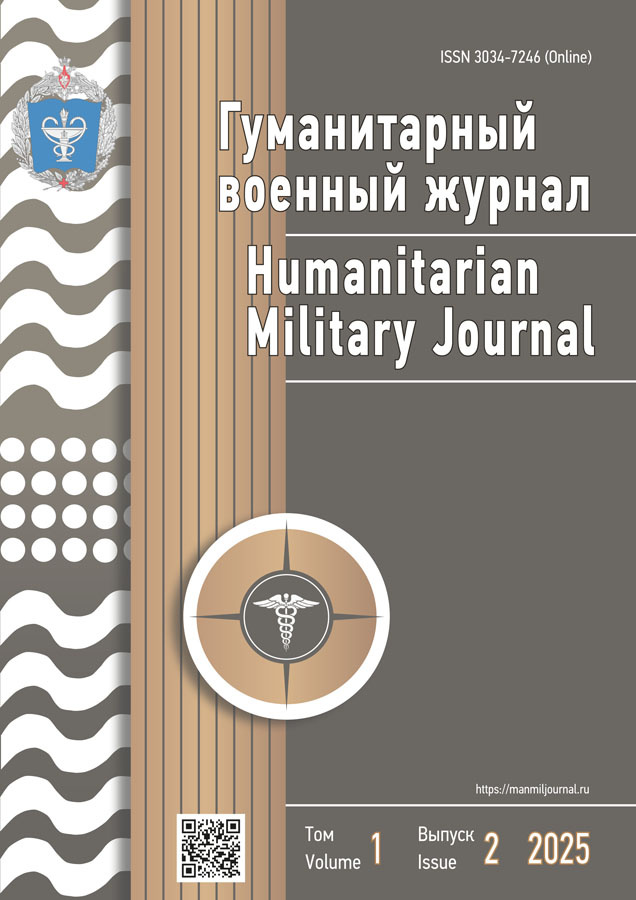
-
Humanitarian Military Journal
Peer-review academic journal
Publish quarterly since 2024 in Open Access.
Editor-in-Chief: professor Kryukov E.V.
Indexation: new journal
ISSN ___________ (Print) ISSN ___________ (Online)
-
Russian Journal of Housing Research
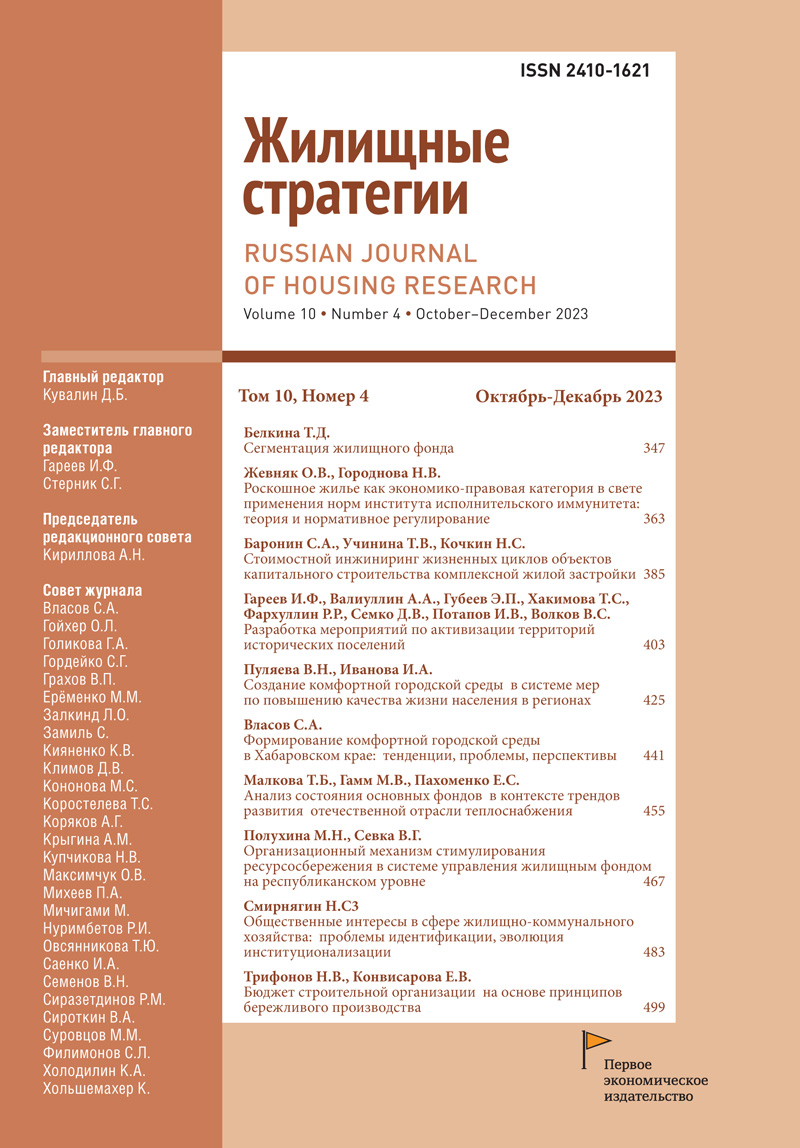
-
Russian Journal of Housing Research
Peer-review quarterly economic journal
Editor-in-Chief: Kuvalin Dmitry, deputy director of The Institute of Economic Forecasting of the Russian Academy of Sciences
Indexation: Russian Science Citation Index, CrossRef, Google Scholar, EBSCO
Frequency of publication: 4 issues per year.
ISSN: 2410‑1621 (Print) 2412‑9089 (Online)
-
Izvestiya of the Samara Russian Academy of Sciences scientific center. Social, humanitarian, medicobiological sciences
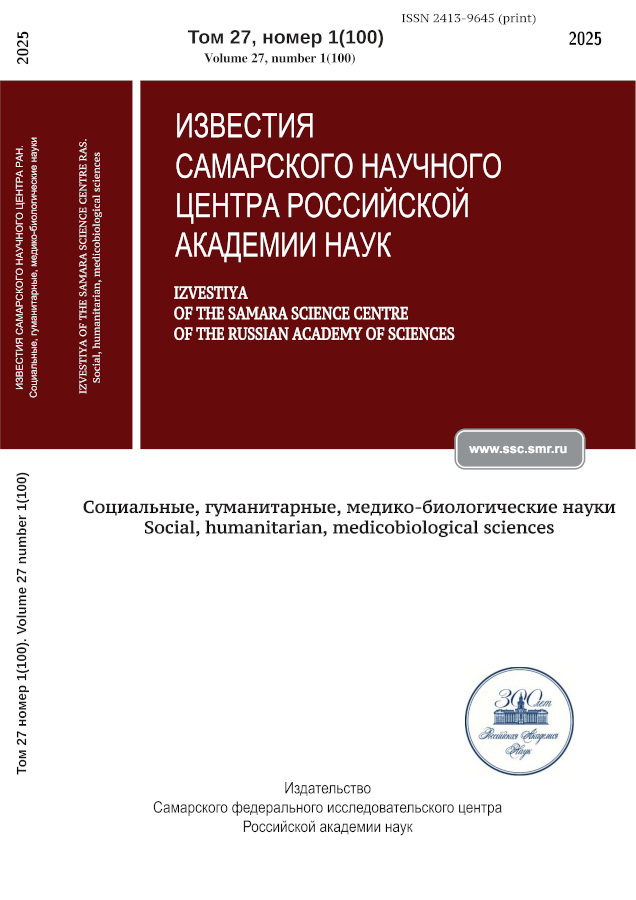
-
Izvestiya of the Samara Russian Academy of Sciences scientific center. Social, humanitarian, medicobiological sciences
Multidisciplinary peer-review journal.
Editor-in-Chief: Ella A. Radaeva, Dr. Sciences (culturology), science editor of the Samara Federal Research Center of Russian Academy of Sciences.
Indexation: Russian Science Citation Index, CyberLeninka, Google Scholar, Ulrich's Periodicals Directory, Dimensions.
ISSN: 2413-9645 (Print)
-
Izvestiya of Samara Scientific Center of the Russian Academy of Sciences

-
Izvestiya of Samara Scientific Center of the Russian Academy of Sciences
Multidisciplinary peer-review journal.
Editor-in-Chief: Doctor of Technical Sciences, Academician of RAS, professor Grechnikov Fedor V.
Indexing: Russian Science Citation Index, WorldCat, Google Scholar,Ulrich's Periodicls Directory.
ISSN: 2658-4816 (Print).
-
Izvestiya of Samara Scientific Center of the Russian Academy of Sciences History Sciences
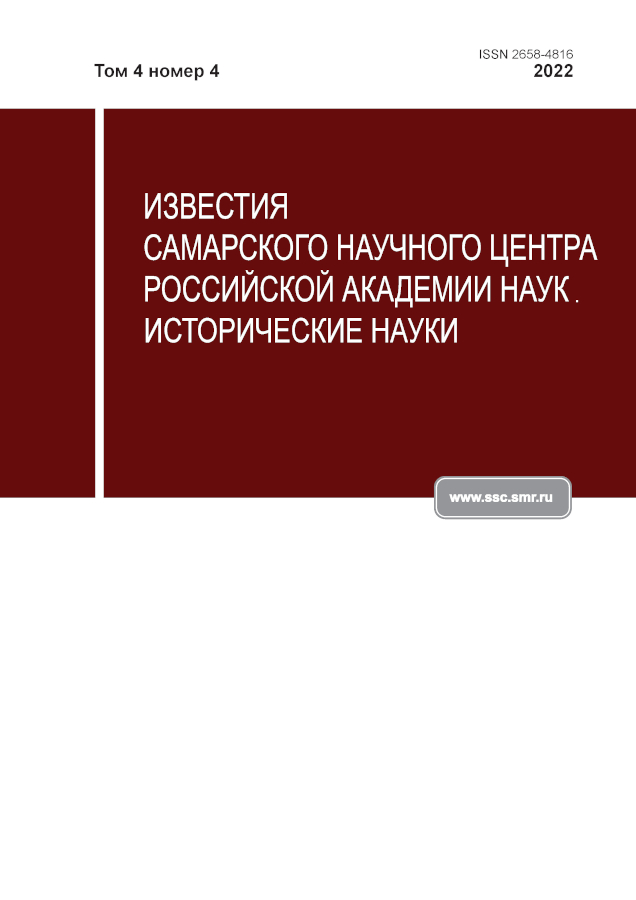
-
Izvestiya of Samara Scientific Center of the Russian Academy of Sciences History Sciences
Historical peer-review journal.
Editor-in-Chief: Doctor of Historical Sciences, professor Anshakov Yury P.
Indexing: Russian Science Citation Index, WorldCat, Google Scholar,Ulrich's Periodicls Directory.
ISSN: 2658-4816 (Print).
-
Informatization in the Digital Economy
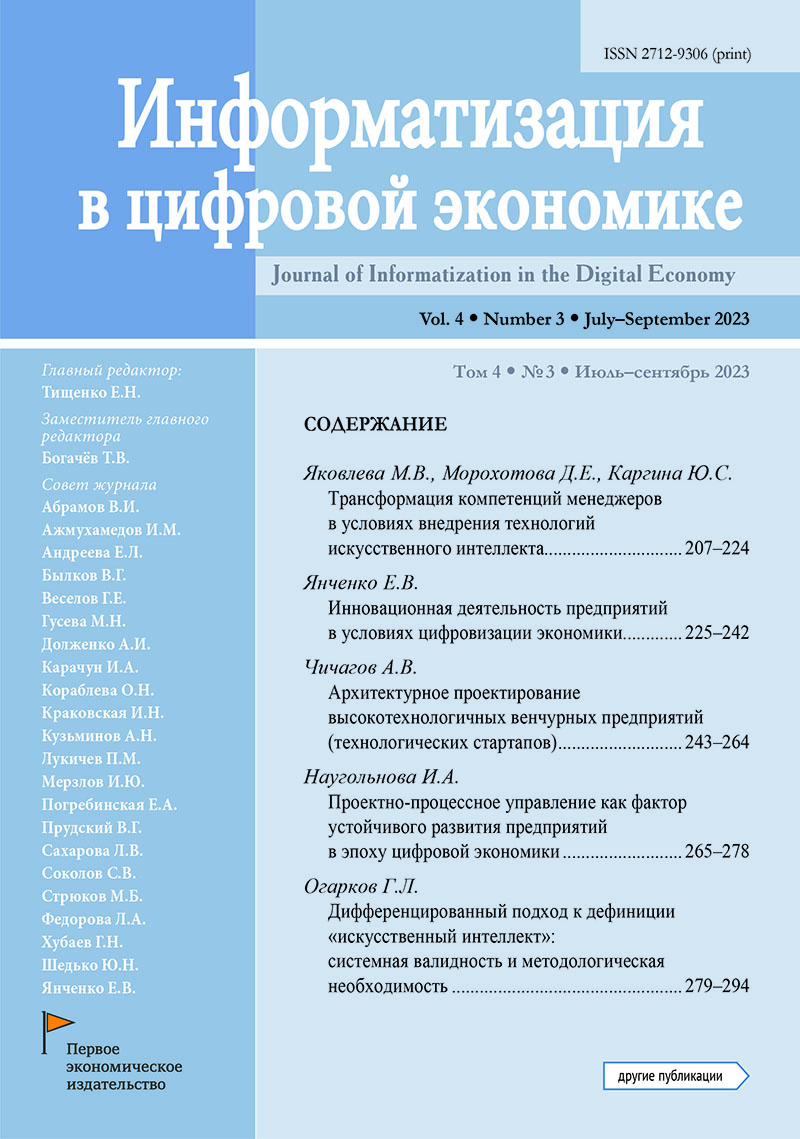
-
Informatization in the Digital Economy
Peer-review quarterly economic journal
Editor-in-Chief: Tishchenko Evgeniy, Rostov State University of Economics (RINH)
Indexation: Russian Science Citation Index, CrossRef
Frequency of publication: 4 issues per year.
ISSN: 2712‑9306 (Print)
-
History and Modern Perspectives
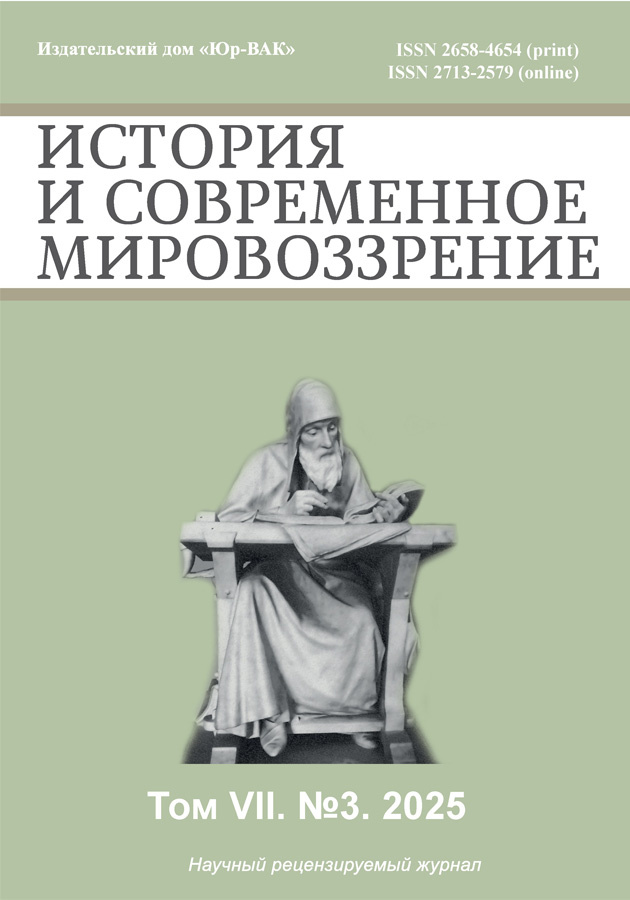
-
History and Modern Perspectives
Peer-review law journal
Editor-in-Chief: Vladimir V. Zapariy, Doctor of Historical Sciences, Professor
Indexation: Russian Science Citation Index, Google Scholar, Ulrich's Periodical Directory, CrossRef, Dimensions, Math-Net.ru, CyberLeninka, East View
Frequency of publication: 4 issues per year.
ISSN: 2658-4654 (Print) ISSN 2713-2579 (online)
-
China: society and culture

-
China: society and culture
Peer-review quarterly scholarly journal
Editor-in-Chief: Prof. Alexey Maslov
Indexation: Rusian Science Citation Index, Google Scholar, Ulrich's Periodicals Directory, Dimensions, Crossref.
Open Access & Publication frequency: Platinum Open Access; quarterly issuing; CC BY-NC-ND license.
Peer-Review & APC: double blind; no article processing charge.
ISSN 2782-3652 (Print) ISSN 2949-1398 (Online)
-
Leadership and Management
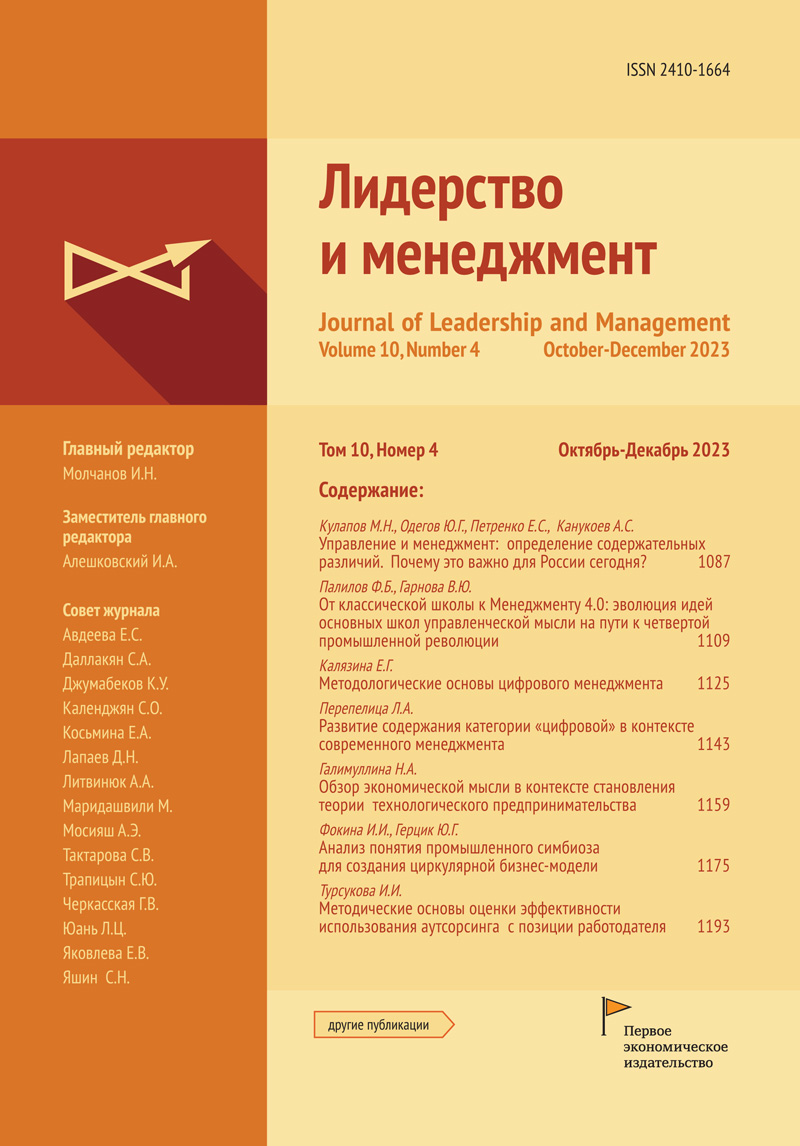
-
Leadership and Management
Peer-review quarterly economic journal
Editor-in-Chief: Nikolay Gorelov, Professor
Indexation: Russian Science Citation Index, EBSCO, Ulrich's Periodical Directory, CrossRef, Google Scholar.
Frequency of publication: 4 issues per year.
ISSN: 2410-1664 (Print)
-
Lobbying in the Legislative Process

-
Lobbying in the Legislative Process
Peer-review law journal.
Editor-in-Chief: Ivanov Nikita, Dr. Sci. (Law), Professor, Honored Lawyer of the Russian Federation
Indexation: Russian Science Citation Index, Google Scholar, Ulrich's Periodical Directory, Crossref, Dimensions, Math-Net.ru, CyberLeninka, East View
Frequency of publication: 4 issues per year.
ISSN: 2782-7372 (Print) ISSN 2949-2572 (Online)
-
Mathematics, Economics and Management

-
Mathematics, Economics and Management
Peer-review academic journal.
Publish quarterly since 2015 in Open Access.
Editor-in-Chief: Vladimir D. Bogatyrev, PhD, Professor.
Indexation: Russian Science Citation Index, Google Scholar, WorldCat, Ulrich's Periodicals Directory
ISSN 2411-5452 (Print)
-
Nizhnevartovsk Philological Bulletin
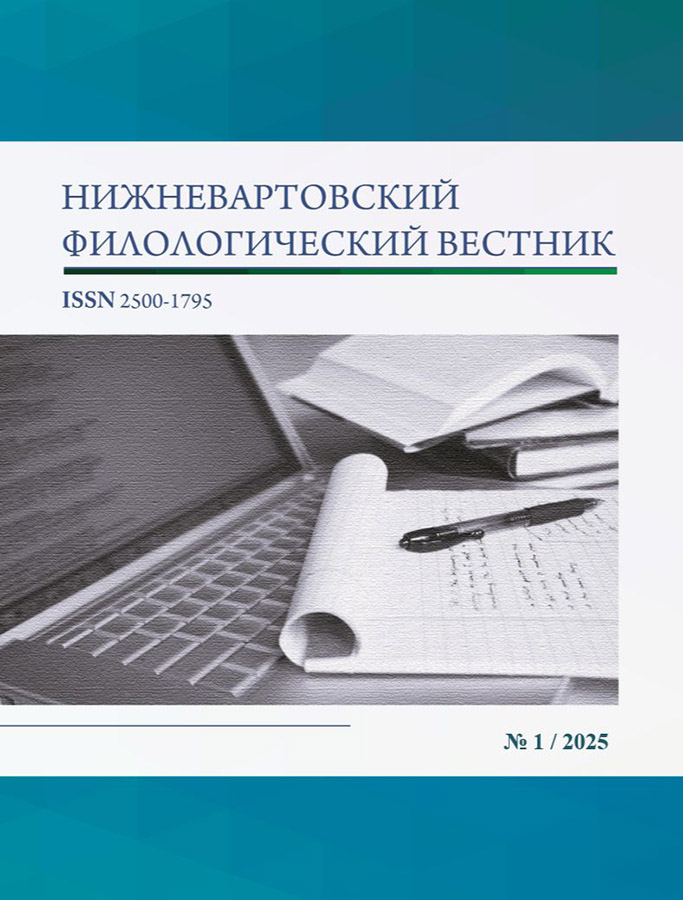
-
Nizhnevartovsk Philological Bulletin
Peer-review online journal.
Editor-in-Chief: Olga Kultysheva, Dr. Sci. (Phyl.), Professor.
Indexation: Russian Science Citation Index, Google Scholar, Ulrich's Periodicals Directory, WorldCat.
ISSN: 2500-1795 (Online)
-
Pis'mennye pamiatniki Vostoka
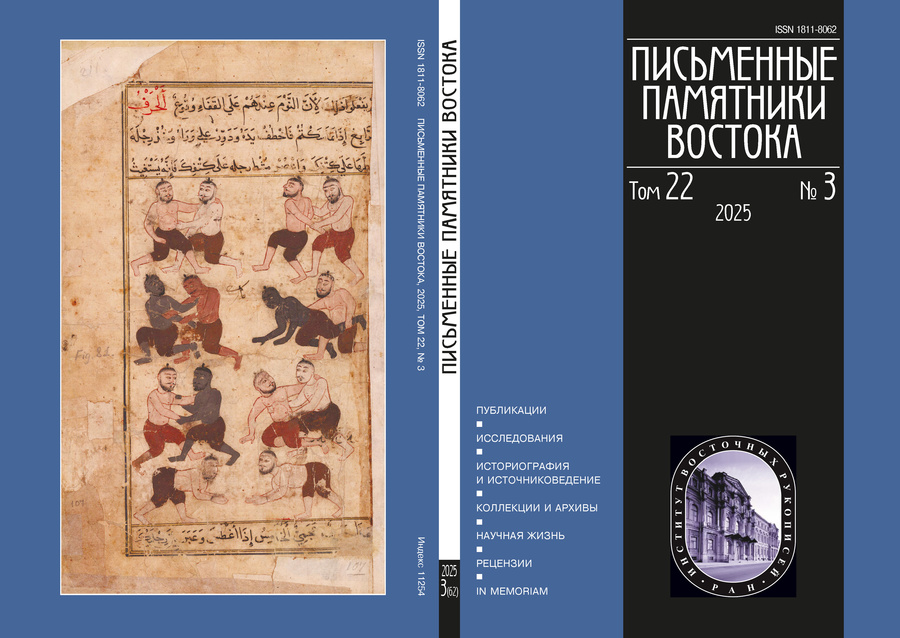
-
Pis'mennye pamiatniki Vostoka
Since 2004, the journal "Pis'mennye pamiatniki Vostoka" has been published by the Institute of Oriental Manuscripts (founded as the Asiatic Museum in 1818) of the Russian Academy of Sciences under the patronage of the Department of History and Philology of the Russian Academy of Sciences.
ISSN 1811-8062
The journal is published by the Moscow "Vostochnaya Literatura" (“Oriental Literature”) publishing house with a frequency of 4 issues per year.
-
Gaps in Russian Legislation
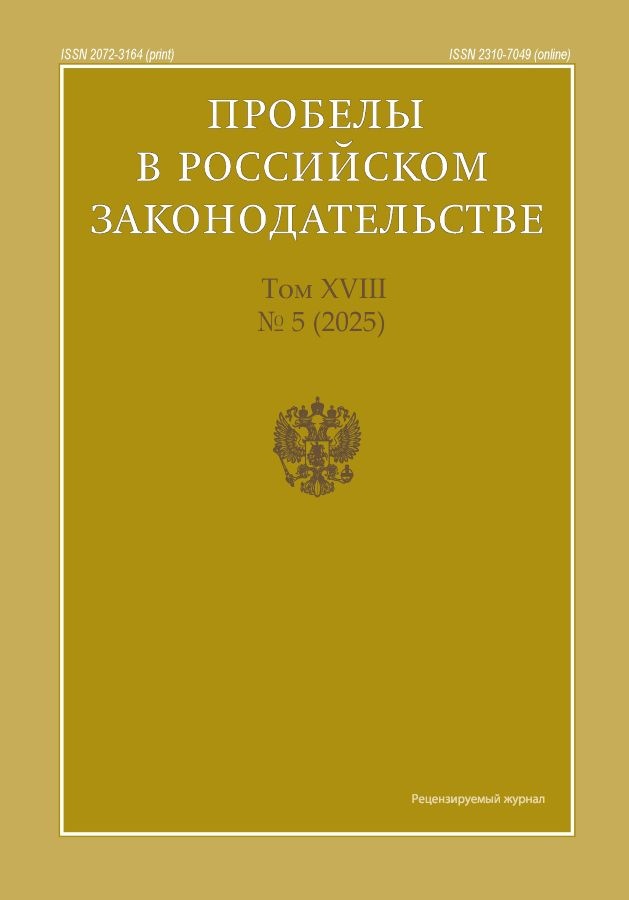
-
Gaps in Russian Legislation
Peer-review law journal.
Editor-in-Chief: Chistyakov Vladimir, Prof.
Indexation: Russian Science Citation Index, Google Scholar, Ulrich's Periodical Directory, Crossref, Dimensions, Math-Net.ru, CyberLeninka, East View
Frequency of publication: 8 issues per year.
ISSN: 2072-3164 (Print) ISSN 2310-7049 (Online)
-
Economic Problems and Legal Practice
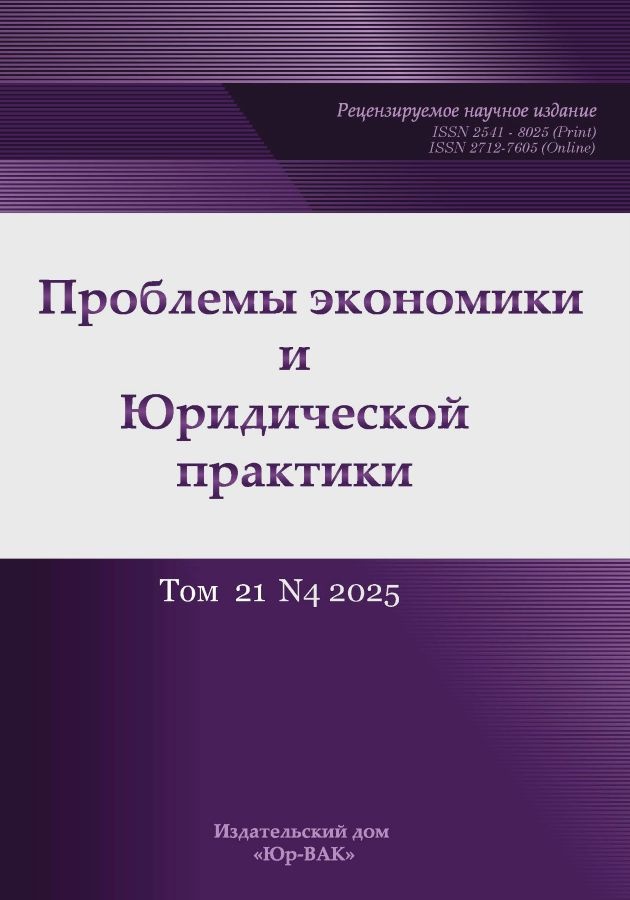
-
Economic Problems and Legal Practice
Peer-review law journal
Editor-in-Chief: Elena Yastrebova, PhD
Indexation: Russian Science Citation Index, Google Scholar, Ulrich's Periodical Directory, CrossRef, Dimensions, Math-Net.ru, CyberLeninka, East View
Frequency of publication: 6 issues per year.
ISSN: 2541-8025 (Print) ISSN 2712-7605 (online)
-
Food Policy and Security
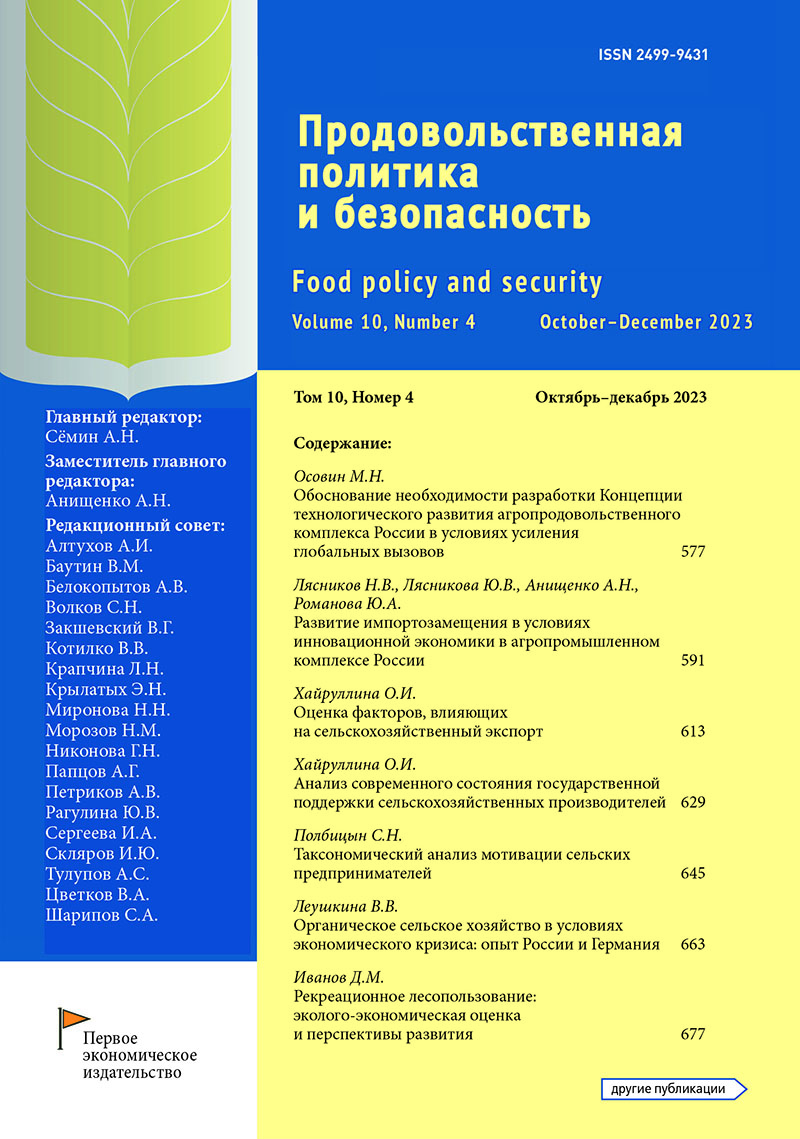
-
Food Policy and Security
Peer-review quarterly economic journal
Editor-in-Chief: Aleksandr Semin - Academician of the Russian Academy of Sciences, Doctor of Economics, Professor
Indexation: Russian Science Citation Index, Ulrich's Periodical Directory, CrossRef, Google Scholar.
Frequency of publication: 4 issues per year.
ISSN: 2499-9431 (Print), 2412-8694 (Online)
-
Russian Journal of Legal Studies (Moscow)
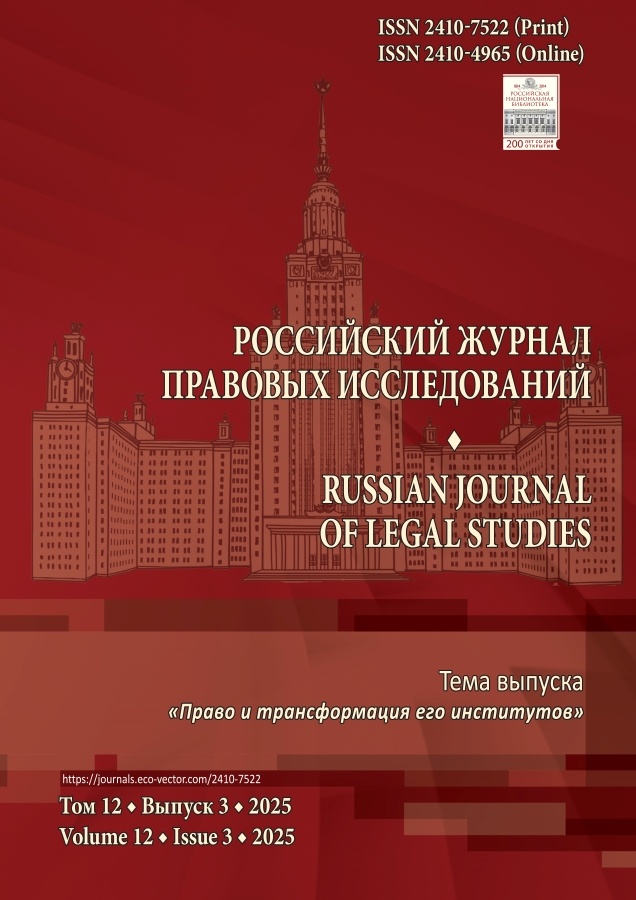
-
Russian Journal of Legal Studies (Moscow)
Legal science quarterly peer-review journal.
Editor-in-Chief: Alexander D. KERIMOV, Doctor of Law, Professor
Indexing: Google Scholar, Ulrich's Periodicals directory, WorldCat.
ISSN: 2410-7522 (Print)
-
Samara Journal of Science

-
Samara Journal of Science
Peer-review academic journal for biology, history science and education science.
Editor-in-Chief: doctor of historical sciences, professor, head of Domestic History and Archeology Department Oleg Dmitrievich Mochalov.
Publiches since 2012 in Gold Open Access with no APC.
Indexing: Russian Index Science Citation (eLibrary.ru), Google Scholar, CrossRef.
ISSN: 2309-4370 (Print), 2782-3016 (Online).
-
Semiotic studies

-
Semiotic studies
Quarterly peer-review academic journal
Publish quarterly since 2021 in Open Access.
Editor-in-Chief: Aleksandr Y. Nesterov, Dr. phil. habil., Associate Professor.
Indexation: Russian Science Citation Index, Google Scholar, Ulrich's Periodicals directory, Dimensions
ISSN 2782-2966 (Print) ISSN 2782-2958 (Online)
-
Sociopolitical Sciences
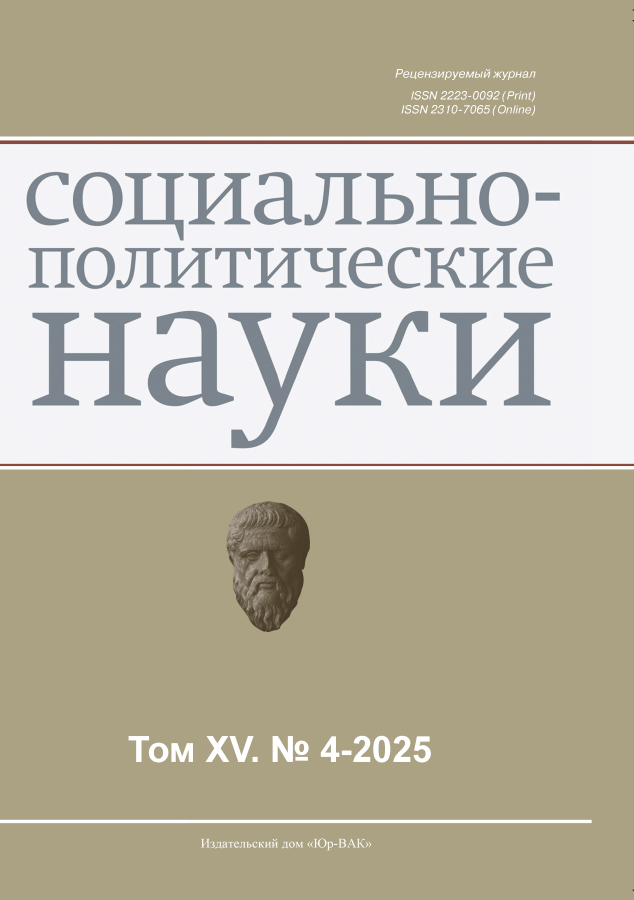
-
Sociopolitical Sciences
Peer-review law journal.
Editor-in-Chief: Oleg F. Shabrov - Dr. Sci. (Polit.), Professor
Indexation: Russian Science Citation Index, Google Scholar, Ulrich's Periodical Directory, Crossref, Dimensions, Math-Net.ru, CyberLeninka, East View
Frequency of publication: 6 issues per year.
ISSN: 2223-0092 (Print) ISSN 2310-7065 (Online)
-
Sociology of Medicine

-
Sociology of Medicine
Peer-review medical journal
Publish semiannually since 2002 in hybrid.
Editor-in-chief: prof. Andrey V. Reshetnikov, MD.
Indexation: Science Index (eLibrary.ru), Google Scholar, Ulrich's Periodical directory, Dimensions.
ISSN: 1728-2810 (Print); ISSN: 2413-2942 (Online)
-
Srednie veka
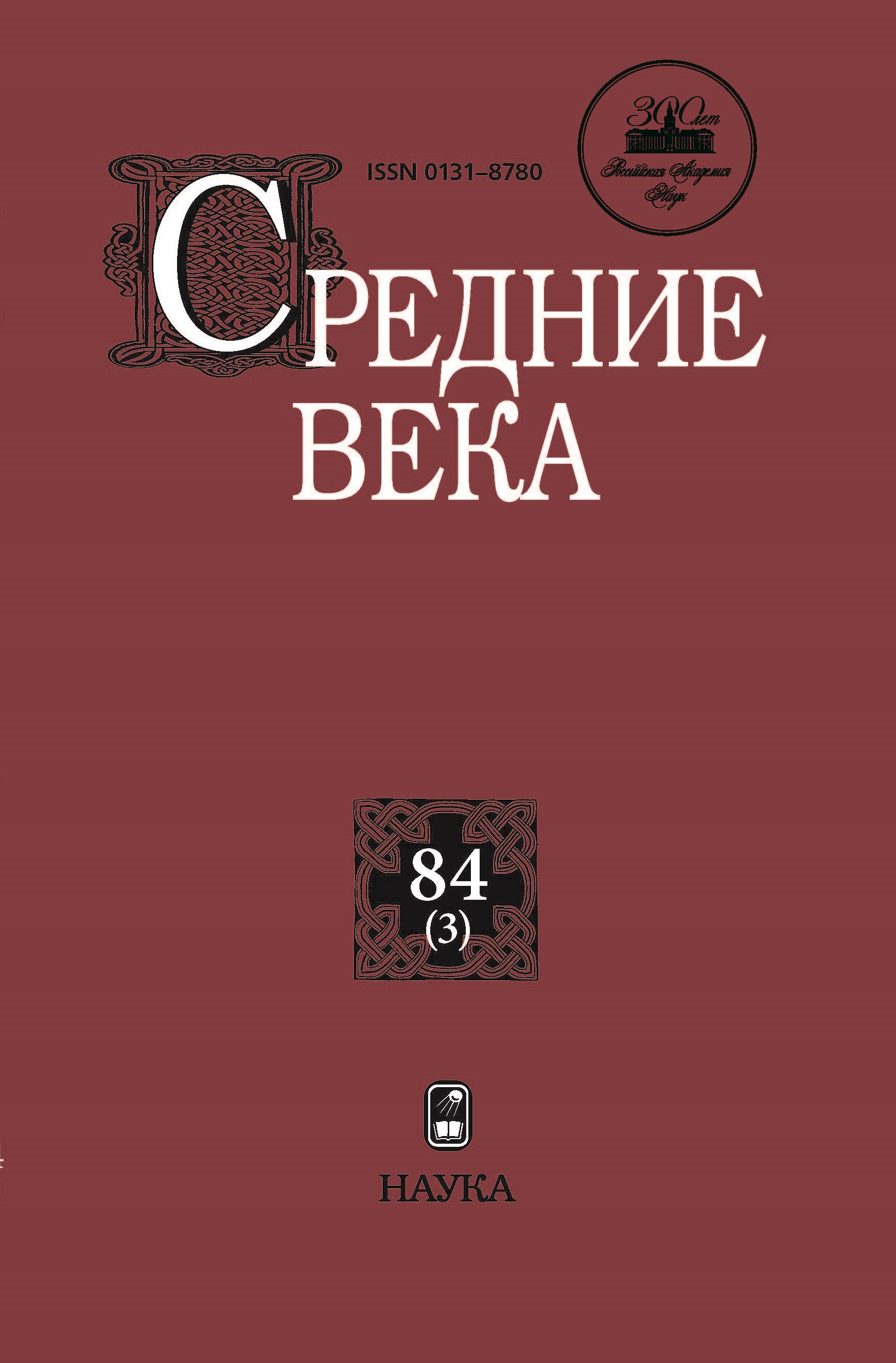
-
Srednie veka
Specialized scientific publication on medieval studies.
Editor-in-Chief: Pavel Yu. Uvarov, Corresponding Member of the Russian Academy of Sciences, Head of the Department of Western European Middle Ages and Early Modern Times of the IVI
Indexing: RSCI, CrossRef, Scopus, Google Scholar.
Frequency of publication: 4 issues per year; publishes since 1942.
ISSN 0131-8780 (Print)
-
Russian Journal of Forensic Medicine

-
Russian Journal of Forensic Medicine
Peer-review medical journal.
Publish quarterly since 2015 г. in Open Access.
Editor-in-Chief: Vladimir A. Klevno, MD, PhD.
Indexing: Russian Science Citation Index, Google Scholar, Ulrich's Periodical directory, WorldCat, CyberLeninka.
ISSN 2411-8729 (Print) ISSN 2409-4161 (Online)
-
Sphere of culture

-
Sphere of culture
Peer-review medical journal.
Editor-in-Chief: Olga Naumova, PhD, Doctor of Science.
Indexation: Russian Science Citation Index, Google Scholar, Ulrich's Periodicals Directory, WorldCat.
ISSN: 2713-301X (Print).
-
Shadow Economy

-
Shadow Economy
Peer-review quarterly economic journal
Editor-in-Chief: Vitaly Burov
Indexation: Russian Science Citation Index, Ulrich's Periodical Directory, CrossRef, Google Scholar.
Frequency of publication: 4 issues per year.
ISSN: 2541-7681 (Print)
-
Transactional Analysis in Russia

-
Transactional Analysis in Russia
Peer-review electronic journal.
Editor-in-Chief: prof. Ol'ga V. Kochetkova, MD.
Indexation: CrossRef, Google Scholar, Dimensions.
Open Access & Publication frequency: Hybrid Access; 3 times a year.
Peer-Review & APC: double blind; no article processing charge.
ISSN 2782-4349 (Online)
-
Russian Journal of Labor Economics
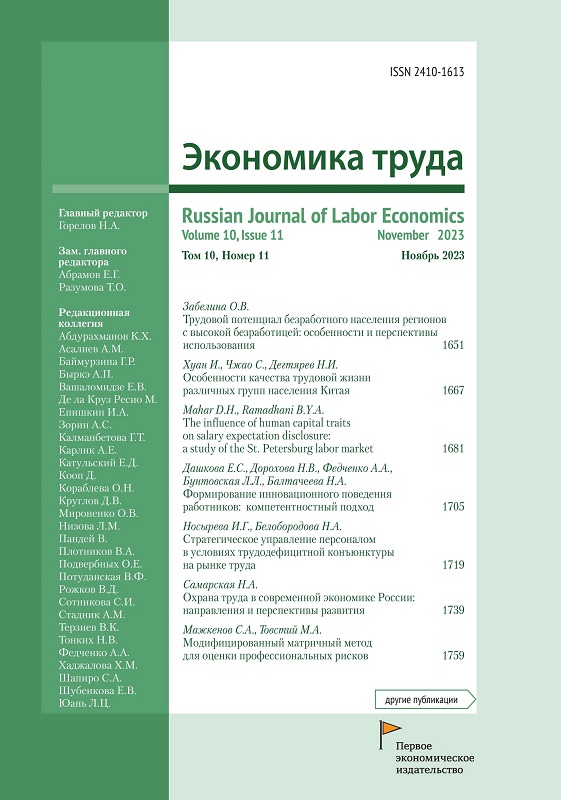
-
Russian Journal of Labor Economics
Peer-review quarterly economic journal
Editor-in-Chief: Nikolay Gorelov, Professor
Indexation: Russian Science Citation Index, EBSCO, Ulrich's Periodical Directory, CrossRef, Google Scholar.
Frequency of publication: 4 issues per year.
ISSN: 2410-1613 (Print), 2412-8929 (Online)
-
Journal of Central Asia Economy
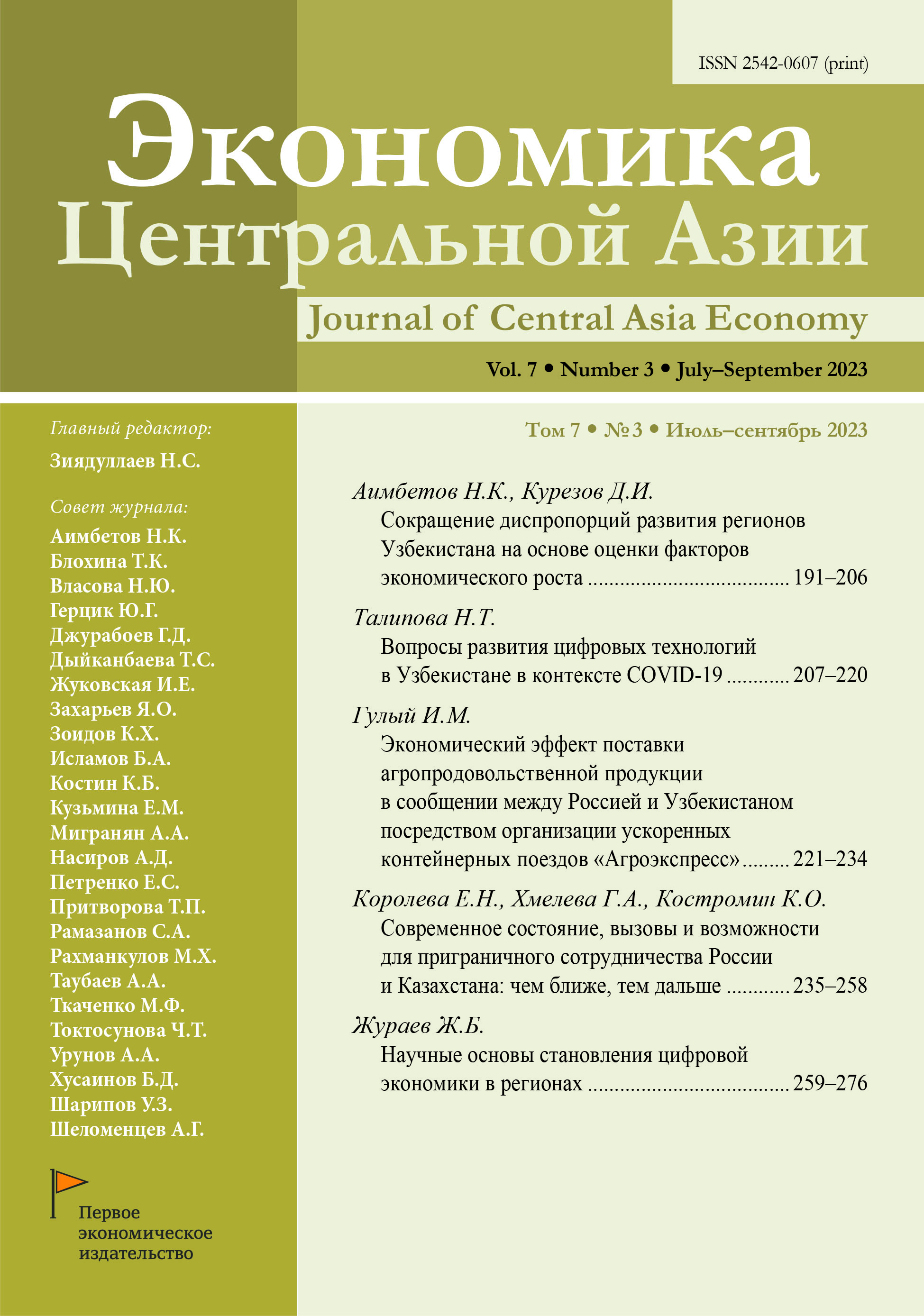
-
Journal of Central Asia Economy
Peer-review quarterly economic journal
Editor-in-Chief: Nabi Ziyadullaev, senior researcher, Market Economy Institute of the Russian Academy of Sciences
Indexation: Russian Science Citation Index, Ulrich's Periodical Directory, CrossRef, Google Scholar.
Frequency of publication: 4 issues per year.
ISSN: 2542-0607 (Print)
-
Journal of Economics, Entrepreneurship and Law
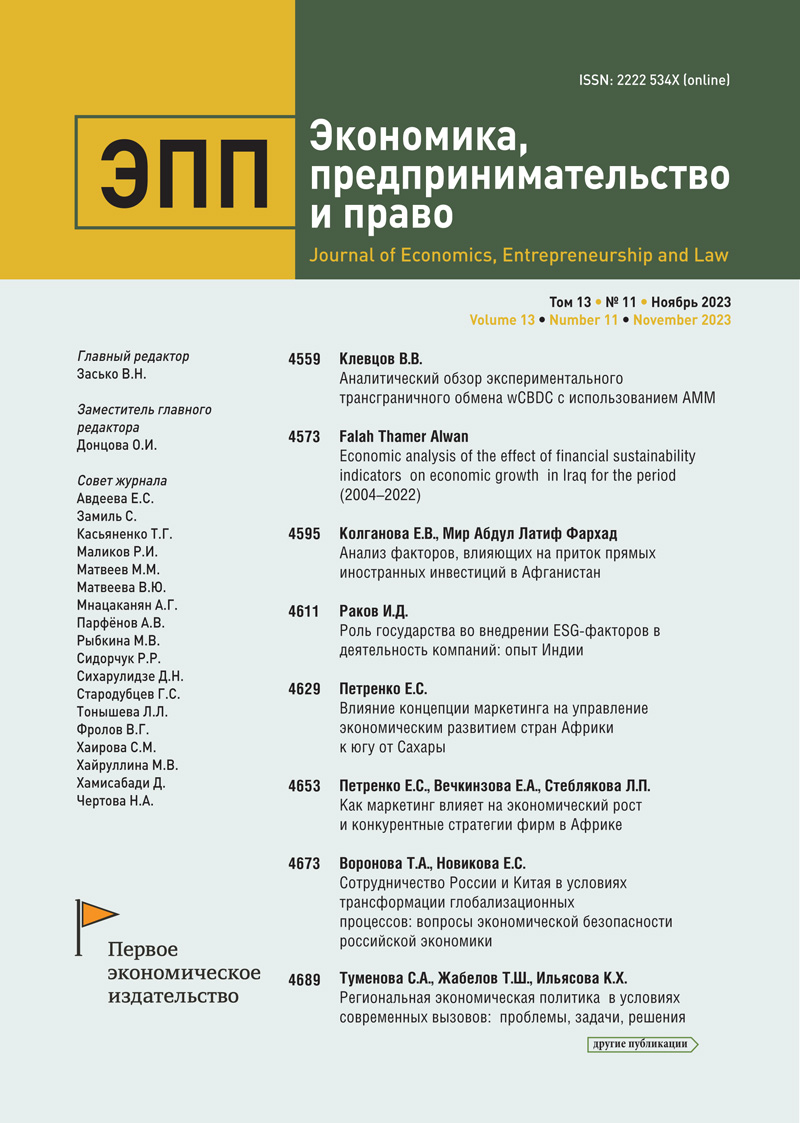
-
Journal of Economics, Entrepreneurship and Law
Peer-review quarterly economic journal
Editor-in-Chief: Zasko Vadim, Financial University under the Government of Russian Federation
Indexation: Russian Science Citation Index, Ulrich's Periodical Directory, CrossRef, Google Scholar
Frequency of publication: 4 issues per year.
ISSN: 2222‑534X (Online)
-
Economic Security
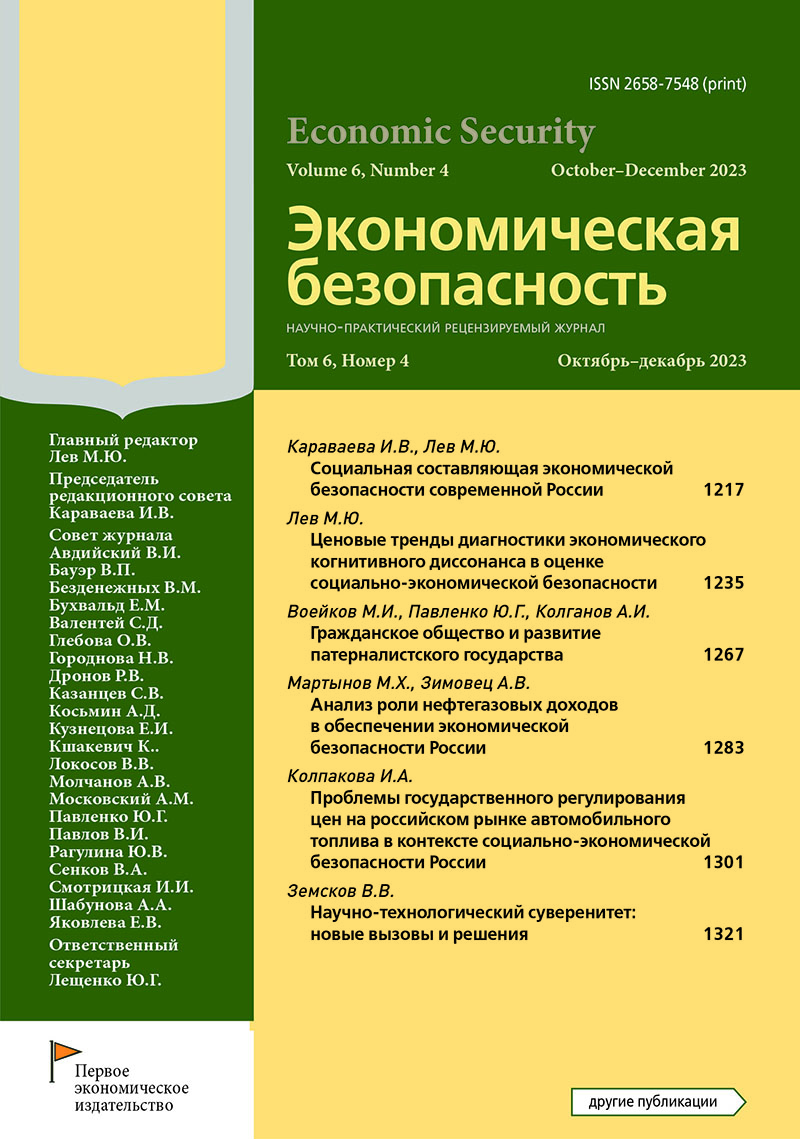
-
Economic Security
Peer-review quarterly economic journal
Editor-in-Chief: Lev Mikhail, leading researcher of the Institute of Economics of the Russian Academy of Sciences
Indexation: Russian Science Citation Index, CrossRef, Google Scholar
Frequency of publication: 4 issues per year.
ISSN: 2658‑7548 (Print)
-
Journal of International Economic Affairs
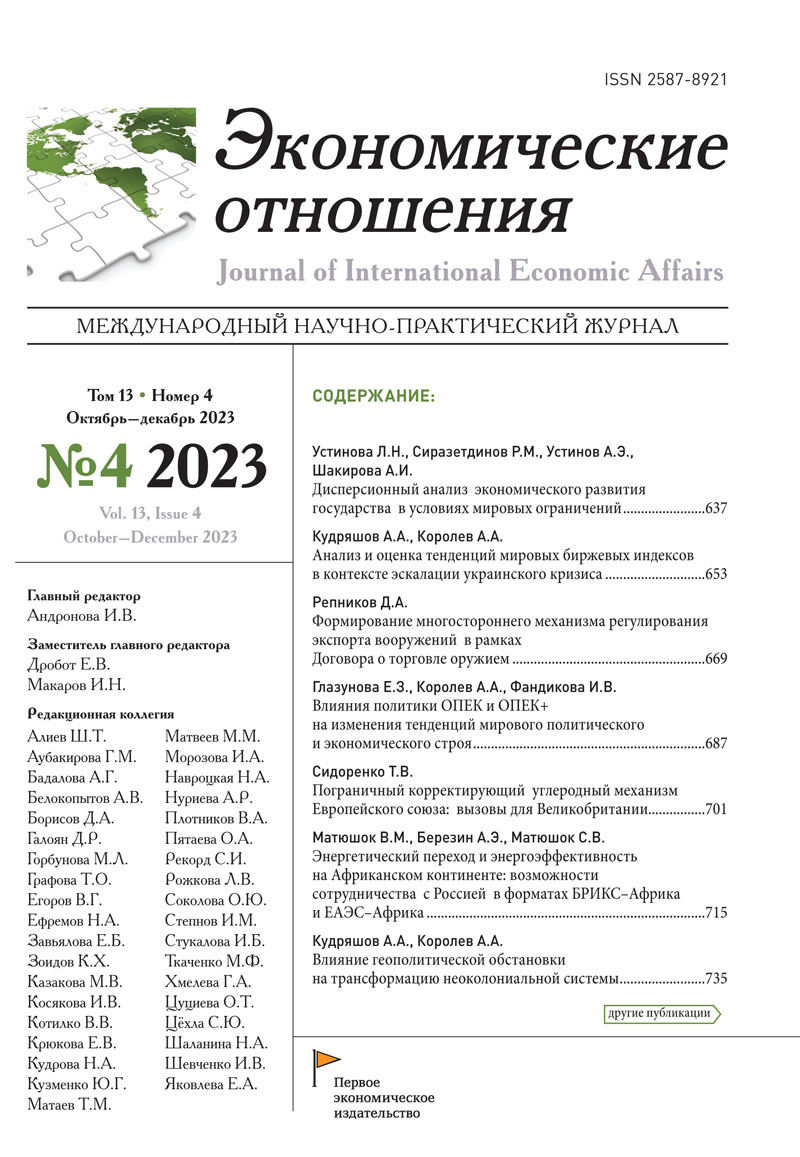
-
Journal of International Economic Affairs
Peer-review quarterly economic journal
Editor-in-Chief: Andronova Inna, Head of International Economic Relations Chair, RUDN University
Indexation: Russian Science Citation Index, CrossRef, Google Scholar.
Frequency of publication: 4 issues per year.
ISSN: 2587‑8921 (Online)
-
Juridical Journal of Samara University

-
Juridical Journal of Samara University
Peer-review academic journal.
Publish quarterly since 2015 in Open Access.
Editor-in-Chief: Artur G. Bezverkhov, Doctor of Law, Professor.
Indexation: Russian Science Citation Index, Google Scholar, WorldCat, Ulrich's Periodicals Directory
ISSN 2542-047X (Print)
-
World Eсonomy and International Relations

-
World Eсonomy and International Relations
ISSN (print): 0131-2227 ISSN (online): 2782-4330
Founders: E.M. Primakov National Research Institute of World Economy and International Relations of the Russian Academy of Sciences (Moscow); Russian Academy of Sciences (Moscow)
Editor-in-Chief: Andrej V. Ryabov
Frequency / Assess: 12 issues per year / Subscription
Included in: RUS White List, Higher Attestation Commission List, RISC
-
Auxiliary historical disciplines

-
Auxiliary historical disciplines
ISSN (print): 0130-0865
Founder: St. Petersburg Institute of History of the Russian Academy of Sciences
Editor-in-Chief: Alexey V. Sirenov, Corresponding Member of the Russian Academy of Sciences, Dr. Sci.
Frequency / Assess: 4 issues per year / Subscription
Included in: Higher Attestation Commission List, RISC
-
Geomorfologiâ i paleogeografiâ
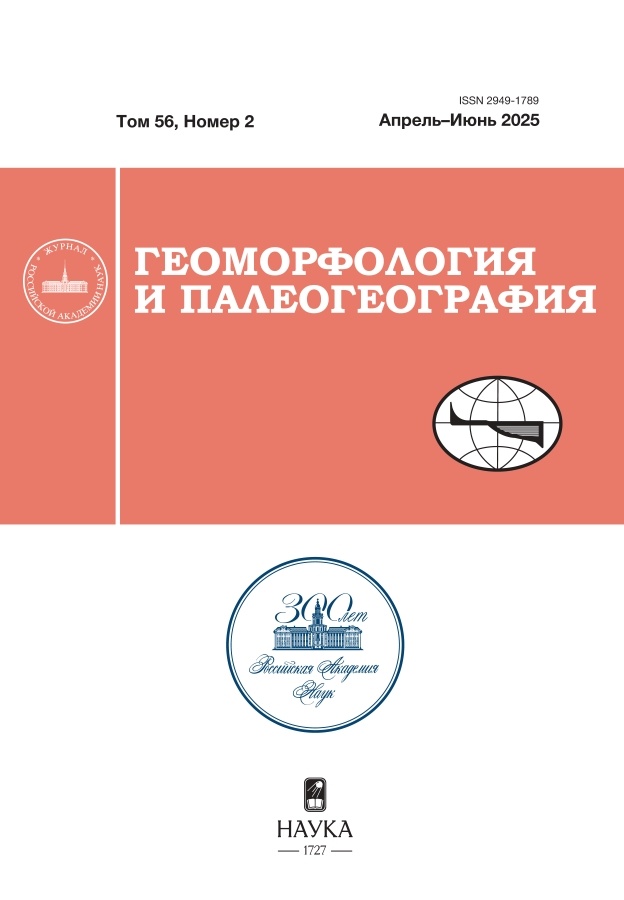
-
Geomorfologiâ i paleogeografiâ
ISSN (print): 2949-1789, ISSN (online): 2949-1797
Founders: Russian Academy of Sciences, Institute of Geography of the Russian Academy of Sciences
Editor-in-Chief: Andrey Valeryevich Panin, Corresponding Member of the Russian Academy of Sciences, Doctor of Geographic Sciences,
Frequency / Access: 4 issues per year / Subscription
Included in: Higher Attestation Commission List, RISC
-
Âdernaâ fizika
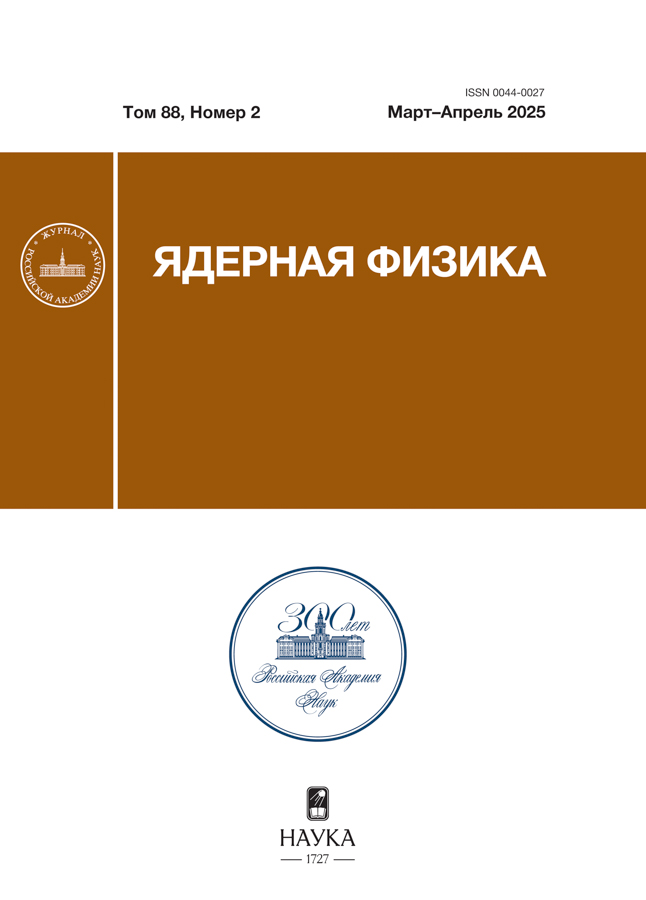
-
Âdernaâ fizika
ISSN (print): 0044-0027
Founders: Russian Academy of Sciences, Institute for Theoretical and Experimental Physics
Editor-in-Chief: Dalkarov O.D., Doctor of Sc., Full Professor
Frequency / Assess: 6 issues per year / Subscription
Included in: White List (3rd level), Higher Attestation Commission List, RISC
-
Ètnografičeskoe obozrenie
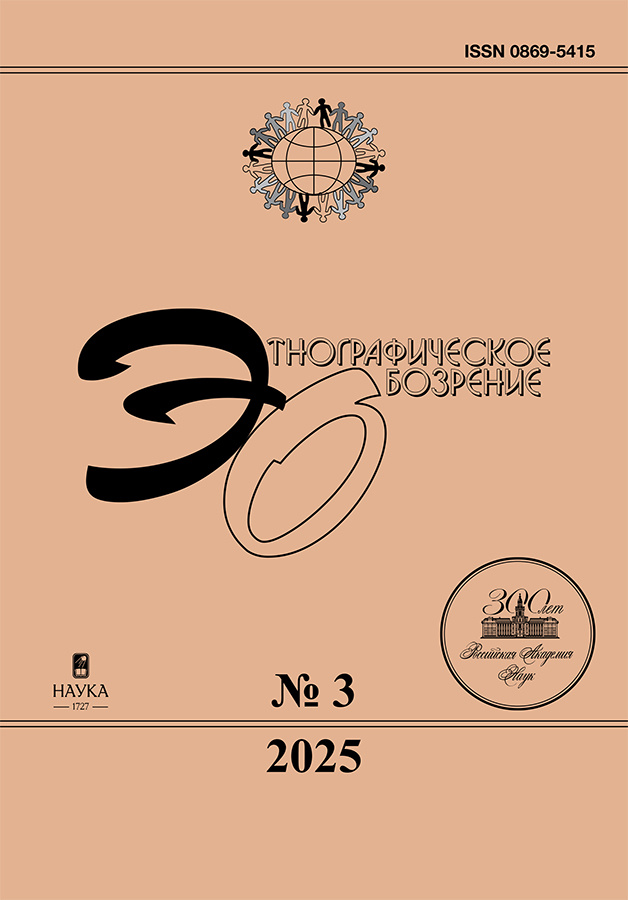
-
Ètnografičeskoe obozrenie
ISSN (print): 0869-5415
Founders: Russian Academy of Sciences, N.N. Miklouho-Maklay Institute of Ethnology and Anthropology
Editor-in-Chief: Sokolovsky S.V., Doctor of Sc.
Frequency / Assess: 6 issues per year / Subscription
Included in: White List (1sd level), Higher Attestation Commission List, RISC
-
Èntomologičeskoe obozrenie
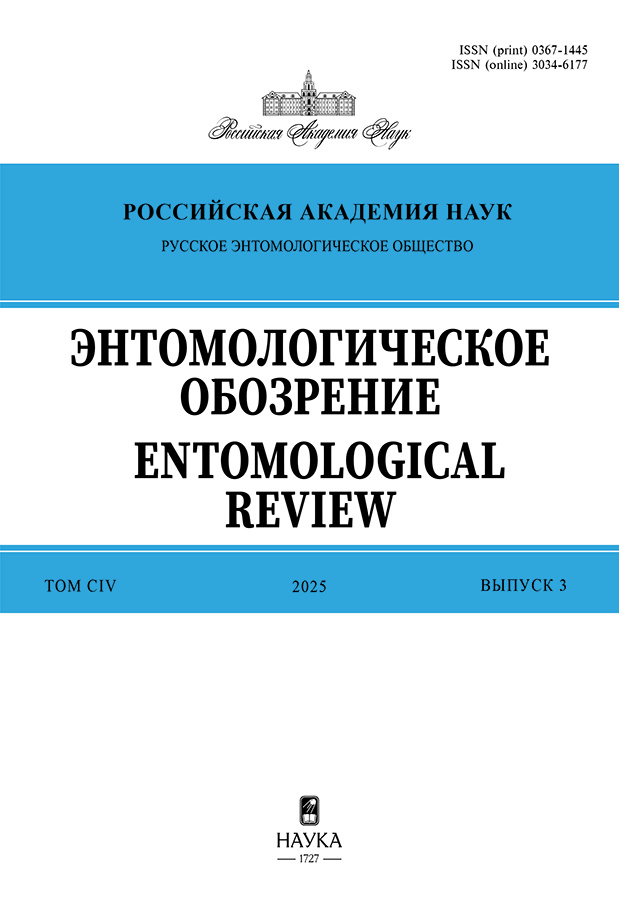
-
Èntomologičeskoe obozrenie
ISSN (print): 0367-1445
Founders: Russian Academy of Sciences, Russian entomological society
Editor-in-Chief: Korotyaev Boris A., Doctor of Sc.
Frequency / Assess: 4 issues per year / Subscription
Included in: White List (4th level), Higher Attestation Commission List, RISC
-
Èlektrohimiâ
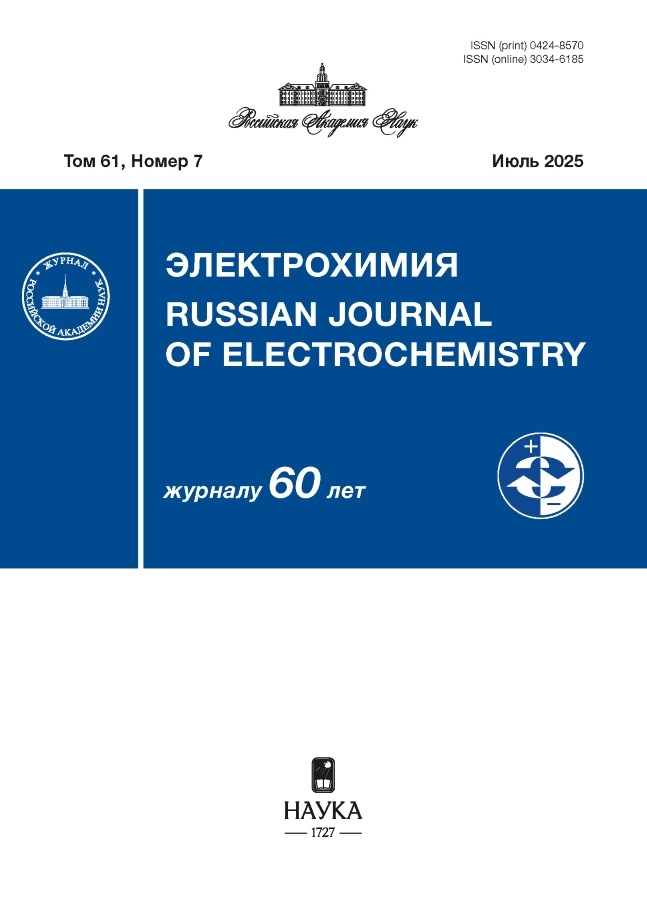
-
Èlektrohimiâ
ISSN (print): 0424-8570
Founders: Russian Academy of Sciences, Frumkin Institute of Physical Chemistry and Electrochemistry RAS
Editor-in-Chief: Tsivadze A.Yu., academician RAS, Doctor of Sc., Full Professor
Frequency / Assess: 12 issues per year / Subscription
Included in: White List (3rd level), Higher Attestation Commission List, RISC
-
Economics and Mathematical Methods
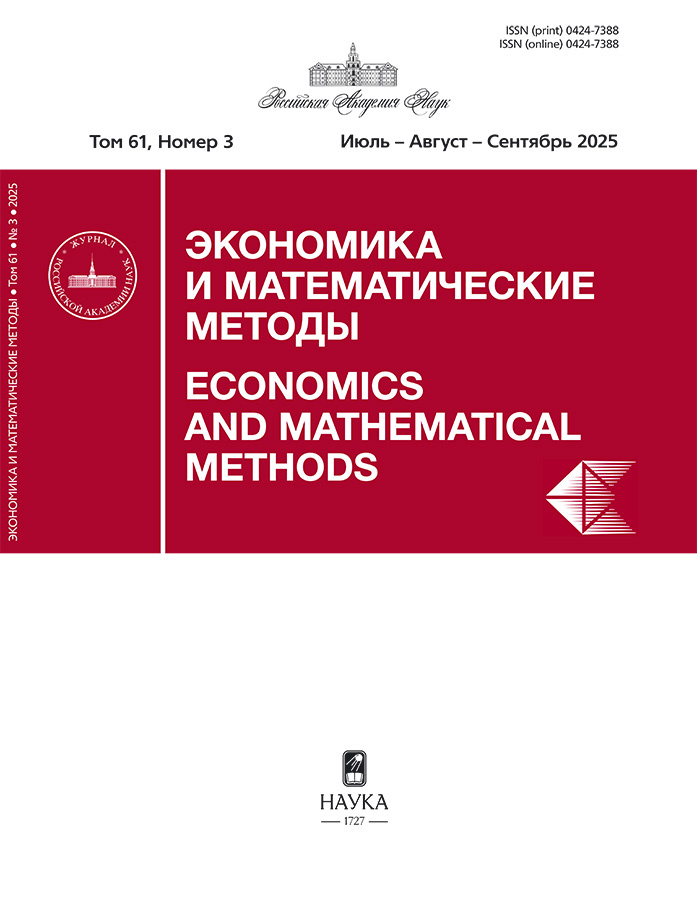
-
Economics and Mathematical Methods
ISSN (print): 0424-7388
Founders: Russian Academy of Sciences, Central Economics and Mathematics Institute of the RAS, Market Economy Institute
Editor-in-Chief: Dementiev Victor Evgenievich, corresponding member RAS, Doctor of Sc., Full Professor
Frequency / Assess: 4 issues per year / Subscription
Included in: White List (3rd level), Higher Attestation Commission List, RISC
-
Èkologiâ
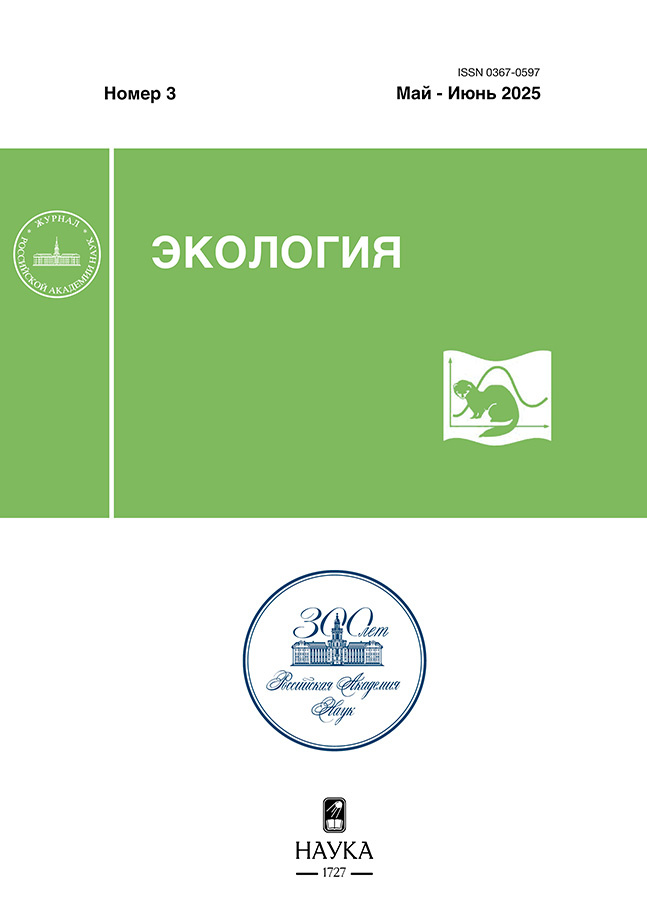
-
Èkologiâ
ISSN (print): 0367-0597
Founders: Russian Academy of Sciences, Ural Branch of the RAS
Editor-in-Chief: Bogdanov V.D., corresponding member RAS, Doctor of Sc., Full Professor
Frequency / Assess: 6 issues per year / Subscription
Included in: White List (2nd level), Higher Attestation Commission List, RISC
-
Čelovek

-
Čelovek
ISSN (print): 0236-2007, ISSN (online): 2782-2893
Founders: Russian Academy of Sciences, Institute of Philosophy RAS
Editor-in-Chief: Afanasov Nikolay Borisovich, Doctor of Sc., Full Professor
Frequency / Assess: 6 issues per year / Subscription
Included in: White List (2nd level), Higher Attestation Commission List, RISC, Scopus
-
Citologiâ
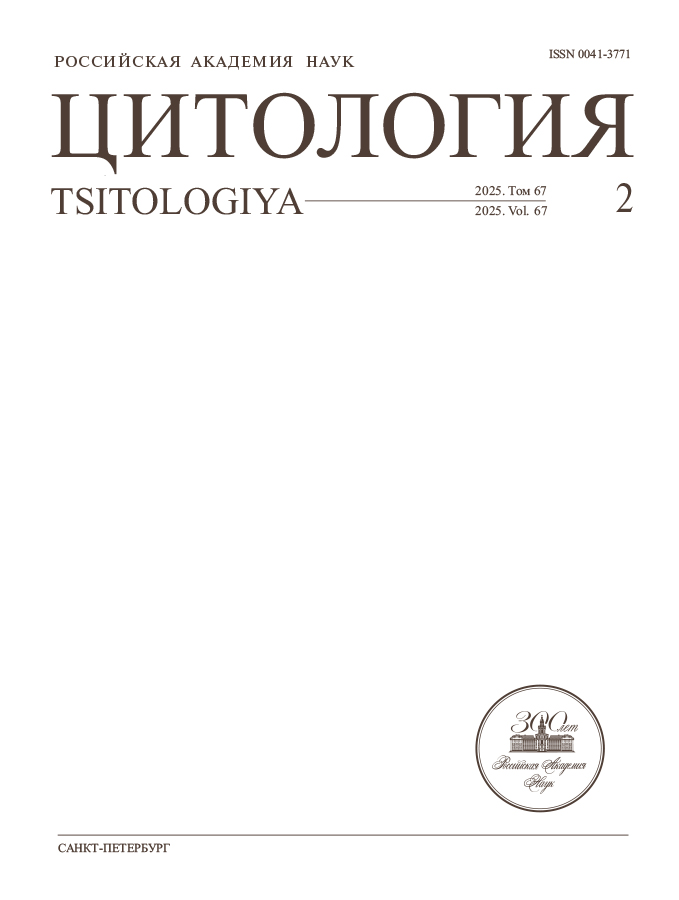
-
Citologiâ
ISSN (print): 0041-3771
Founders: Russian Academy of Sciences, Institute of Cytology of the RAS
Editor-in-Chief: Tomilin A.N., corresponding member RAS, Doctor of Sc., Full Professor
Frequency / Assess: 6 issues per year / Subscription
Included in: White List (3rd level), Higher Attestation Commission List, RISC, Scopus
-
Himiâ tverdogo topliva
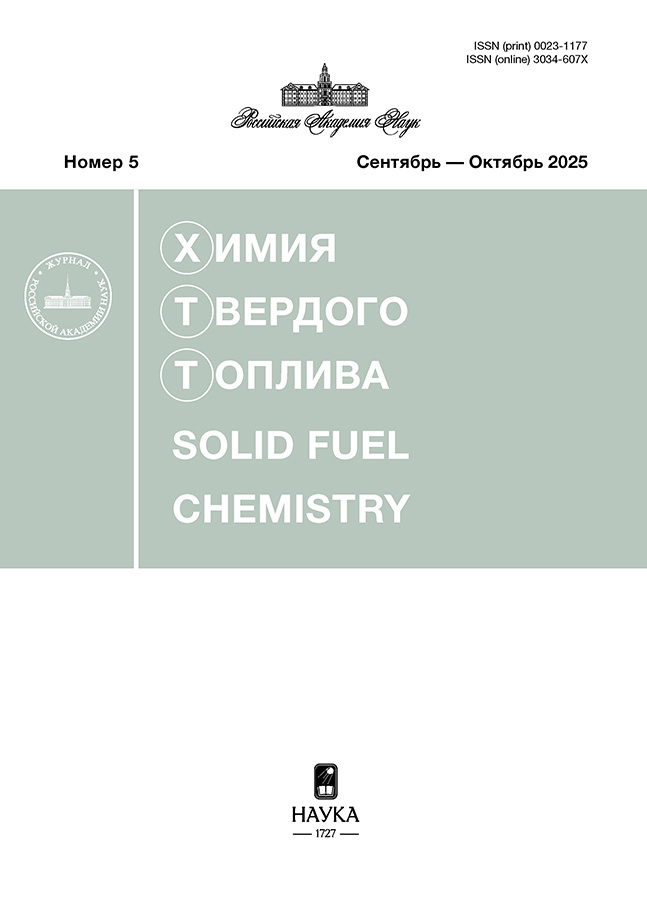
-
Himiâ tverdogo topliva
ISSN (print): 0023-1177
Founders: Institute of Organic Chemistry named after N.D. Zelinsky of the Russian Academy of Sciences, Russian Academy of Sciences
Editor-in-Chief: Albert Lvovich Lapidus, Corresponding Member of the Russian Academy of Sciences, Doctor of Chemical Sciences
Frequency / Access: 6 issues per year / Subscription
Included in: White List (2nd level), Higher Attestation Commission List, RISC
-
Himičeskaâ fizika
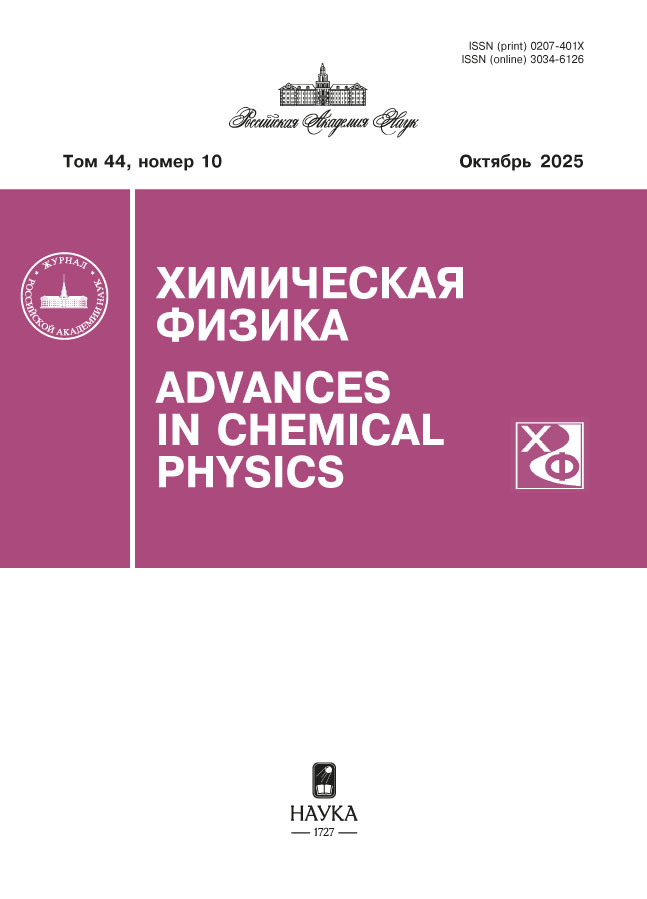
-
Himičeskaâ fizika
ISSN (print): 0207-401X
Founders: Russian Academy of Sciences, Federal Research Center "N. N. Semenov Institute of Chemical Physics" of the Russian Academy of Sciences
Editor-in-Chief: Anatoly Leonidovich Buchachenko, Academician of the Russian Academy of Sciences, Doctor of Chemical Sciences
Frequency / Access: 12 issues per year / Subscription
Included in: White List (2nd level), Higher Attestation Commission List, RISC
-
Fiziologiâ rastenij
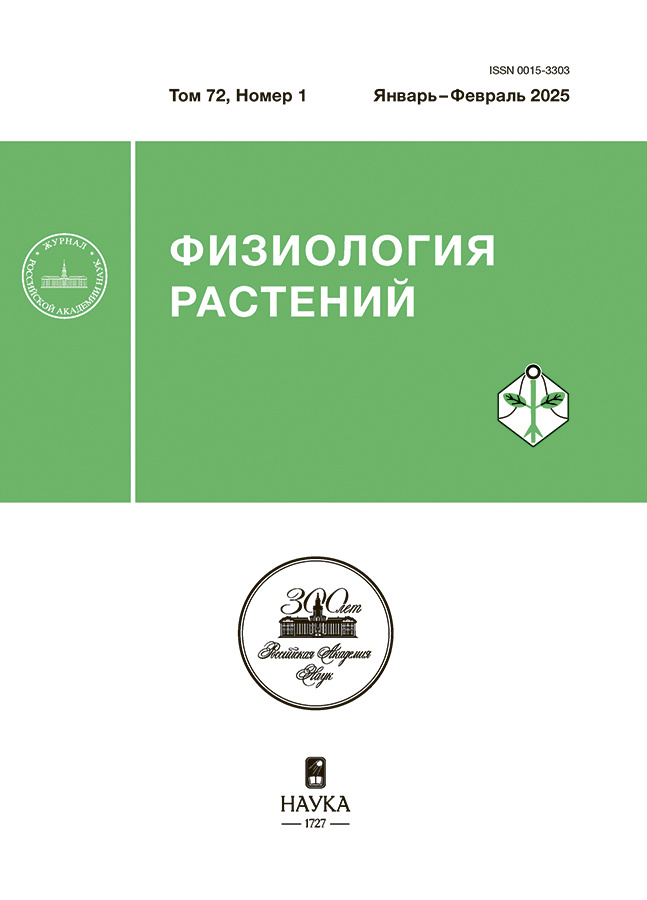
-
Fiziologiâ rastenij
ISSN (print): 0015-3303
Founders: Timiryazev Institute of Plant Physiology, Russian Academy of Sciences
Editor-in-Chief: Vladimir Vasilievich Kuznetsov, Corresponding Member of the Russian Academy of Sciences, Doctor of Biological Sciences, Professor
Frequency / Access: 6 issues per year / Subscription
Included in: White List (1st level), Higher Attestation Commission List, RISC
-
Zaŝita metallov
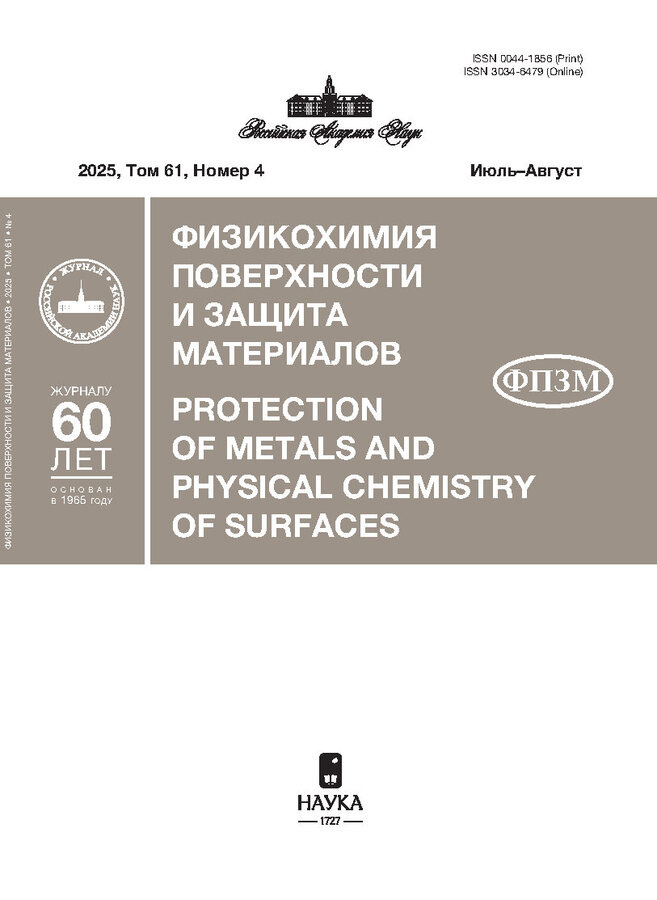
-
Zaŝita metallov
ISSN (print): 0044-1856
Founders: Frumkin Institute of Physical Chemistry and Electrochemistry of the Russian Academy of Sciences, Russian Academy of Sciences
Editor-in-Chief: Aslan Yusupovich Tsivadze, Academician of the Russian Academy of Sciences, Doctor of Chemical Sciences
Frequency / Access: 6 issues per year / Subscription
Included in: White List (2nd level), Higher Attestation Commission List, RISC
-
Fizika metallov i metallovedenie
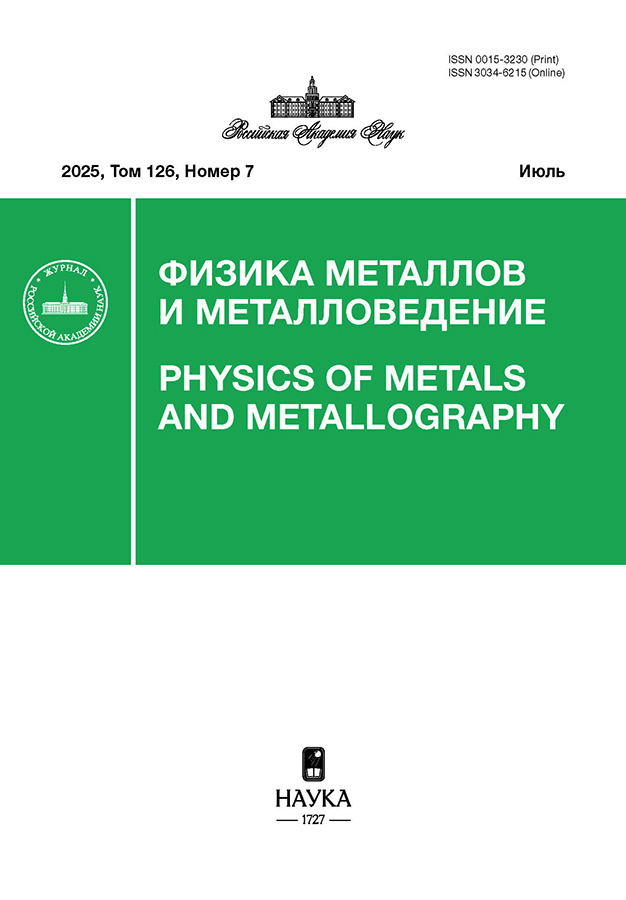
-
Fizika metallov i metallovedenie
ISSN (print): 0015-3230
Founders: Russian Academy of Sciences, M.N. Mikheev Institute of Metal Physics
Editor-in-Chief: Nikolay Varfolomeevich Mushnikov, Academician of the Russian Academy of Sciences, Doctor of Physical and Mathematical Sciences
Frequency / Access: 12 issues per year / Subscription
Included in: White List (2nd level), Higher Attestation Commission List, RISC
-
Fizika i himiâ stekla
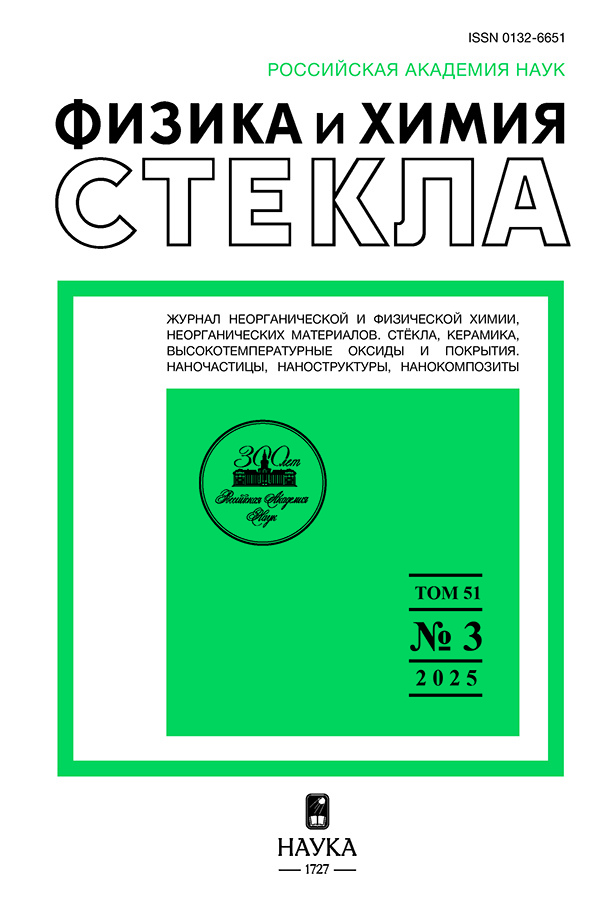
-
Fizika i himiâ stekla
ISSN (print): 0132-6651
Founders: Russian Academy of Sciences, Institute of Silicate Chemistry of RAS
Editor-in-Chief: Shevchenko Vladimir Yaroslavovich, academician RAS, Doctor of Sc.
Frequency / Access: 6 issues per year / Subscription
Included in: White list (2nd level), Higher Attestation Commission List, RISC
-
Uspehi fiziologičeskih nauk
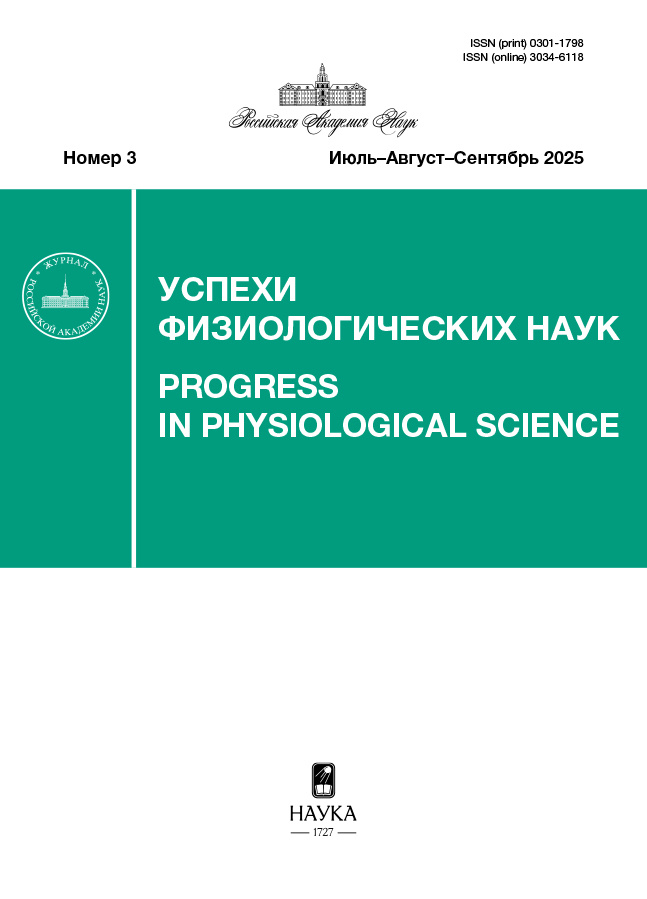
-
Uspehi fiziologičeskih nauk
ISSN (print): 0301-1798
Founder: Russian Academy of Sciences
Editor-in-Chief: Filaretova L., academician RAS, Doctor of Sc.
Frequency / Access: 4 issues per year / Subscription
Included in: White list (2nd level), перечень ВАК, RISC, Scopus, Web of Science Core Collection
-
Uspehi sovremennoj biologii
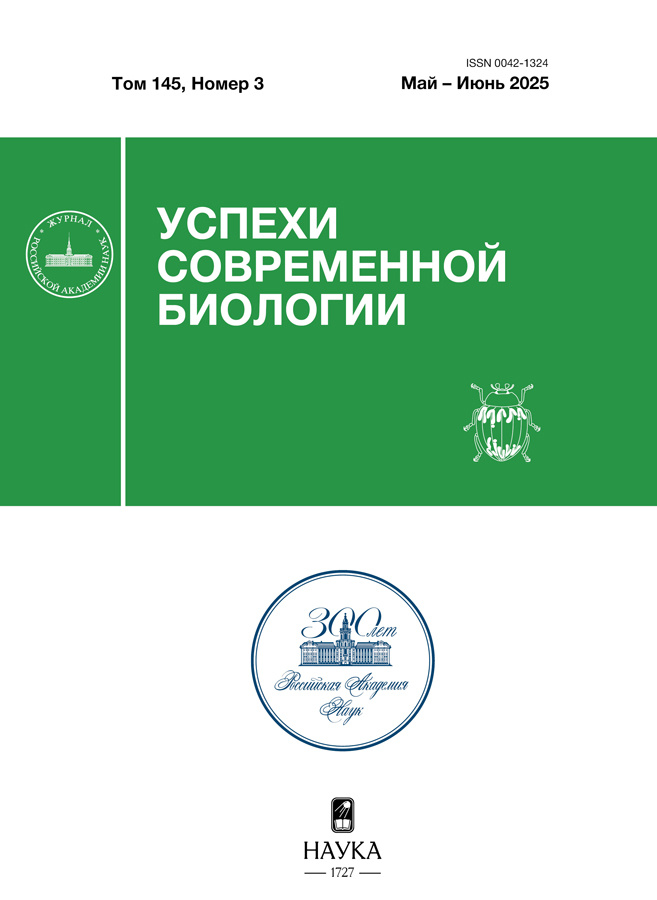
-
Uspehi sovremennoj biologii
ISSN (print): 0042-1324
Founder: Russian Academy of Sciences
Editor-in-Chief: Kudryavtsev A.M., corresponding member RAS, Doctor of Sc.
Frequency / Access: 6 issues per year / Subscription
Included in: White list (3rd level), Higher Attestation Commission list, RISC, Web of Science Core Collection
-
Teplofizika vysokih temperatur
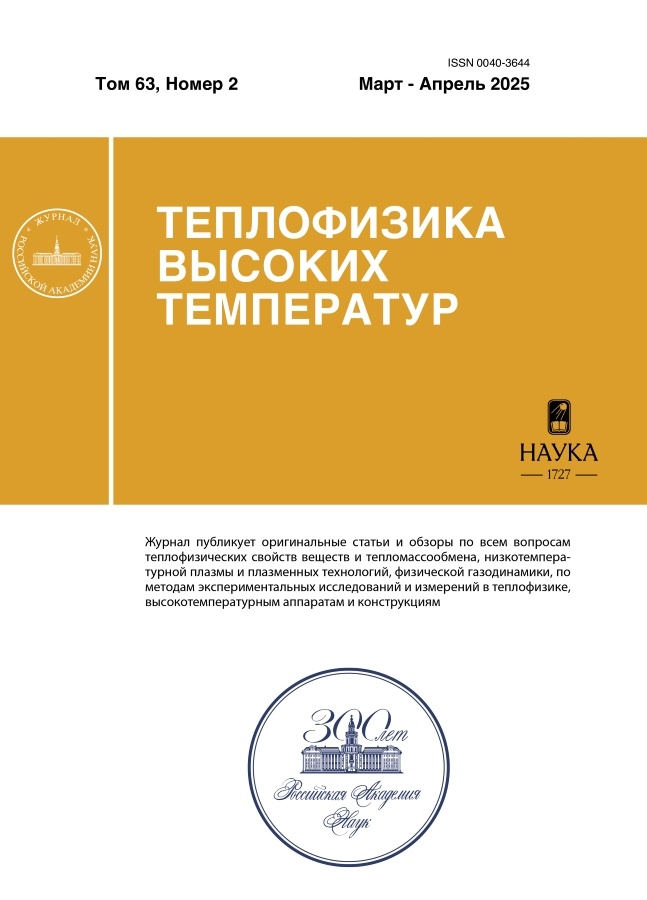
-
Teplofizika vysokih temperatur
ISSN (print): 0040-3644
Founder: Russian Academy of Sciences
Editor-in-Chief: Oleg F. Petrov, academician RAS, Doctor of Sc., Full Professor
Frequency / Access: 6 issues per year / Subscription
Included in: White list (1st level), Higher Attestation Commission list, RISC
-
Teoretičeskie osnovy himičeskoj tehnologii
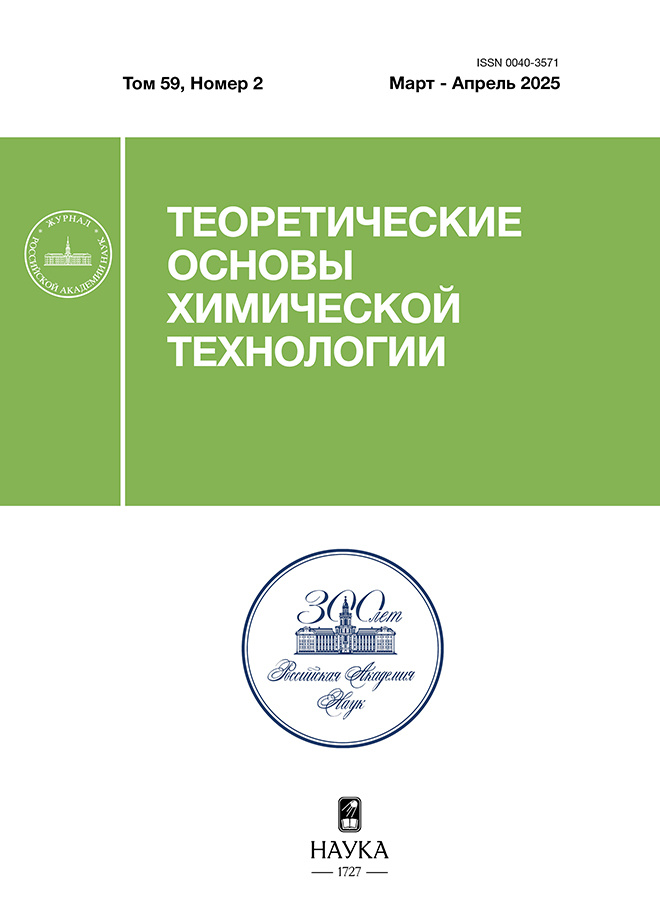
-
Teoretičeskie osnovy himičeskoj tehnologii
ISSN (print): 0040-3571
Founders: Russian Academy of Sciences, Kurnakov Institute of General and Inorganic Chemistry of RAS
Editor-in-chief: N.N. Kulov, Doctor of Sc., Full Professor
Frequency / Access: 6 issues per year / Subscription
Included in: White list (2nd level), Higher Attestation Commission list, RISC
-
USA & Canada: economics, politics, culture
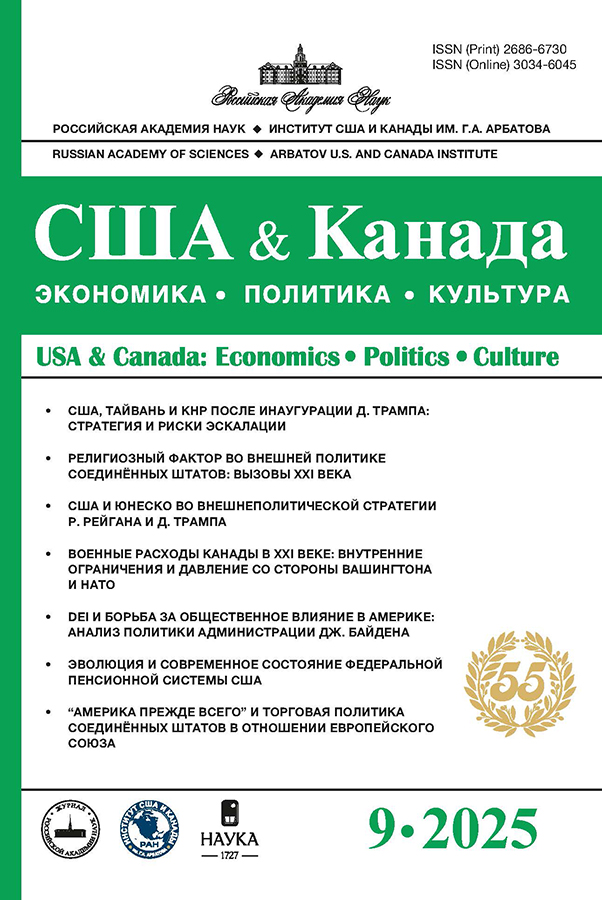
-
USA & Canada: economics, politics, culture
ISSN (print): 2686-6730
Founders: Russian Academy of Sciences, Georgy Arbatov Institute for the U.S. and Canada Studies RAS
Editor-in-Chief: Alexander PANOV, Doctor of Sc., Full Professor
Frequency / Access: 12 issues per year / Subscription
Included in: White list (3rd level), Higher Attestation Commission list, RISC
-
Sotsiologicheskie issledovaniya
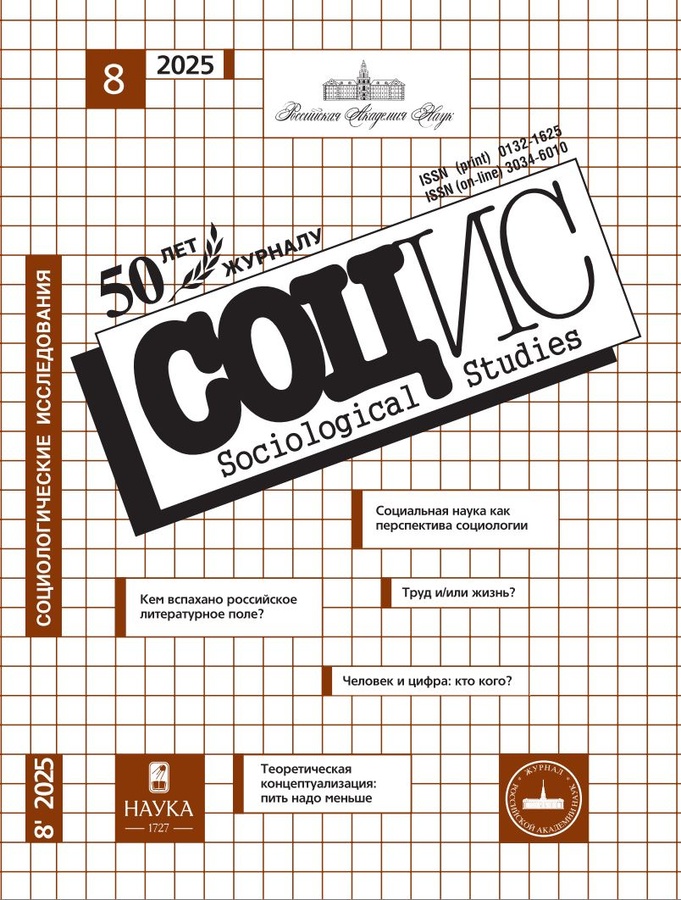
-
Sotsiologicheskie issledovaniya
ISSN (print): 0132-1625
Founders: Russian Academy of Sciences, Institute of Europe of the RAS, Federal Center of Theoretical and Applied Sociology of the RAS
Editor-in-Chief: Klyucharev G.A., Doctor of Sc., Full Professor
Frequency / Assess: 12 issues per year / Subscription
Included in: White List (2nd level), Higher Attestation Commission List, RISC, Scopus, Web of Science Core Collection
-
Sovremennaâ Evropa
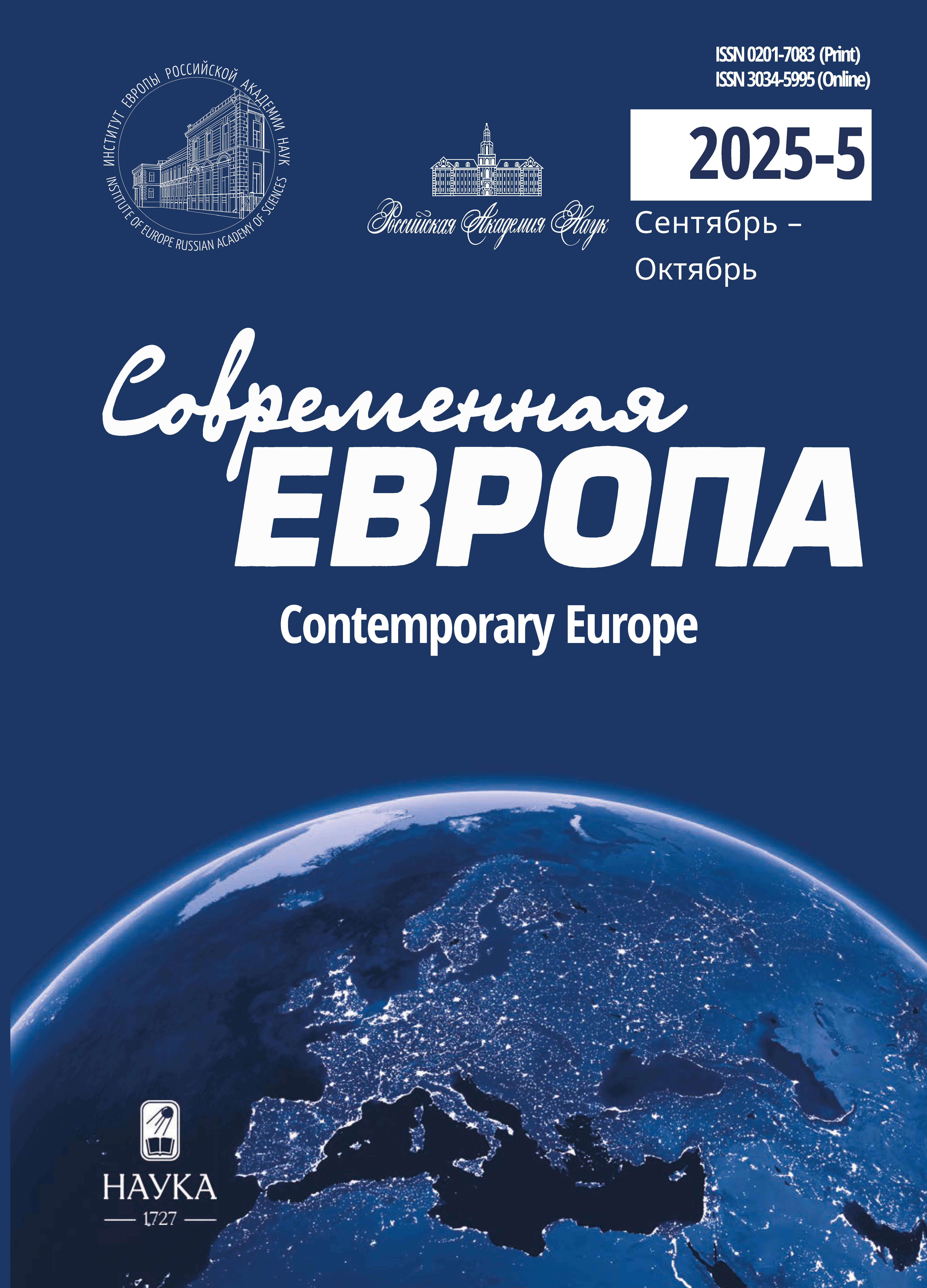
-
Sovremennaâ Evropa
ISSN (print): 0201-7083
Founders: Russian Academy of Sciences, Institute of Europe of the RAS
Editor-in-Chief: Lunkin R.N., Doctor of Sc., Full Professor
Frequency / Assess: 6 issues per year / Subscription
Included in: White List (2nd level), Higher Attestation Commission List, RISC, Scopus
-
Slavianovedenie

-
Slavianovedenie
ISSN (print): 0869-544X, ISSN (online): 2949-3927
Founder: Russian Academy of Sciences
Editor-in-Chief: Sedakova Irina Aleksandrovna, Doctor of Sc., Full Professor
Frequency / Assess: 6 issues per year / Subscription
Included in: White List (3rd level),Higher Attestation Commission List, RISC
-
Sensornye sistemy
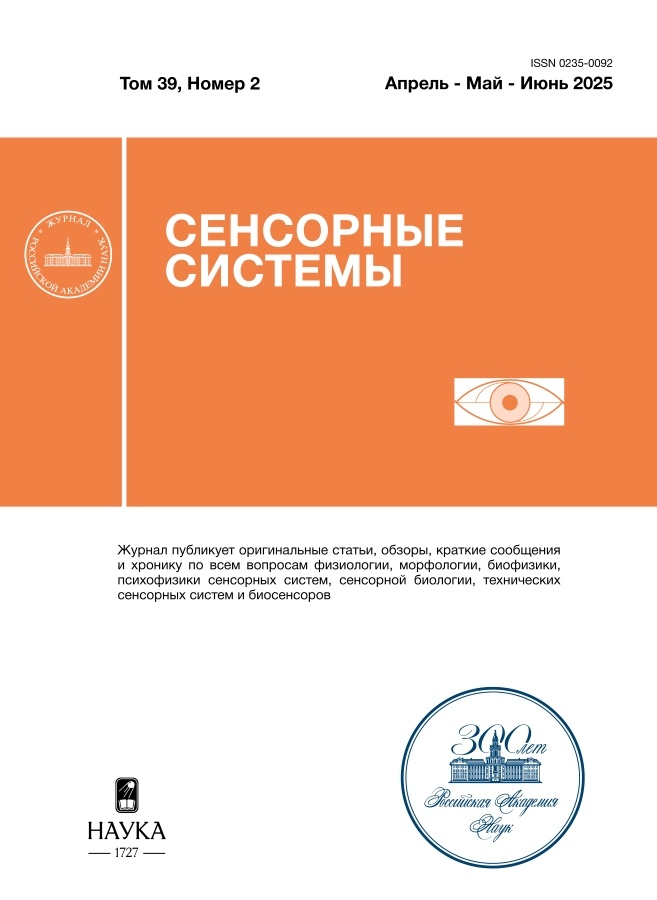
-
Sensornye sistemy
ISSN (print): 0235-0092
Founder: Russian Academy of Sciences
Editor-in-Chief: Firsov M.L., corresponding member RAS, Doctor of Sc.
Frequency / Assess: 4 issues per year / Subscription
Included in: White List (4th level), Higher Attestation Commission List, RISC
-
Russkaia rech

-
Russkaia rech
ISSN (print): 0131-6117
Founders: Russian Academy of Sciences, Vinogradov Russian Language Institute (RAS), Pushkin State Russian Language Institute
Editor-in-Chief: Shmelev Alexei D., corresponding member RAS, Doctor of Sc., Full Professor
Frequency / Assess: 6 issues per year / Subscription
Included in: White List (4th level), Higher Attestation Commission ist, RISC, Scopus
-
Russkaâ literatura
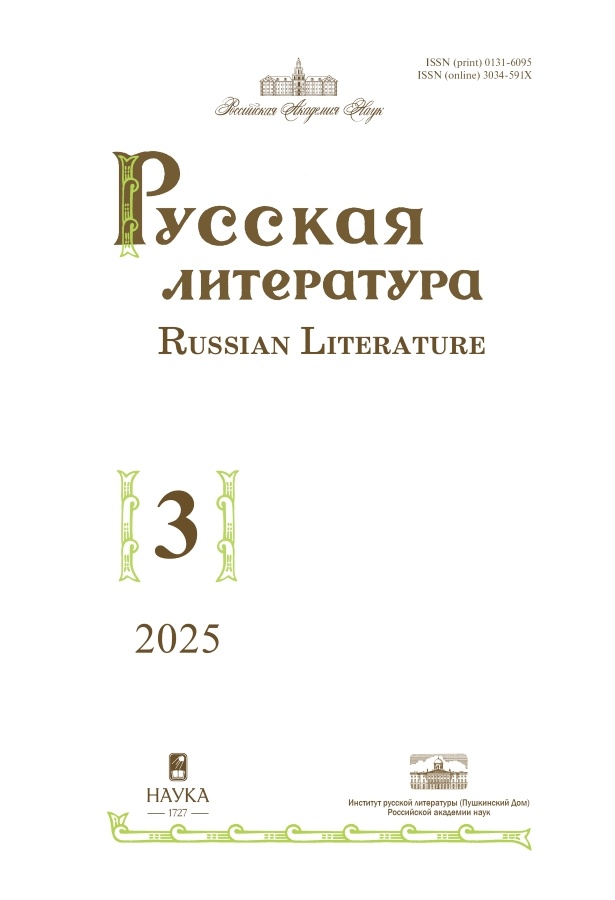
-
Russkaâ literatura
ISSN (print): 0131-6095
Founders: Russian Academy of Sciences, Institute of Russian Literature, Russian Academy of Science
Editor-in-Chief: Bagno V.E., corresponding member RAS, Doctor of Sc., Full Professor
Frequency / Assess: 4 issues per year / Subscription
Included in: White List (1st level), Higher Attestation Commission List, RISC, Scopus,
-
Rossijskij fiziologičeskij žurnal im. I.M. Sečenova
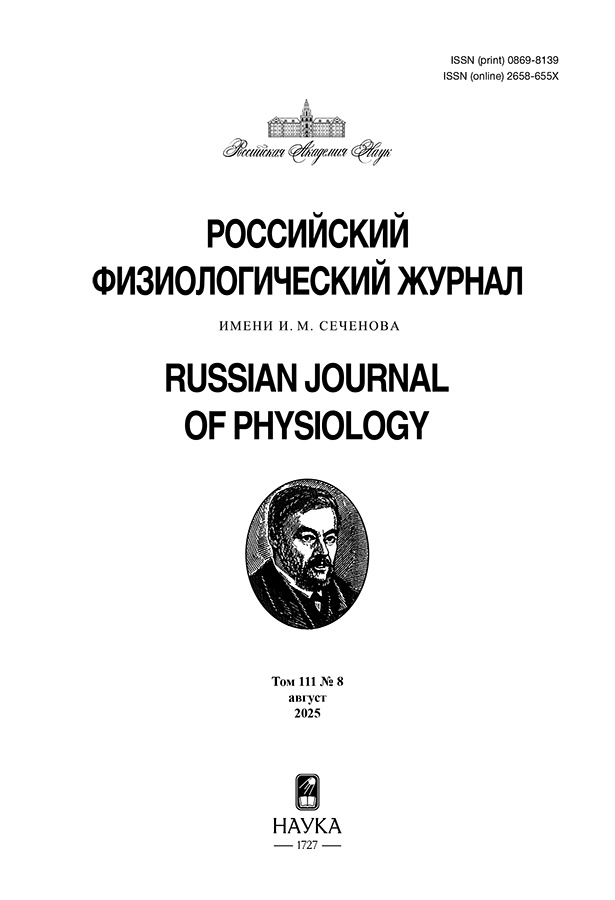
-
Rossijskij fiziologičeskij žurnal im. I.M. Sečenova
ISSN (print): 0869-9139 , ISSN (online): 2658-655X
Founder: Russian Academy of Sciences
Editor-in-Chief: Magazanik Lev G., academician RAS, Doctor of Sc., Full Professor
Frequency / Assess: 12 issues per year / Subscription
Included in: White List (4th level), Higher Attestation Commission List, RISC
-
Rossijskaâ istoriâ
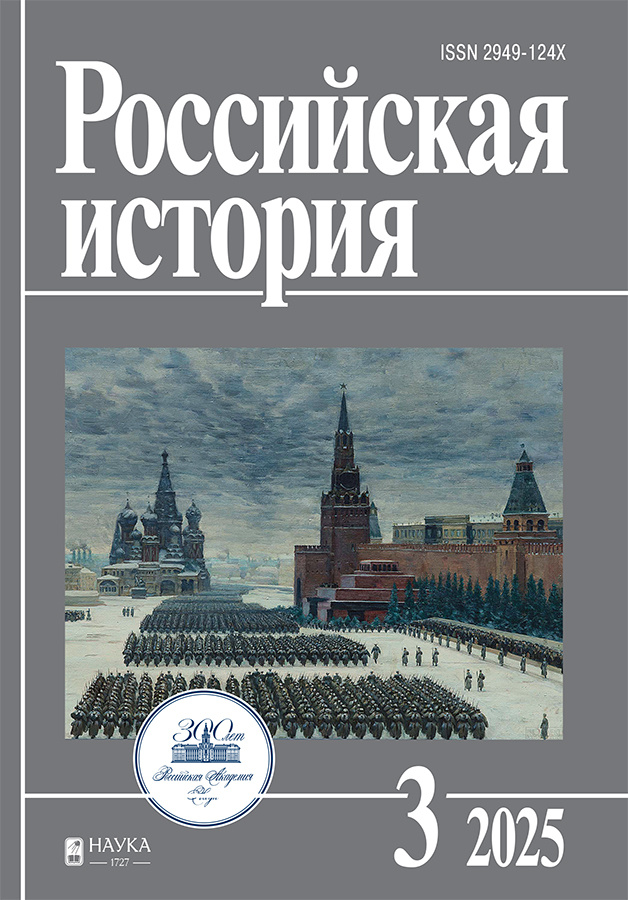
-
Rossijskaâ istoriâ
ISSN (print): 2946-124X
Founders: Russian Academy of Sciences, Institute of Russian History of the Russian Academy of Sciences
Editor-in-Chief: Zakharov V.N., Doctor of Sc.
Frequency / Assess: 6 issues per year / Subscription
Included in: White List (1st level), Higher Attestation Commission List, RISC
-
Rossijskaâ arheologiâ
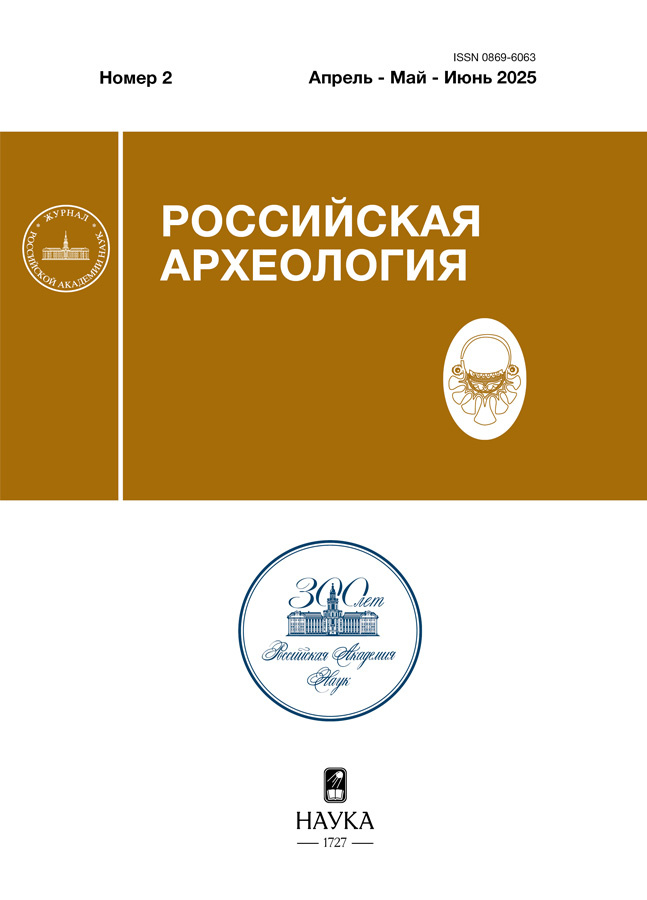
-
Rossijskaâ arheologiâ
ISSN (print): 0869-6063
Founders: Russian Academy of Sciences, Institute of Archaeology Russian Academy of Sciences
Editor-in-Chief: Beliaev L.A., corresponding member RAS, Doctor of Sc.
Frequency / Assess: 4 issues per year / Subscription
Included in: White List (1sd level), Higher Attestation Commission List, RISC, Scopus
-
Rastitelʹnye resursy
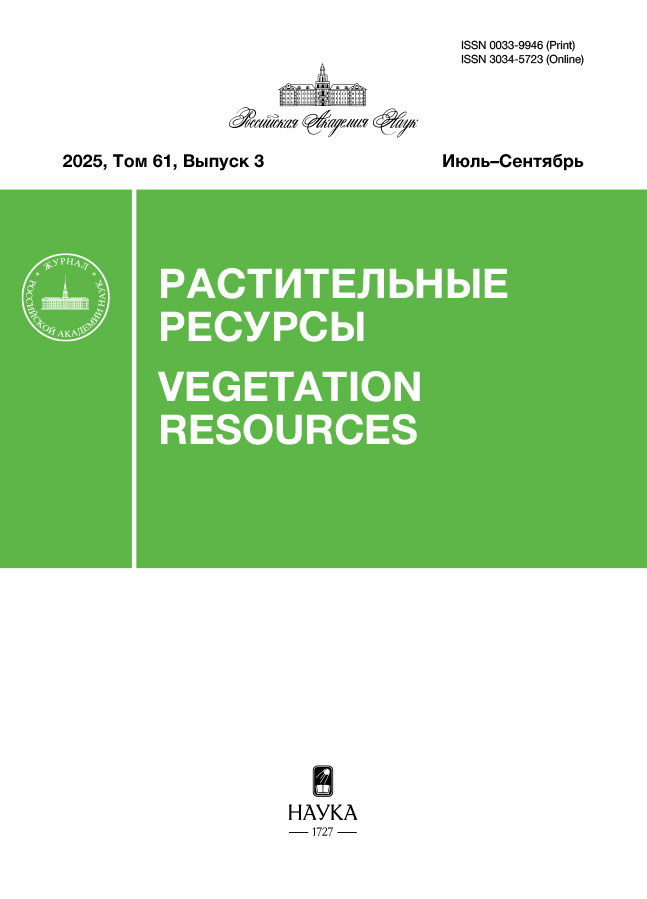
-
Rastitelʹnye resursy
ISSN (print): 0033-9946
Founder: Russian Academy of Sciences
Editor-in-Chief: Stavrova N.I., Doctor of Sc.
Frequency / Assess: 4 issues per year / Subscription
Included in: White List (4th level), Higher Attestation Commission List, RISC
-
Rasplavy
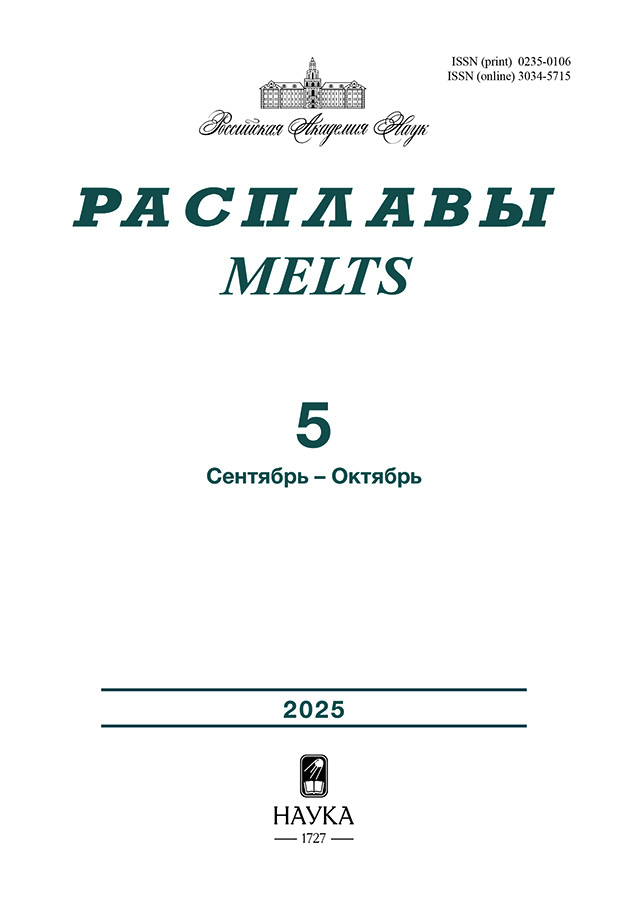
-
Rasplavy
ISSN (print): 0235-0106
Founders: Russian Academy of Sciences, Ural Branch of the Russian Academy of Sciences
Editor-in-Chief: Gelchinski Boris, Doctor of Sc., Full Professor
Frequency / Assess: 6 issues per year / Subscription
Included in: White List (3rd level), Higher Attestation Commission List, RISC,
-
Radiohimiâ
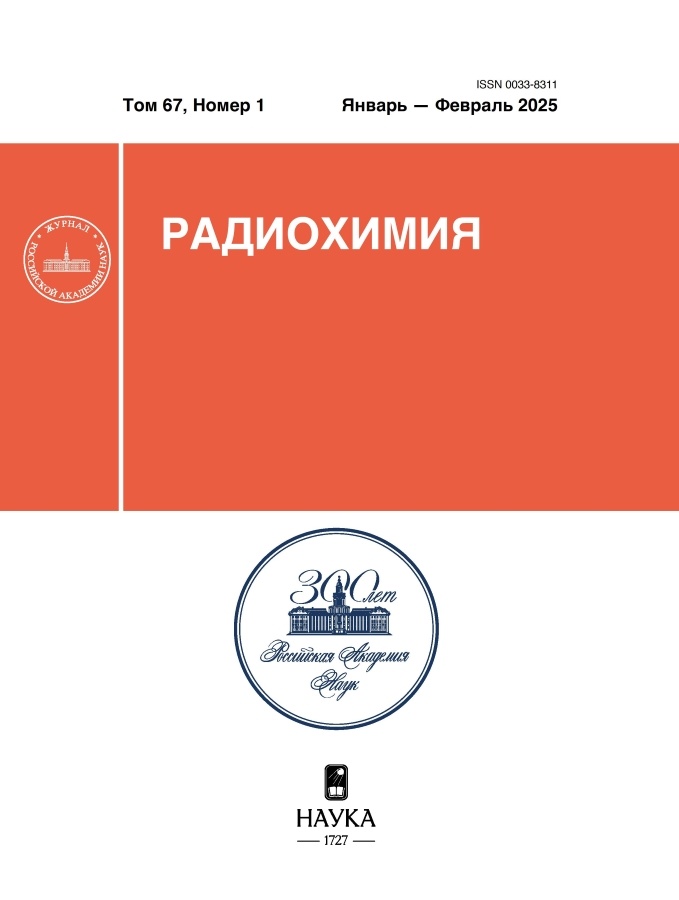
-
Radiohimiâ
ISSN (print): 0033-8311
Founders: Russian Academy of Sciences, Khlopin Radium Institute
Editor-in-Chief: Myasoedov B.F., academician RAS, Doctor of Sc., Full Professor
Frequency / Assess: 6 issues per year / Subscription
Included in: White List (3rd level), Higher Attestation Commission List, RISC,
-
Radiotehnika i èlektronika
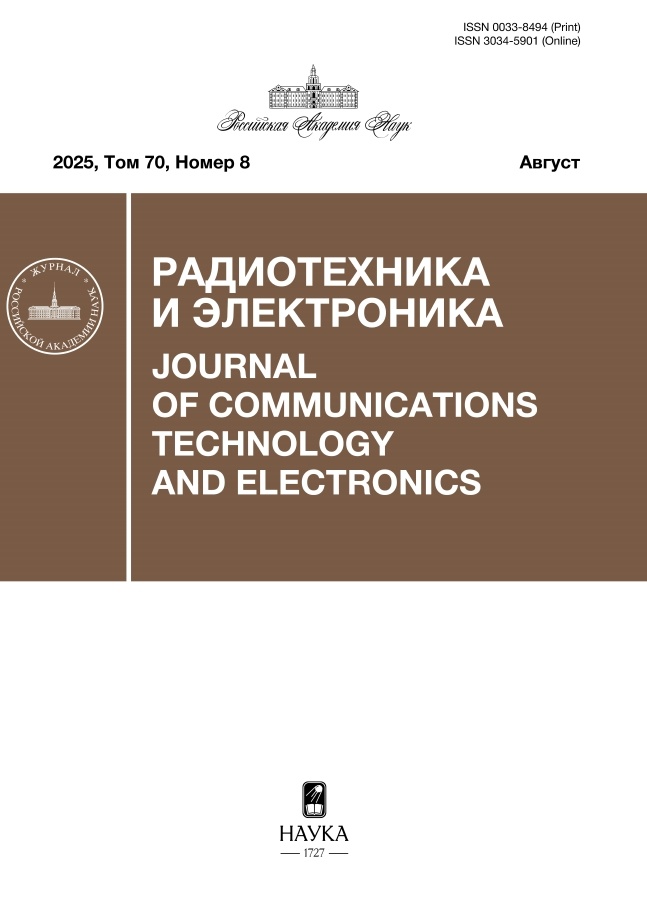
-
Radiotehnika i èlektronika
ISSN (print): 0033-8494
Founders: Russian Academy of Sciences, Kotelnikov Institute of Radio Engineering and Electronics of RAS
Editor-in-Chief: Gulyaev Yu.V., academician RAS, Doctor of Sc., Full Professor
Frequency / Assess: 12 issues per year / Subscription
Included in: Higher Attestation Commission List, RISC, RISC core, Web of Science (RSCI)
-
Radiation biology. Radioecology
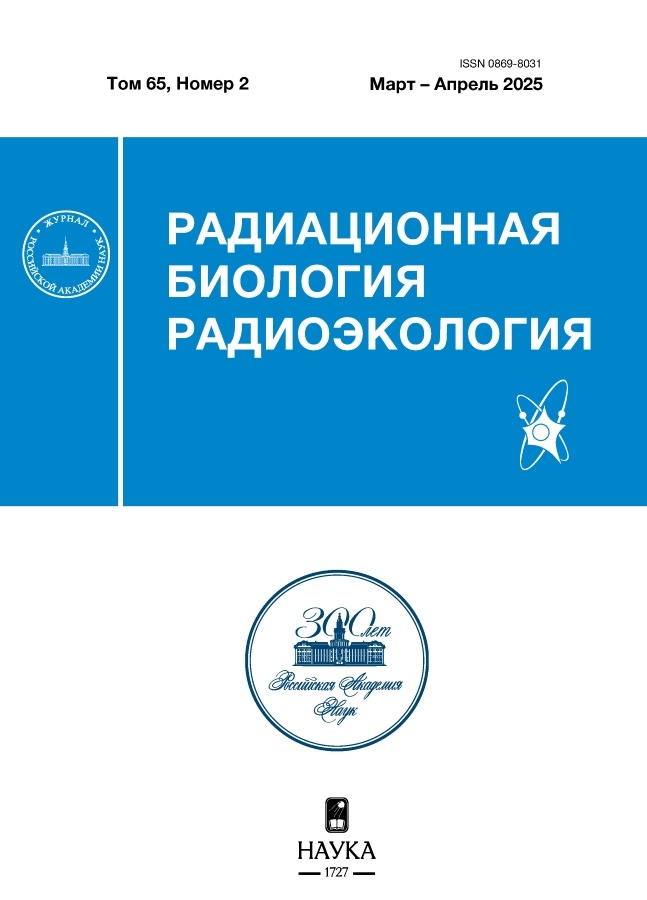
-
Radiation biology. Radioecology
ISSN (print): 0869-8031
Founder: Russian Academy of Sciences
Editor-in-Chief: Rubanovich A.V., Doctor of Sc., Full Professor
Frequency / Assess: 6 issues per year / Subscription
Included in: White List (3rd level), Higher Attestation Commission List, RISC
-
Psikhologicheskii zhurnal
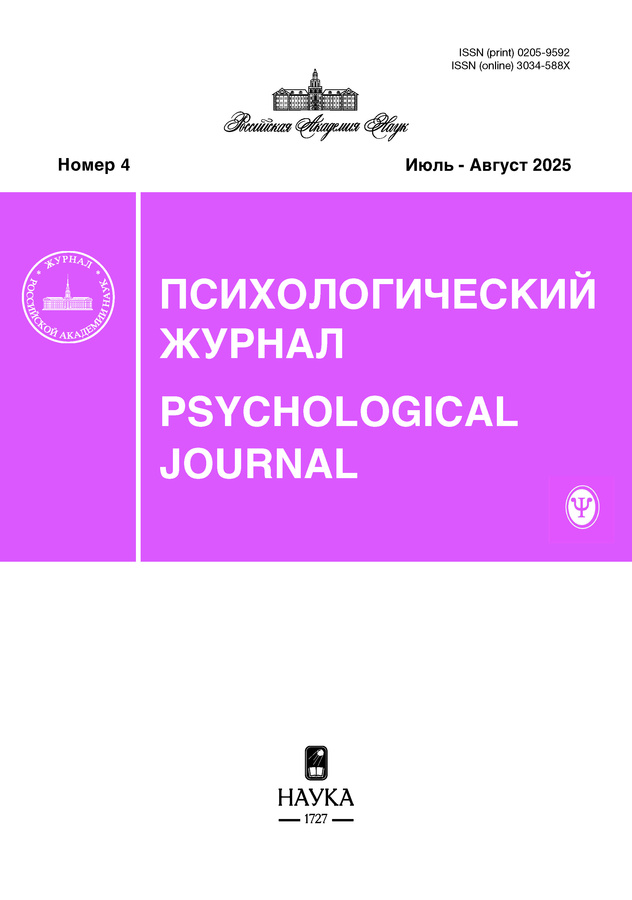
-
Psikhologicheskii zhurnal
ISSN (print): 0205-9592
Founders: Russian Academy of Sciences, Institute of Psychology of the RAS
Editor-in-Chief: Zhuravlev A.L., academician RAS, academician RAE, Doctor of Sc., Full Professor
Frequency / Assess: 6 issues per year / Subscription
Included in: White List (3rd level), Higher Attestation Commission List, RISC
-
Programmirovanie
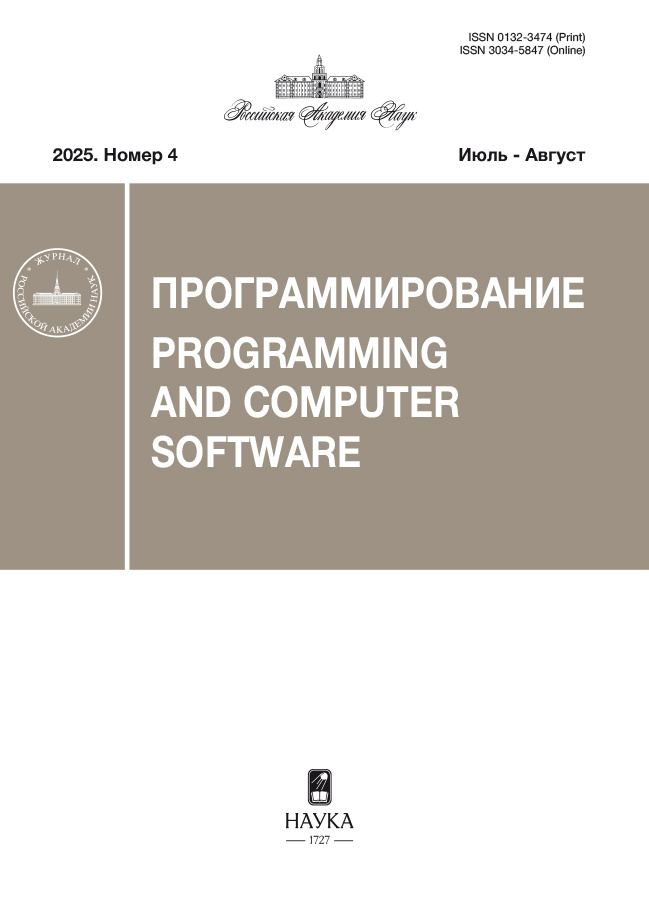
-
Programmirovanie
ISSN (print): 0132-3474
Founders: Russian Academy of Sciences, Lomonosov Moscow State University
Editor-in-Chief: Avetisyan A.I., academician RAS, Doctor Sc., Full Professor
Frequency/Assess: 6 issues per year/Subscription
Included in: White List (2nd level), Higher Attestation Commission List, RISC
-
Problemy peredači informacii
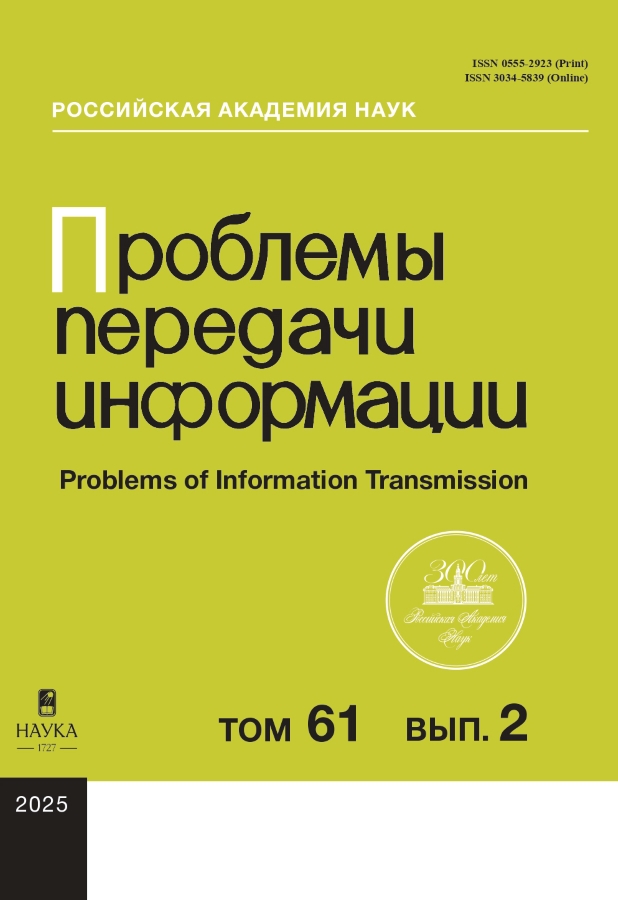
-
Problemy peredači informacii
ISSN (print): 0555-2923
Founders: Russian Academy of Sciences, Institute for Information Transmission Problems of the RAS
Editor-in-Chief: Bassalygo L.A., Doctor of Sc.
Frequency / Assess: 4 issues per year / Subscription
Included in: White List (2nd level), Higher Attestation Commission List, RISC
-
Problemy mašinostroeniâ i nadežnosti mašin
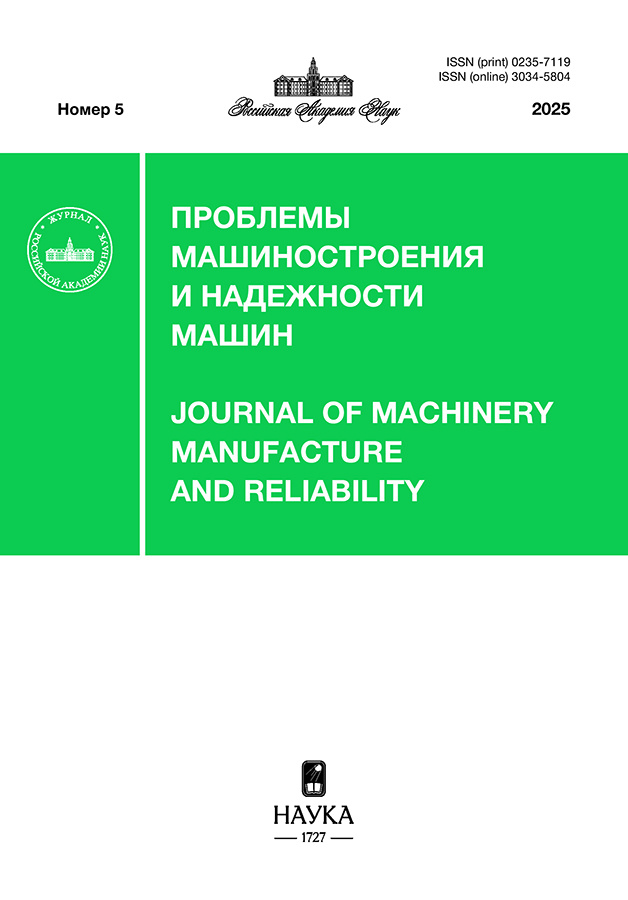
-
Problemy mašinostroeniâ i nadežnosti mašin
ISSN (print): 0235-7119
Founders: Russian Academy of Sciences, Mechanical Engineering Research Institute of the RAS
Editor-in-Chief: Leonid Y. Ukrainskiy, corresponding member RAS, Doctor of Sc.
Frequency / Assess: 6 issues per year / Subscription
Included in: White List (3rd level), Higher Attestation Commission List, RISC
-
Problemy Dalnego Vostoka
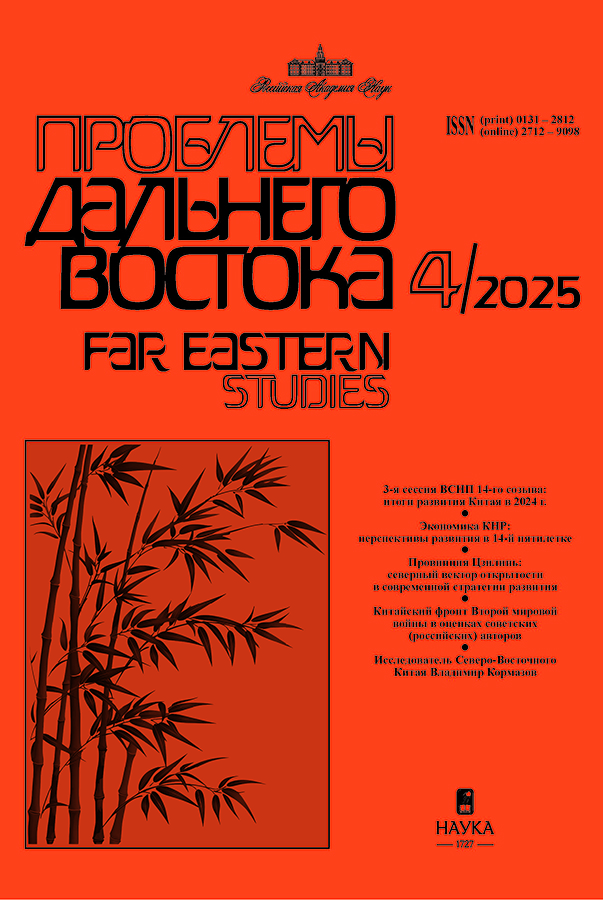
-
Problemy Dalnego Vostoka
ISSN (print): 0131-2812,ISSN (online): 2712-9098
Founders: Russian Academy of Sciences
Editor-in-Chief: Vinogradov Andrey V., Doctor of Sc.
Frequency / Assess: 6 issues per year / Subscription
Included in: White List (4th level), Higher Attestation Commission List, RISC
-
Prikladnaâ biohimiâ i mikrobiologiâ
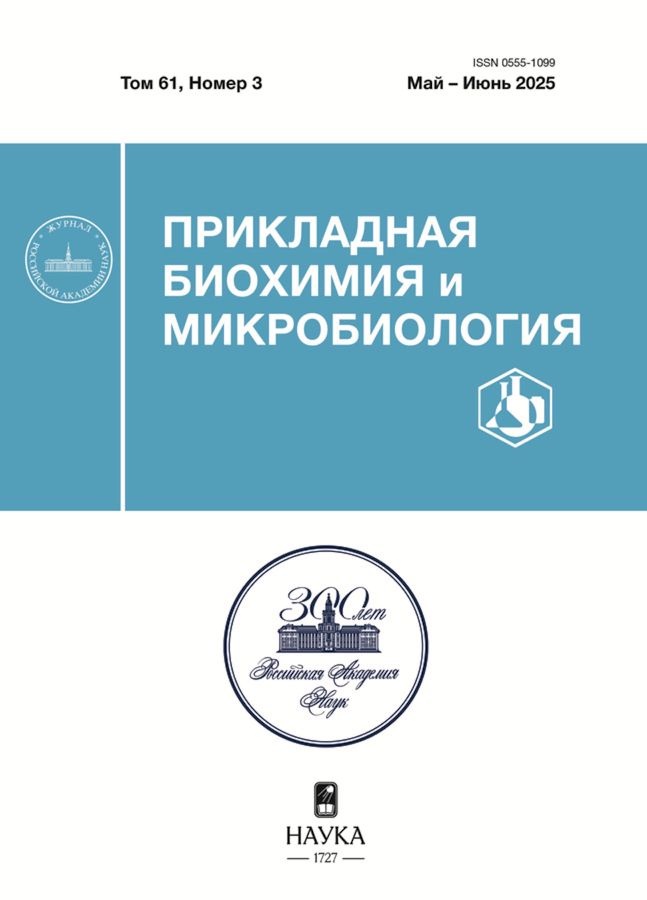
-
Prikladnaâ biohimiâ i mikrobiologiâ
ISSN (print): 0555-1099
Founders: Russian Academy of Sciences, Federal State Institution "Federal Research Centre 'Fundamentals of Biotechnology' of the Russian Academy of Sciences'
Editor-in-Chief: Popov V.O., academician RAS, Doctor of Sc., Full Professor
Frequency / Assess: 6 issues per year / Subscription
Included in: White List (2nd level), Higher Attestation Commission List, RISC
-
Prikladnaâ matematika i mehanika
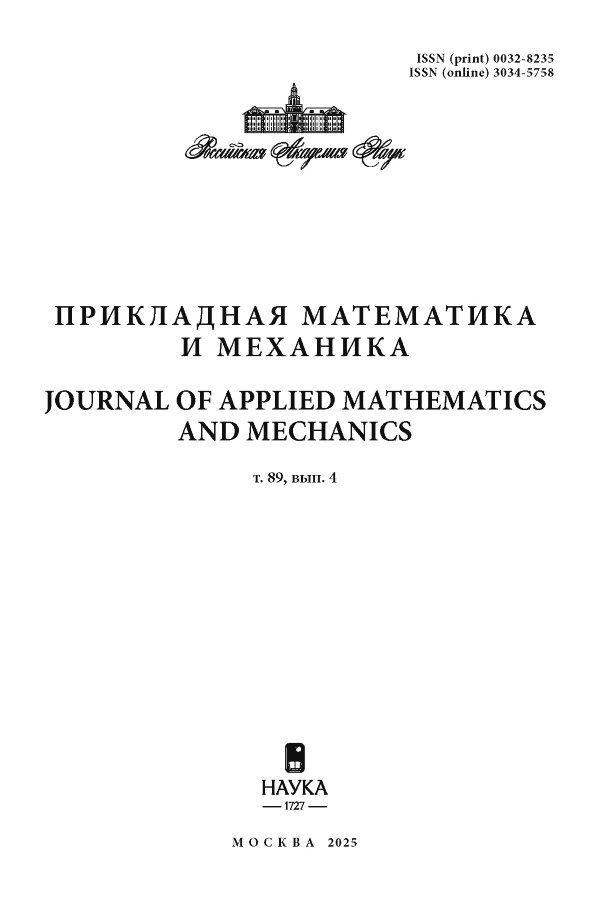
-
Prikladnaâ matematika i mehanika
ISSN (print): 0032-8235
Founder: Russian Academy of Sciences
Editor-in-Chief: Goryacheva I.G., academician RAS, Doctor of Sc., Full Professor
Frequency / Assess: 6 issues per year / Subscription
Included in: White List (3rd level), Higher Attestation Commission List, RISC
-
Pribory i tehnika èksperimenta
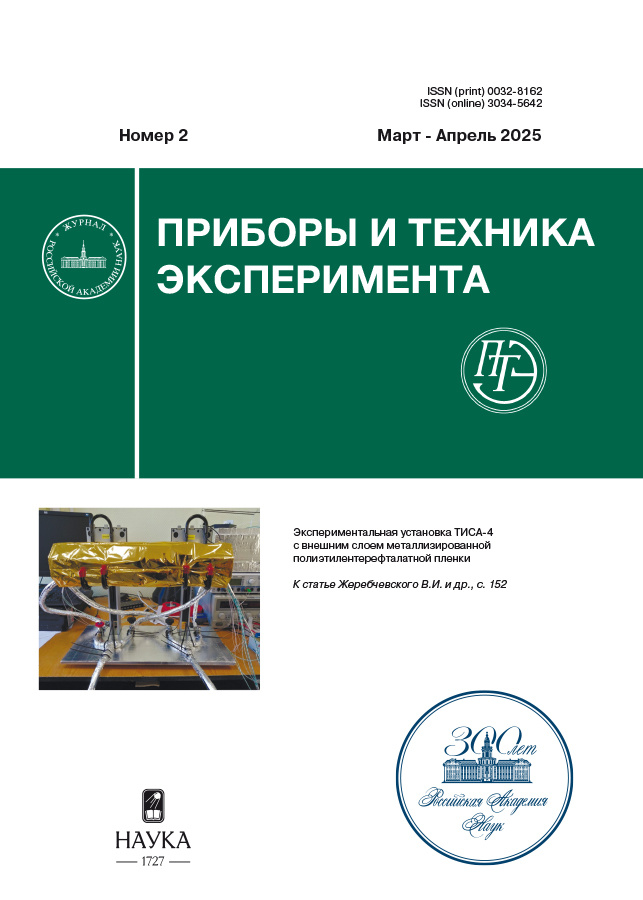
-
Pribory i tehnika èksperimenta
ISSN (print): 0032-8162
Founders: Russian Academy of Sciences, Kapitza Institute for Physical Problems, Russian Academy of Sciences
Editor-in-Chief: Svistov Leonid E., Doctor of Sc.
Frequency / Assess: 6 issues per year / Subscription
Included in: White List (2nd level), Higher Attestation Commission List, RISC
-
Počvovedenie
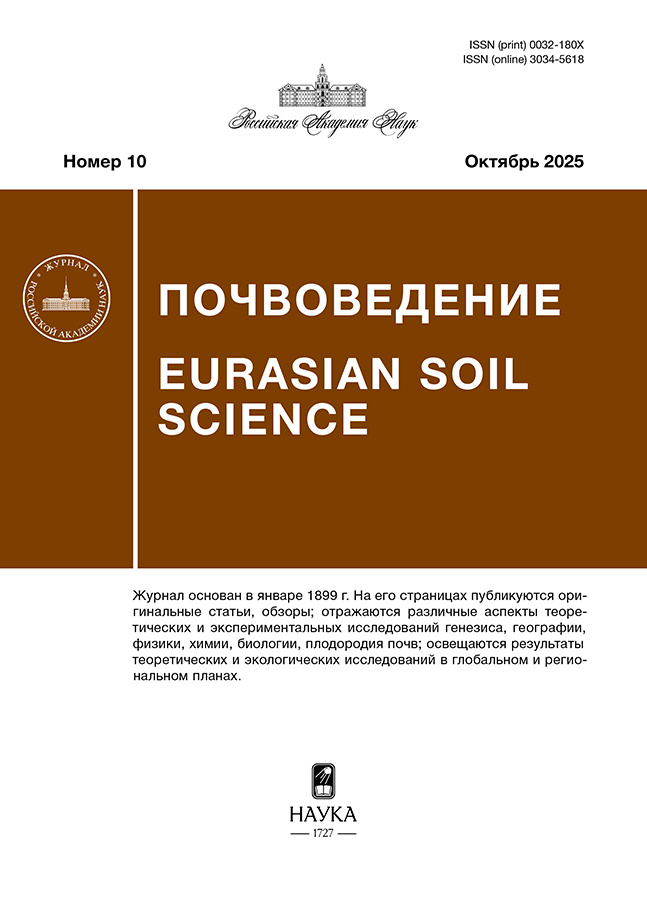
-
Počvovedenie
ISSN (print): 0032-180X
Founder: Russian Academy of Sciences
Editor-in-Chief: Krasilnikov Pavel Vladimirovich, corresponding member RAS, Doctor Sc., Associate Professor
Frequency / Assess: 12 issues per year / Subscription
Included in: White List (1st level), Higher Attestation Commission List, RISC
-
Poverhnostʹ. Rentgenovskie, sinhrotronnye i nejtronnye issledovaniâ
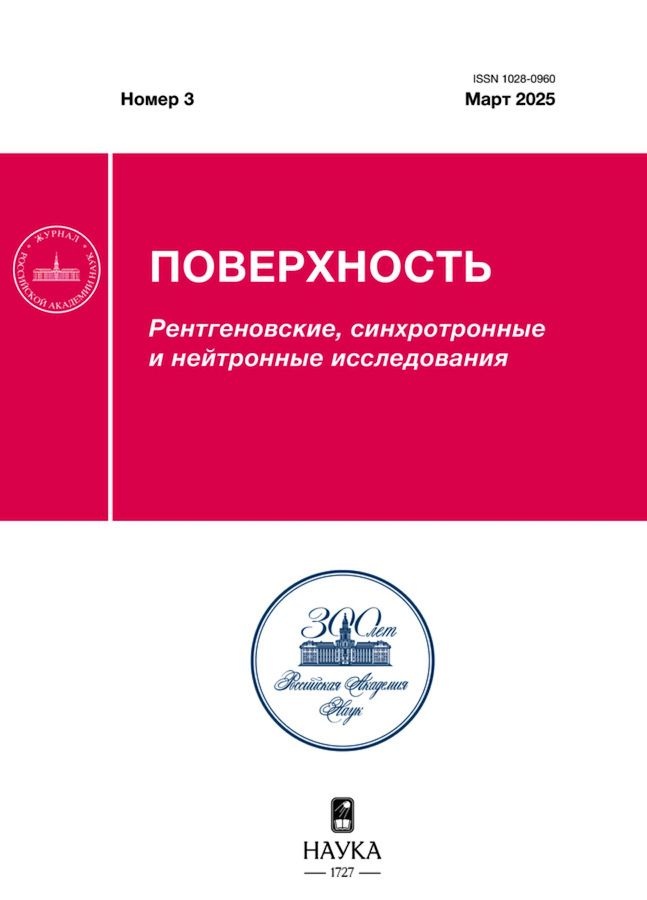
-
Poverhnostʹ. Rentgenovskie, sinhrotronnye i nejtronnye issledovaniâ
ISSN (print): 1028-0960
Founders: Russian Academy of Sciences, Institute of Solid State Physics of the Russian Academy of Sciences
Editor-in-Chief: Levchenko Alexander Alekseevich, corresponding member RAS
Frequency / Assess: 12 issues per year / Subscription
Included in: White List (4th level), Higher Attestation Commission List, RISC
-
Pisʹma v žurnal êksperimentalʹnoj i teoretičeskoj fiziki
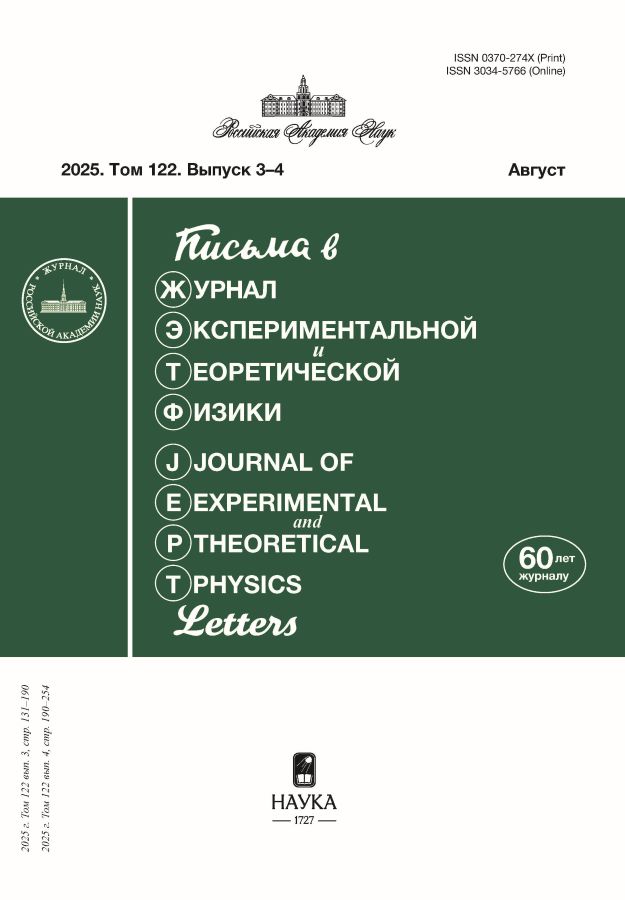
-
Pisʹma v žurnal êksperimentalʹnoj i teoretičeskoj fiziki
ISSN (print): 0370-274X
Media registration certificate: ПИ № ФС 77 – 78169 от 27.03.2020
Founder: P.L. Kapitza Institute for Physical Problems of the Russian Academy of Sciences, Russian Academy of Sciences
Editor-in-Chief: Pudalov V.M
Frequency / Assess: 12 issues per year / Subscription
Included in: White List (1st level),Higher Attestation Commission list, RISC
-
Parazitologiâ
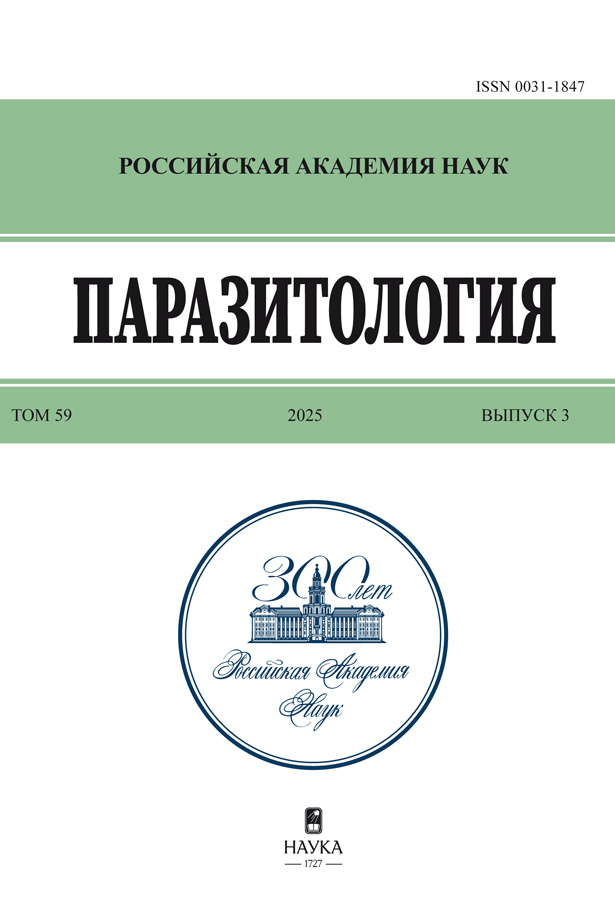
-
Parazitologiâ
ISSN (print): 0031-1847
Founder: Russian Academy of Sciences
Editor-in-Chief: Oleg Nikolaevich Pugachev, Academician of the Russian Academy of Sciences, Doctor of Biological Sciences
Frequency / Access: 6 issues per year / Subscription
Included in: White List (3rd level), RISC, Web of science
-
Ontogenez
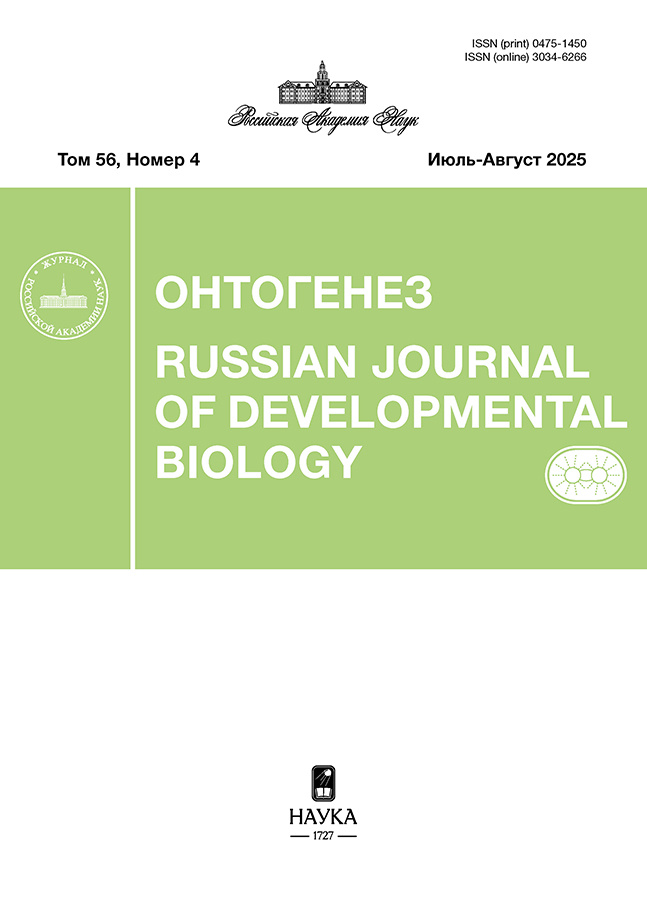
-
Ontogenez
ISSN (print): 0475-1450
Founder: Russian Academy of Sciences
Editor-in-Chief: Andrei Valentinovich Vasiliev, Corresponding Member of the Russian Academy of Sciences, Doctor of Biological Sciences
Frequency / Access: 6 issues per year / Subscription
Included in: White List (3rd level), Higher Attestation Commission List, RISC
-
Society and Economics
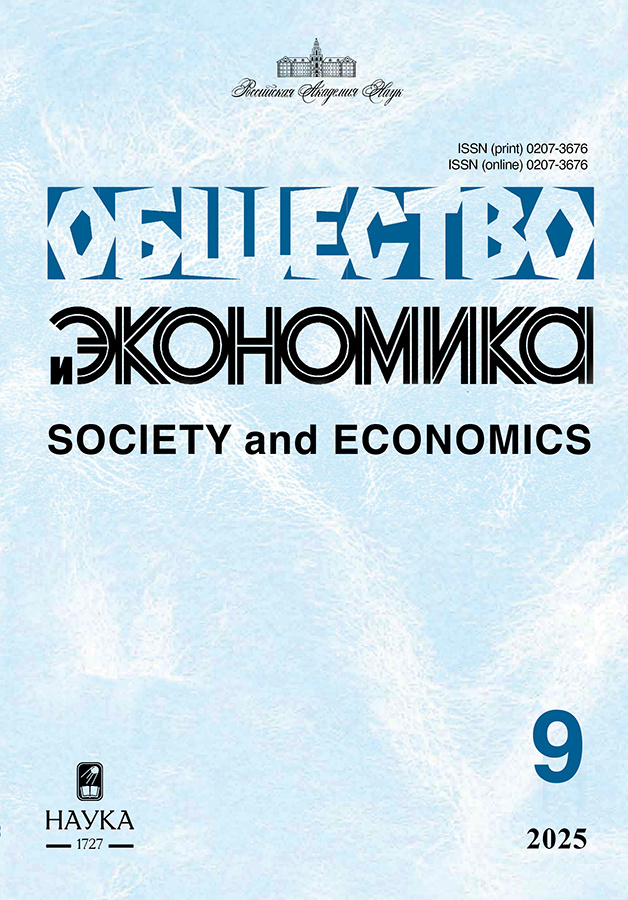
-
Society and Economics
ISSN (print): 0207-3676
Founder: Russian Academy of Sciences
Editor-in-Chief: Pavel Antonovich Kakhno, Doctor of Economic Sciences, Professor
Frequency / Access: 12 issues per year / Subscription
Included in: Higher Attestation Commission List, RISC
-
Obŝestvennye nauki i sovremennostʹ
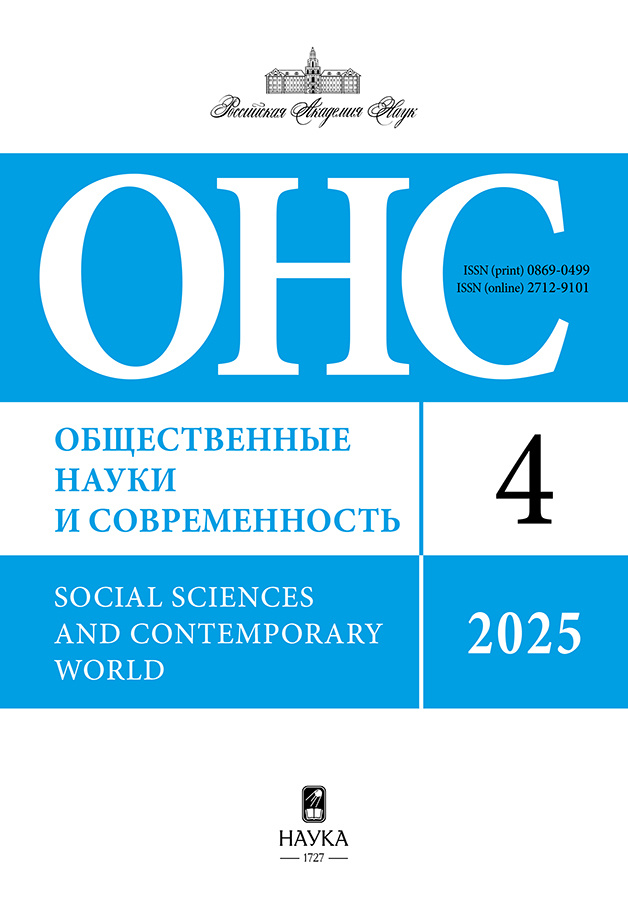
-
Obŝestvennye nauki i sovremennostʹ
ISSN (print): 0869-0499, ISSN (online): 2712-9101
Founder: Russian Academy of Sciences
Editor-in-Chief: Alexey Anatolyevich Gromyko, Corresponding Member of the Russian Academy of Sciences, Doctor of Political Sciences
Frequency / Access: 6 issues per year / Subscription
Included in: White List (2nd level), Higher Attestation Commission List, RISC
-
Novaya i Novejshaya Istoriya

-
Novaya i Novejshaya Istoriya
ISSN (print): 0130-3864
Founders: Institute of Universal History, Russian Academy of Sciences, Russian Academy of Sciences
Editor-in-Chief: Velikhan Salman Khanovich Mirzakhanov, Doctor of Historical Sciences, Professor
Frequency / Access: 6 issues per year / Subscription
Included in: White List (2nd level), Higher Attestation Commission List, RISC, Scopus
-
Neftehimiâ
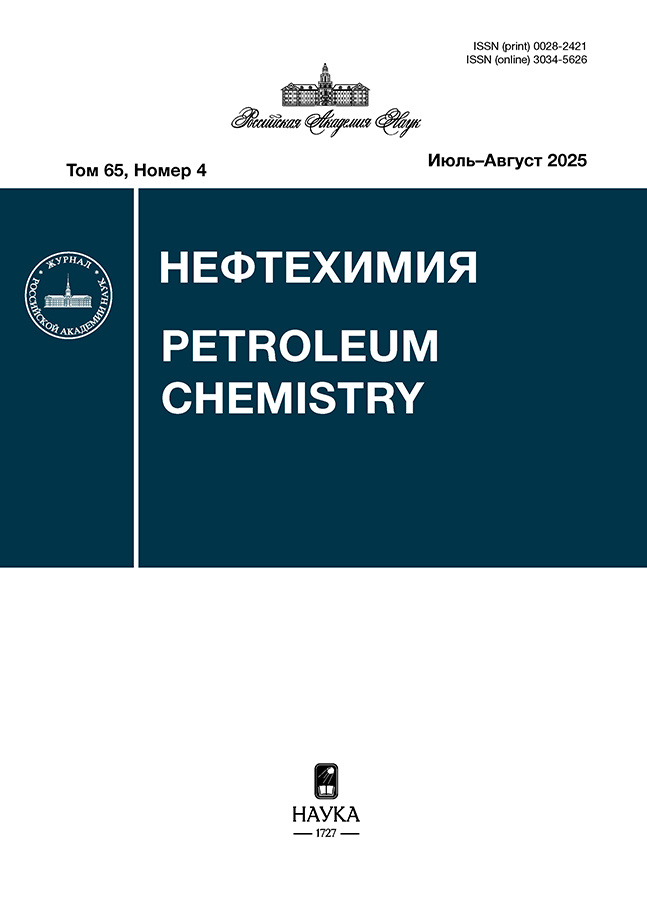
-
Neftehimiâ
ISSN (print): 0028-2421
Founders: A.V. Topchiev Institute of Petrochemical Synthesis, Russian Academy of Sciences
Editor-in-Chief: Anton Lvovich Maximov, Corresponding Member of the Russian Academy of Sciences, Doctor of Chemical Sciences, Associate Professor
Frequency / Access: 6 issues per year / Subscription
Included in: White List (2nd level), Higher Attestation Commission List, RISC
-
Neorganičeskie materialy
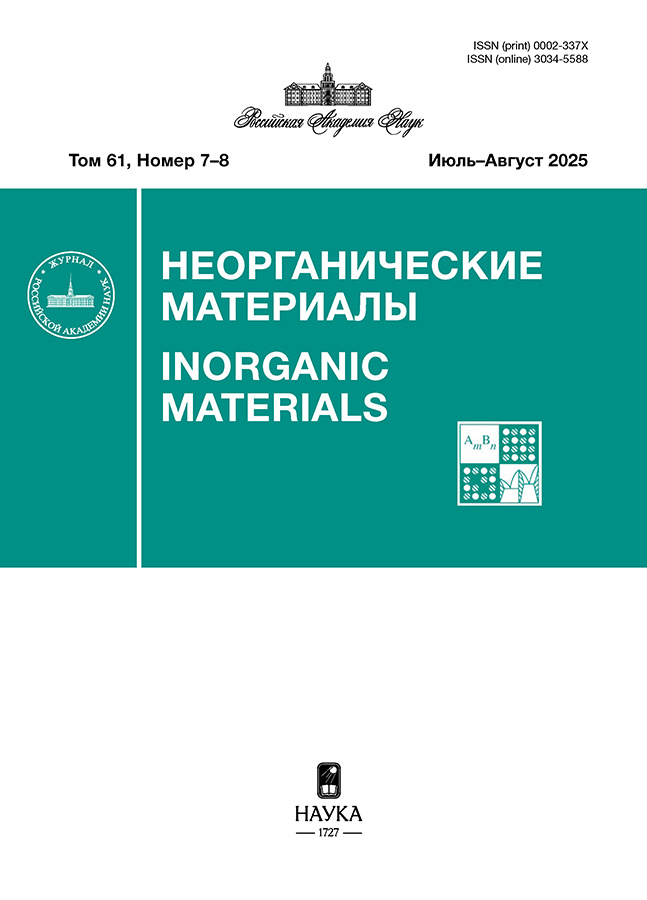
-
Neorganičeskie materialy
ISSN (print): 0002-337X
Founders: Russian Academy of Sciences, N.S. Kurnakov Institute of General and Inorganic Chemistry, Russian Academy of Sciences
Editor-in-Chief: Konstantin Alexandrovich Solntsev, Academician of the Russian Academy of Sciences, Doctor of Chemical Sciences
Frequency / Access: 4 issues per year / Subscription
Included in: White List (2nd level), Higher Attestation Commission List, RISC
-
Nejrohimiâ
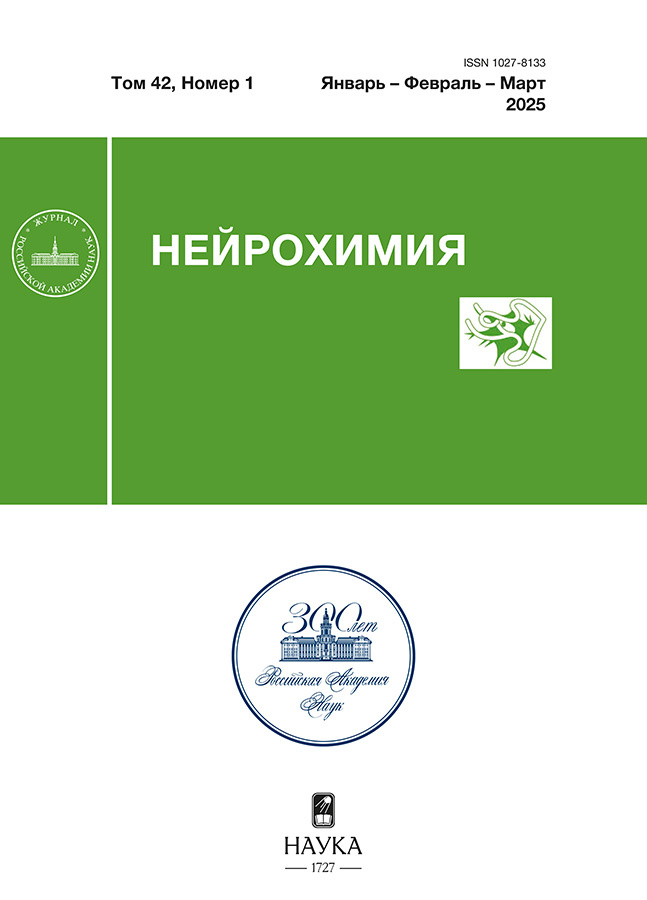
-
Nejrohimiâ
ISSN (print): 1027-8133
Founders: Russian Academy of Sciences, National Academy of Sciences of the Republic of Armenia
Editor-in-Chief: Natalia Valeryevna Gulyaeva, Doctor of Biological Sciences, Professor
Frequency / Access: 4 issues per year / Subscription
Included in: White List (3rd level), Higher Attestation Commission List, RISC
-
Molekulârnaâ biologiâ
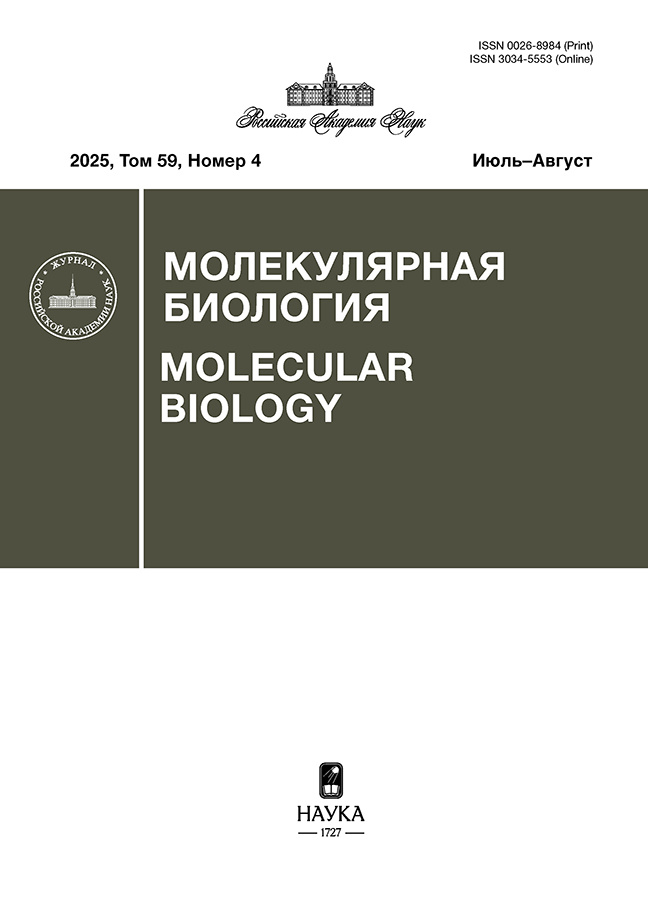
-
Molekulârnaâ biologiâ
ISSN (print): 0026-8984
Founder: Russian Academy of Sciences
Editor-in-Chief: Alexander Alexandrovich Makarov, Academician of the Russian Academy of Sciences, Doctor of Biological Sciences
Frequency / Access: 6 issues per year / Subscription
Included in: White List (3rd level), Higher Attestation Commission List, RISC, Scopus
-
Mikroèlektronika
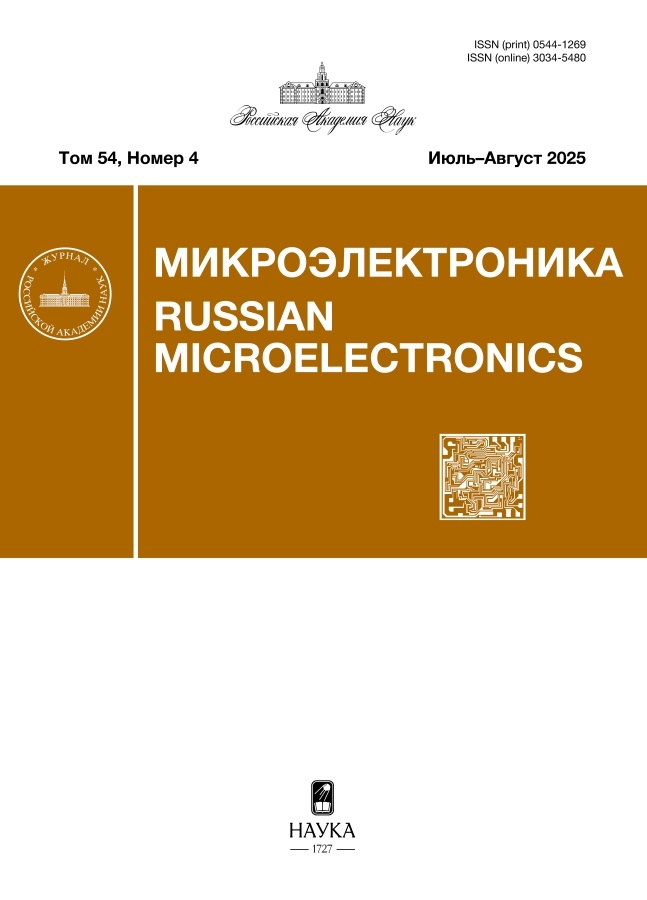
-
Mikroèlektronika
ISSN (print): 0544-1269
Founders: Physico-Technical Institute of the Russian Academy of Sciences, Russian Academy of Sciences
Editor-in-Chief: Gennady Yakovlevich Krasnikov, Academician of the Russian Academy of Sciences, Doctor of Technical Sciences
Frequency / Access: 6 issues per year / Subscription
Included in: White List (2nd level), Higher Attestation Commission List, RISC
-
Microbiology
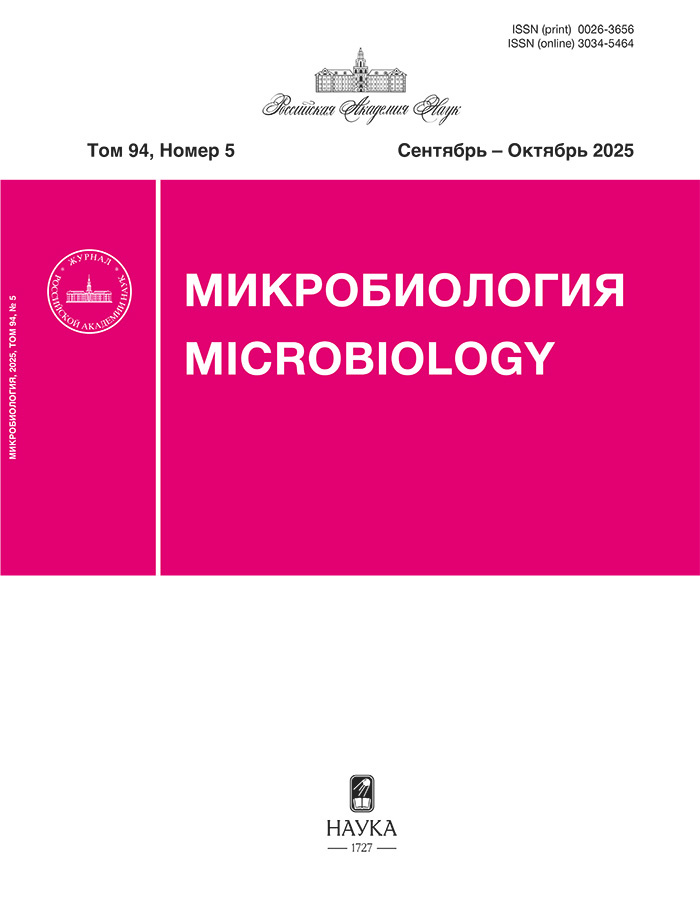
-
Microbiology
ISSN (print): 0026-3656
Founders: Russian Academy of Sciences, Institute of Microbiology of the Russian Academy of Sciences
Editor-in-Chief: Nikolay Viktorovich Pimenov, Doctor of Biological Sciences
Frequency / Access: 6 issues per year / Subscription
Included in: White List (2nd level), Higher Attestation Commission List, RISC
-
Mycology and Phytopathology
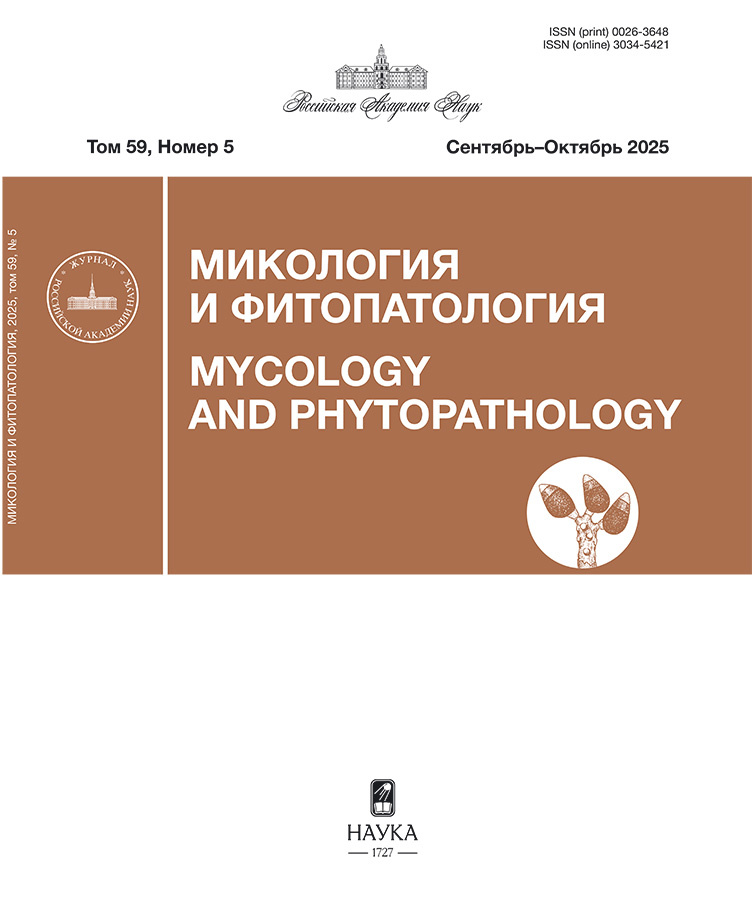
-
Mycology and Phytopathology
ISSN (print): 0026-3648
Founder: Russian Academy of Sciences
Editor-in-Chief: Alexander Eliseevich Kovalenko, Corresponding Member of the Russian Academy of Sciences, Doctor of Biological Sciences, Professor
Frequency / Access: 6 issues per year / Subscription
Included in: White List (2nd level), Higher Attestation Commission List, RISC, Scopus, Web of science
-
Metally
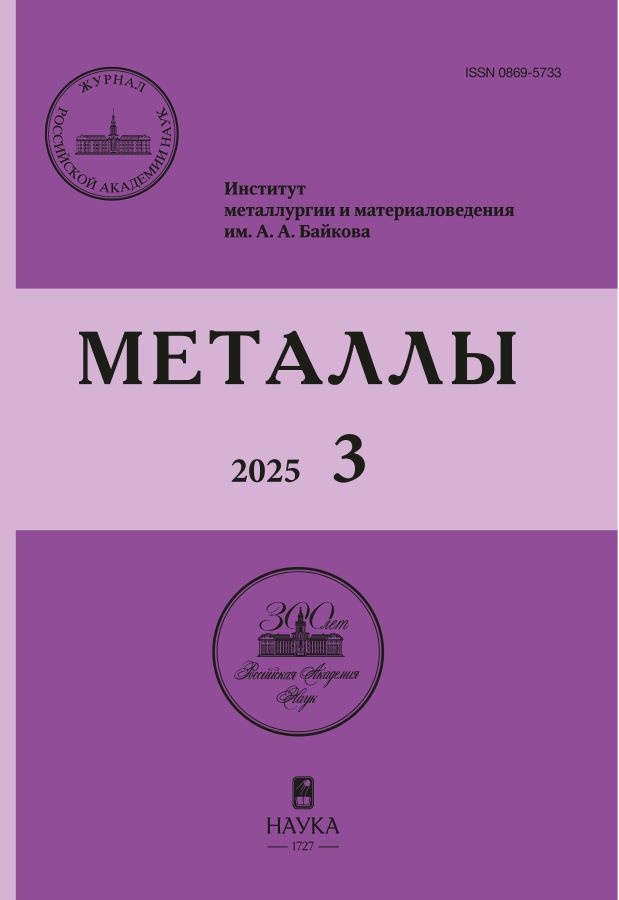
-
Metally
ISSN (print): 0869-5733
Founders: Baikov Institute of Metallurgy and Materials Science of RAS, Russian Academy of Sciences
Editor-in-Chief: Konstantin V. Grigorovich, academician RAS, Doctor of Sc., Full Professor
Frequency / Access: 6 issues per year / Subscription
Included in: White list (3rd level), Higher Attestation Commission list, RISC
-
Membrany i membrannye tehnologii
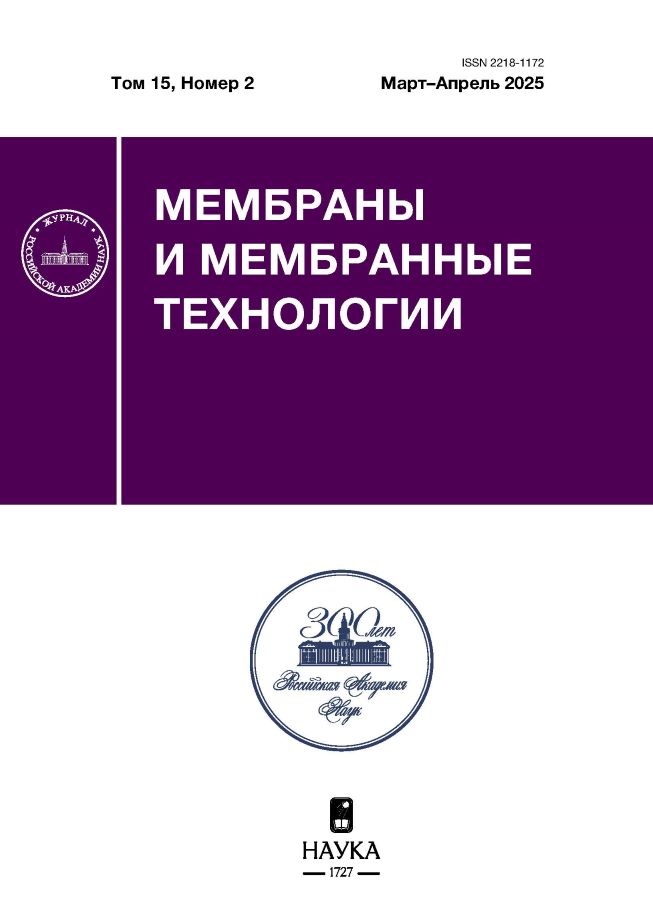
-
Membrany i membrannye tehnologii
ISSN (print): 2218-1172, ISSN (online): 2218-1180
Founders: A.V.Topchiev Institute of Petrochemical Synthesis of RAS, Russian Academy of Sciences
Editor-in-Chief: A.B. Yaroslavtsev, academician RAS, Doctor of Sc., Full Professor
Frequency / Access: 6 issues per year / Subscription
Included in: White list (2nd level), Higher Attestation Commission list, RISC
-
Latinskaya Amerika
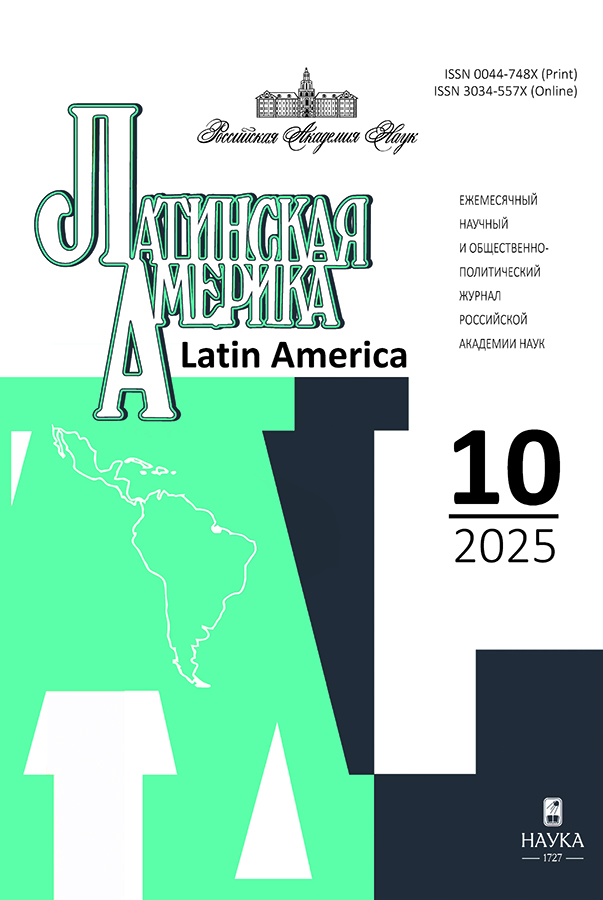
-
Latinskaya Amerika
ISSN (print): 0044-748X
Founders: Russian Academy of Sciences, Institute of Latin American Studies of the Russian Academy of Sciences
Editor-in-Chief: Viktor Heifets, Doctor of Sc., Full Professor
Frequency / Access: 12 issues per year / Subscription
Included in: White list (3rd level), Higher Attestation Commission list, RISC
-
Lesovedenie

-
Lesovedenie
ISSN (print): 0024-1148
Founders: Russian Academy of Sciences, Institute of Forest Science of RAS, Center of Forest Ecology and Productivity
Editor-in-Chief: Natalia V. Lukina, corresponding member RAS, Doctor of Sc., Full Professor
Frequency / Access: 6 issues per year / Subscription
Included in: White list (3rd level), Higher Attestation Commission list, RISC, Scopus
-
Kristallografiâ
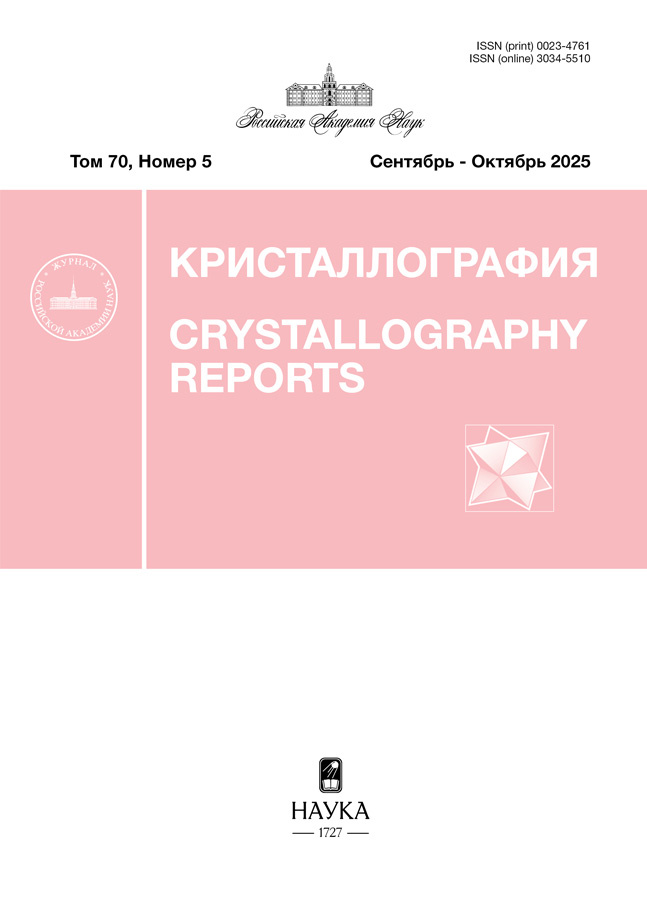
-
Kristallografiâ
ISSN (print): 0023-4761
Founders: Russian Academy of Sciences, Shubnikov Institute of Crystallography of RAS
Editor-in-Chief: Michail V. Kovalchuk, corresponding member RAS, Doctor of Sc., Full Professor
Frequency / Access: 6 issues per year / Subscription
Included in: White list (2nd level), Higher Attestation Commission list, RISC
-
Kosmičeskie issledovaniâ
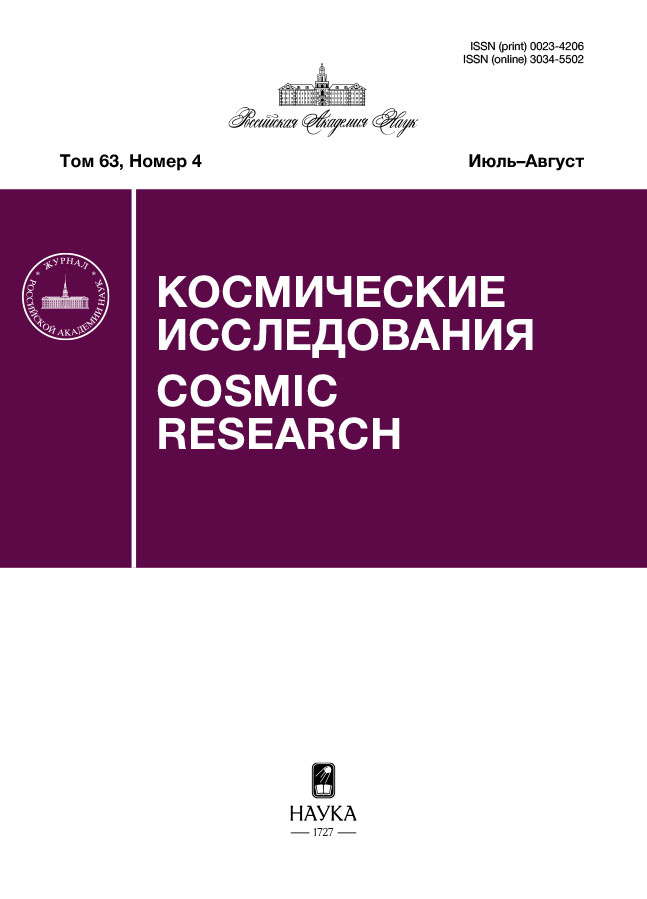
-
Kosmičeskie issledovaniâ
ISSN (print): 0023-4206
Founder: Russian Academy of Sciences
Editor-in-Chief: Anatoly A. Petrukovich, corresponding member RAS, Doctor of Sc.
Frequency / Access: 6 issues per year / Subscription
Included in: White list (2nd level), Higher Attestation Commission list, RISC
-
Koordinacionnaâ himiâ
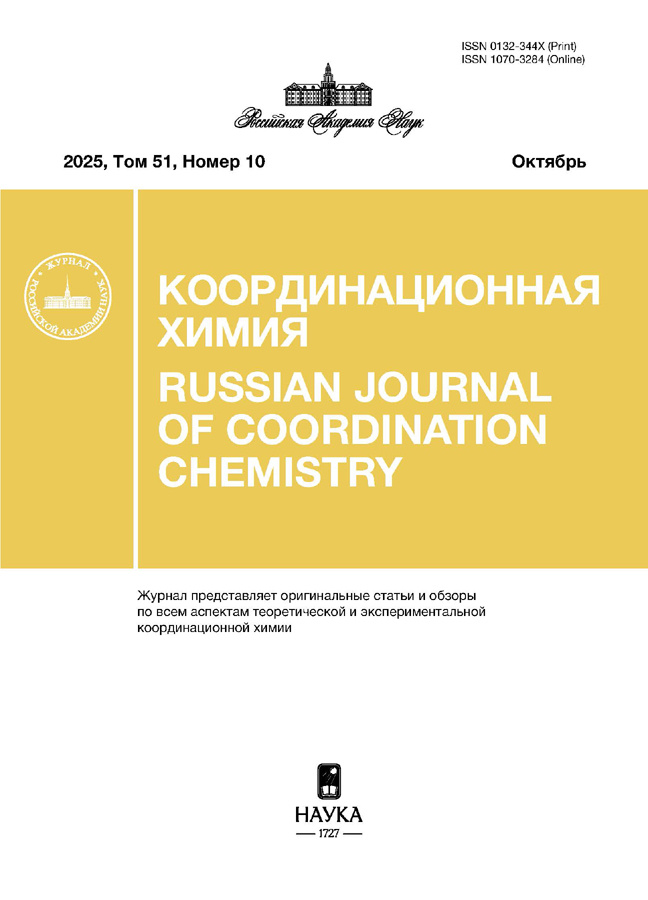
-
Koordinacionnaâ himiâ
ISSN (print): 0132-344X
Founders: Kurnakov Institute of General and Inorganic Chemistry of RAS, Russian Academy of Sciences
Editor-in-Chief: Eremenko Igor L., academician RAS, Doctor of Sc., Full Professor
Frequency / Access: 12 issues per year / Subscription
Included in: White list (2nd level), Higher Attestation Commission list, RISC
-
Kolloidnyj žurnal
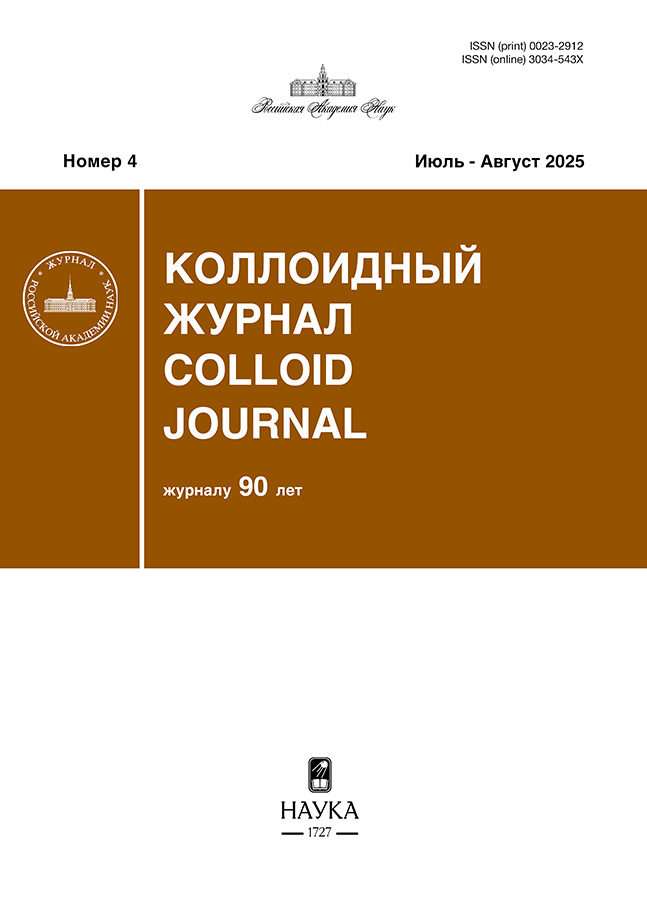
-
Kolloidnyj žurnal
ISSN (print): 0023-2912
Founders: Russian Academy of Sciences, Institute of Physical Chemistry of RAS
Editor-in-Chief: Boinovich Ludmila Borisovna, academician RAS, Doctor of Sc.
Frequency / Access: 6 issues per year / Subscription
Included in: White list (2nd level), Higher Attestation Commission list, RISC
-
Kinetika i kataliz
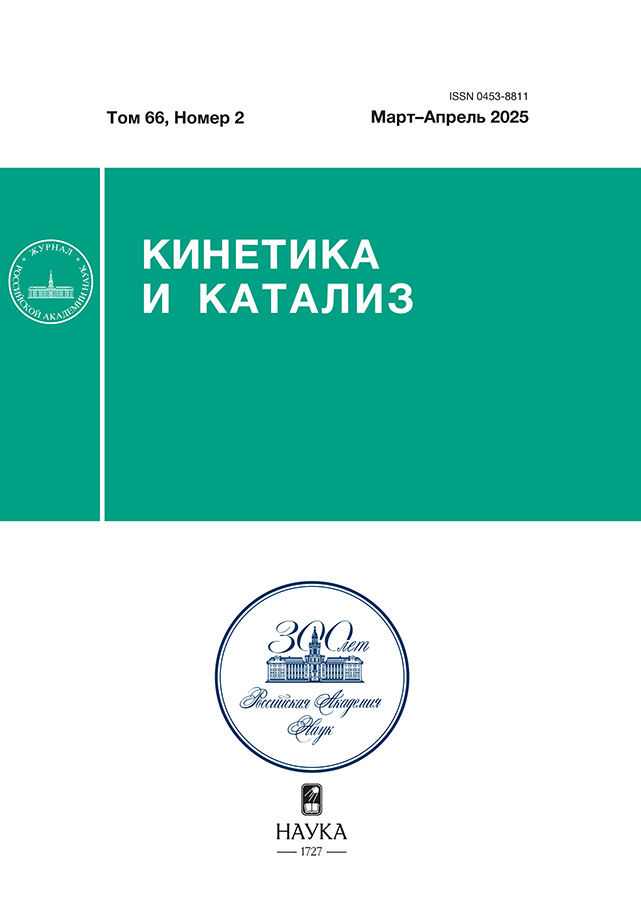
-
Kinetika i kataliz
ISSN (print): 0453-8811
Founders: Russian Academy of Sciences, Institute of Organic Chemistry of RAS
Editor-in-chief: Bukhtiyarov V.I., academician RAS, Doctor of Sc., Full Professor
Frequency / Access: 6 issues per year / Subscription
Included in: White list (2nd level), Higher Attestation Commission list, RISC
-
Izvestiâ Akademii nauk SSSR. Ènergetika
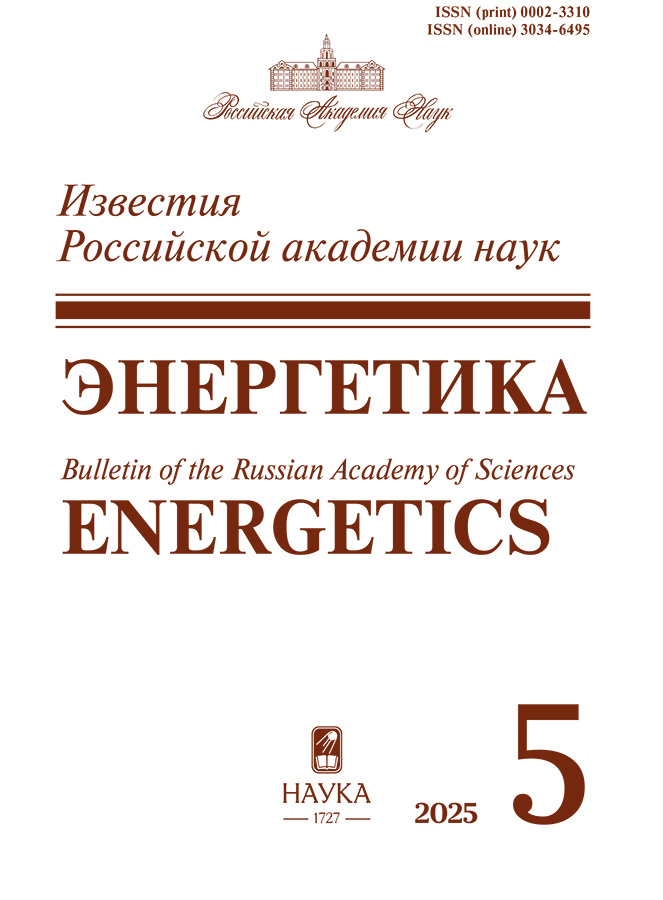
-
Izvestiâ Akademii nauk SSSR. Ènergetika
ISSN (print): 0002-3310
Founder: Russian Academy of Sciences
Editor-in-chief: Volkov E.P., academician RAS, Doctor of Sc., Full Professor
Frequency / Access: 6 issues per year / Subscription
Included in: White list (4th level), Higher Attestation Commission list, RISC
-
Teoriâ i sistemy upravleniâ
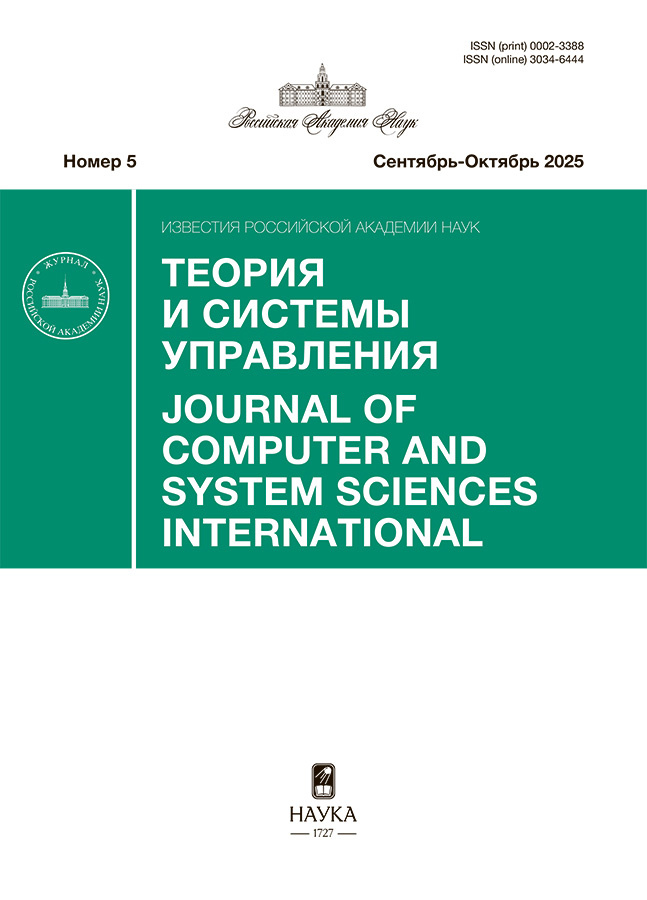
-
Teoriâ i sistemy upravleniâ
ISSN (print): 0002-3388
Founders: State Research Institute of Aviation Systems, Russian Academy of Sciences
Editor-in-Chief: Fedosov E.A., academician RAS, Doctor of Sc., Full Professor
Frequency / Access: 6 issues per year / Subscription
Included in: White list (2nd level), Higher Attestation Commission list, RISC
-
Izvestiâ Akademii nauk SSSR. Seriâ fizičeskaâ
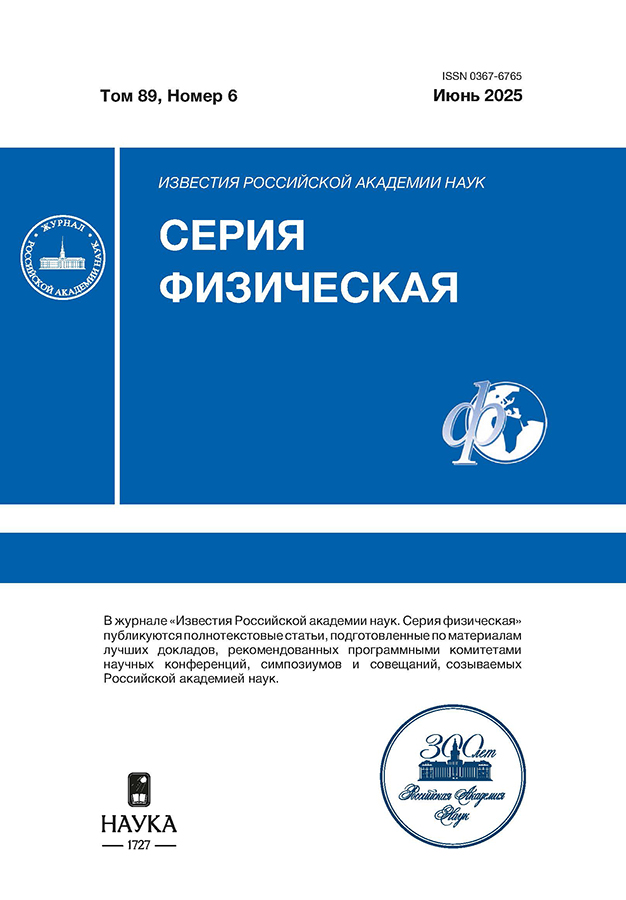
-
Izvestiâ Akademii nauk SSSR. Seriâ fizičeskaâ
ISSN (print): 0367-6765
Founder: Russian Academy of Sciences
Editor-in-Chief: Khokhlov D.R., corresponding member RAS, Doctor of Sc., Full Professor
Frequency / Assess: 12 issues per year / Subscription
Included in: White List (3rd level), Higher Attestation Commission List, RISC,
-
Izvestiia Rossiiskoi akademii nauk. Seriia literatury i iazyka
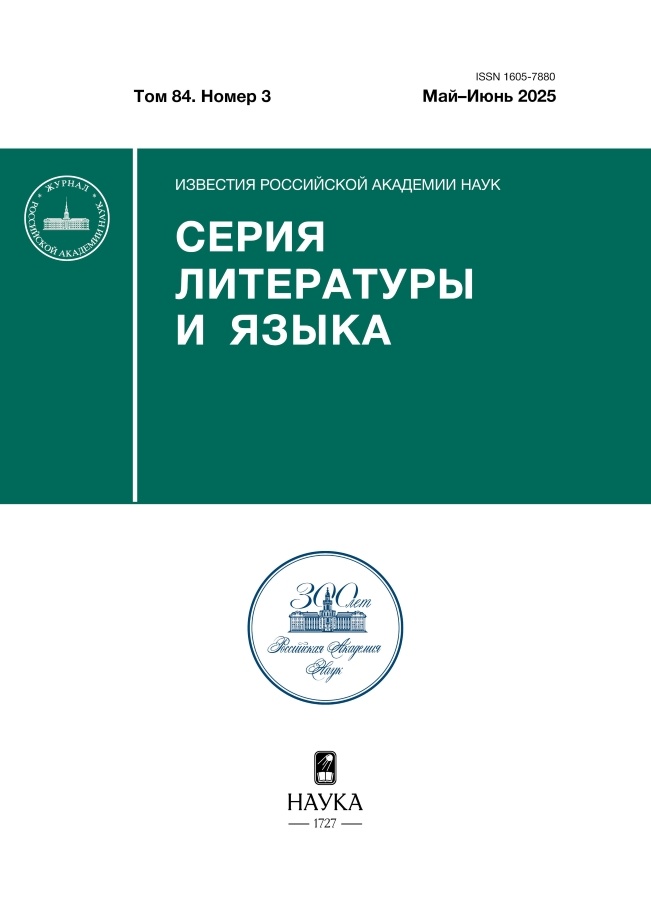
-
Izvestiia Rossiiskoi akademii nauk. Seriia literatury i iazyka
ISSN (print): 1605-7880,ISSN (online): 2413-7715
Founder: Russian Academy of Sciences
Editor-in-Chief: Polonsky Vadim V., corresponding member RAS, Doctor of Sc., Full Professor
Frequency / Assess: 6 issues per year / Subscription
Included in: White List (3rd level), Higher Attestation Commission List, RISC
-
Izvestiâ Akademii nauk. Rossijskaâ akademiâ nauk. Seriâ biologičeskaâ
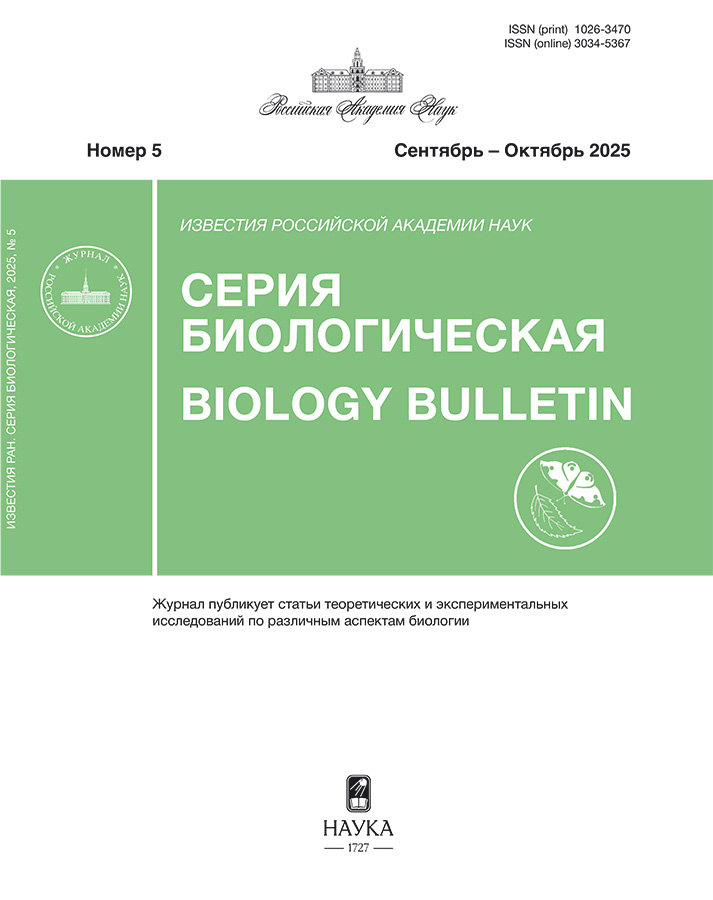
-
Izvestiâ Akademii nauk. Rossijskaâ akademiâ nauk. Seriâ biologičeskaâ
ISSN (print): 1026-3470
Founder: Russian Academy of Sciences
Editor-in-Chief: Roznov V.V., academician RAS, Doctor of Sc., Full Professor
Frequency / Assess: 6 issues per year / Subscription
Included in: White List (2nd level), Higher Attestation Commission List, RISC ,
-
Izvestiâ Akademii nauk. Rossijskaâ akademiâ nauk. Mehanika tverdogo tela.
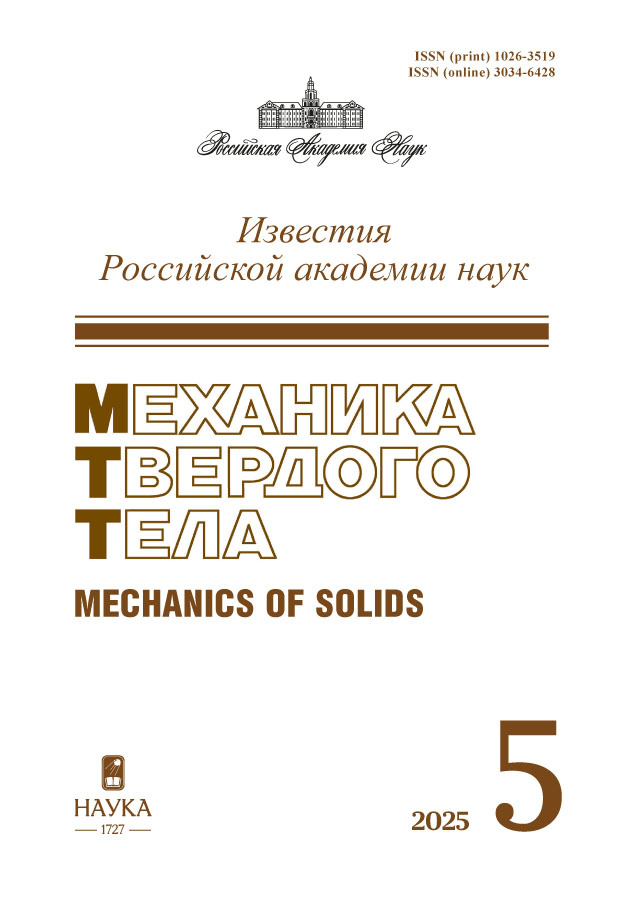
-
Izvestiâ Akademii nauk. Rossijskaâ akademiâ nauk. Mehanika tverdogo tela.
ISSN (print): 1026-3519
Founders: Russian Academy of Sciences, Institute for Problems in Mechanics of the Russian Academy of Sciences
Editor-in-Chief: Vladimir I. Karev, Doctor of Sc.
Frequency / Assess: 6 issues per year / Subscription
Included in: White List (3rd level), Higher Attestation Commission List, RISC,
-
Izvestiâ Akademii nauk. Rossijskaâ akademiâ nauk. Mehanika židkosti i gaza
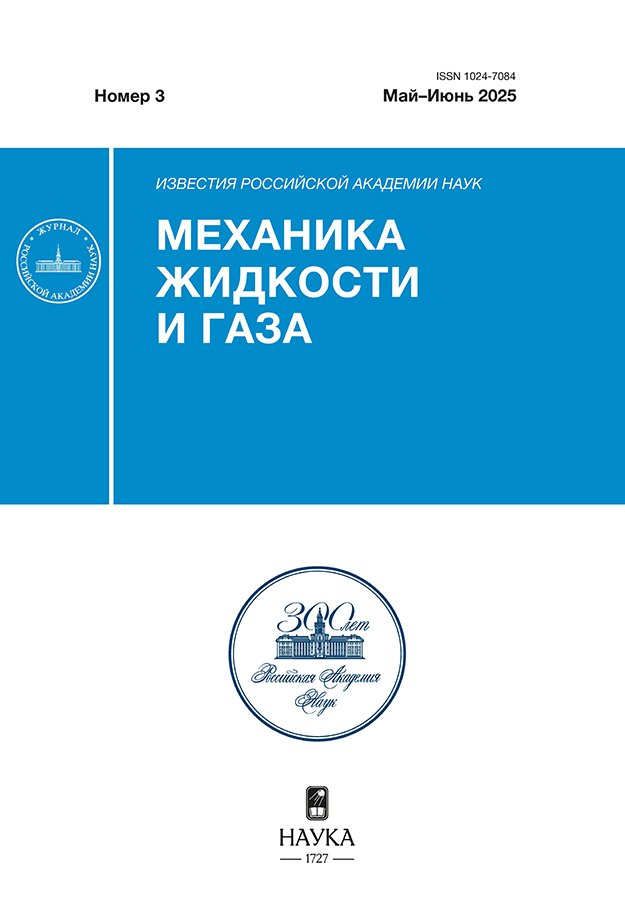
-
Izvestiâ Akademii nauk. Rossijskaâ akademiâ nauk. Mehanika židkosti i gaza
ISSN (print): 1024-7084
Founders: Russian Academy of Sciences, Institute for Problems in Mechanics of the Russian Academy of Sciences
Editor-in-Chief: Surzhikov Sergey T., academician RAS, Doctor of Sc., Full Professor
Frequency / Assess: 6 issues per year / Subscription
Included in: Higher Attestation Commission List, RISC, RISC core, Web of Science (RSCI)
-
Zoologičeskij žurnal
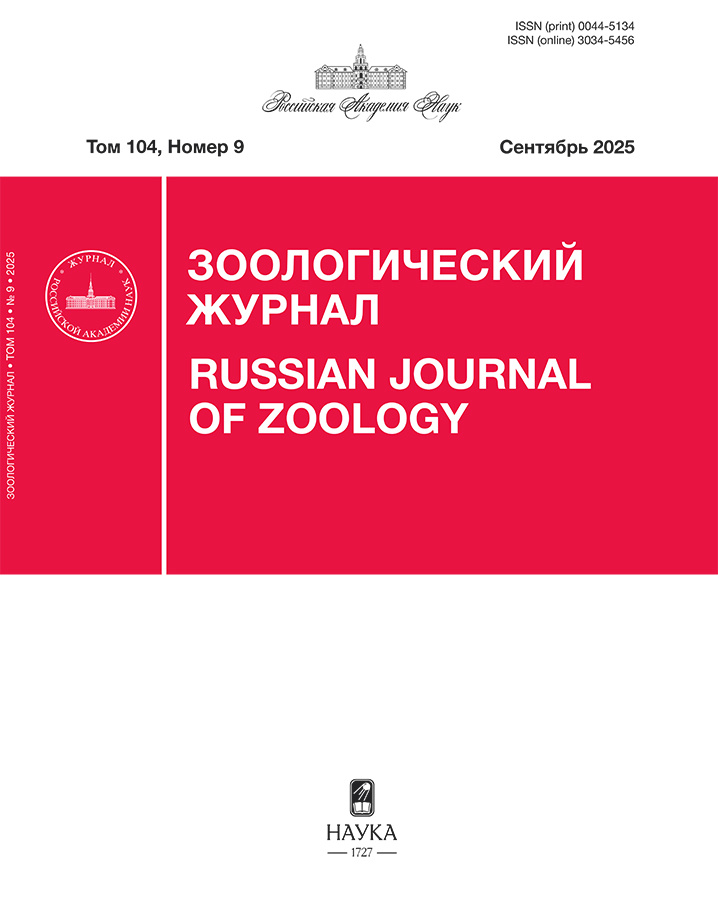
-
Zoologičeskij žurnal
ISSN (print): 0044-5134
Founder: Russian Academy of Sciences
Editor-in-Chief: Dgebuadze Yuri Yulianovich, academician RAS, Doctor of Sc., Full Professor
Frequency / Assess: 12 issues per year / Subscription
Included in: White List (3rd level), Higher Attestation Commission List, RISC
-
Žurnal èvolûcionnoj biohimii i fiziologii
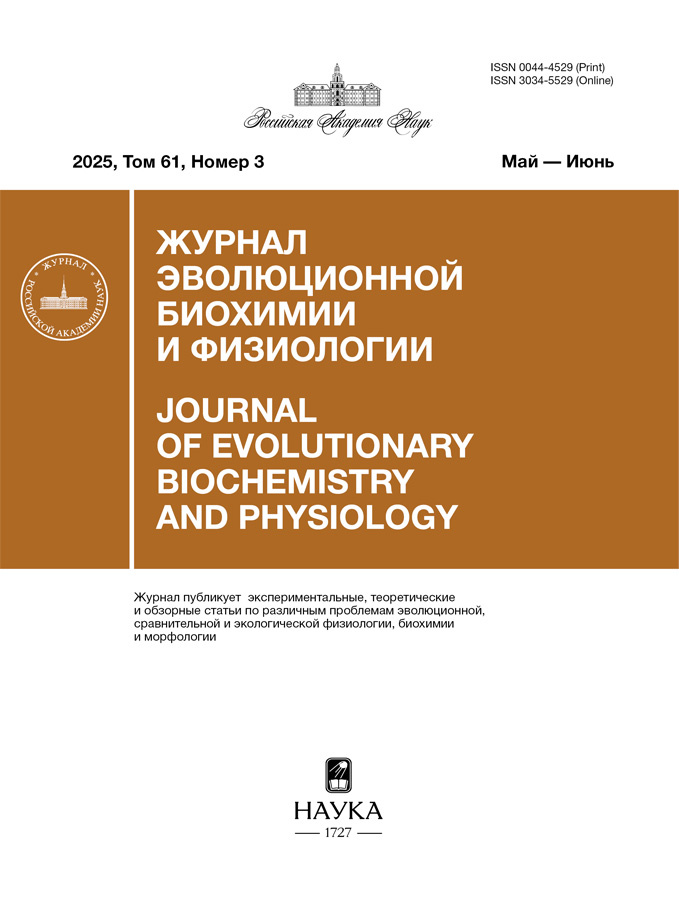
-
Žurnal èvolûcionnoj biohimii i fiziologii
ISSN (print): 0044-4529
Founder: Russian Academy of Sciences
Editor-in-Chief: Nikolay Petrovich Veselkin, Academician of the Russian Academy of Sciences, Doctor of Medical Sciences
Frequency / Access: 12 issues per year / Subscription
Included in: White List (4th), Higher Attestation Commission List, RISC
-
Russian Journal of Physical Chemistry A
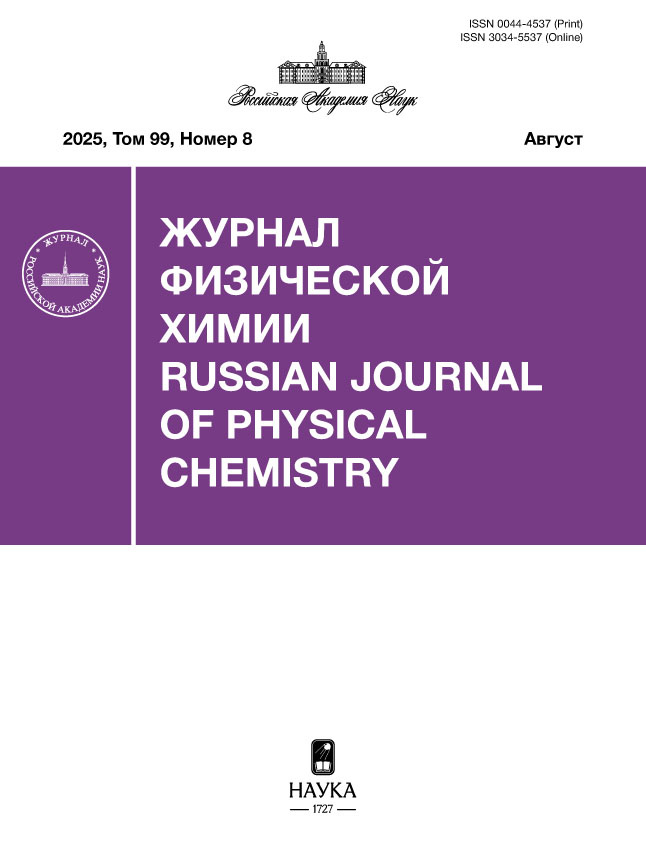
-
Russian Journal of Physical Chemistry A
ISSN (print): 0044-4537
Founder: Russian Academy of Sciences
Editor-in-Chief: Aslan Yusupovich Tsvadze, Academician of the Russian Academy of Sciences, Doctor of Chemical Sciences
Frequency / Access: 12 issues per year / Subscription
Included in: White List (2nd level), Higher Attestation Commission List, RISC
-
Žurnal prikladnoj himii
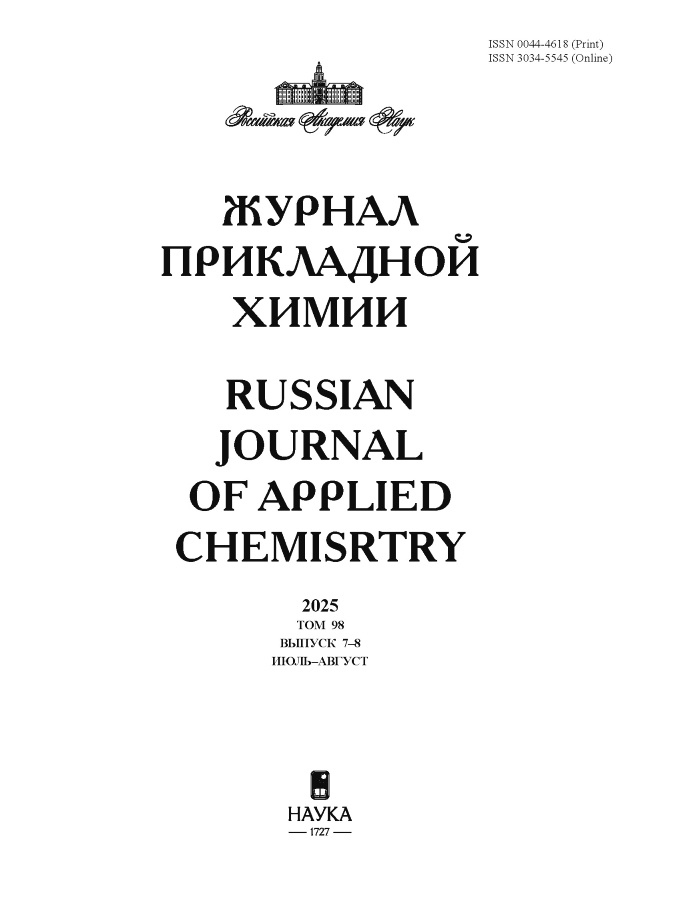
-
Žurnal prikladnoj himii
ISSN (print): 0044-4618
Founder: Russian Academy of Sciences
Editor-in-Chief: Anton Lvovich Maximov, Corresponding Member of the Russian Academy of Sciences, Doctor of Chemical Sciences, Associate Professor
Frequency / Access: 12 issues per year / Subscription
Included in: White List (2nd level), Higher Attestation Commission List, RISC
-
Žurnal organičeskoj himii
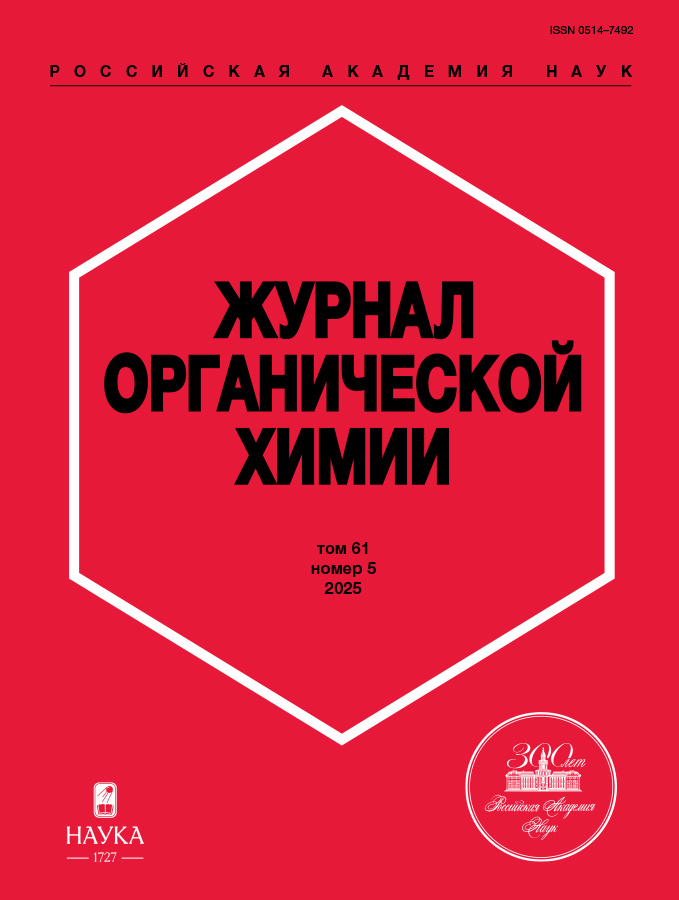
-
Žurnal organičeskoj himii
ISSN (print): 0514-7492
Founder: Russian Academy of Sciences
Editor-in-Chief: Irina Petrovna Beletskaya, Academician of the Russian Academy of Sciences, Doctor of Chemical Sciences
Frequency / Access: 12 issues per year / Subscription
Included in: White List (3rd level), Higher Attestation Commission List, RISC
-
Žurnal obŝej himii
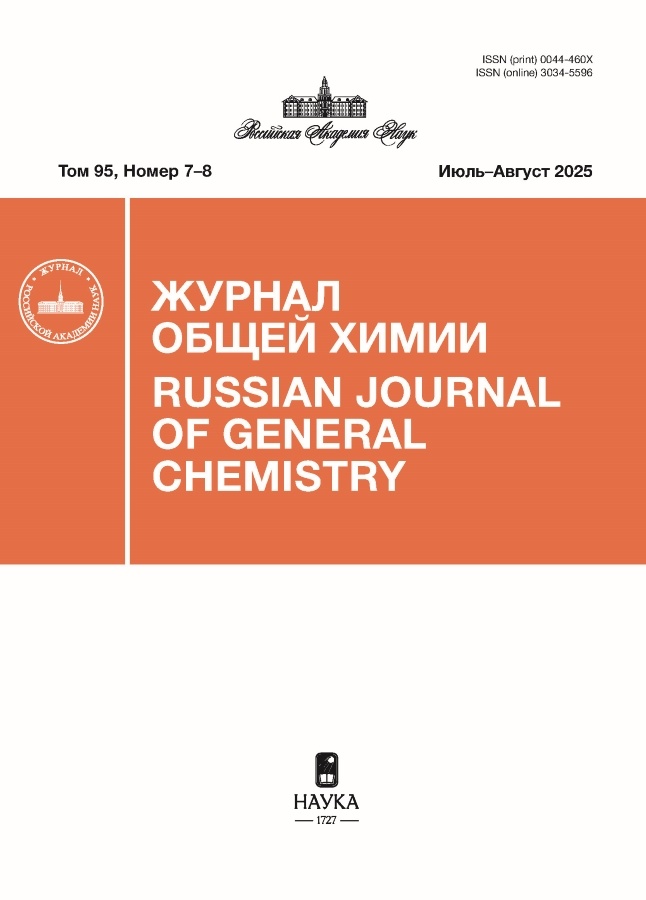
-
Žurnal obŝej himii
ISSN (print): 0044-460X
Founder: Russian Academy of Sciences
Editor-in-Chief: Oleg G. Sinyashin, Academician of the Russian Academy of Sciences, Doctor of Chemistry sciences, professor
Frequency / access: 12 issues per year / Subscription
Included in: White List (2nd level), Higher Attestation Commission list, RISC
-
Žurnal obŝej biologii
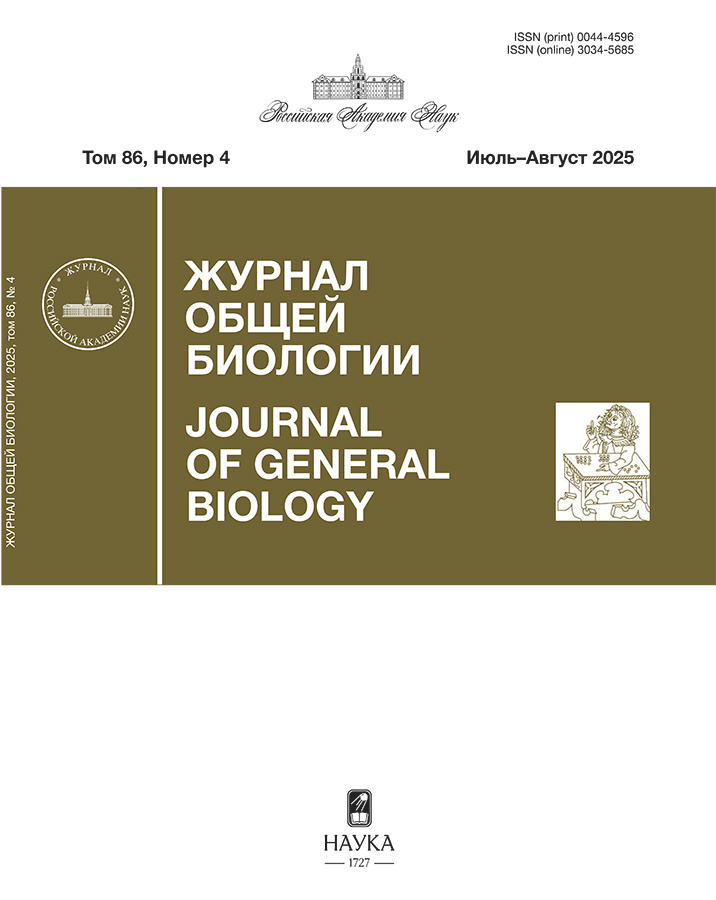
-
Žurnal obŝej biologii
ISSN (print): 0044-4596
Founder: Russian Academy of Sciences
Editor-in-Chief: Yevgeny Arkadyevich Kriksunov, Corresponding Member of the Russian Academy of Sciences, Doctor of Biological Sciences
Frequency / Access: 6 issues per year / Subscription
Included in: White List (2nd level), Higher Attestation Commission List, RISC, Web of science
-
Žurnal neorganičeskoj himii
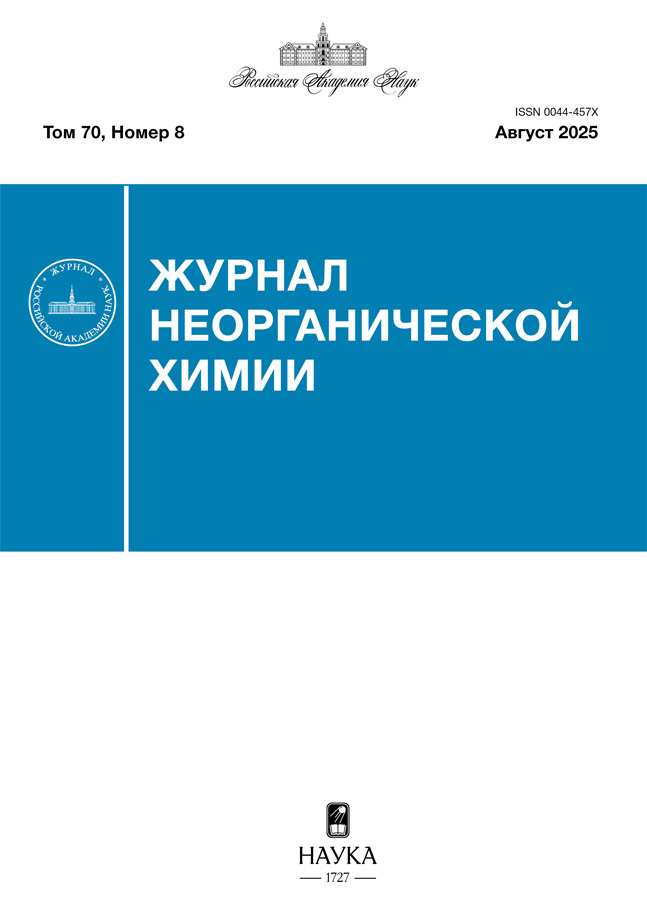
-
Žurnal neorganičeskoj himii
ISSN (print): 0044-457X
Founders: Russian Academy of Sciences, N.S. Kurnakov Institute of General and Inorganic Chemistry, Russian Academy of Sciences
Editor-in-Chief: Nikolay Timofeevich Kuznetsov, Academician of the Russian Academy of Sciences, Doctor of Chemical Sciences
Frequency / Access: 12 issues per year / Subscription
Included in: White List (2nd level), Higher Attestation Commission List, RISC
-
Žurnal vyčislitelʹnoj matematiki i matematičeskoj fiziki

-
Žurnal vyčislitelʹnoj matematiki i matematičeskoj fiziki
ISSN (print): 0044-4669
Founders: Russian Academy of Sciences, Federal Research Center IU named after. A. A. Dorodnitsyna RAS
Editor-in-Chief: Evgeniy Evgenievich Tyrtyshnikov, Academician of the Russian Academy of Sciences, Doctor of Physics and Mathematics sciences, professor
Frequency / access: 12 issues per year / Subscription
Included in: White List (2nd level), Higher Attestation Commission list, RISC, Mathnet.ru
-
Zhurnal Analiticheskoi Khimii
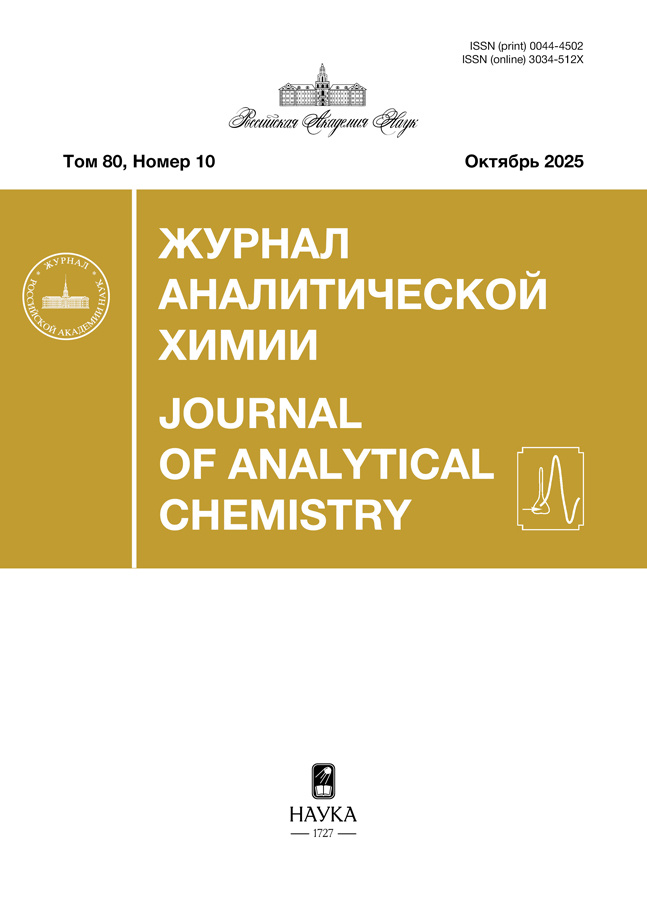
-
Zhurnal Analiticheskoi Khimii
ISSN (print): 0044-4502
Founders: Vernadsky Institute of Geochemistry and Analytical Chemistry, Russian Academy of Sciences, Russian Academy of Sciences
Editor-in-Chief: Vladimir Panteleimonovich Kolotov, Corresponding Member of the Russian Academy of Sciences, Doctor of Chemical Sciences, Professor
Frequency / Access: 12 issues per year / Subscription
Included in: White List (3rd level), Higher Attestation Commission List, RISC
-
Doklady Rossijskoj akademii nauk. Himiâ, nauki o materialah.
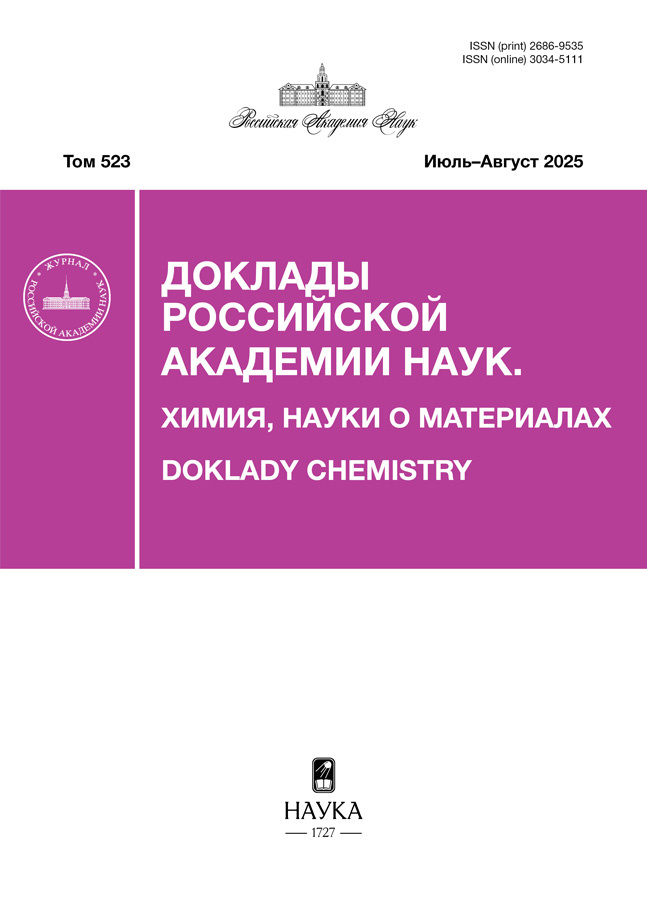
-
Doklady Rossijskoj akademii nauk. Himiâ, nauki o materialah.
ISSN (print): 2686-9535
Founder: Russian Academy of Sciences
Editor-in-Chief: Valentin Pavlovich Ananikov, Academician of the Russian Academy of Sciences, Doctor of Chemical Sciences
Frequency / Access: 6 issues per year / Subscription
Included in: White List (3rd level), RISC
-
Doklady Rossijskoj akademii nauk. Fizika, tehničeskie nauki
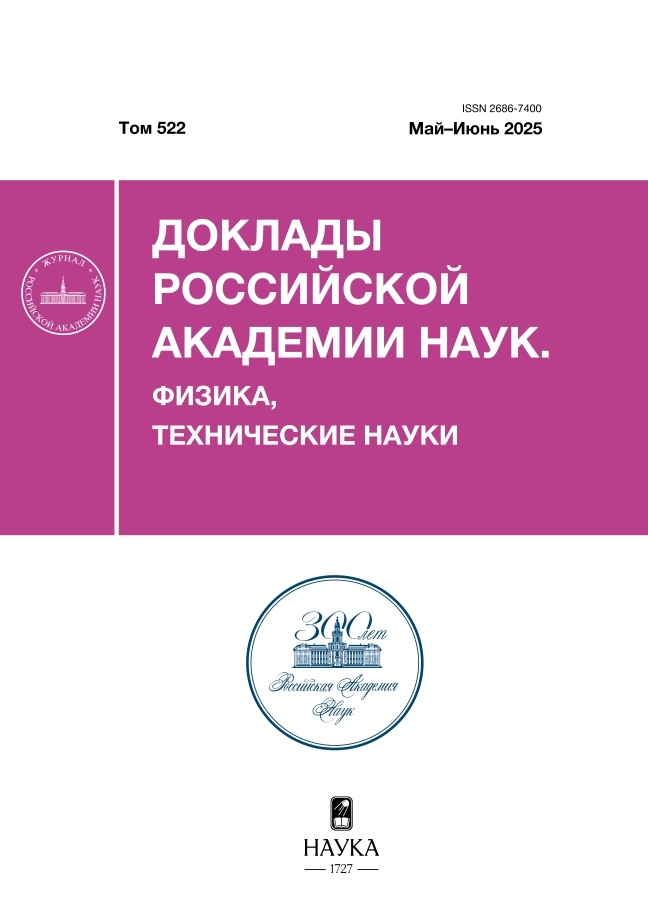
-
Doklady Rossijskoj akademii nauk. Fizika, tehničeskie nauki
ISSN (print): 2686-7400
Founder: Russian Academy of Sciences
Editor-in-Chief: Sergey Vladimirovich Garnov, Corresponding Member of the Russian Academy of Sciences, Doctor of Physical and Mathematical Sciences
Frequency / Access: 6 issues per year / Subscription
Included in: White List (3rd level), RISC
-
Doklady Rossijskoj akademii nauk. Nauki o Zemle
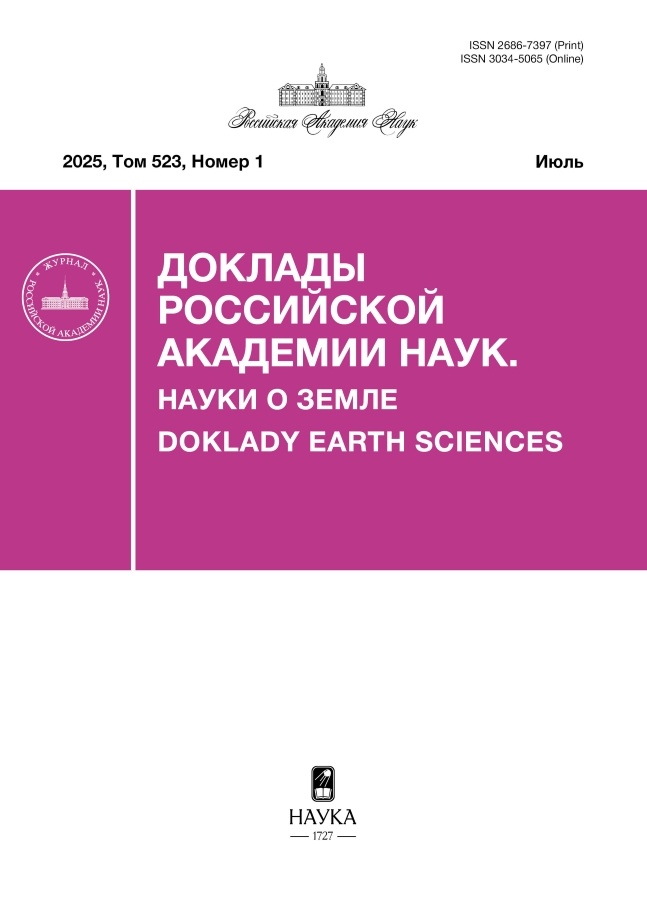
-
Doklady Rossijskoj akademii nauk. Nauki o Zemle
ISSN (print): 2686-7397
Founder: Russian Academy of Sciences
Editor-in-Chief: Nikolay Stefanovich Bortnikov, Academician of the Russian Academy of Sciences, Doctor of Geological and Mineralogical Sciences
Frequency / Access: 12 issues per year / Subscription
Included in: White List (2nd level), RISC
-
Doklady Rossijskoj akademii nauk. Nauki o žizni
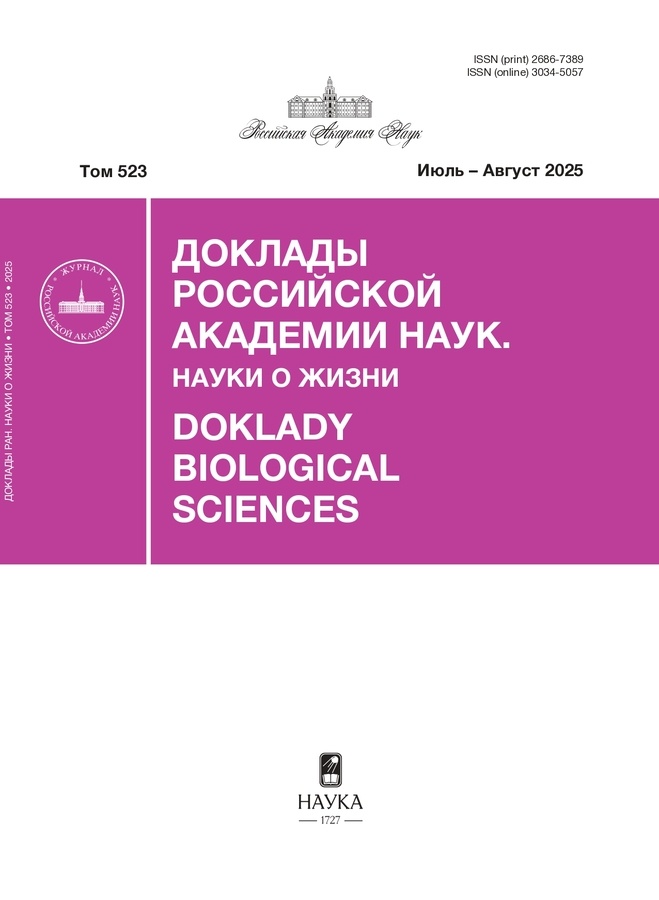
-
Doklady Rossijskoj akademii nauk. Nauki o žizni
ISSN (print): 2686-7389
Founder: Russian Academy of Sciences
Editor-in-Chief: Alexander Gabibovich Gabibov, Academician of the Russian Academy of Sciences
Frequency / Access: 6 issues per year / Subscription
Included in: White List ( 2nd level), RISC, Web of science
-
Doklady Rossijskoj akademii nauk. Matematika, informatika, processy upravleniâ
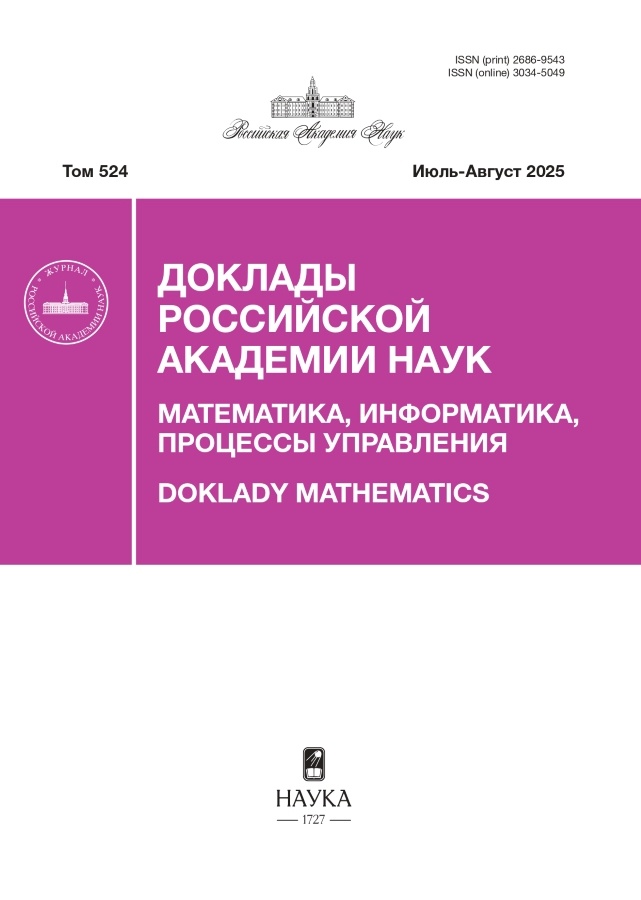
-
Doklady Rossijskoj akademii nauk. Matematika, informatika, processy upravleniâ
ISSN (print): 2686-9543
Founder: Russian Academy of Sciences
Editor-in-Chief: Alexey Lvovich Semenov, Academician of the Russian Academy of Sciences, Doctor of Physical and Mathematical Sciences
Frequency / Access: 6 issues per year / Subscription
Included in: White List (4th level), Higher Attestation Commission List, RISC
-
Differencial'nye uravneniya
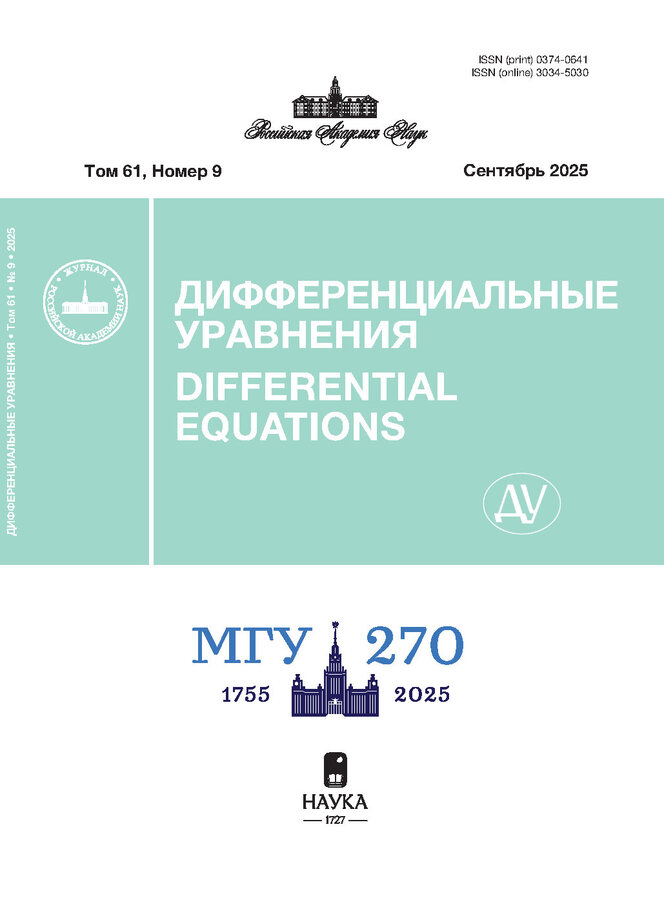
-
Differencial'nye uravneniya
ISSN (print): 0374-0641
Founder: Russian Academy of Sciences (RAS)
Editor-in-Chief: Sadovnichii Victor Antonovich, academician RAS, Doctor of Sc.
Frequency / Assess: 12 issues per year / Subscription
Included in: White List (1st level), Higher Attestation Commission List, RISC
-
Defektoskopiâ
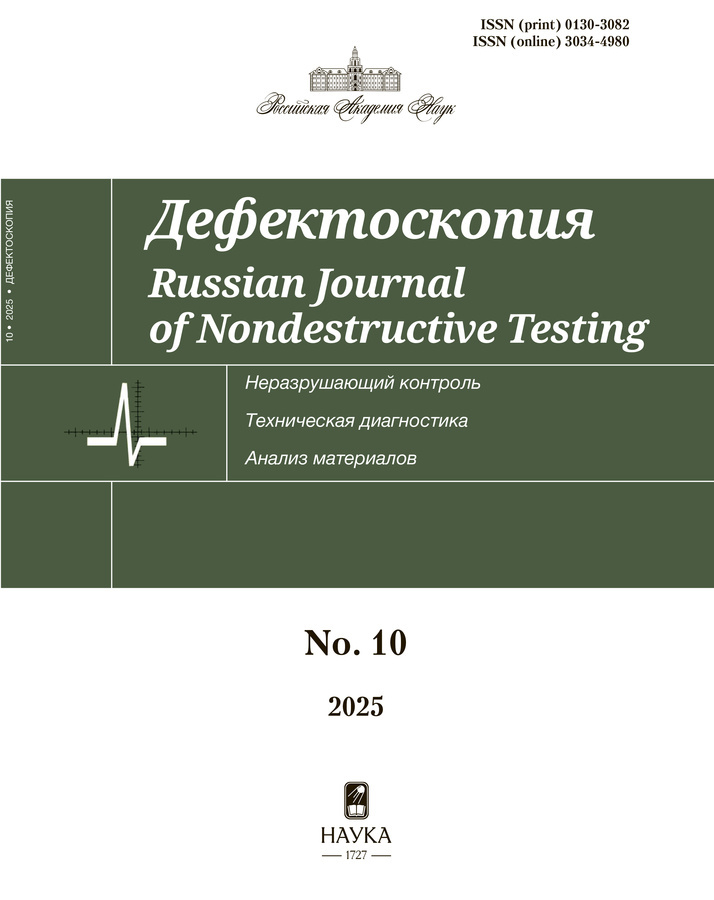
-
Defektoskopiâ
ISSN (print): 0130-3082
Founders: Russian Academy of Sciences, M.N. Mikheev Institute of Metal Physics of the Ural Branch of the Russian Academy of Sciences
Editor-in-Chief: Vladimir Nikolaevich Kostin, Doctor of Technical Sciences
Frequency / Access: 12 issues per year / Subscription
Included in: White List (2nd level), Higher Attestation Commission List, RISC
-
Geomagnetizm i aèronomiâ
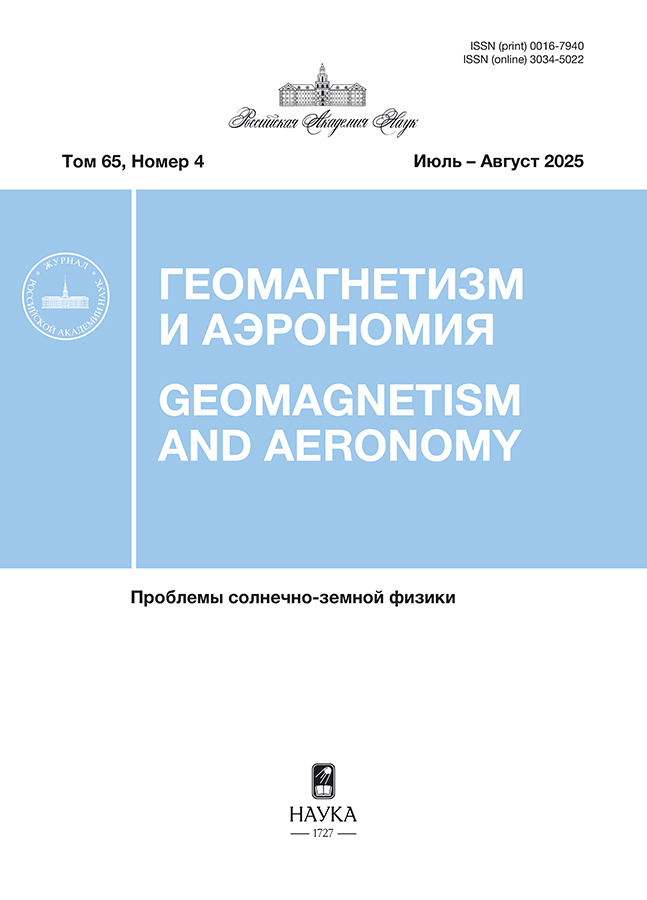
-
Geomagnetizm i aèronomiâ
ISSN (print): 0016-7940
Founder: N.V. Pushkov Institute of Terrestrial Magnetism, Ionosphere, and Radio Wave Propagation, Russian Academy of Sciences
Editor-in-Chief: Vladimir Dmitrievich Kuznetsov, Doctor of Physical and Mathematical Sciences
Frequency / Access: 6 issues per year / Subscription
Included in: White List (2nd level), Higher Attestation Commission List, RISC
-
Genetika
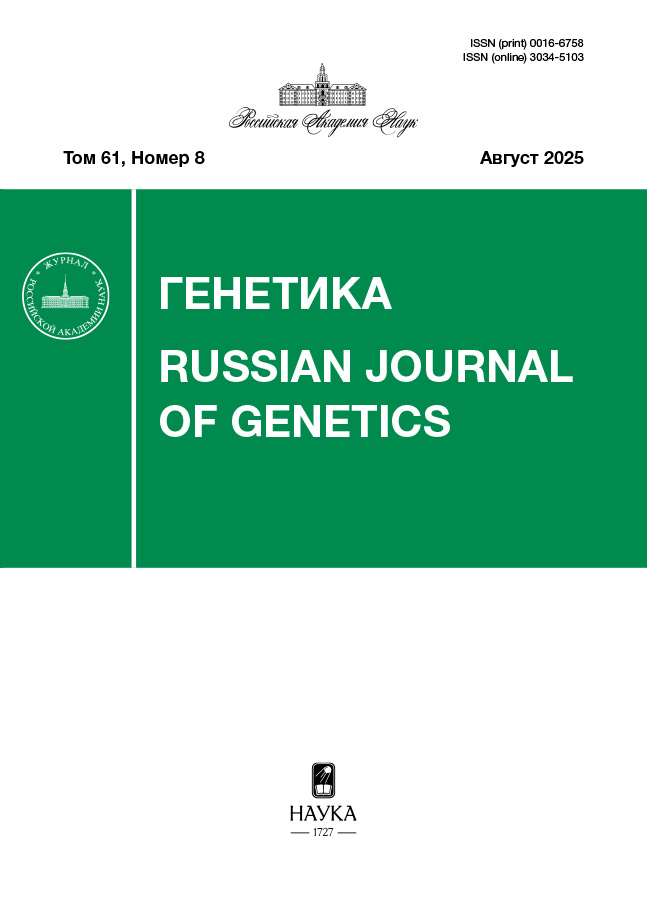
-
Genetika
ISSN (print): 0016-6758
Founder: Russian Academy of Sciences
Editor-in-Chief: Nikolay Kazimirovich Yankovskiy, Corresponding Member of the Russian Academy of Sciences, Doctor of Biological Sciences, Professor
Frequency / Access: 12 issues per year / Subscription
Included in: White List (3rd level), Higher Attestation Commission List, RISC
-
Vysokomolekulârnye soedineniâ. Seriâ C
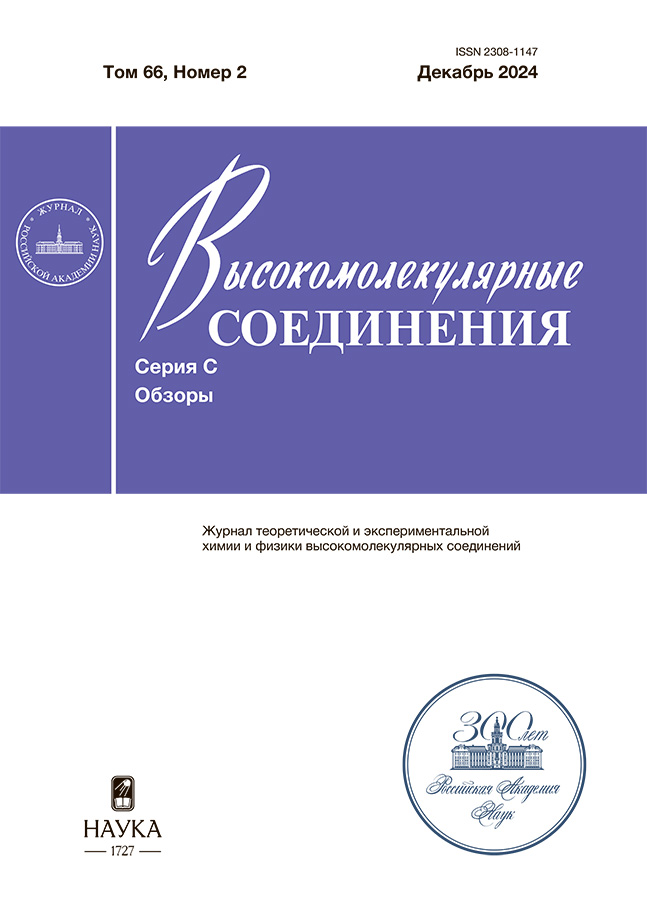
-
Vysokomolekulârnye soedineniâ. Seriâ C
ISSN (print): 2308-1147; ISSN (online): 2412-9860
Founder: A.V. Topchiev Institute of Petrochemical Synthesis of the Russian Academy of Sciences
Editor-in-Chief: Alexander Anatolyevich Yaroslavov, Corresponding Member of the Russian Academy of Sciences, Doctor of Chemical Sciences, Professor
Frequency / access: 1 issue per year / Subscription
Included in: White List (2nd level), Higher Attestation Commission List, RISC
-
Vysokomolekulârnye soedineniâ. Seriâ B, Himiâ polimerov
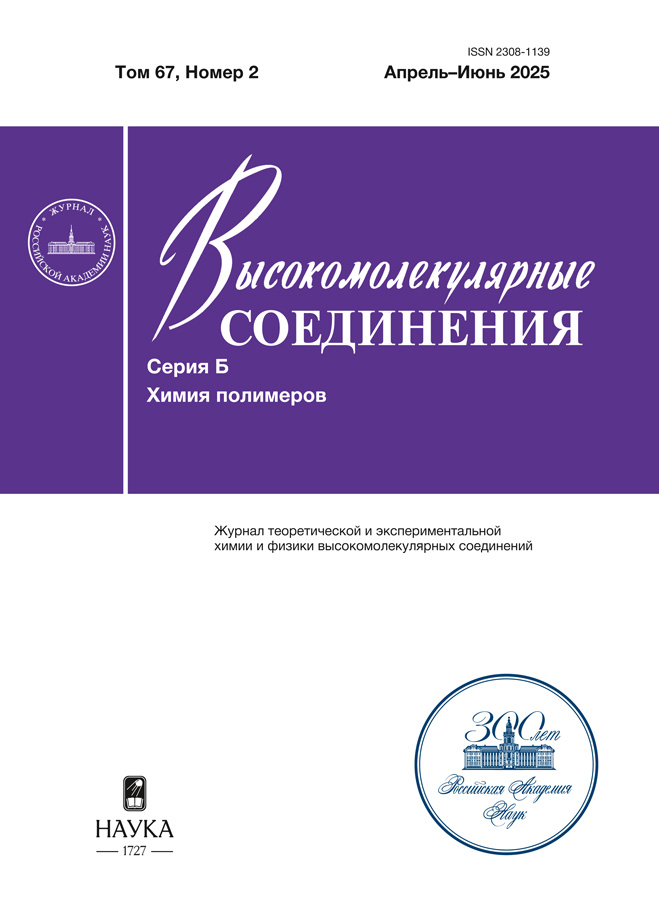
-
Vysokomolekulârnye soedineniâ. Seriâ B, Himiâ polimerov
ISSN (print): 2308-1139, ISSN( online): 2412-9852
Founder: A.V. Topchiev Institute of Petrochemical Synthesis of the Russian Academy of Sciences
Editor-in-Chief: Alexander Anatolyevich Yaroslavov, Corresponding Member of the Russian Academy of Sciences, Doctor of Chemical Sciences, Professor
Frequency / Access: 6 issues per year / Subscription
Included in: White List (2nd level), Higher Attestation Commission List, RISC
-
Polymer Science, Series A
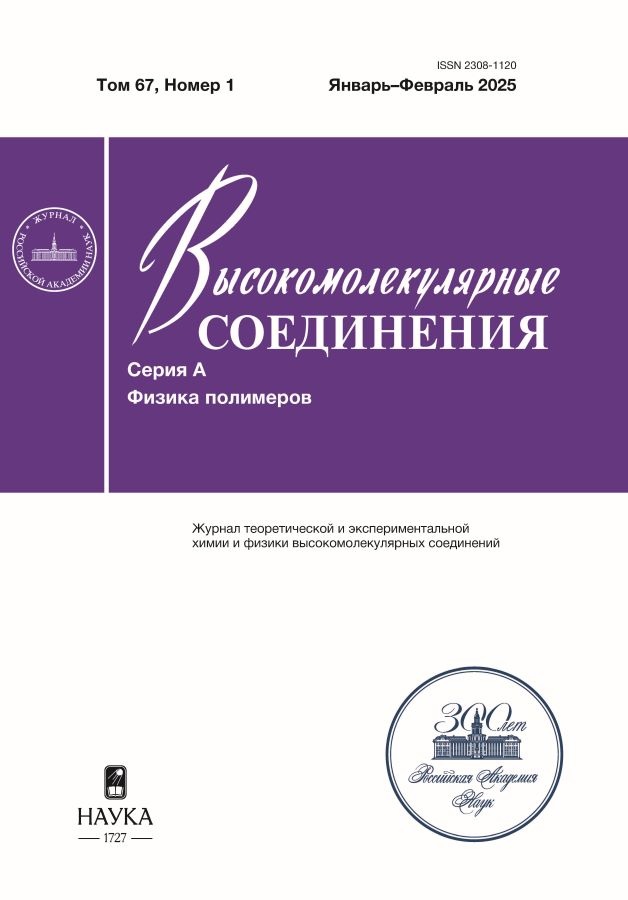
-
Polymer Science, Series A
ISSN (print): 2308-1120, ISSN (online): 2412-9844
Founder: A.V. Topchiev Institute of Petrochemical Synthesis, Russian Academy of Sciences
Editor-in-Chief: Alexander Anatolyevich Yaroslavov, Corresponding Member of the Russian Academy of Sciences, Doctor of Chemical Sciences, Professor
Frequency / Access: 6 times a year / Subscription
Included in: White List (2nd level), Higher Attestation Commission List, RISC
-
Voprosy Jazykoznanija
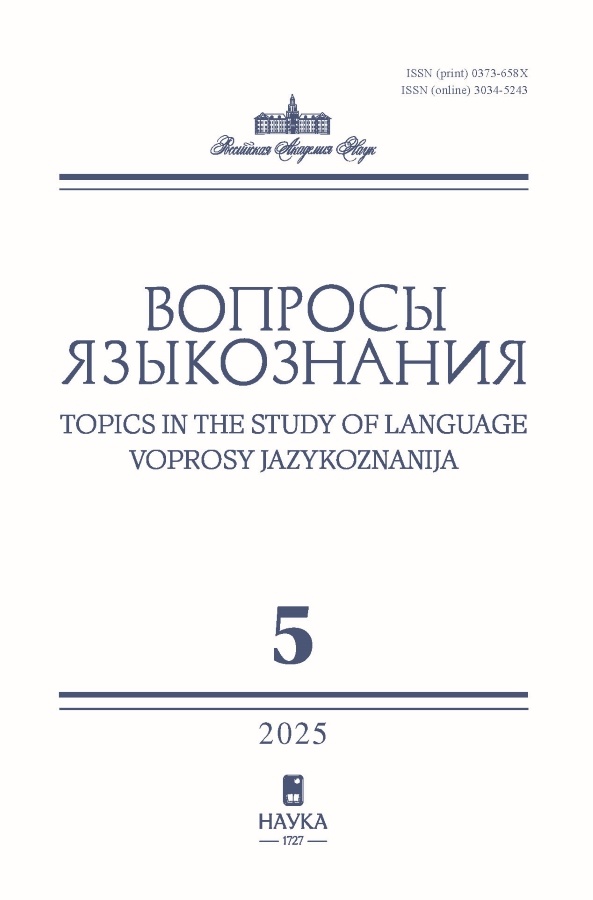
-
Voprosy Jazykoznanija
ISSN (print): 0373-658X
Founders: Russian Academy of Sciences, V.V. Vinogradov Russian Language Institute of RAS
Editor-in-chief: Plungyan Vladimir A., academician RAS, Doctor of Sc.
Frequency / Access: 6 issues per year / Subscription
Included in: White list (1st level), Higher Attestation Commission list, RISC, Scopus, Web of Science Core Collection
-
Voprosy ihtiologii
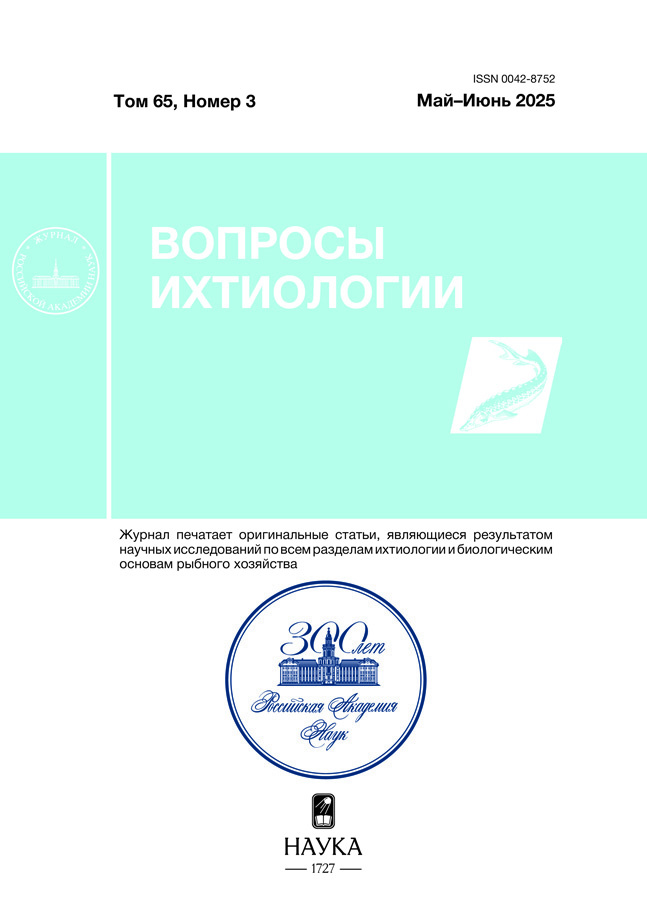
-
Voprosy ihtiologii
ISSN (print): 0042-8752
Founders: Russian Academy of Sciences, Severtsov Institute of Ecology and Evolution of RAS
Editor-in-Chief: Pavlov Dmitrij Sergeevich, academician RAS, Doctor of Sc., Full Professor
Frequency / Access: 6 issues per year / Subscription
Included in: White list (3rd level), Higher Attestation Commission list, RISC
-
Voprosy istorii estestvoznaniia i tekhniki
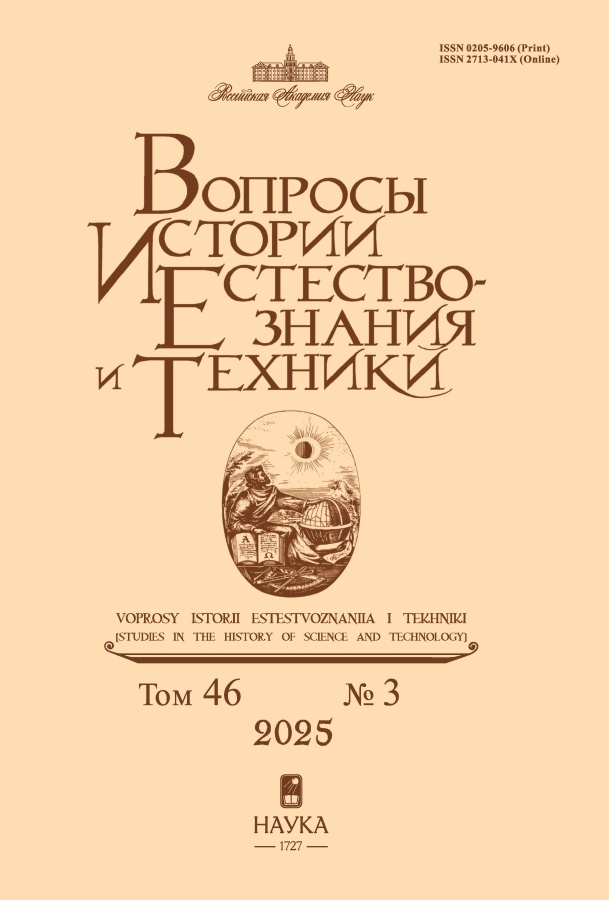
-
Voprosy istorii estestvoznaniia i tekhniki
ISSN (print): 0205-9606, ISSN (online): 2713-041X
Founders: Russian Academy of Sciences, S.I. Vavilov Institute for the History of Science and Technology of RAS
Editor-in-Chief: Roman A. Fando, Doctor of Sc.
Frequency / Access: 4 issues per year / Subscription
Included in: White list (3rd level), RISC, Higher Attestation Commission list
-
Vestnik drevnei istorii

-
Vestnik drevnei istorii
ISSN (print): 0321-0391
Founders: Institute of General History of RAS, Russian Academy of Sciences
Editor-in-Chief: Ivanchik Askold Igorevich, corresponding member RAS, Doctor of Sc., Full Professor
Frequency / Access: 4 issues per year / Subscription
Included in: White list (1st level), Higher Attestation Commission list, RISC, Scopus, Web of Science Core Collection
-
Botanicheskii Zhurnal
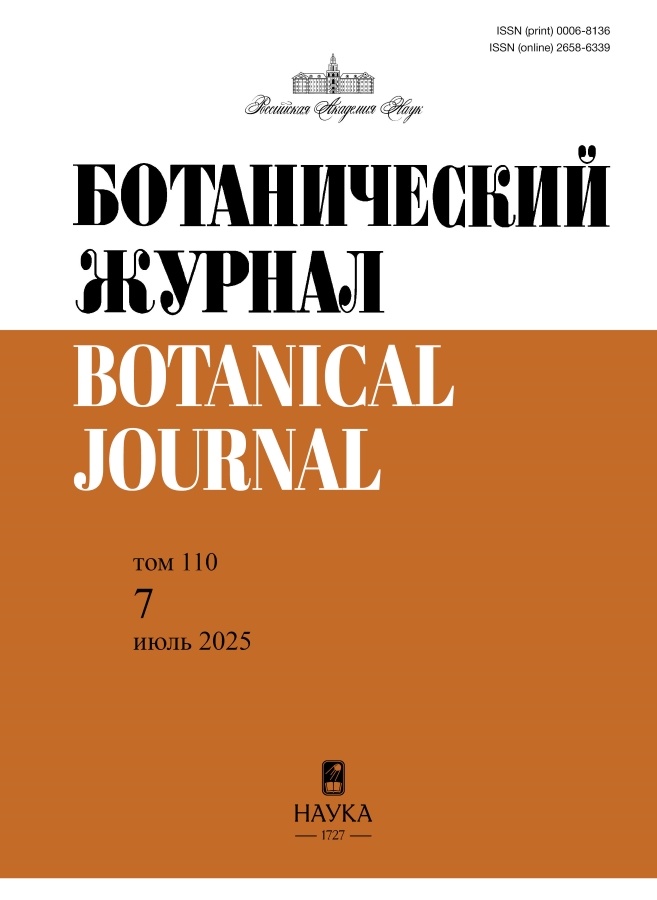
-
Botanicheskii Zhurnal
ISSN (print): 0006-8136, ISSN (online): 2658-6339
Founders: Russian Academy of Sciences, Russian Botanical Society
Editor-in-chief: Averyanov Leonid Vladimirovich, Doctor of Sc.
Frequency / Access: 12 issues per year / Subscription
Included in: White list (3rd level), Higher Attestation Commission list, RISC, Scopus
-
Biohimiâ
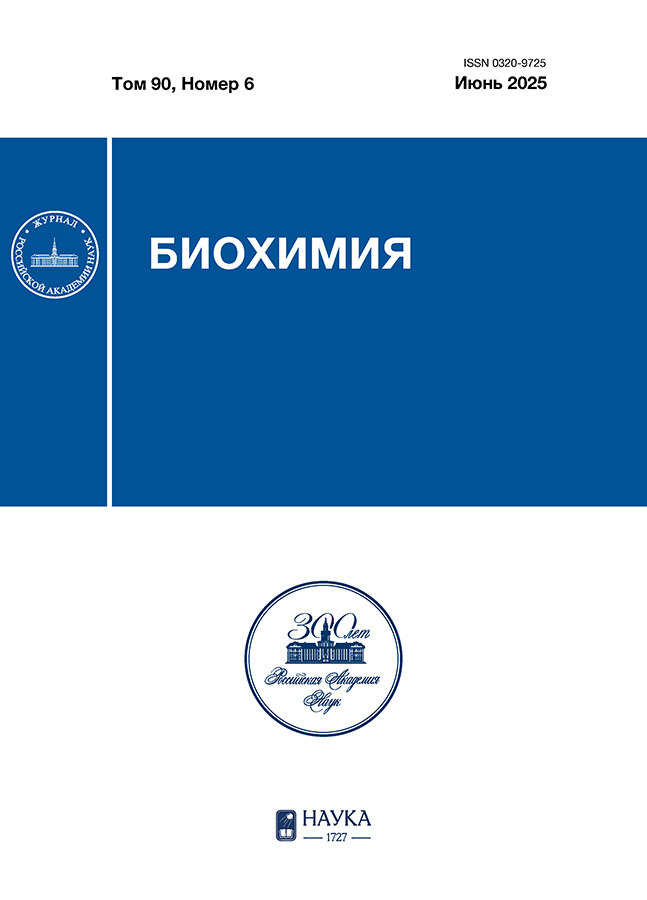
-
Biohimiâ
ISSN (print): 0320-9725
Founder: Russian Academy of Sciences
Editor-in-Chief: Dontsova Olga Anatolyevna, academician of the Russian Academy of Sciences, Professor, Doctor of Chemical Sciences
Frequency / Access: 12 issues per year / Subscription
Included in: White List (2nd level), Higher Attestation Commission List, RISC
-
Biofizika
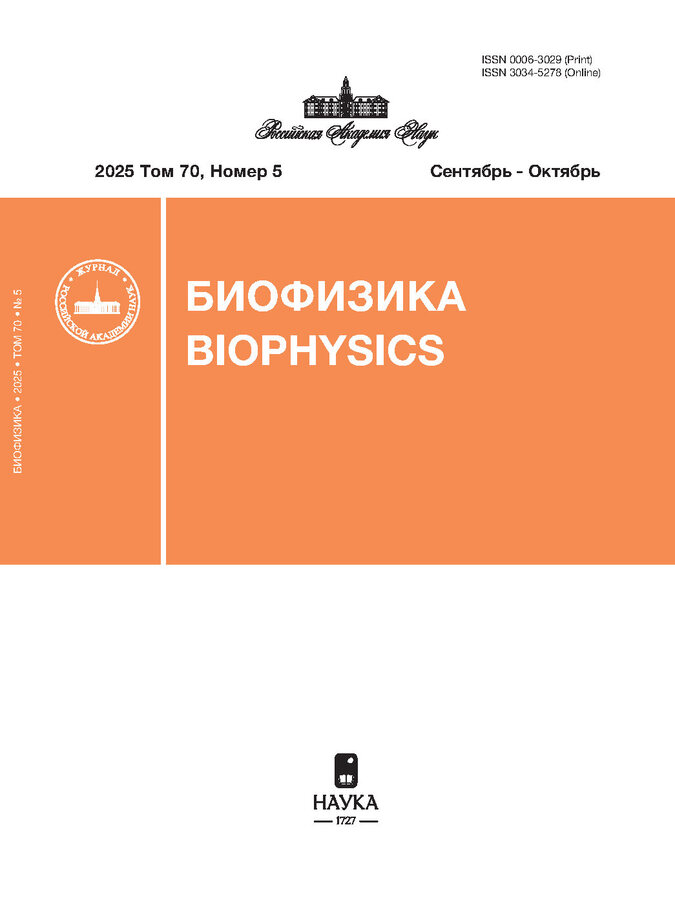
-
Biofizika
ISSN (print): 0006-3029
Founders: Russian Academy of Sciences, Institute of Cell Biophysics of RAS
Editor-in-Chief: Grabarnik Pavel YAkovlevich, Doctor of Sc.
Frequency / Access: 6 issues per year / Subscription
Included in: White list (3rd level), Higher Attestation Commission list, RISC
-
Bioorganičeskaâ himiâ
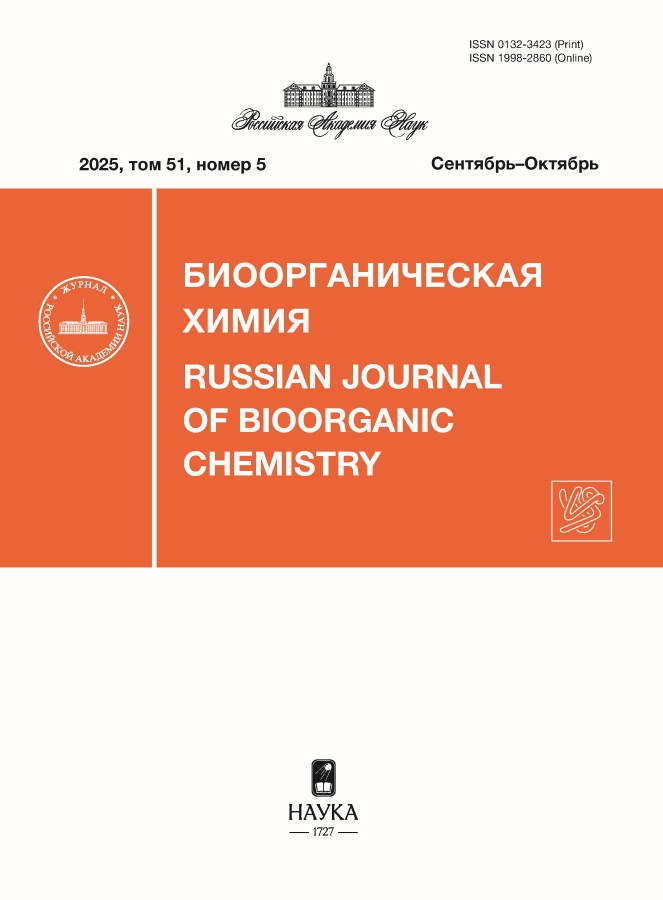
-
Bioorganičeskaâ himiâ
ISSN (print): 0132-3423, ISSN (online): 1998-2860
Founders: Russian Academy of Sciences (RAS), Shemyakin & Ovchinnikov Institute of Bioorganic Chemistry of RAS
Editor-in-chief: Kochetkov Sergey Nikolaevich, academician RAS, Doctor of Sc., Full Professor
Frequency / Access: 6 issues per year / Subscription
Included in: White list (2nd level), Higher Attestation Commission list, RISC
-
Biologiya Morya
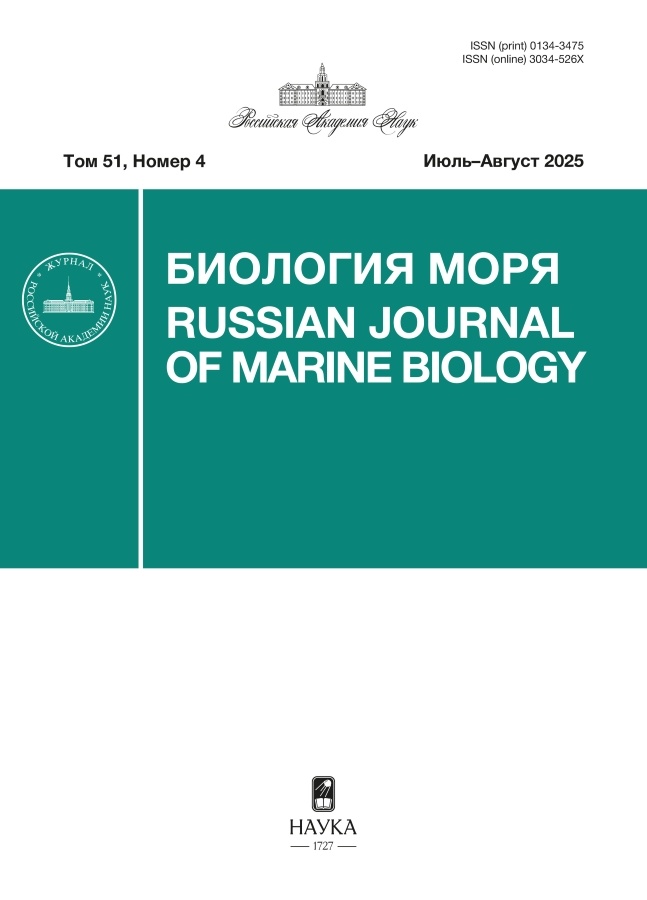
-
Biologiya Morya
ISSN (print): 0134-3475
Founders: Russian Academy of Sciences
Editor-in-chief: Dolmatov Igor Yurjevich, Doctor of Sc., Full Professor
Frequency / Access: 6 issues per year / Subscription
Included in: White list (3rd level), Higher Attestation Commission list, RISC
-
Biologiâ vnutrennih vod
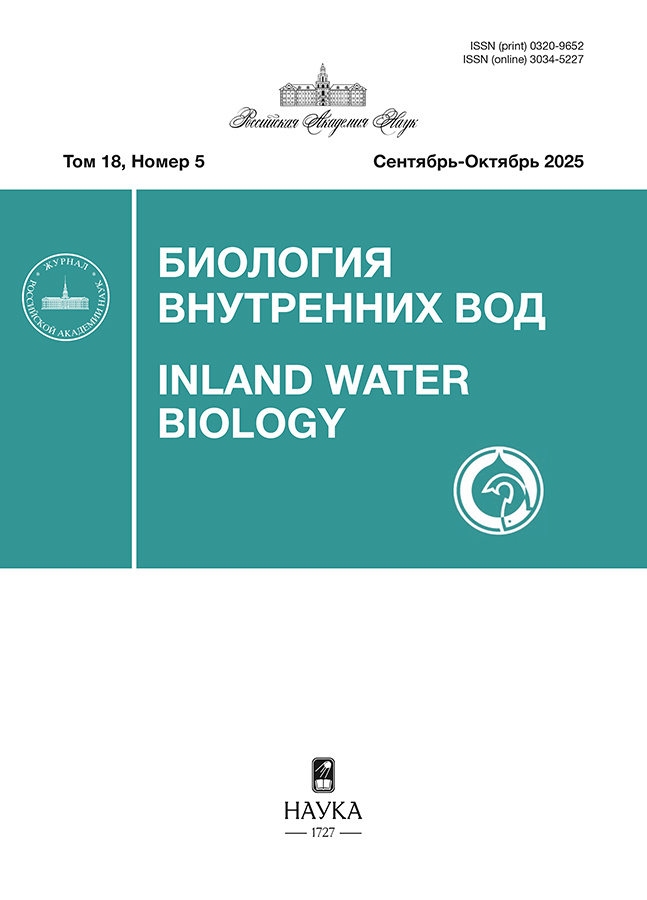
-
Biologiâ vnutrennih vod
ISSN (print): 0320-9652
Founders: Hydrobiological Society of RAS, Papanin Institute for Biology of Inland Waters RAS
Editor-in-Chief: Krylov Aleksandr Vitalevich, Doctor of Sc., Full Professor
Frequency / Access: 6 issues per year / Subscription
Included in: White list (3rd level), Higher Attestation Commission list, RISC
-
Biologičeskie membrany
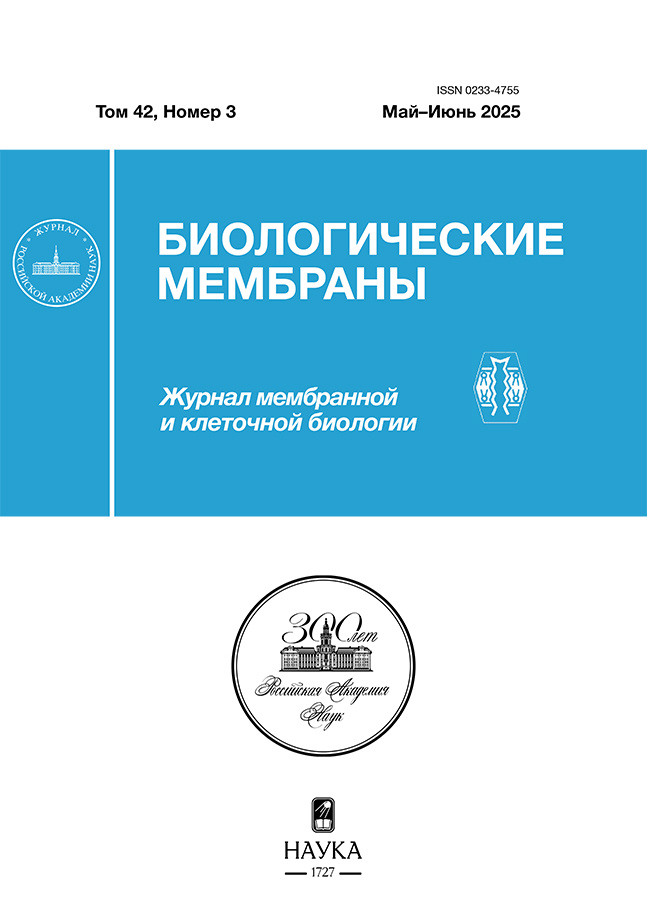
-
Biologičeskie membrany
ISSN (print): 0233-4755
Founder: Russian Academy of Sciences (RAS)
Editor-in-Chief: Kolesnikov Stanislav Sergeevich
Frequency / Access: 6 issues per year / Subscription
Included in: White List (3rd level), Higher Attestation Commission List, RISC, Scopus, Web of Science Core Collection
-
Astronomičeskij vestnik
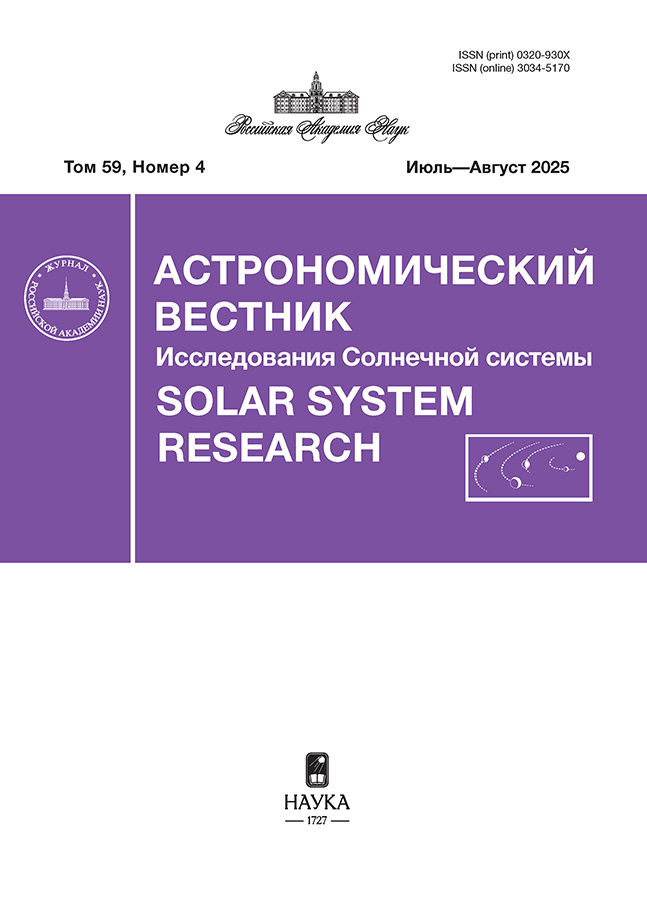
-
Astronomičeskij vestnik
ISSN (print): 0320-930X
Founders: Russian Academy of Sciences, Keldysh Institute of Applied Mathematics
Editor-in-Chief: Marov Mihail Y., academician RAS, Doctor of Sc., Full Professor
Frequency / Access: 6 issues per year / Subscription
Included in: White list (3rd level), Higher Attestation Commission List, RISC
-
Astronomičeskij žurnal

-
Astronomičeskij žurnal
ISSN (print): 0004-6299
Founders: Russian Academy of Sciences (RAS), Institute of Astronomy of the Russian Academy of Sciences
Editor-in-Chief: Dmitry V. Bisikalo
Frequency / Access: 12 issues per year / Open
Included in: White List (2nd level), Higher Attestation Commission List, RISC
-
Akustičeskij žurnal
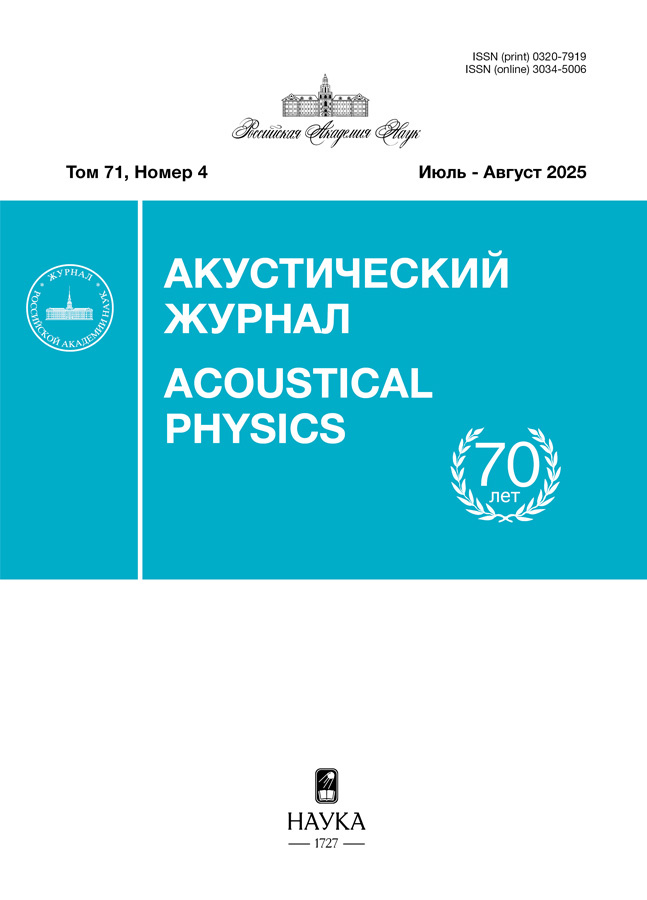
-
Akustičeskij žurnal
ISSN (print): 0320-7919
Founder: Russian Academy of Sciences
Editor-in-Chief: Igor B. Esipov, Doctor of Sc., Full Professor
Frequency / Access: 6 issues per year / Subscription
Included in: White List (2nd level), Higher Attestation Commission List, RISC
-
Asia & Africa today

-
Asia & Africa today
ISSN (print): 0321-5075, ISSN (online): 2782-2389
Founders: Russian Academy of Sciences, Institute of Oriental Studies RAS, Institute for African Studies
Editor-in-Chief: Alexei M. Vasiliev, academician RAS, Doctor of Sc., Full Professor
Frequency / Access: 12 issues per year / Subscription
Included in: White list (3rd level), Higher Attestation Commission list, RISC
-
Agrohimiâ
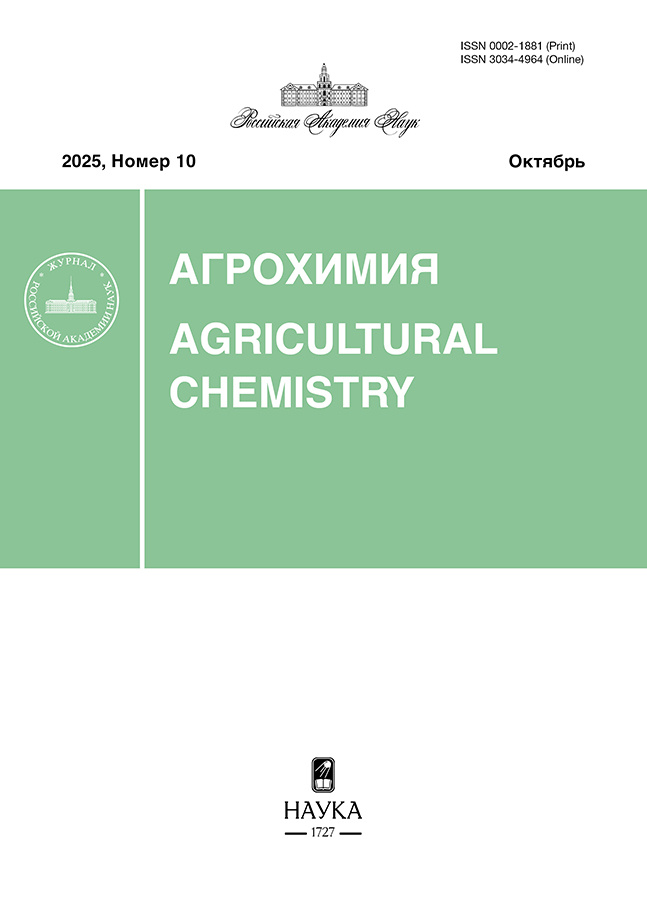
-
Agrohimiâ
ISSN (print): 0002-1881
Founder: Russian Academy of Sciences
Editor-in-Chief: Glinushkin Aleksej Pavlovich, academician RAS, Doctor of Sc., Full Professor
Frequency / Access: 12 issues per year / Subscription
Included in: White list (1st level), Higher Attestation Commission List, RISC
-
Avtomatika i telemehanika
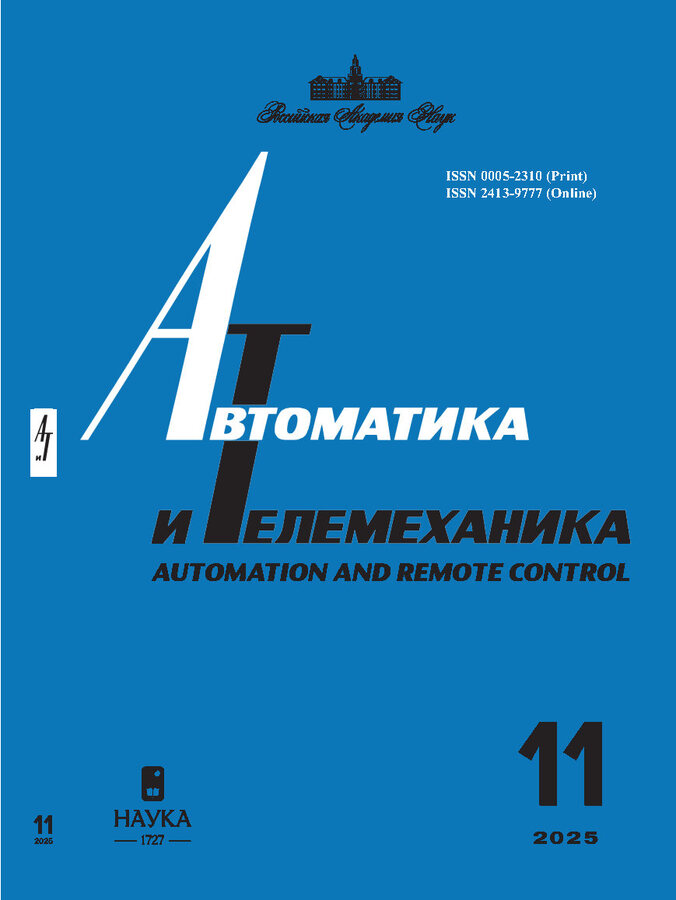
-
Avtomatika i telemehanika
ISSN (print): 0005-2310, ISSN (online): 2413-9777
Founders: Institute for Information Transmission Problems of RAS, Institute of Control Sciences of RAS, Russian Academy of Sciences (RAS)
Editor-in-Chief: Galyaev Andrey Alekseevich, corresponding member RAS, Doctor of Sc., Full Professor
Frequency / Access: 12 issues per year / Subscription
Included in: White List (2nd level), Higher Attestation Commission List, RISC
-
Вестник Российской академии наук
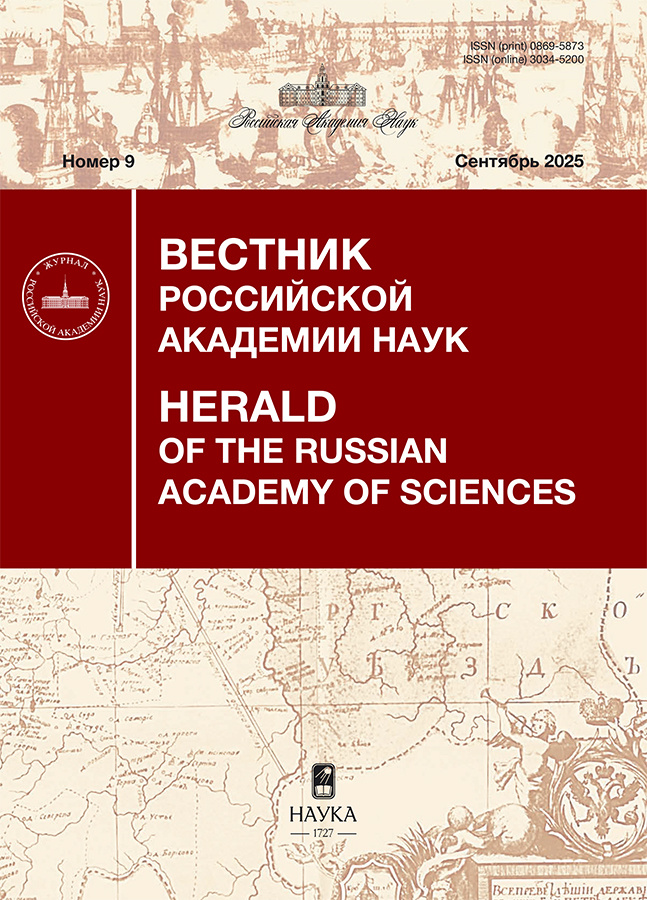
-
Вестник Российской академии наук
Мультидисциплинарный рецензируемый научный журнал.
Публикуется ежемесячно с 1931 года.
Главный редактор: академик РАН Хохлов Алексей Ремович
Индексируется: ВАК, Google Scholar, Ulrich's Periodicals directory, ядро РИНЦ и Russian Science Citation Index.
ISSN: 0869-5873 (Print)
-
Vestnik Rossijskoj selʹskohozyajstvennoj nauki
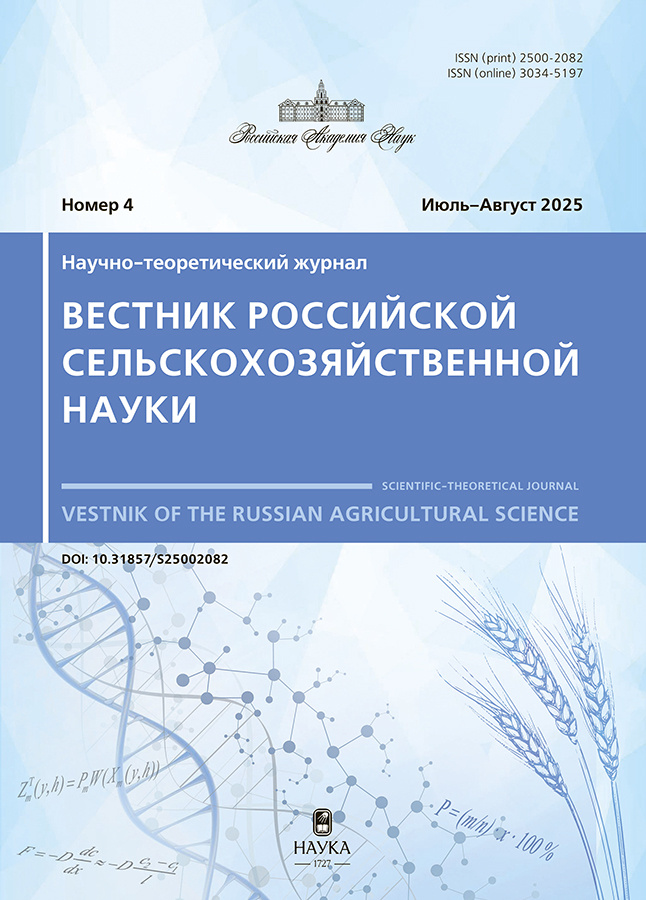
-
Vestnik Rossijskoj selʹskohozyajstvennoj nauki
Academic peer-review journal.
Editor-in-Chief: professor G.A. Romanenko
Indexing: Russian Science Citation Index, Google Scholar, Ulrich's Periodical directory.
Publishes bimonthly from 1992.
ISSN: 2500-2082 (Print)
-
Водные ресурсы
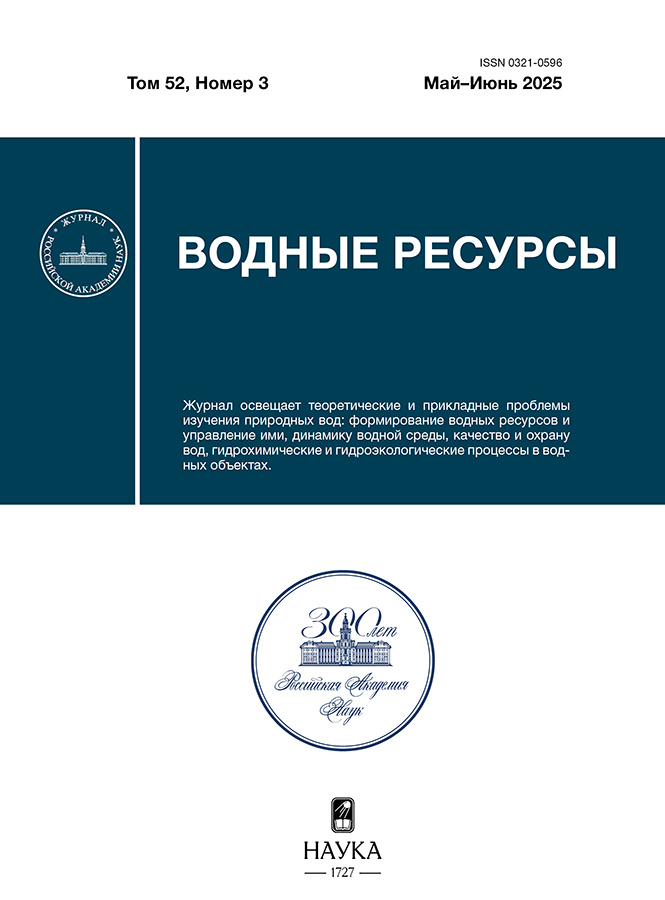
-
Водные ресурсы
Рецензируемый научный журнал серии "Науки о земле".
Направление: Геология (ГРНТИ: 38.00.00).
Публикуется каждые 2 месяца с 1972 года.
Главный редактор: чл.-корр. РАН Виктор Иванович Данилов-Данильян
Индексируется: ВАК, Google Scholar, Ulrich's Periodicals directory, ядро РИНЦ и Russian Science Citation Index.
ISSN: 0321-0596 (Print)
-
Вулканология и сейсмология
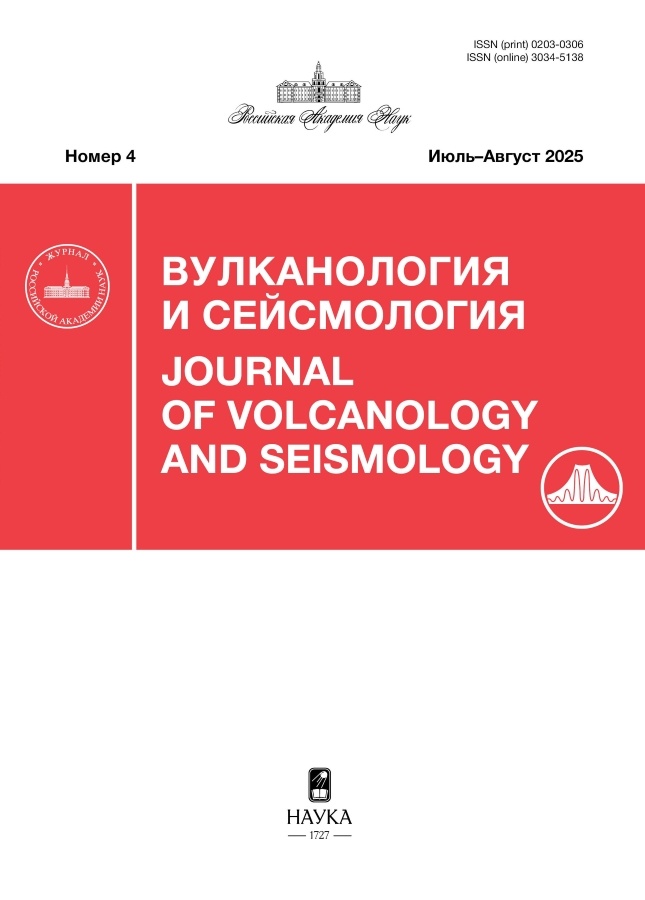
-
Вулканология и сейсмология
Рецензируемый научный журнал серии "Науки о земле".
Направление: Вулканология (ГРНТИ: 38.37.25). Сейсмология (ГРНТИ: 37.31.19).
Публикуется каждые 2 месяца с 1937 года.
Главный редактор: академик РАН Сергей Александрович Федотов
Индексируется: ВАК, Google Scholar, Ulrich's Periodicals directory, ядро РИНЦ и Russian Science Citation Index.
ISSN: 0203-0306 (Print)
-
Геология рудных месторождений
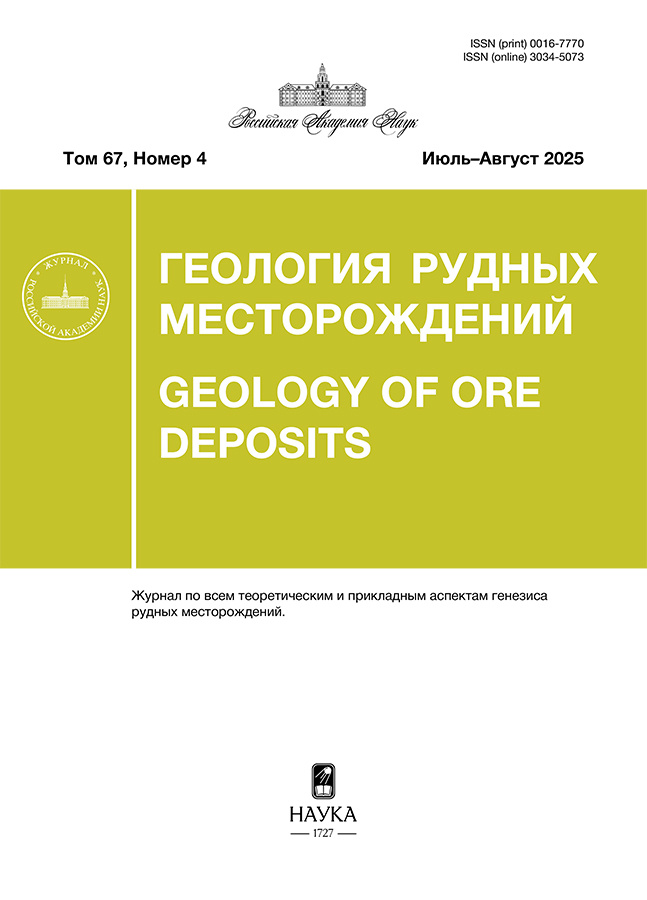
-
Геология рудных месторождений
Рецензируемый научный журнал серии "Науки о земле".
Направление: Геология рудных месторождений (ГРНТИ: 38.49.19).
Публикуется каждые 2 месяца с 1959 года.
Главный редактор: академик РАН Николай Стефанович Бортников
Индексируется: ВАК, Google Scholar, Ulrich's Periodicals directory, ядро РИНЦ и Russian Science Citation Index.
ISSN: 0016-7770 (Print)
-
Geomorphology RAS
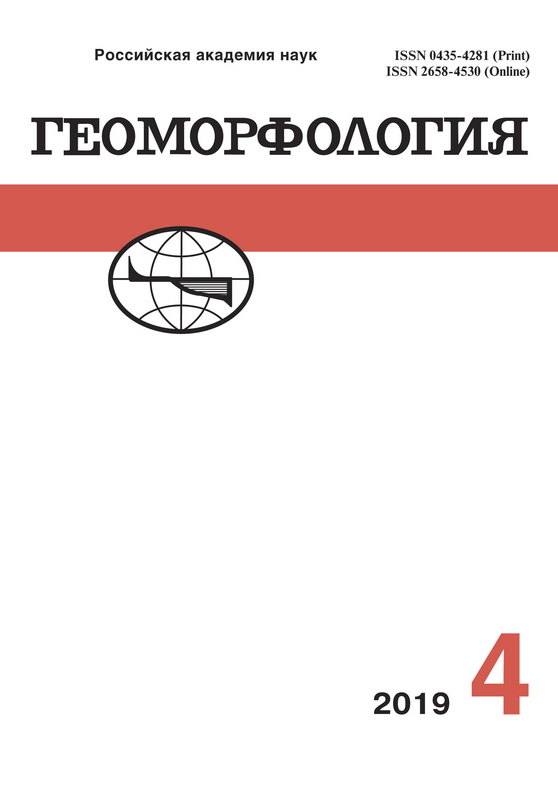
-
Geomorphology RAS
Рецензируемый научный журнал серии "Науки о земле".
Направление: Геоморфология (ГРНТИ: 38.47.00).
Публикуется каждые 3 месяца с 1970 года.
Главный редактор: д.г.н. Валерий Павлович Чичагов
Индексируется: SCOPUS, ВАК, Google Scholar, Ulrich's Periodicals directory, ядро РИНЦ и Russian Science Citation Index.
ISSN: 0435-4281 (Print)
-
Геотектоника
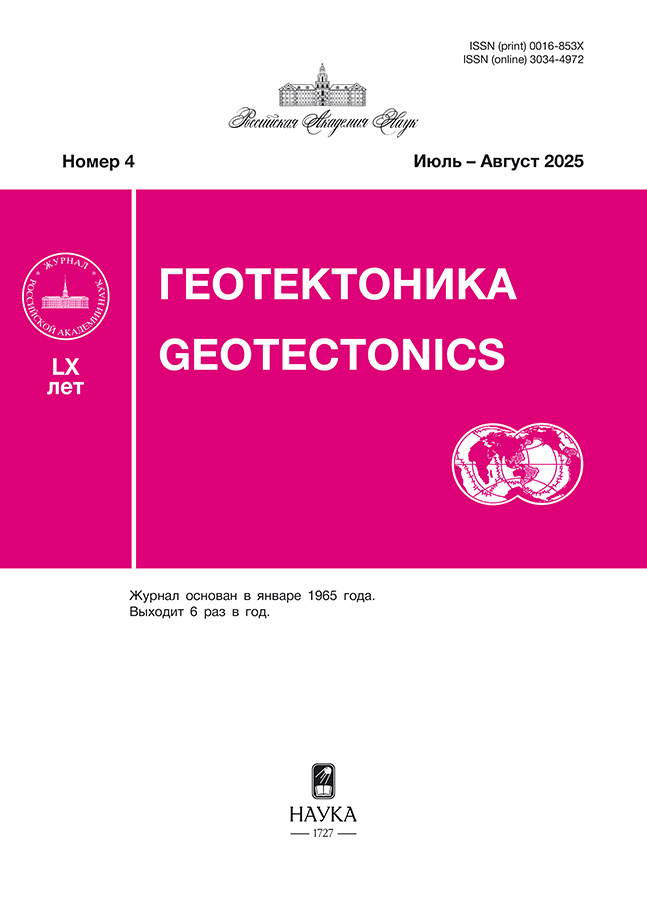
-
Геотектоника
Рецензируемый научный журнал серии "Науки о земле".
Направление: Тектоника (ГРНТИ: 38.17.00).
Публикуется каждые 2 месяца с 1965 года.
Главный редактор: член-корр. РАН Кирилл Евгеньевич Дегтярев
Индексируется: ВАК, Google Scholar, Ulrich's Periodicals directory, ядро РИНЦ и Russian Science Citation Index.
ISSN: 0016-853X (Print)
-
Геохимия
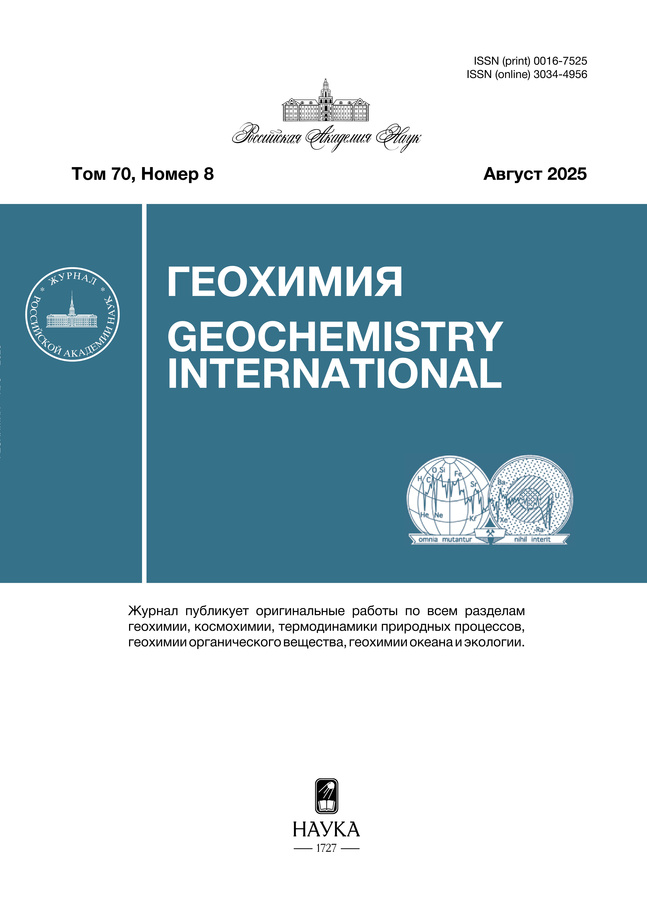
-
Геохимия
Рецензируемый научный журнал серии "Науки о земле".
Направление: Геохимия (ГРНТИ: 38.33.00).
Публикуется каждый месяц с 1956 года.
Главный редактор: академик РАН Эрик Михайлович Галимов
Индексируется: ВАК, Google Scholar, Ulrich's Periodicals directory, ядро РИНЦ и Russian Science Citation Index.
ISSN: 0016-7525 (Print)
-
Геоэкология. Инженерная геология. Гидрогеология. Геокриология
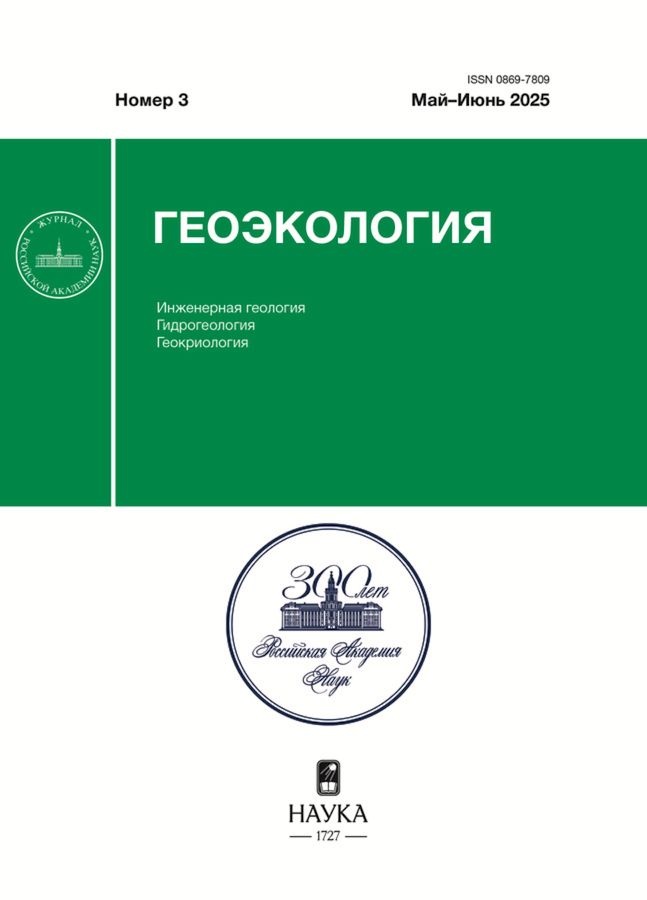
-
Геоэкология. Инженерная геология. Гидрогеология. Геокриология
Рецензируемый научный журнал серии "Науки о земле".
Направление: Гидрогеология (ГРНТИ: 38.61.00); Инженерная геология (ГРНТИ: 38.63.00); Теория и методы изучения и охраны окружающей среды. Экологические основы использования природных ресурсов (ГРНТИ: 87.03.00)
Публикуется каждые 2 месяца с 1979 года.
Главный редактор: академик РАН Виктор Иванович Осипов
Индексируется: ВАК, Google Scholar, Ulrich's Periodicals directory, ядро РИНЦ и Russian Science Citation Index.
ISSN: 0869-7809 (Print)
-
Доклады Академии наук

-
Доклады Академии наук
Мультидисциплинарный рецензируемый научный журнал.
Публикуется каждые 10 дней с 1933 года.
Главный редактор: академик РАН Владимир Евгеньевич Фортов
Индексируется: ВАК, Google Scholar, Ulrich's Periodicals directory, ядро РИНЦ и Russian Science Citation Index.
ISSN: 0869-5652 (Print)
-
Zapiski RMO (Proceedings of the Russian Mineralogical Society)
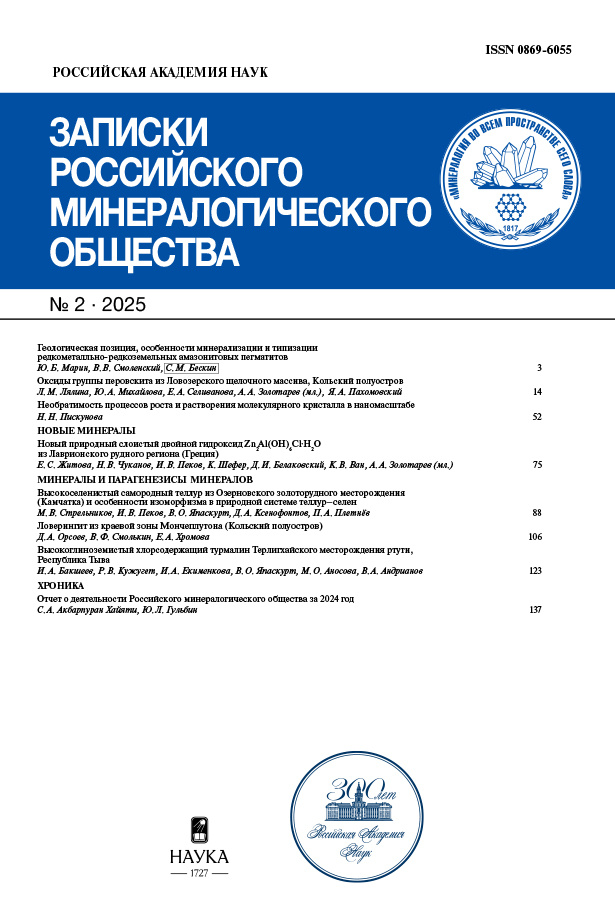
-
Zapiski RMO (Proceedings of the Russian Mineralogical Society)
Peer-review academic journal.
Main fields: Earth Science; mineralogy.
Editor-in-Chief: professor Yury B. Marin
Issues bimonthly since 1866.
Indexing: SCOPUS, Russian Science Citation Index, Google Scholar, Ulrich's Periodical directory.
ISSN: 0869-6055 (Print) 2658-4352 (Online)
-
Izvestiya Rossiiskoi akademii nauk. Seriya geograficheskaya
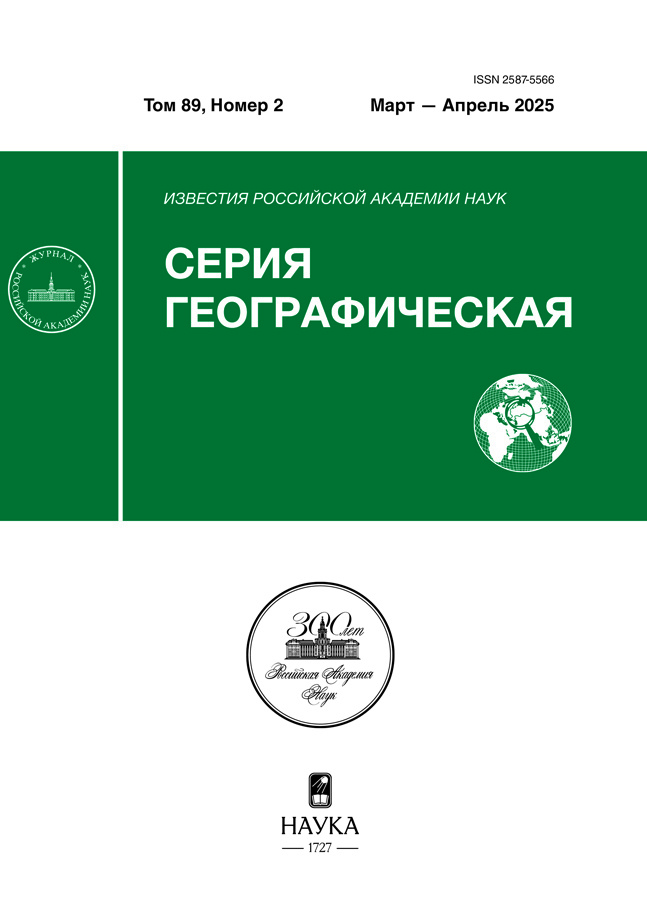
-
Izvestiya Rossiiskoi akademii nauk. Seriya geograficheskaya
Рецензируемый научный журнал серии "Науки о земле".
Направление: География (ГРНТИ: 39.00.00).
Публикуется каждые 2 месяца с 1937 года.
Главный редактор: академик РАН Владимир Михайлович Котляков
Индексируется: ВАК, SCOPUS, Google Scholar, Ulrich's Periodicals directory, ядро РИНЦ и Russian Science Citation Index.
ISSN: 2587-5566 (Print)
-
Известия Российской академии наук. Физика атмосферы и океана
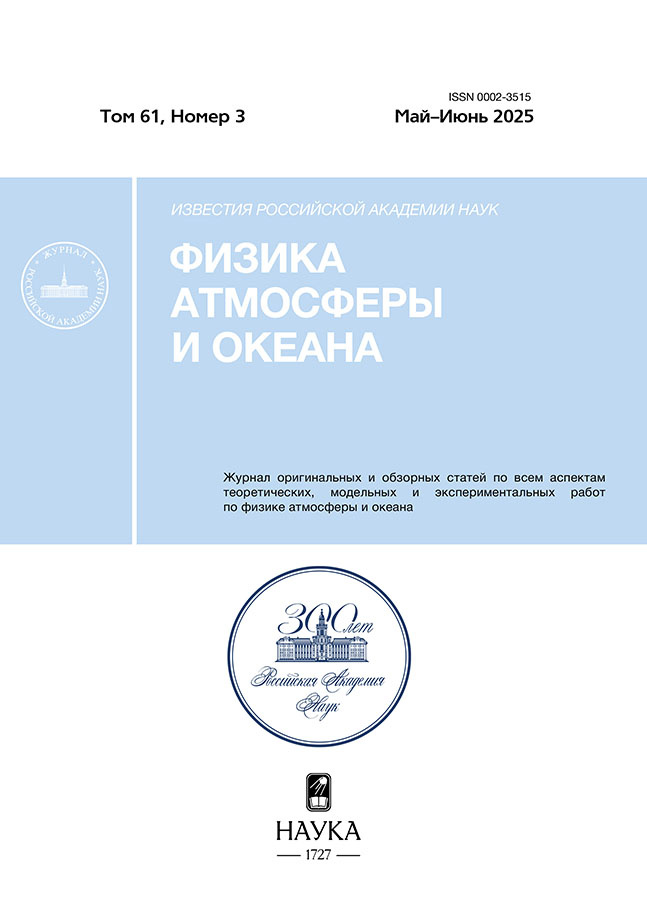
-
Известия Российской академии наук. Физика атмосферы и океана
Рецензируемый научный журнал серии "Науки о земле".
Направление: Геофизика (ГРНТИ: 37.00.00).
Публикуется каждые 2 месяца с 1937 года.
Главный редактор: академик РАН Георгий Сергеевич Голицын
Индексируется: ВАК, Google Scholar, Ulrich's Periodicals directory, ядро РИНЦ и Russian Science Citation Index.
ISSN: 0002-3515 (Print)
-
Известия Русского географического общества
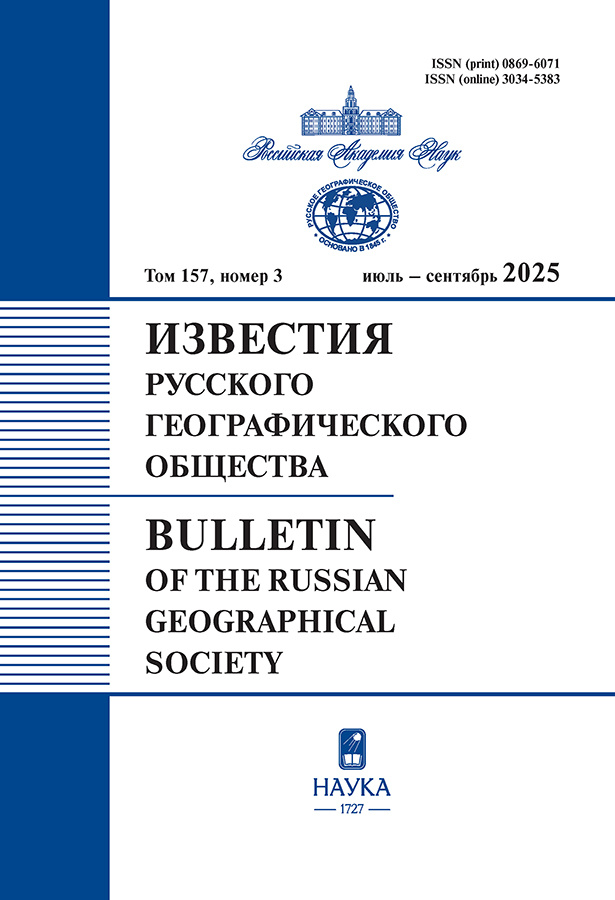
-
Известия Русского географического общества
Рецензируемый научный журнал серии "Науки о земле".
Направление: География (ГРНТИ: 39.00.00).
Публикуется каждые 2 месяца с 1865 года.
Главный редактор: профессор Владимир Михайлович Разумовский
Индексируется: ВАК, Google Scholar, Ulrich's Periodicals directory, ядро РИНЦ и Russian Science Citation Index.
ISSN: 0869-6071 (Print)
-
Исследования Земли из Космоса
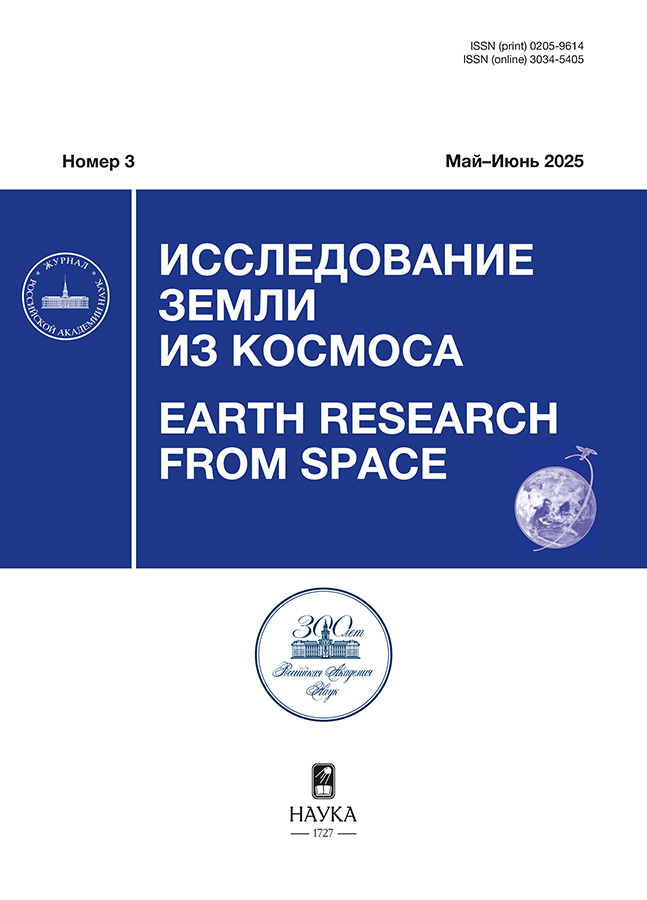
-
Исследования Земли из Космоса
Рецензируемый научный журнал серии "Науки о земле".
Направление: Исследование Земли из космоса (ГРНТИ: 89.57.00).
Публикуется каждые 2 месяца с 1980 года.
Главный редактор: академик РАН Валерий Григорьевич Бондур
Индексируется: ВАК, Google Scholar, Ulrich's Periodicals directory, ядро РИНЦ и Russian Science Citation Index.
ISSN: 0205-9614 (Print)
-
Ice and Snow
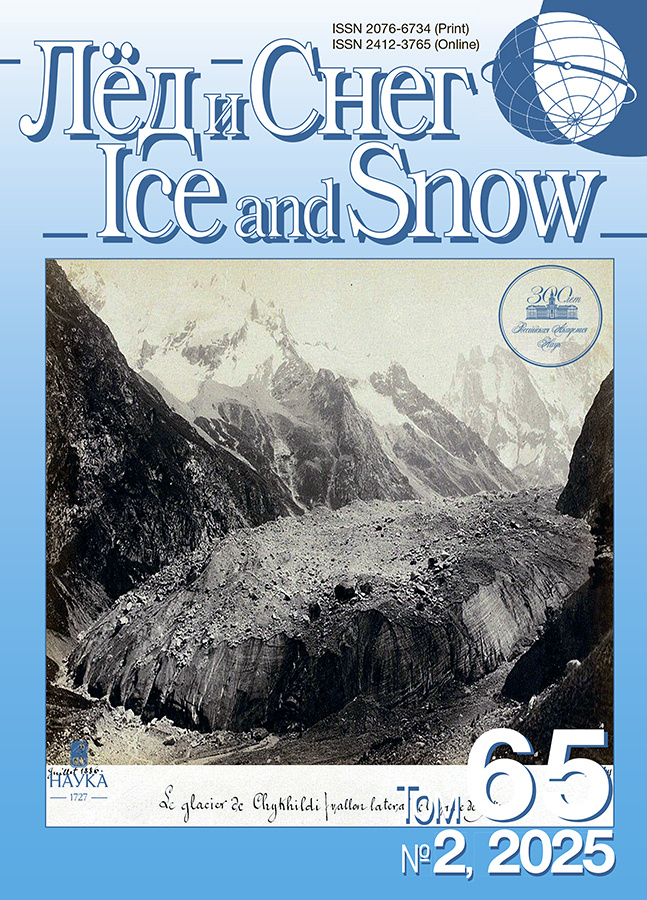
-
Ice and Snow
Peer-review academic journal.
Main fields: Earth Science.
Editor-in-Chief: professor Vladimir M. Kotlyakov
Issues quarterly since 2002.
Indexing: Web of Science (ESCI), SCOPUS, Russian Science Citation Index, Google Scholar, DOAJ, Ulrich's Periodical directory.
ISSN: 2076-6734 (Print) ISSN 2412-3765 (Online)
-
Литология и полезные ископаемые
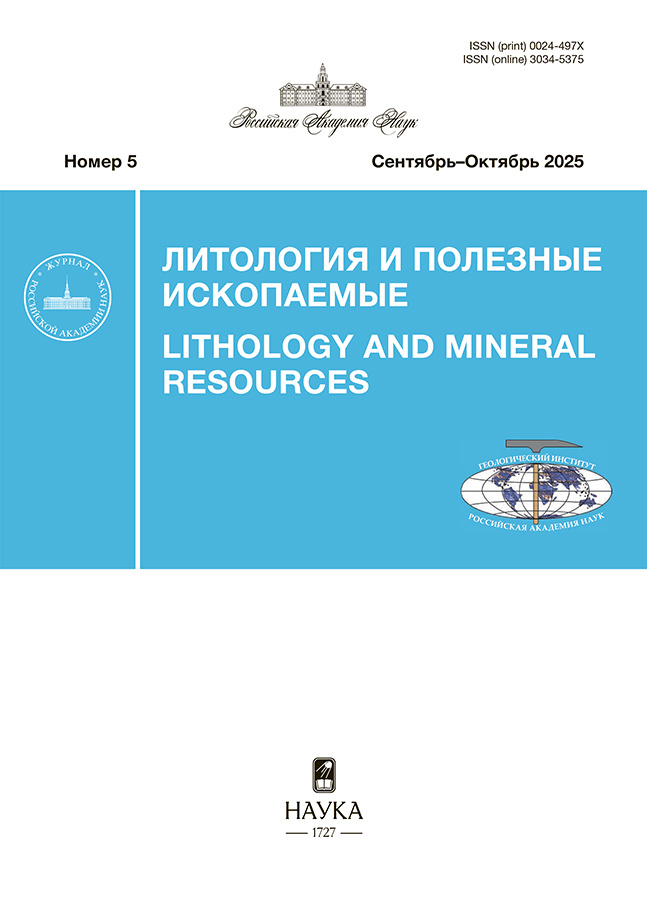
-
Литология и полезные ископаемые
Рецензируемый научный журнал серии "Науки о земле".
Направление: Литология (ГРНТИ: 38.15.00).
Публикуется каждые 2 месяца с 1963 года.
Главный редактор: доктор геолого-минералогических наук Гаврилов Юрий Олегович
Индексируется: ВАК, Google Scholar, Ulrich's Periodicals directory, ядро РИНЦ и Russian Science Citation Index.
ISSN: 0024-497X (Print)
-
Океанология
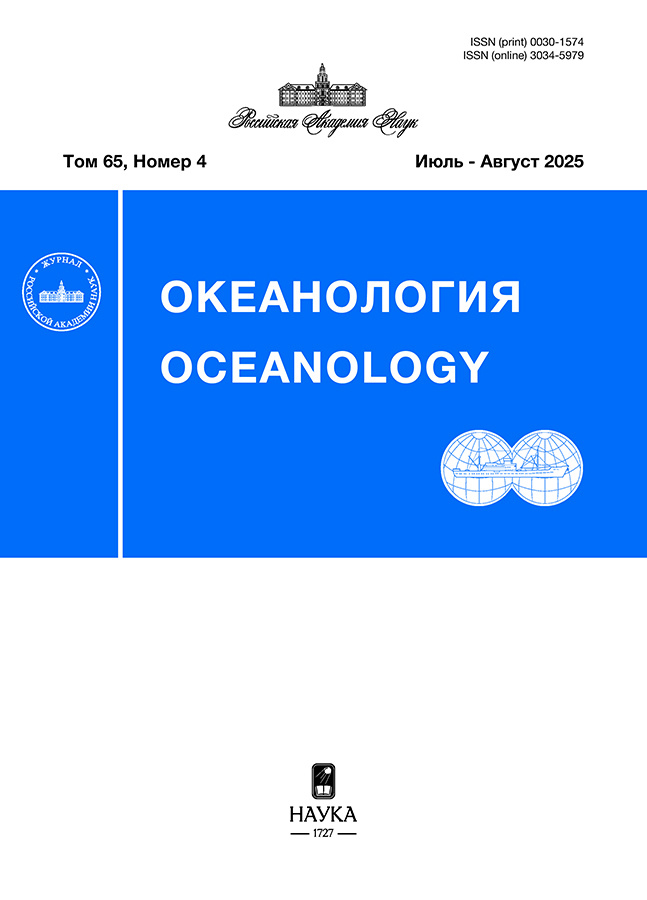
-
Океанология
Рецензируемый научный журнал серии "Науки о земле".
Направление: Океанология (ГРНТИ: 37.25.00).
Публикуется каждые 2 месяца с 1961 года.
Главный редактор: академик РАН Роберт Искандрович Нигматулин
Индексируется: ВАК, Google Scholar, Ulrich's Periodicals directory, ядро РИНЦ и Russian Science Citation Index.
ISSN: 0030-1574 (Print)
-
Петрология
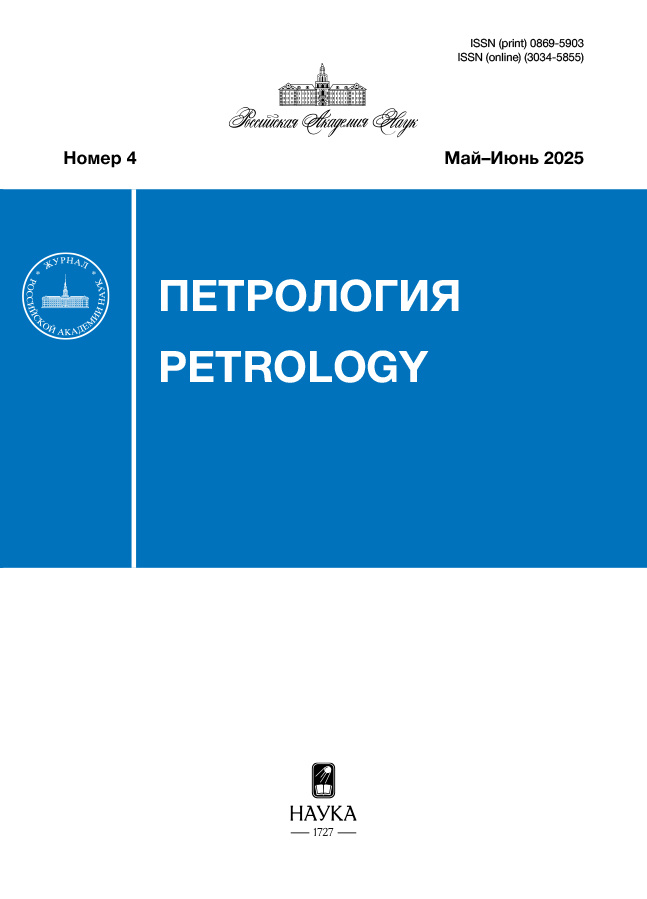
-
Петрология
Рецензируемый научный журнал серии "Науки о земле".
Направление: Петрография (ГРНТИ: 38.37.00).
Публикуется каждые 2 месяца с 1993 года.
Главный редактор: академик РАН Ярмолюк Владимир Викторович.
Индексируется: ВАК, Google Scholar, Ulrich's Periodicals directory, ядро РИНЦ и Russian Science Citation Index.
ISSN: 0869-5903 (Print)
-
Rossiiskaia selskokhoziaistvennaia nauka
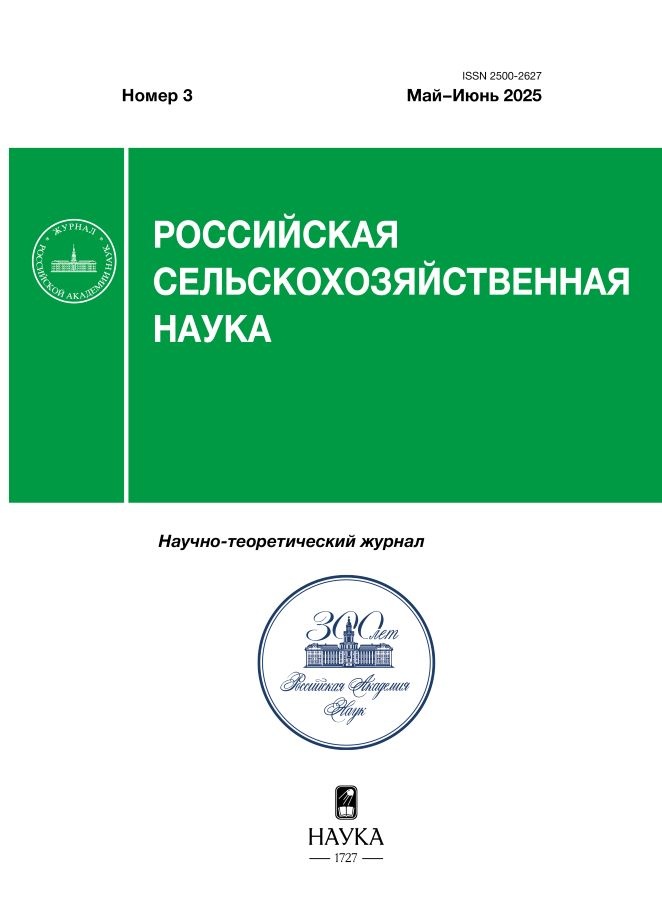
-
Rossiiskaia selskokhoziaistvennaia nauka
Рецензируемый научный журнал серии "Науки о земле".
Направление: Сельское и лесное хозяйство (ГРНТИ: 68.00.00).
Публикуется каждые 3 месяца с 1936 года.
Главный редактор: академик РАН Юрий Федорович Лачуга
Индексируется: ВАК, Google Scholar, Ulrich's Periodicals directory, ядро РИНЦ и Russian Science Citation Index.
ISSN: 2500-2627 (Print)
-
Стратиграфия
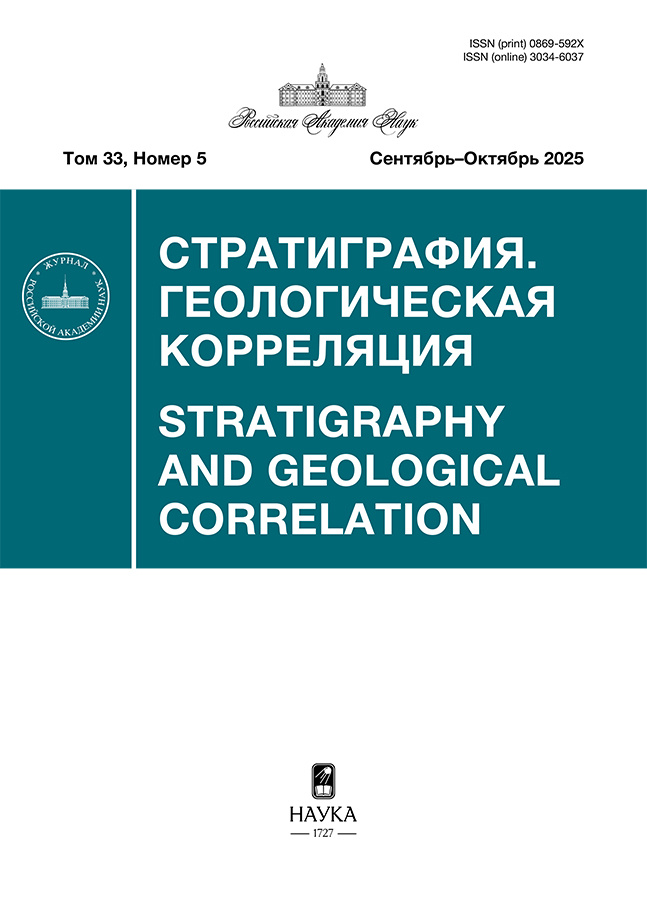
-
Стратиграфия
Рецензируемый научный журнал серии "Науки о земле".
Направление: Стратиграфия (ГРНТИ: 38.29.00).
Публикуется каждые 2 месяца с 1993 года.
Главный редактор: академик РАН Михаил Александрович Семихатов
Индексируется: ВАК, Google Scholar, Ulrich's Periodicals directory, ядро РИНЦ и Russian Science Citation Index.
ISSN: 0869-592X (Print)
-
Физика Земли
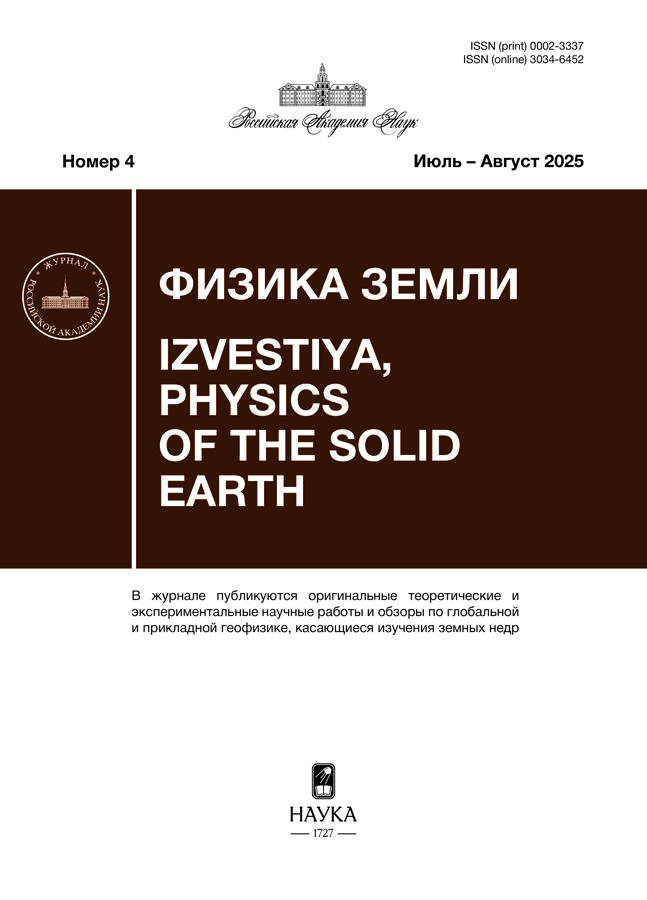
-
Физика Земли
Рецензируемый научный журнал серии "Науки о земле".
Направление: Физика Земли (ГРНТИ: 37.31.00).
Публикуется каждые 2 месяца с 1965 года.
Главный редактор: член-корр. РАН Ю.А. Морозов
Индексируется: ВАК, Google Scholar, Ulrich's Periodicals directory, ядро РИНЦ и Russian Science Citation Index.
ISSN: 0002-3337 (Print)
-
9th International Scientific & Practical Conference “Culture, Science, Education: Problems and Perspectives"

-
9th International Scientific & Practical Conference “Culture, Science, Education: Problems and Perspectives"
International Scientific & Practical Conference, multidisciplinary.
Publish in Open Access.
Indexation: Russian Science Citation Index, Google Scholar, Ulrich's Periodicals directory, WorldCat, OpenAIRE, Dimensions.
-
10th International Scientific & Practical Conference “Culture, Science, Education: Problems and Perspectives"

-
10th International Scientific & Practical Conference “Culture, Science, Education: Problems and Perspectives"
International Scientific & Practical Conference, multidisciplinary.
Publish in Open Access.
Indexation: Russian Science Citation Index, Google Scholar, Ulrich's Periodicals directory, WorldCat, OpenAIRE, Dimensions.
-
11th International Scientific & Practical Conference “Culture, Science, Education: Problems and Perspectives"

-
11th International Scientific & Practical Conference “Culture, Science, Education: Problems and Perspectives"
International Scientific & Practical Conference, multidisciplinary.
Publish in Open Access.
Indexation: Russian Science Citation Index, Google Scholar, Ulrich's Periodicals directory, WorldCat, OpenAIRE, Dimensions.
-
International Scientific & Practical Conference “Culture, Science, Education: Problems and Perspectives"

-
International Scientific & Practical Conference “Culture, Science, Education: Problems and Perspectives"
International Scientific & Practical Conference, multidisciplinary.
Publish in Open Access.
Indexation: Russian Science Citation Index, Google Scholar, Ulrich's Periodicals directory, WorldCat, OpenAIRE, Dimensions.
-
Planning and Teaching Engineering Staff for the Industrial and Economic Complex of the Region

-
Planning and Teaching Engineering Staff for the Industrial and Economic Complex of the Region
This big scientific and practical event unites each year the Higher Education Institutions, industrial enterprises and governmental bodies of the region. Its participants discuss the topic of the vital importance – teaching highly qualified engineering staff for the priority branches of industry. The Conference has become one of the main grounds for discussing problems related to engineering staff development in the North West of Russia. Traditionally, the event takes two days, the first day is a plenary session at ETU “LETI”, the second day the meeting is hosted by one of big partner industrial enterprises.






